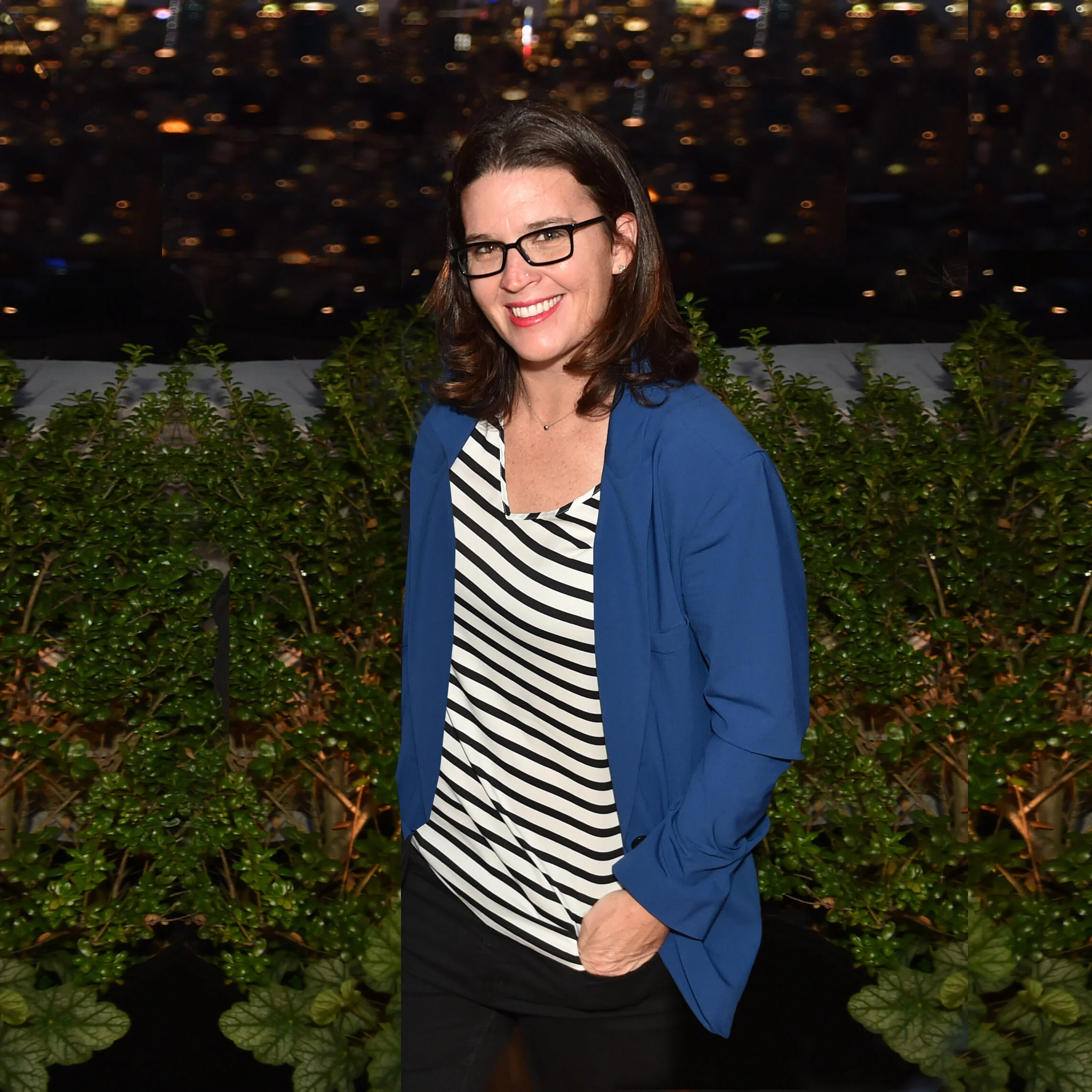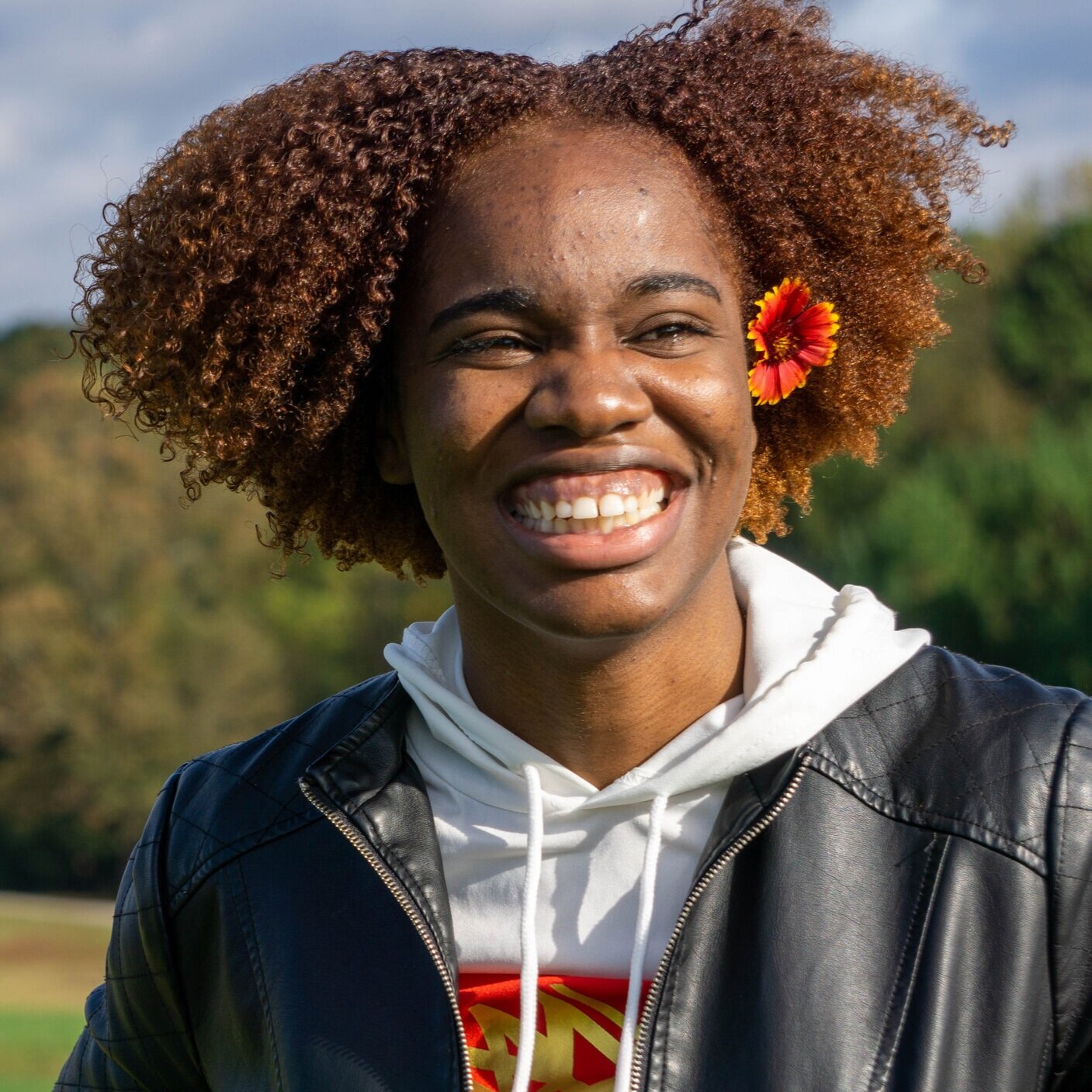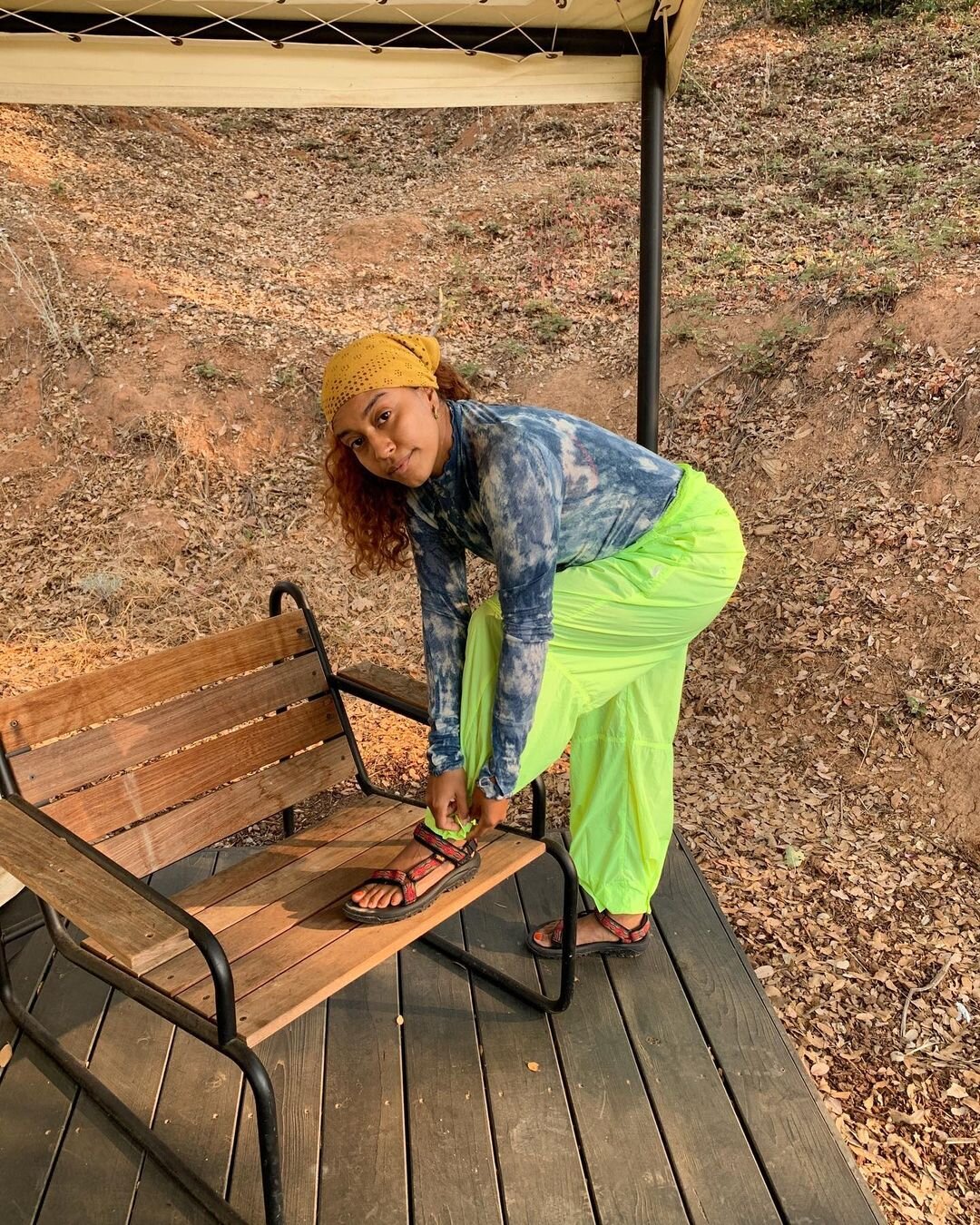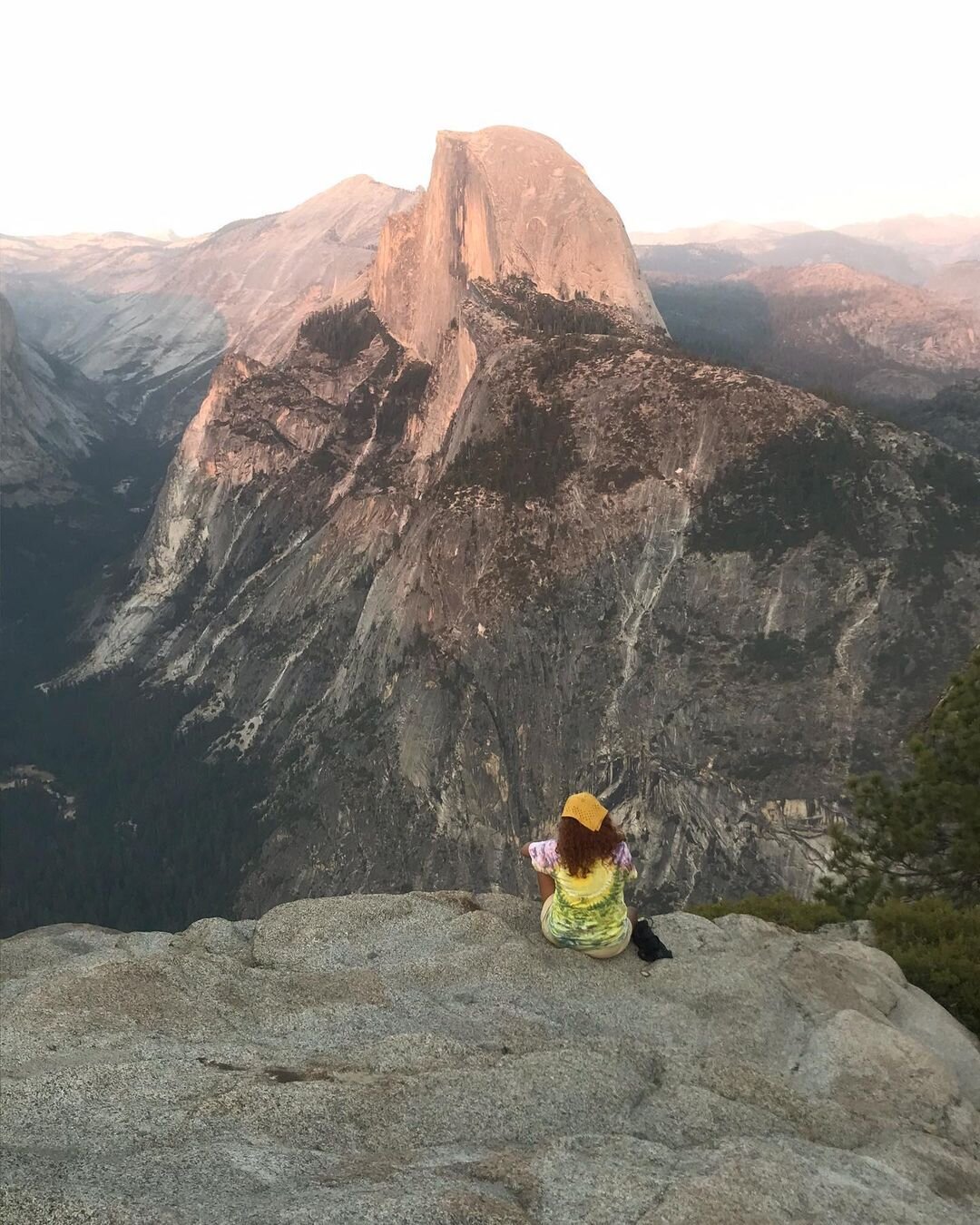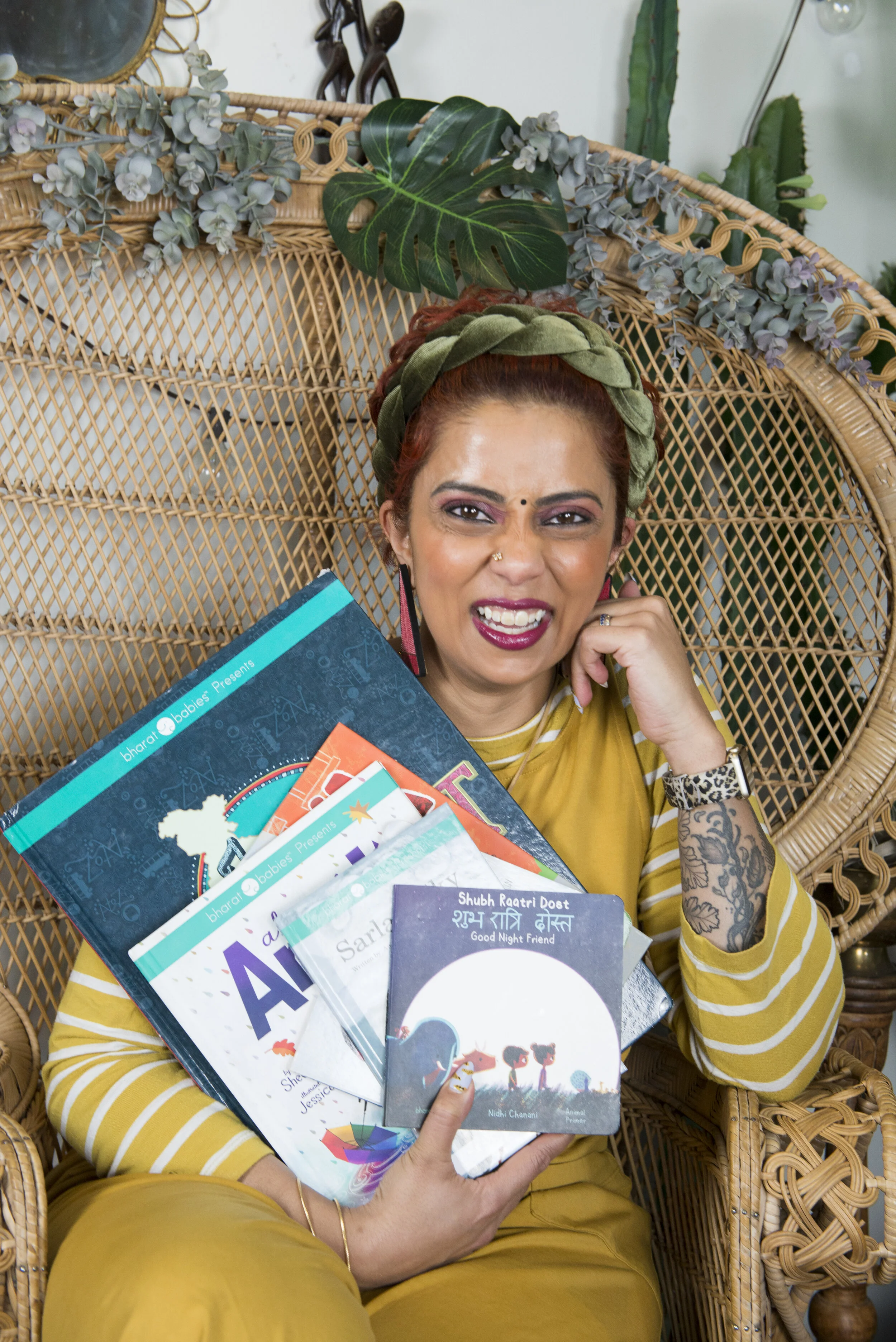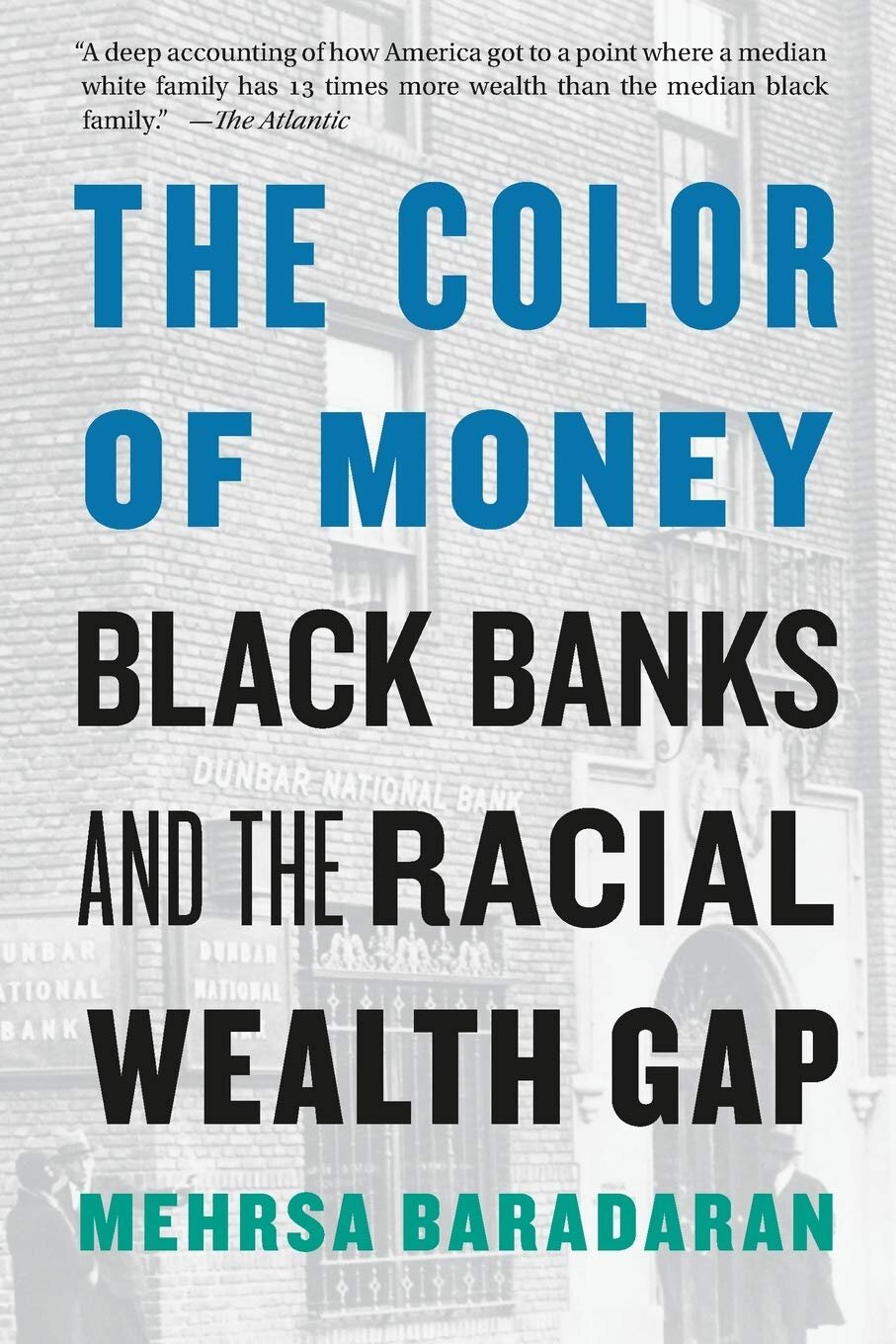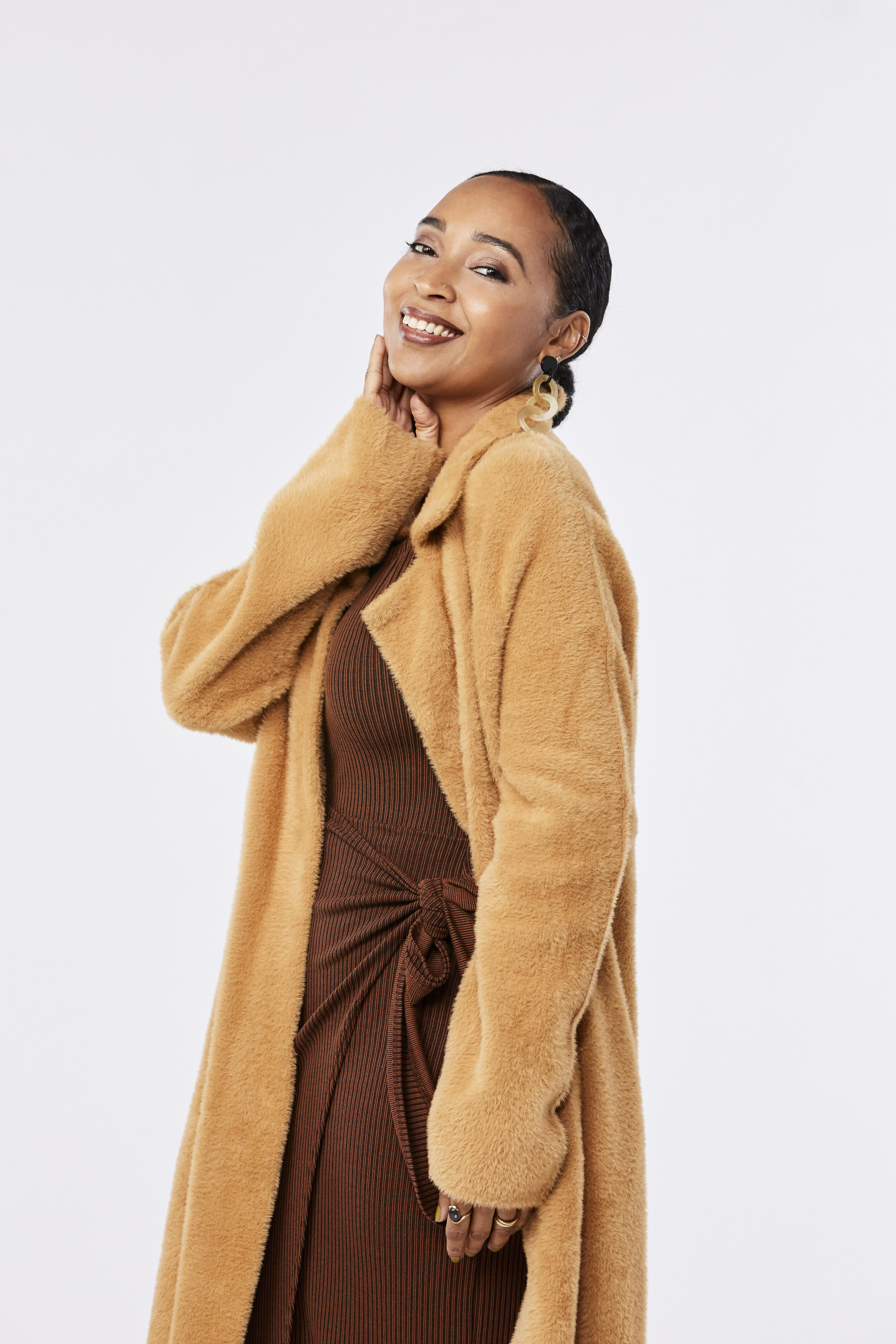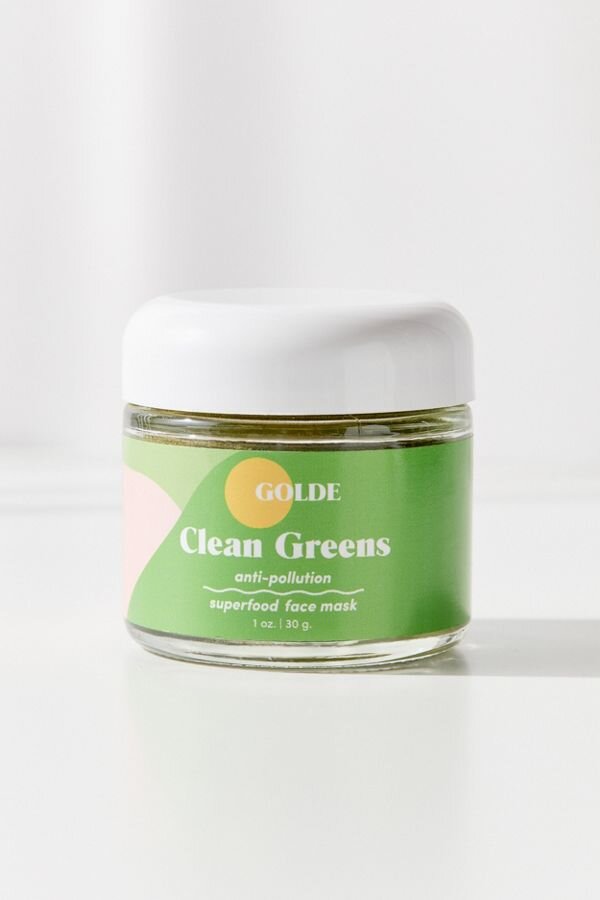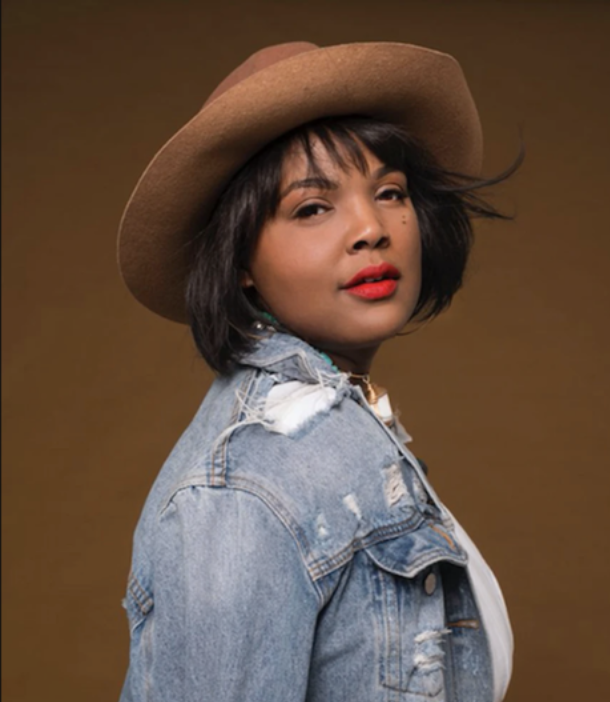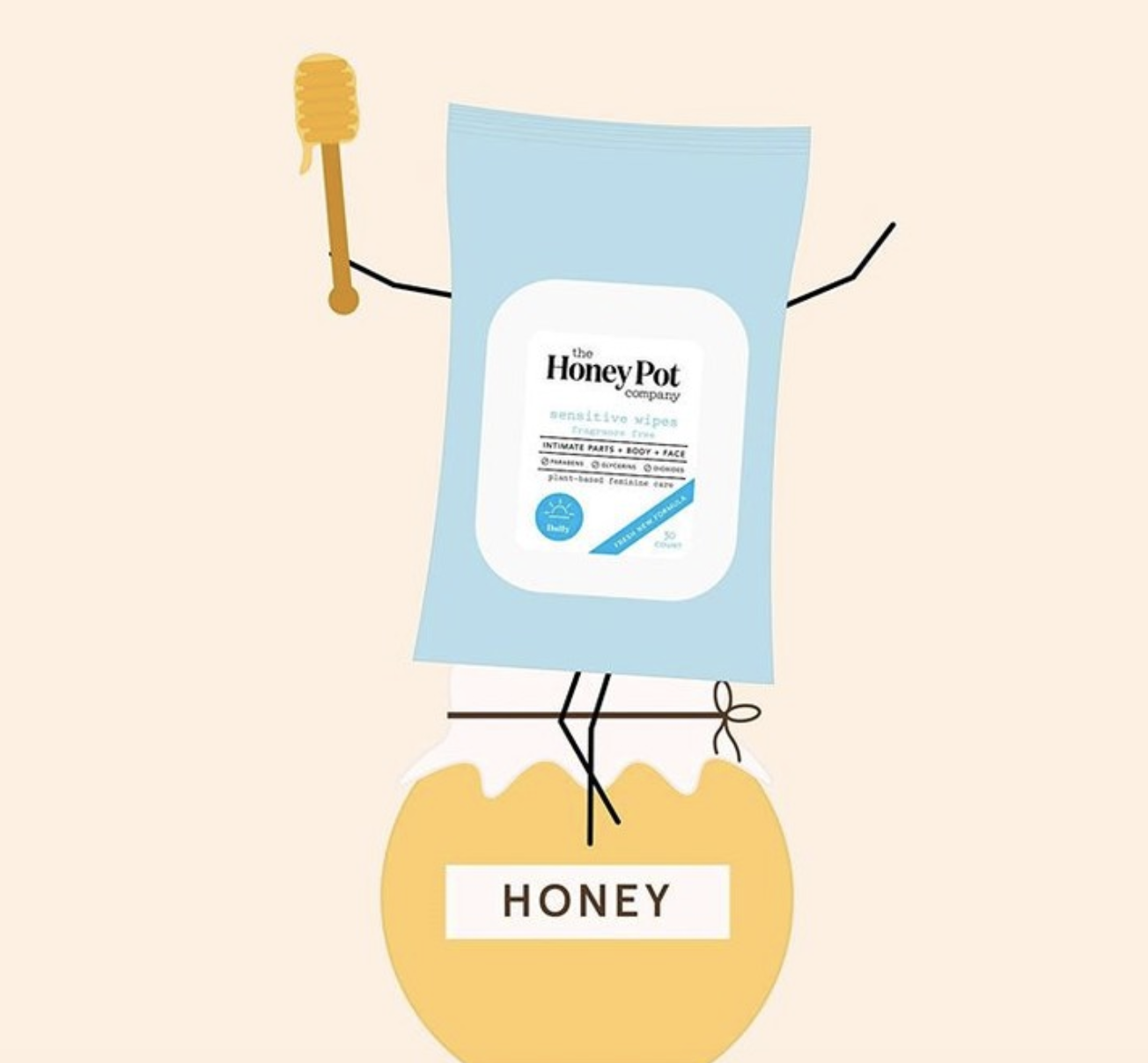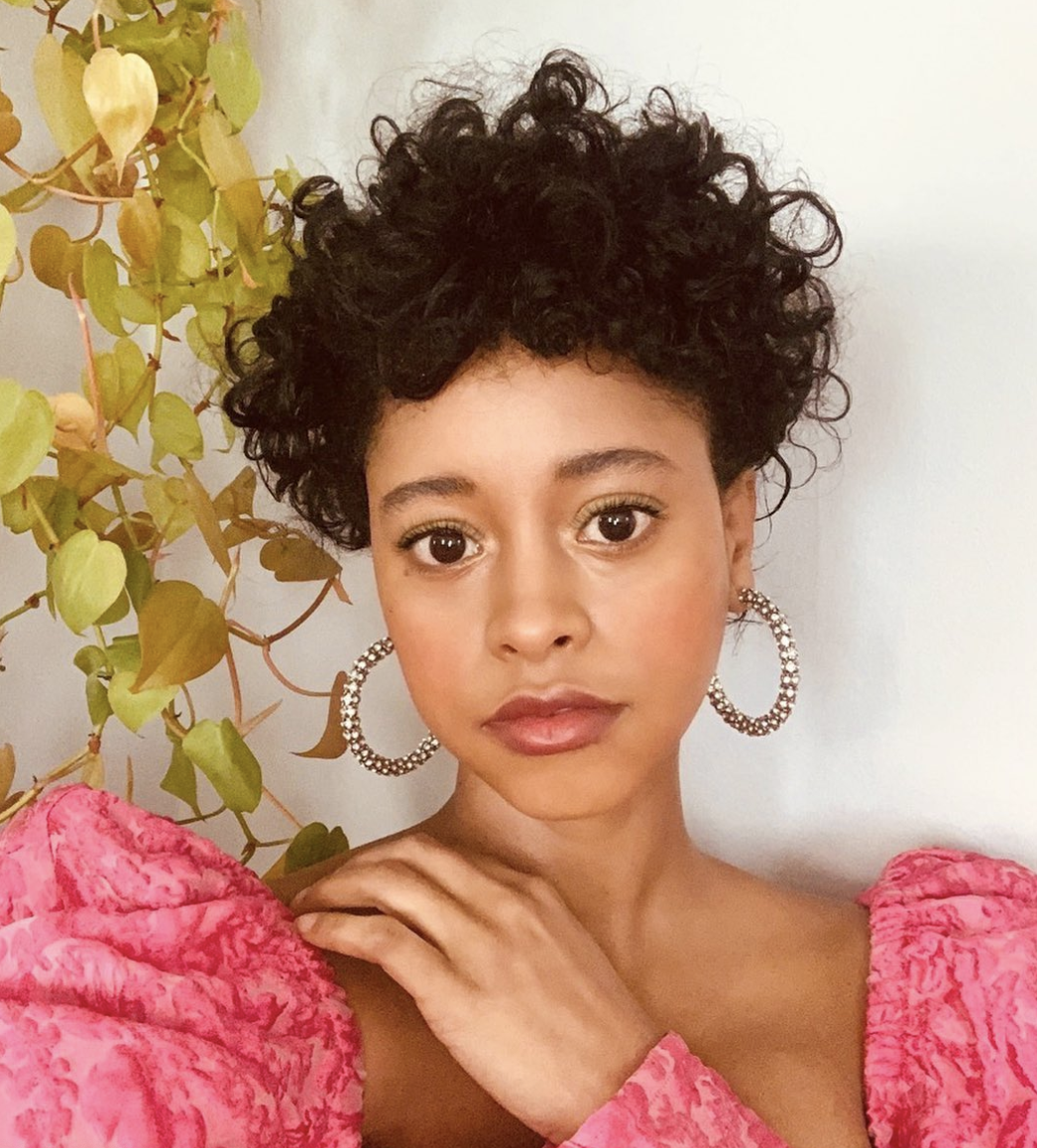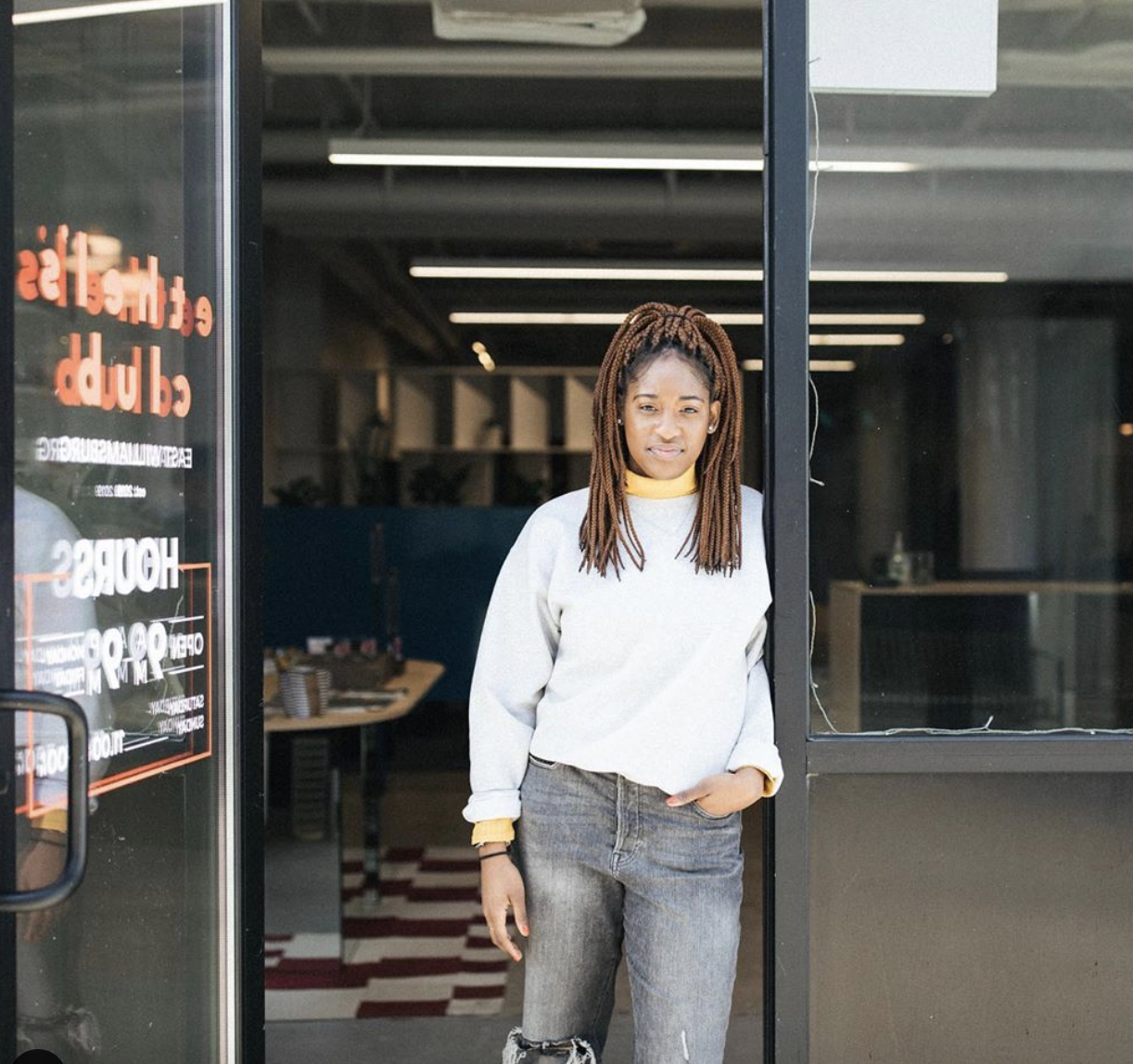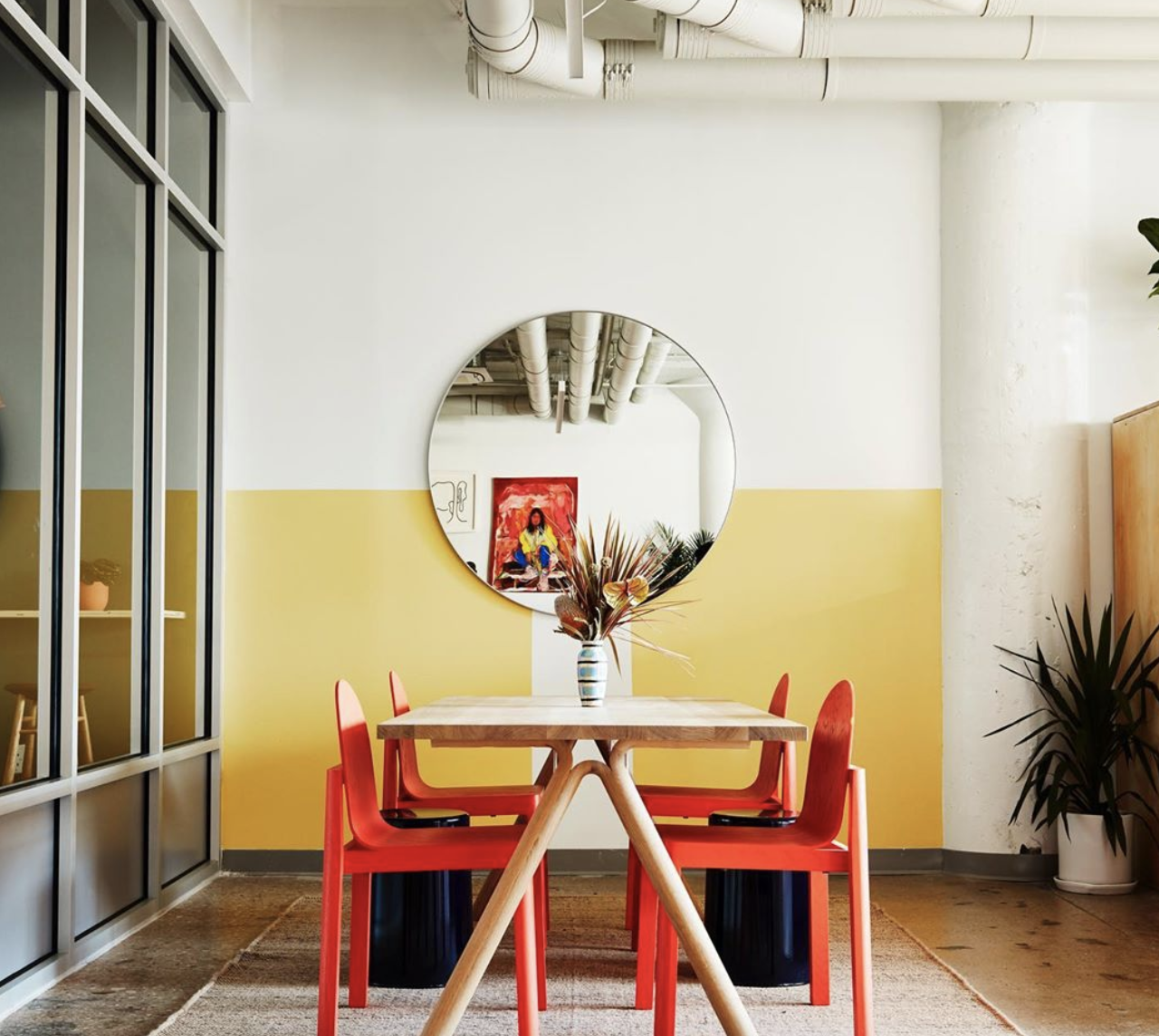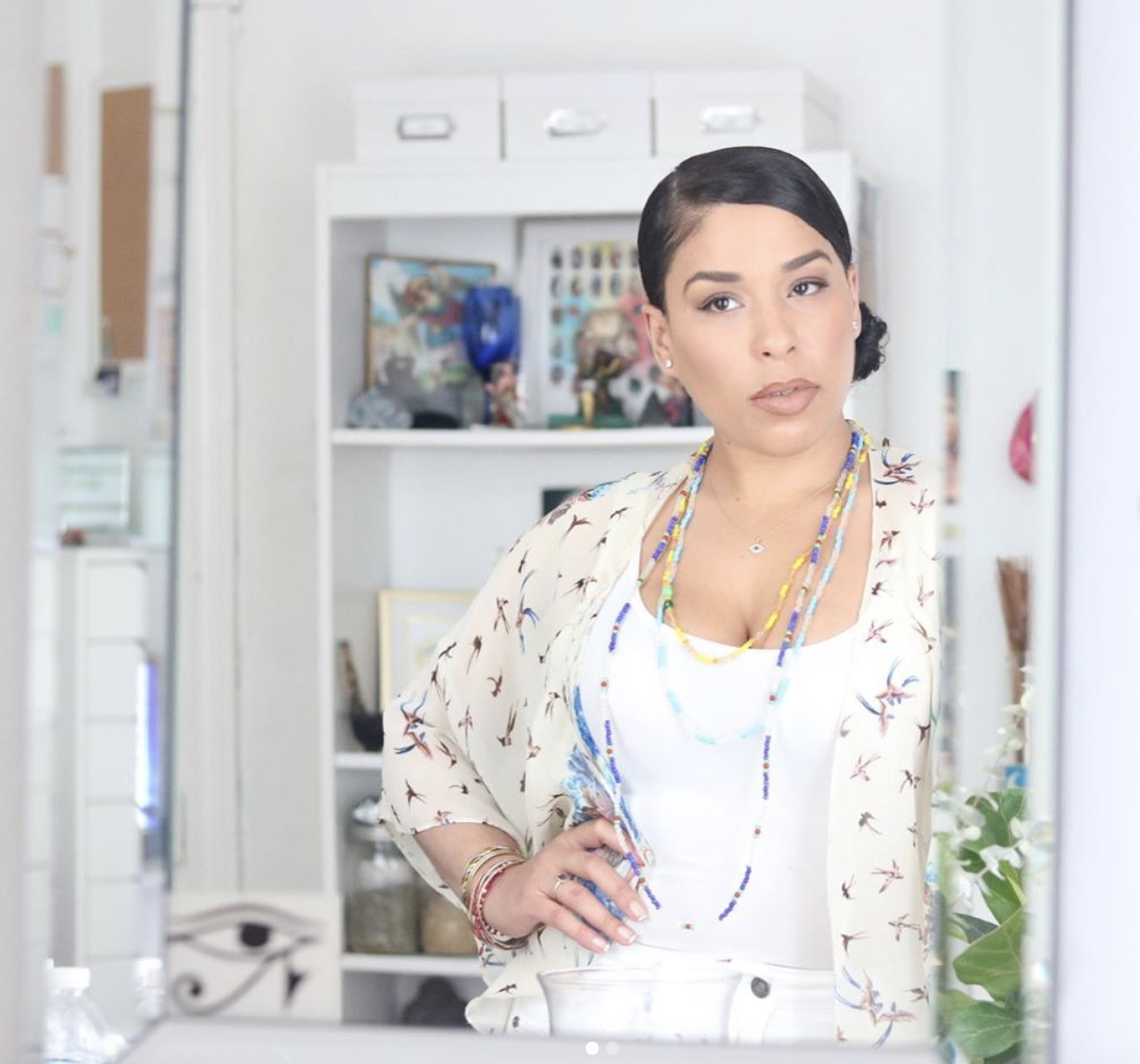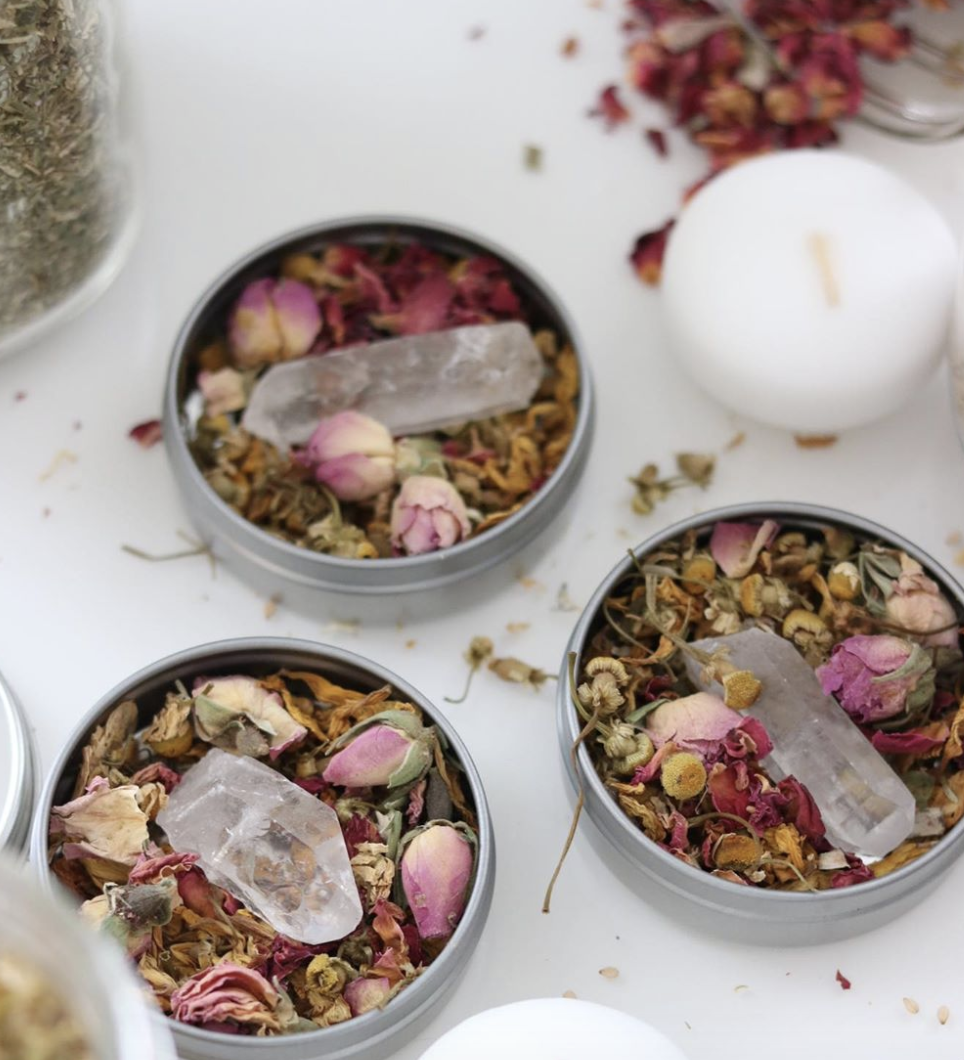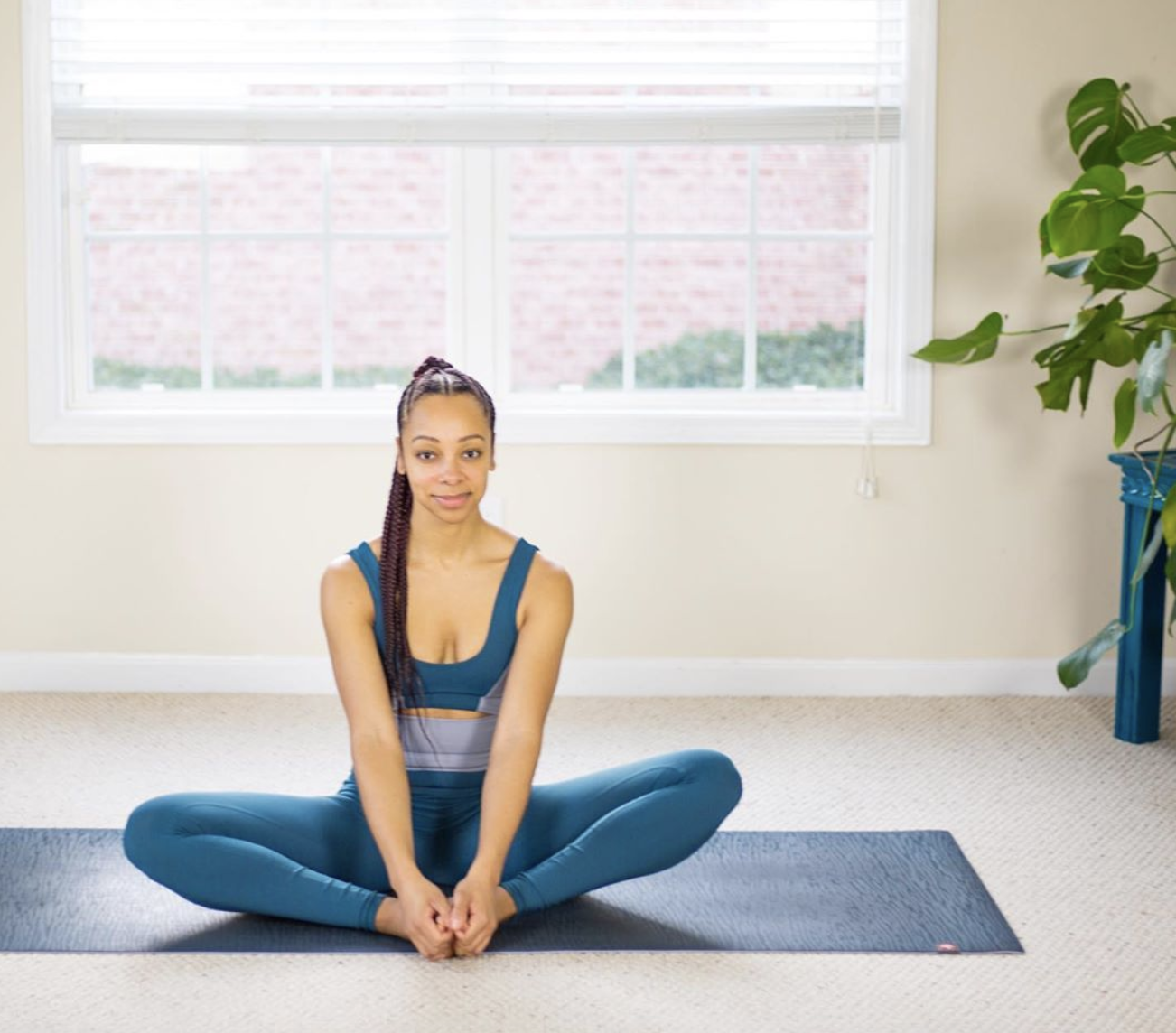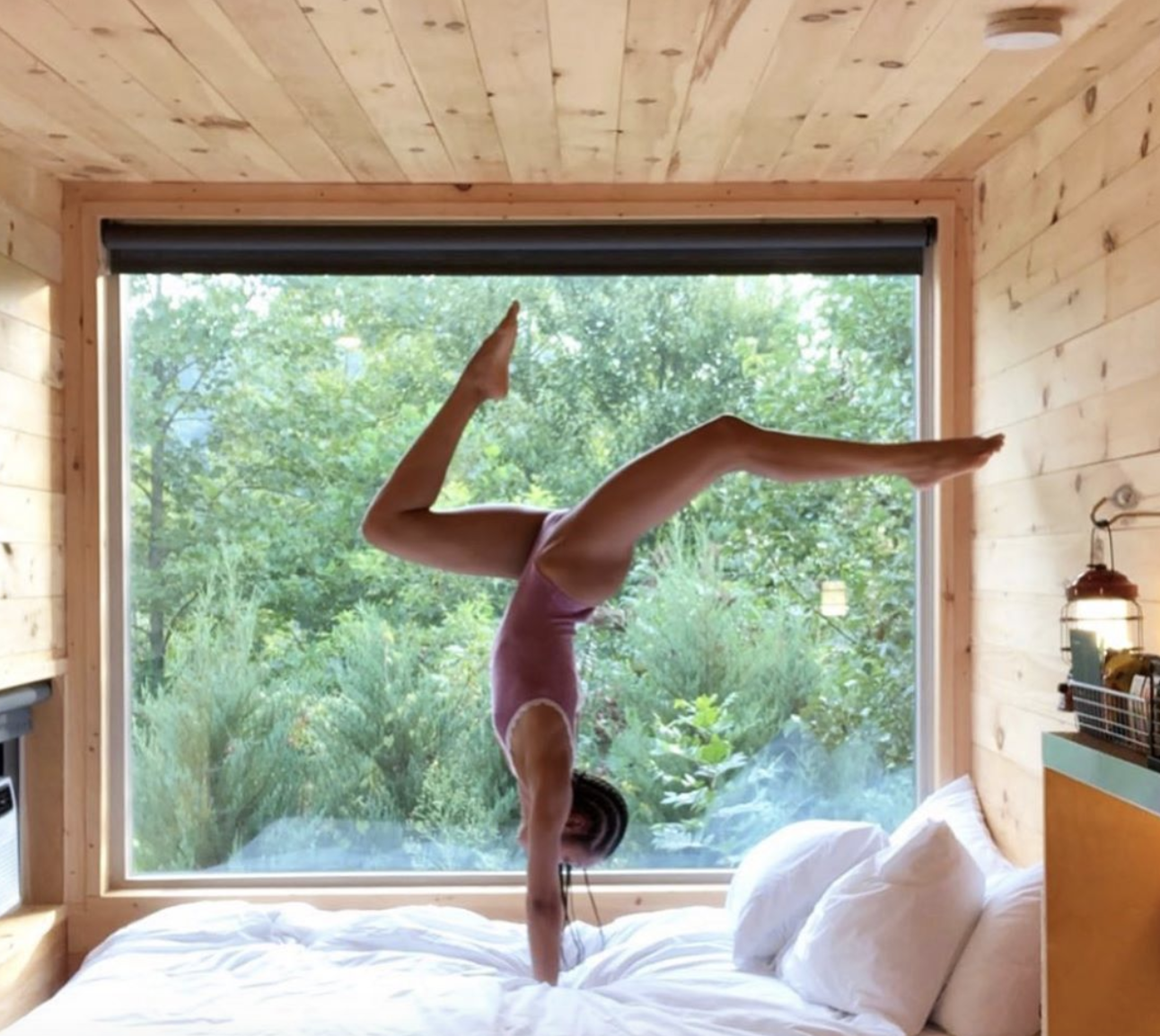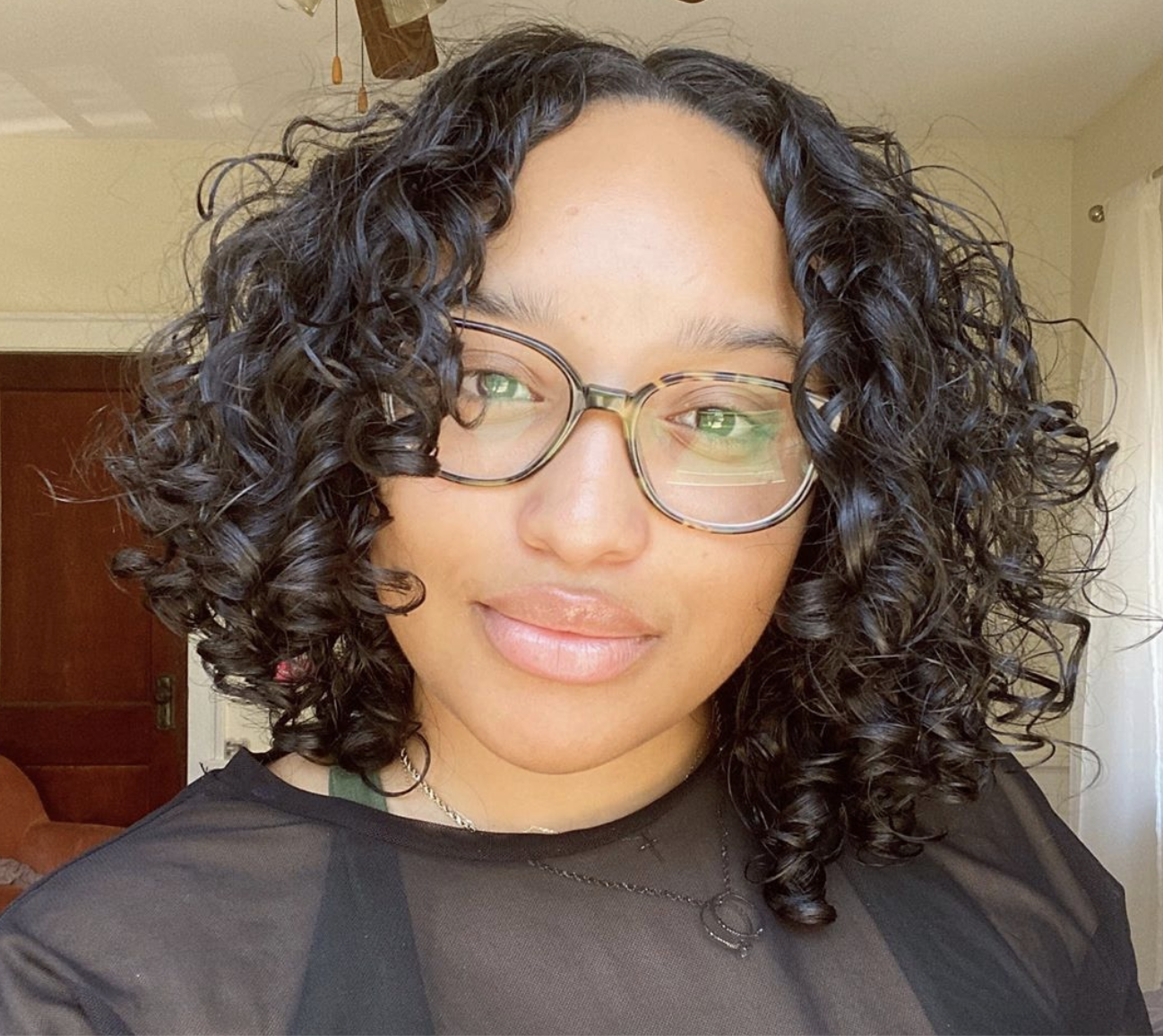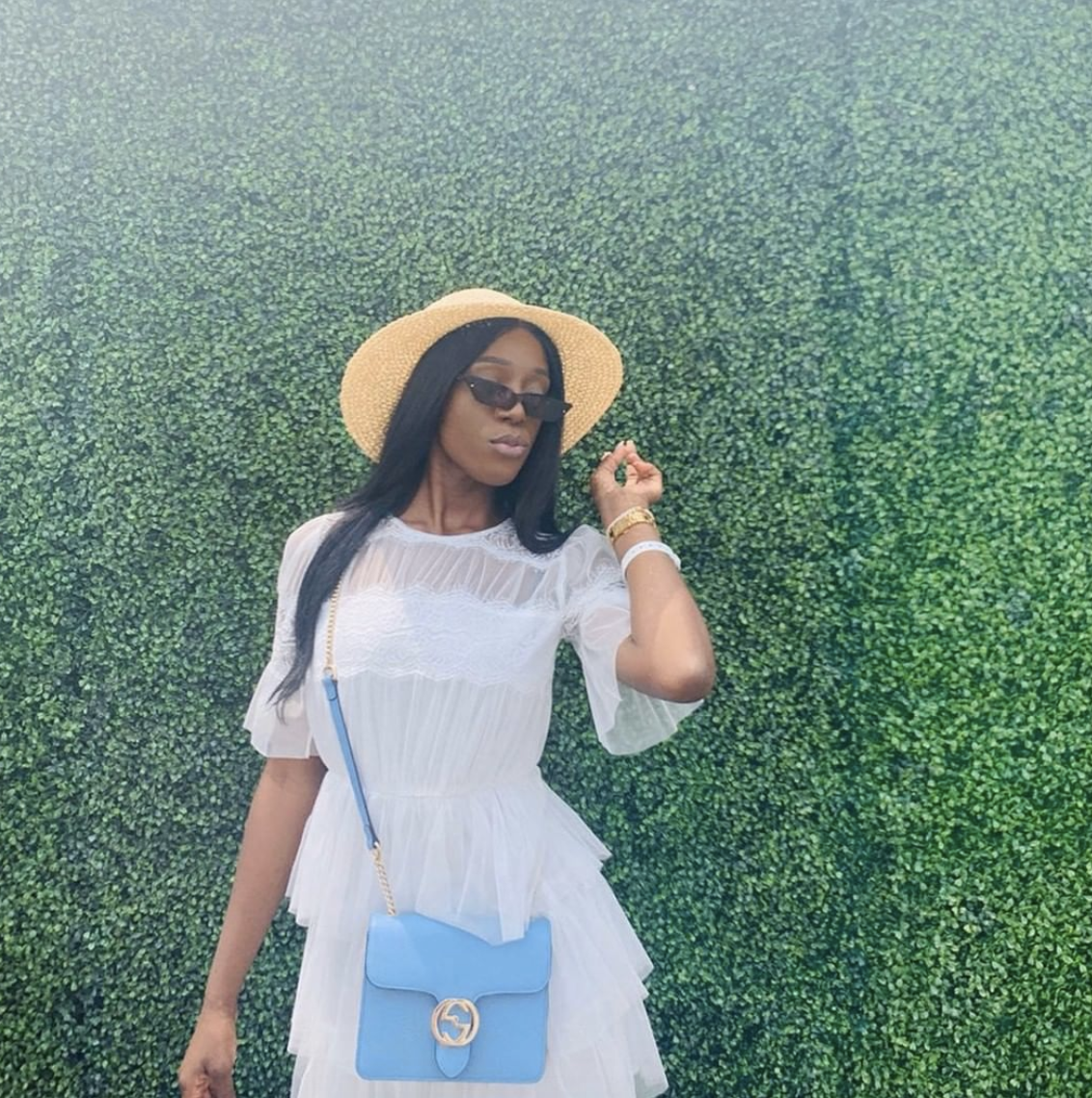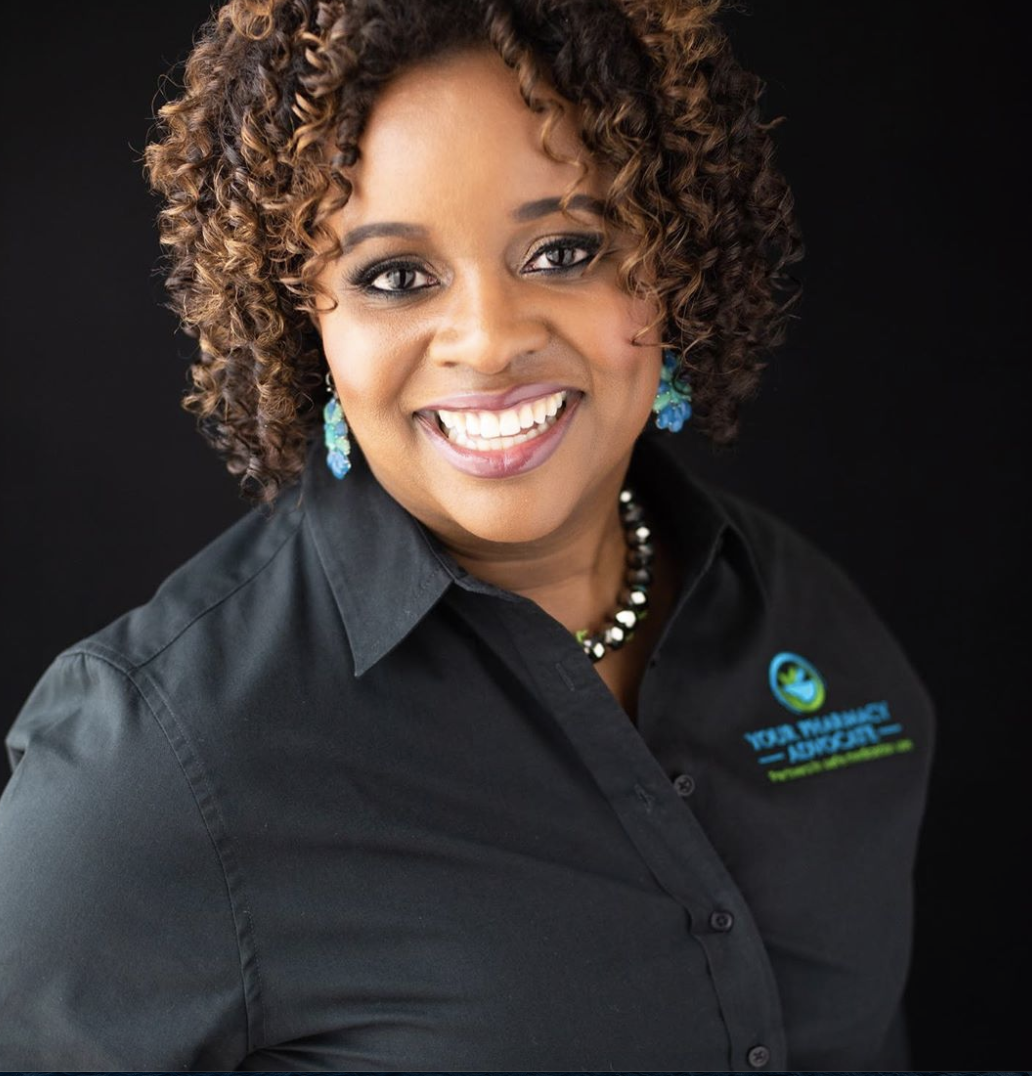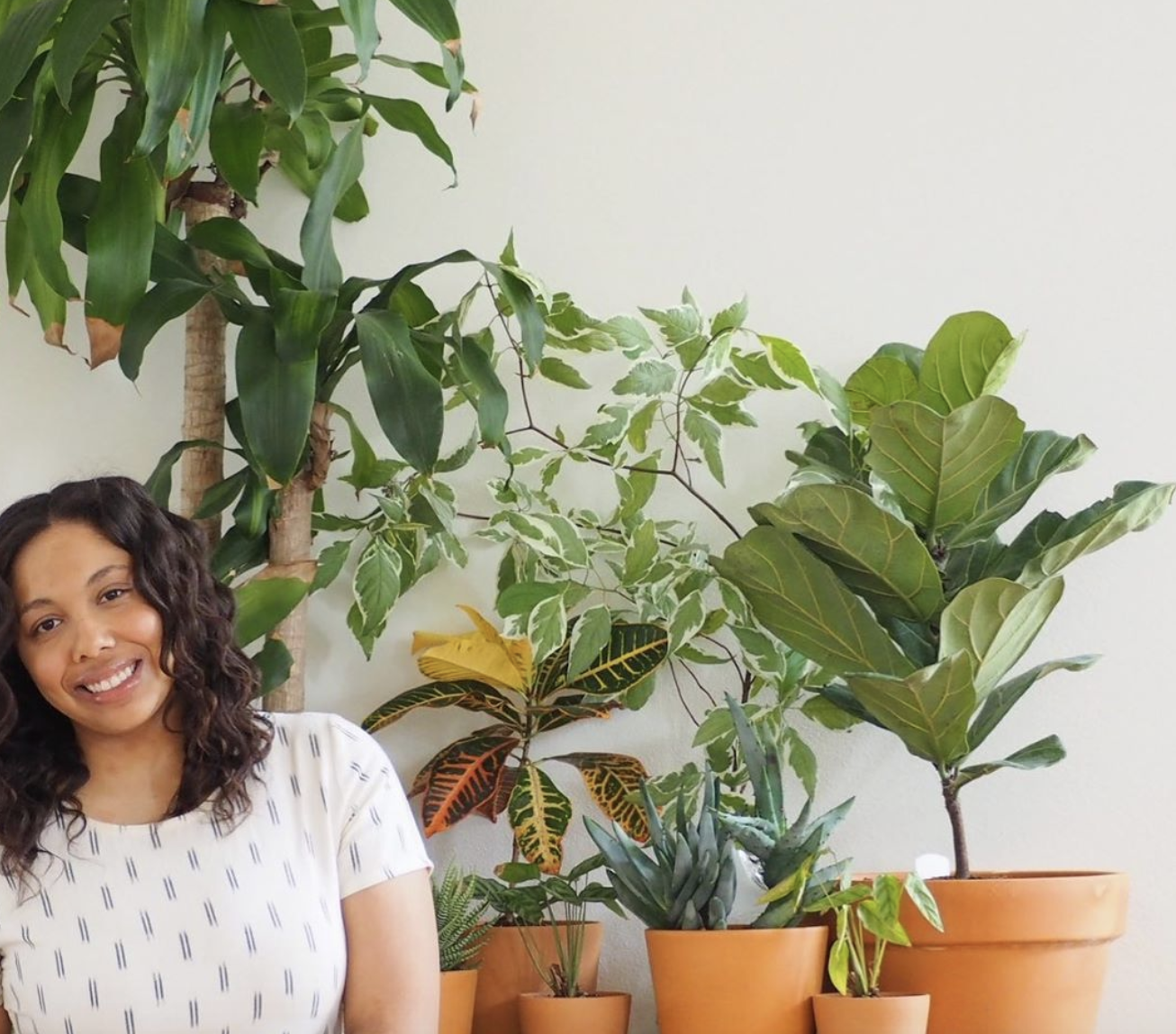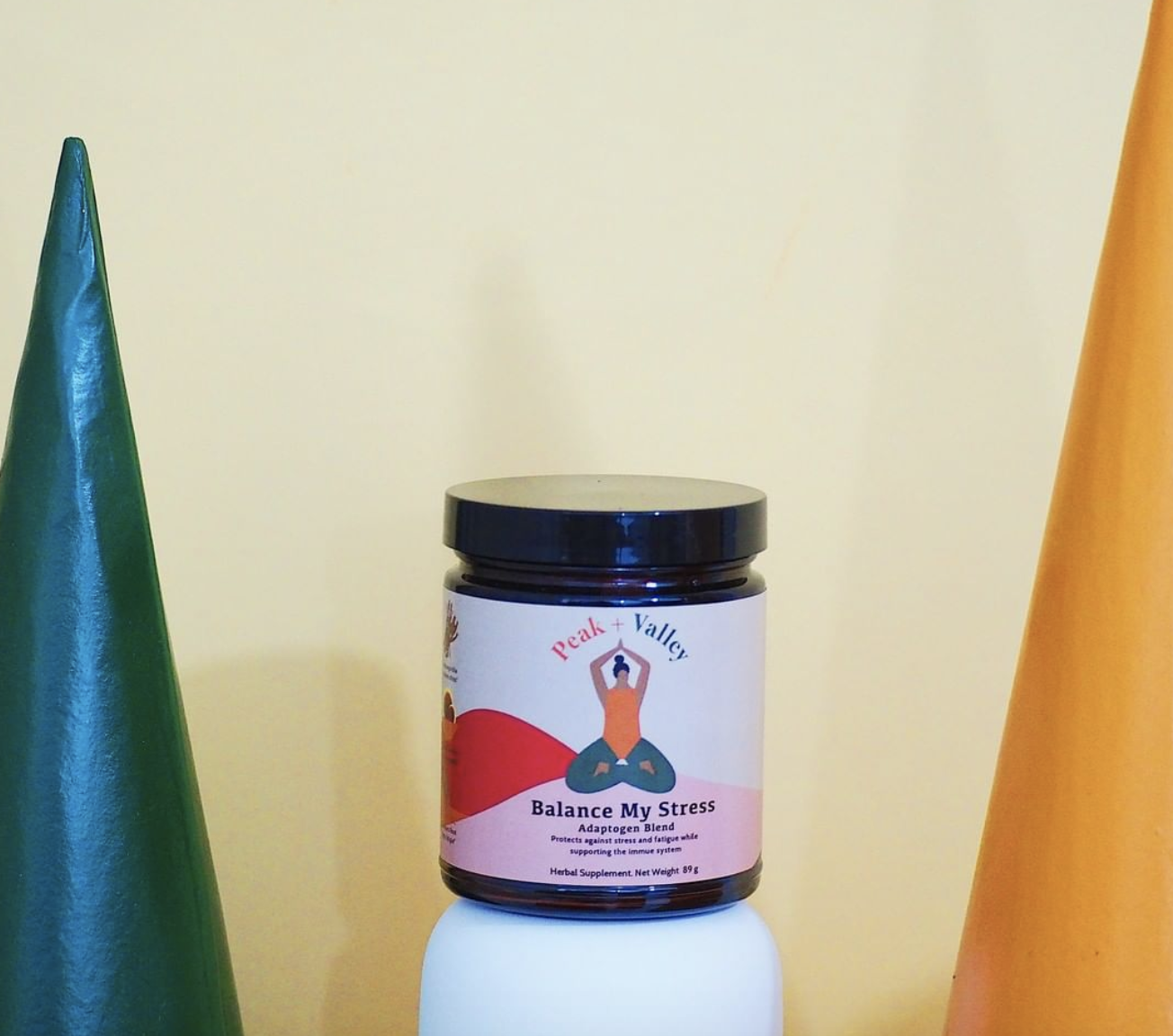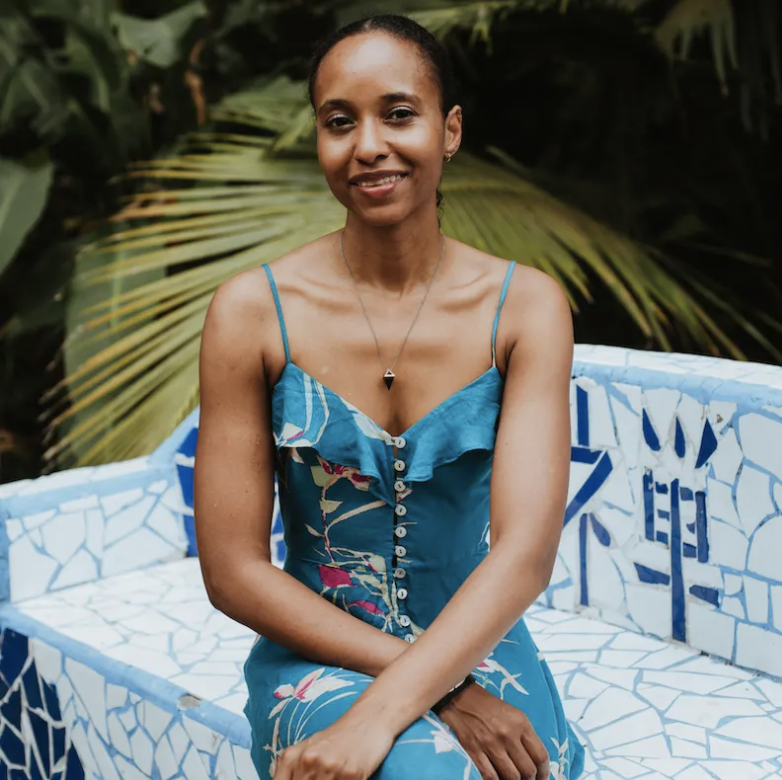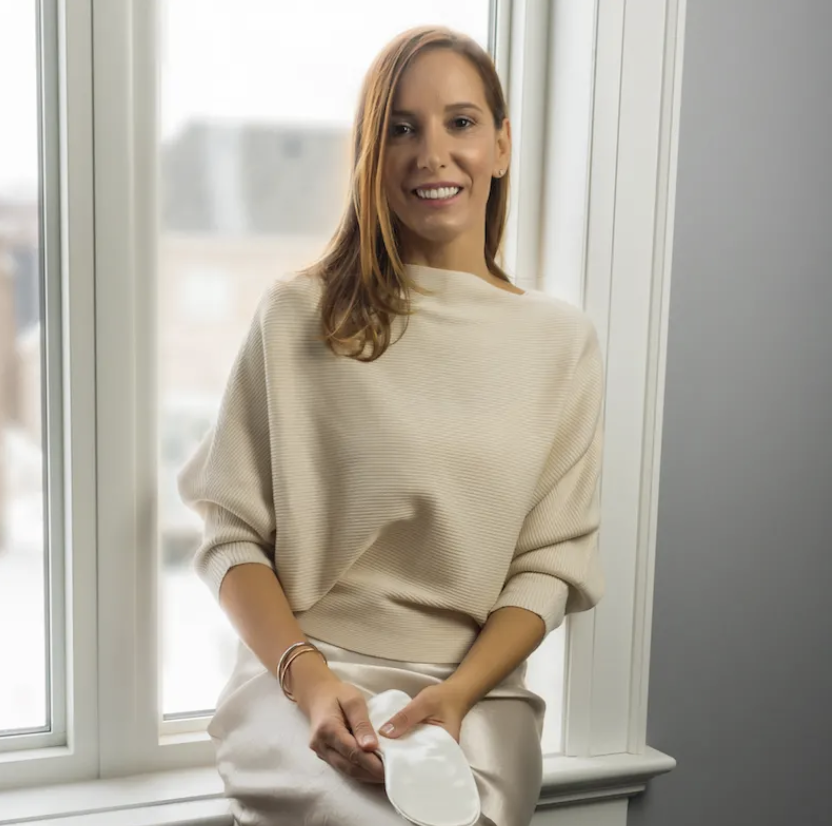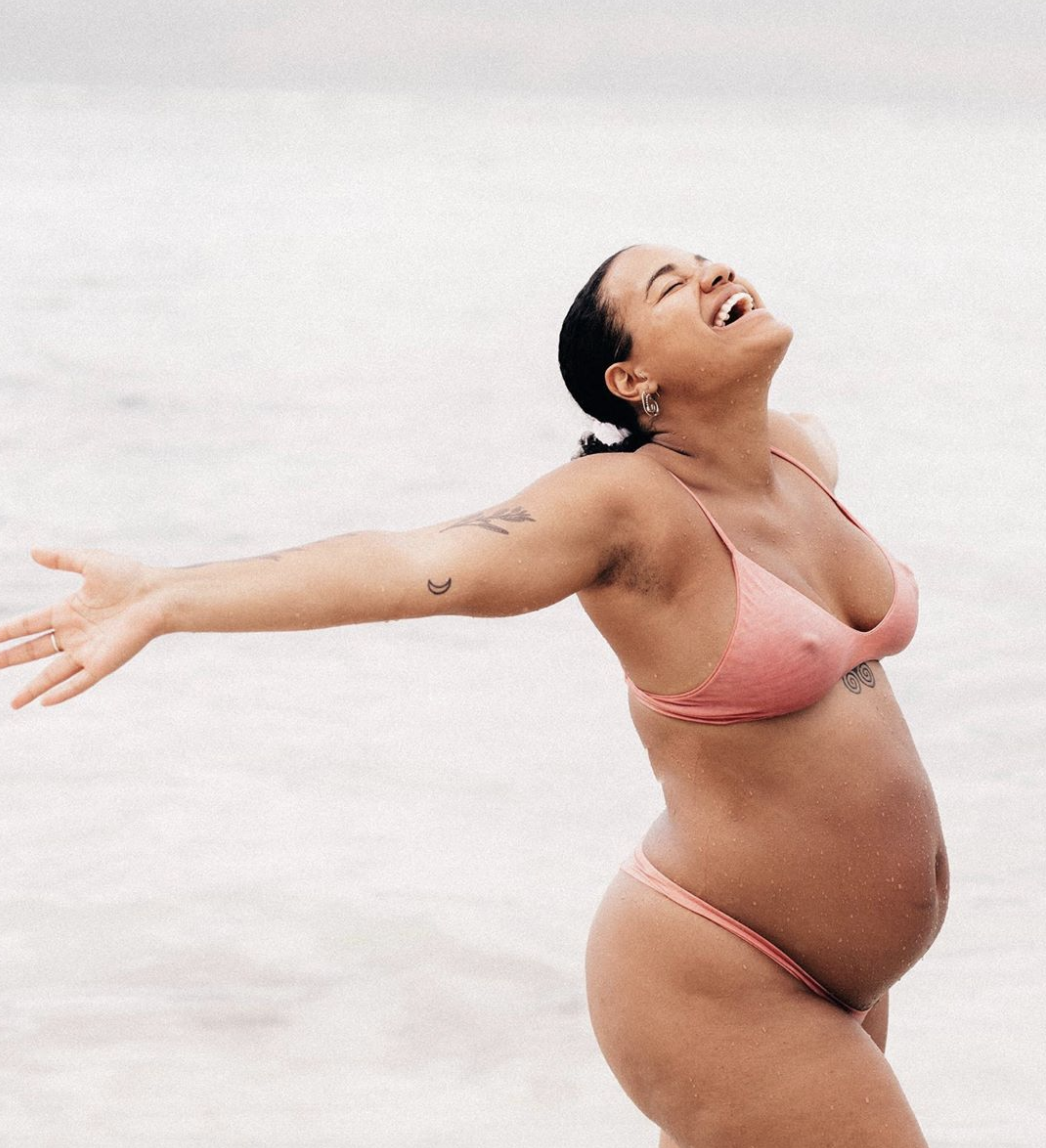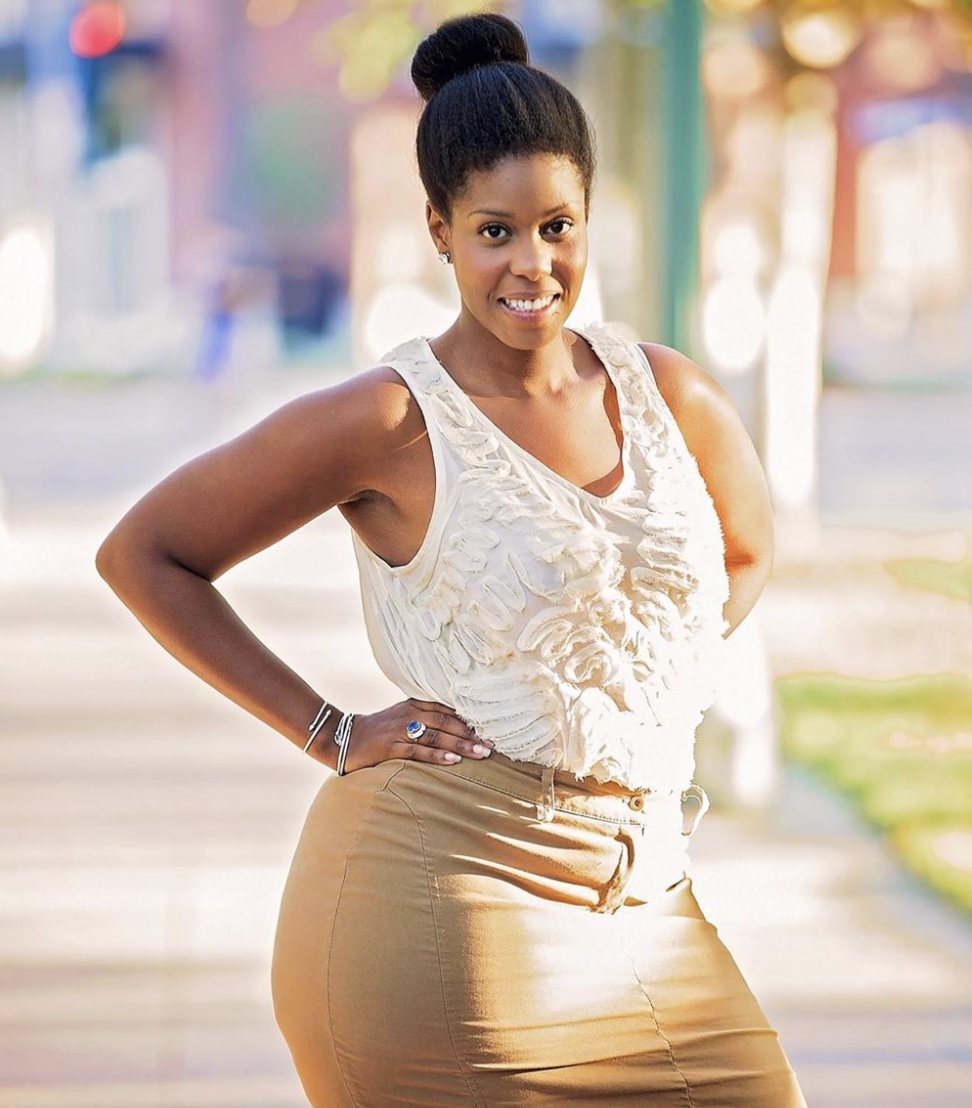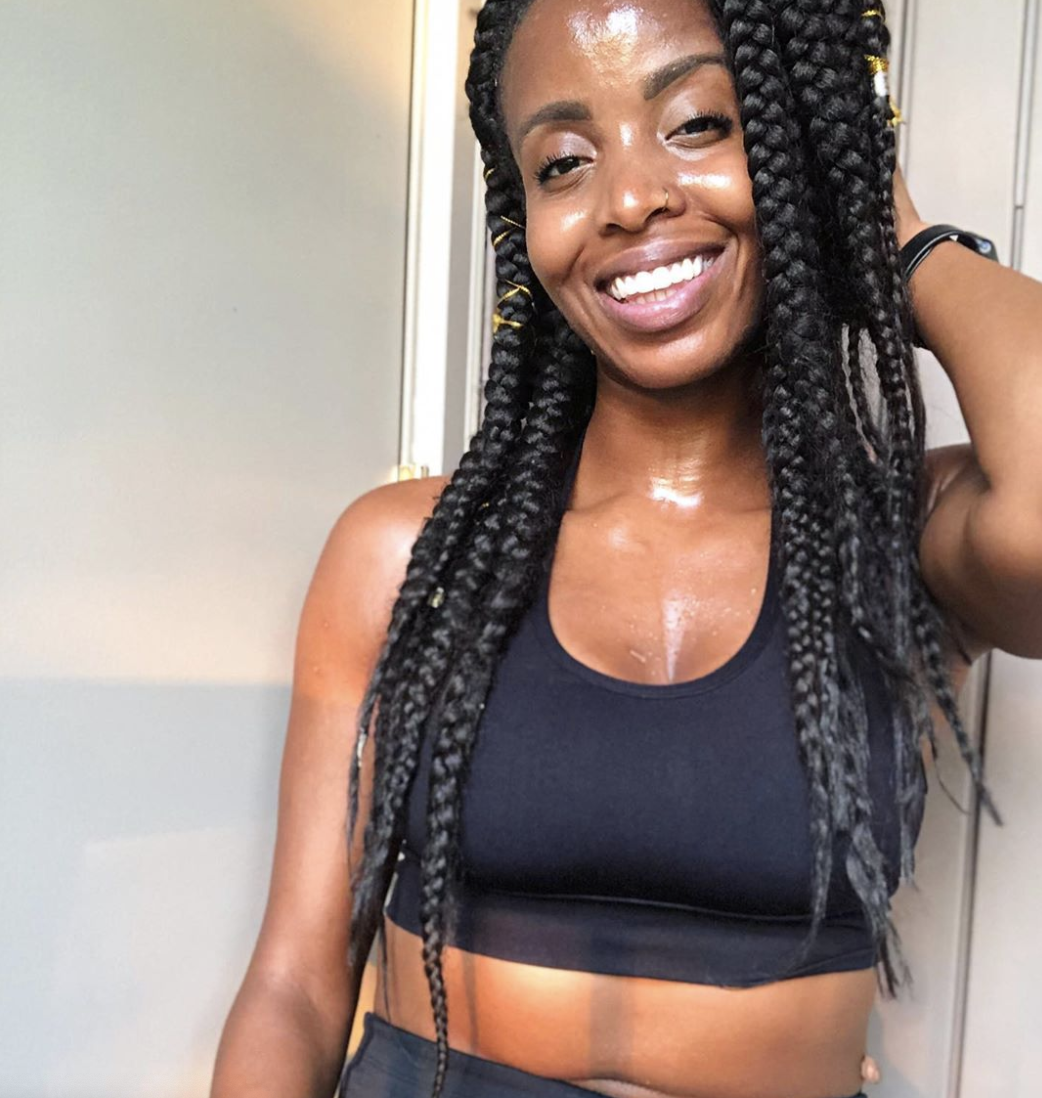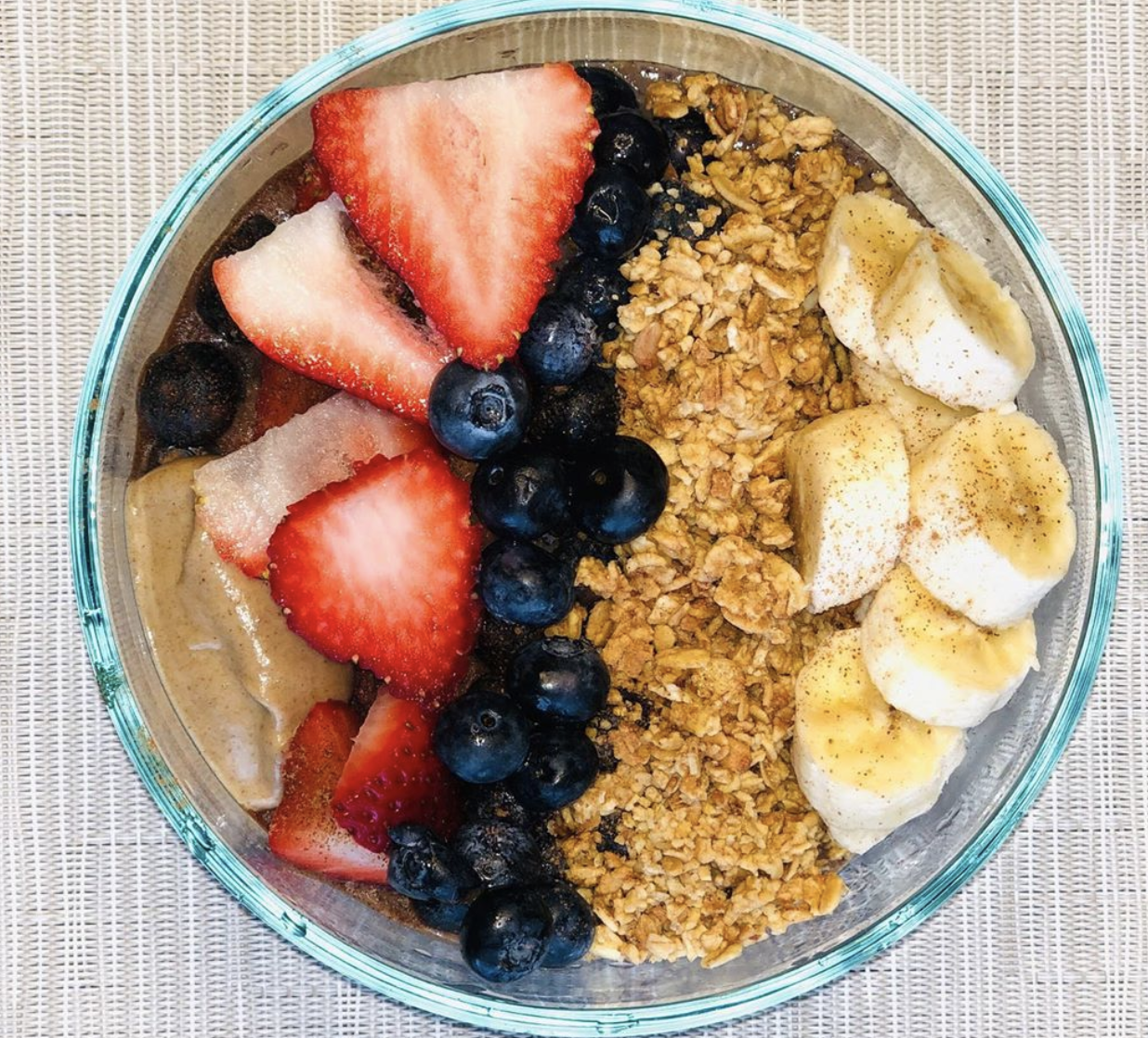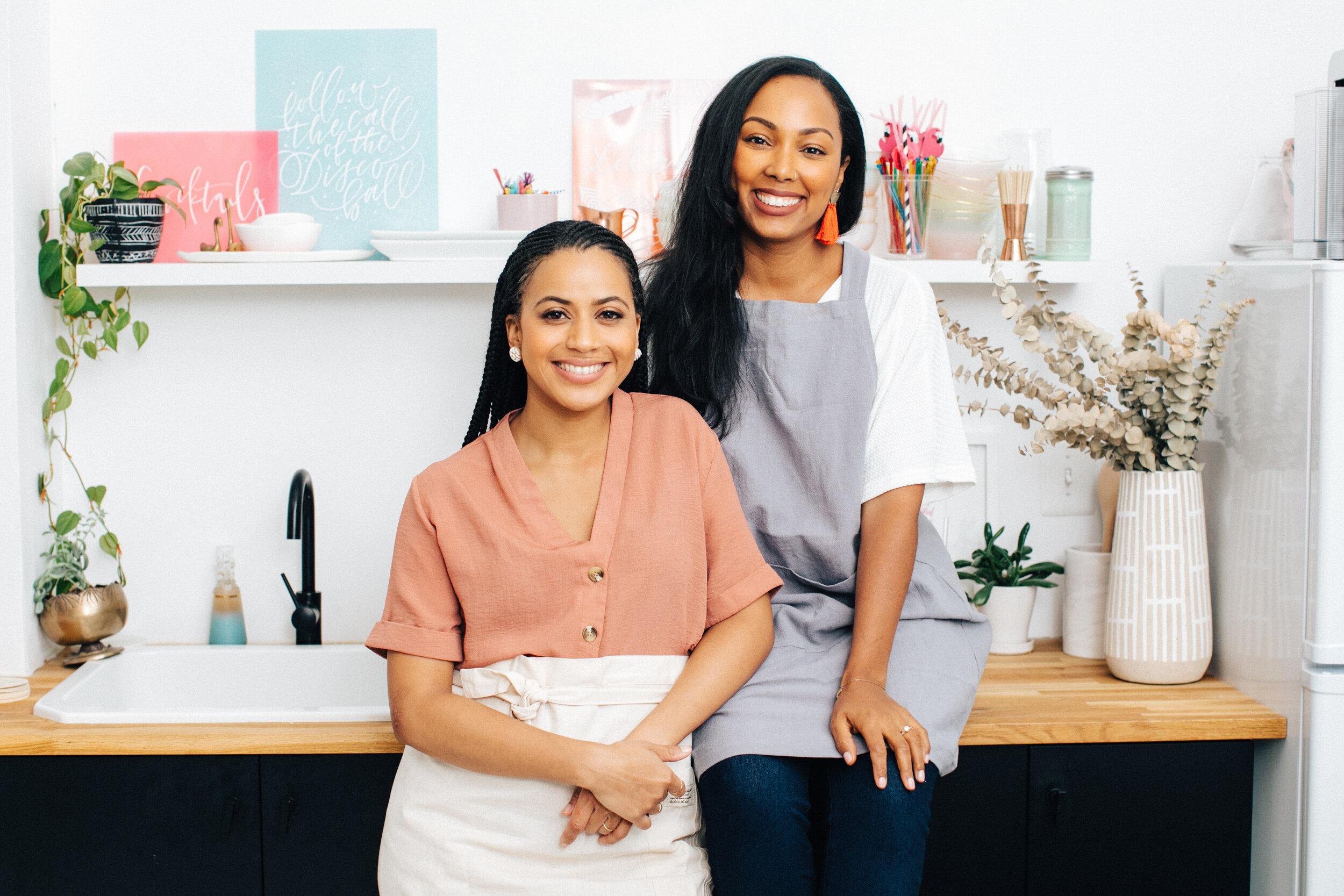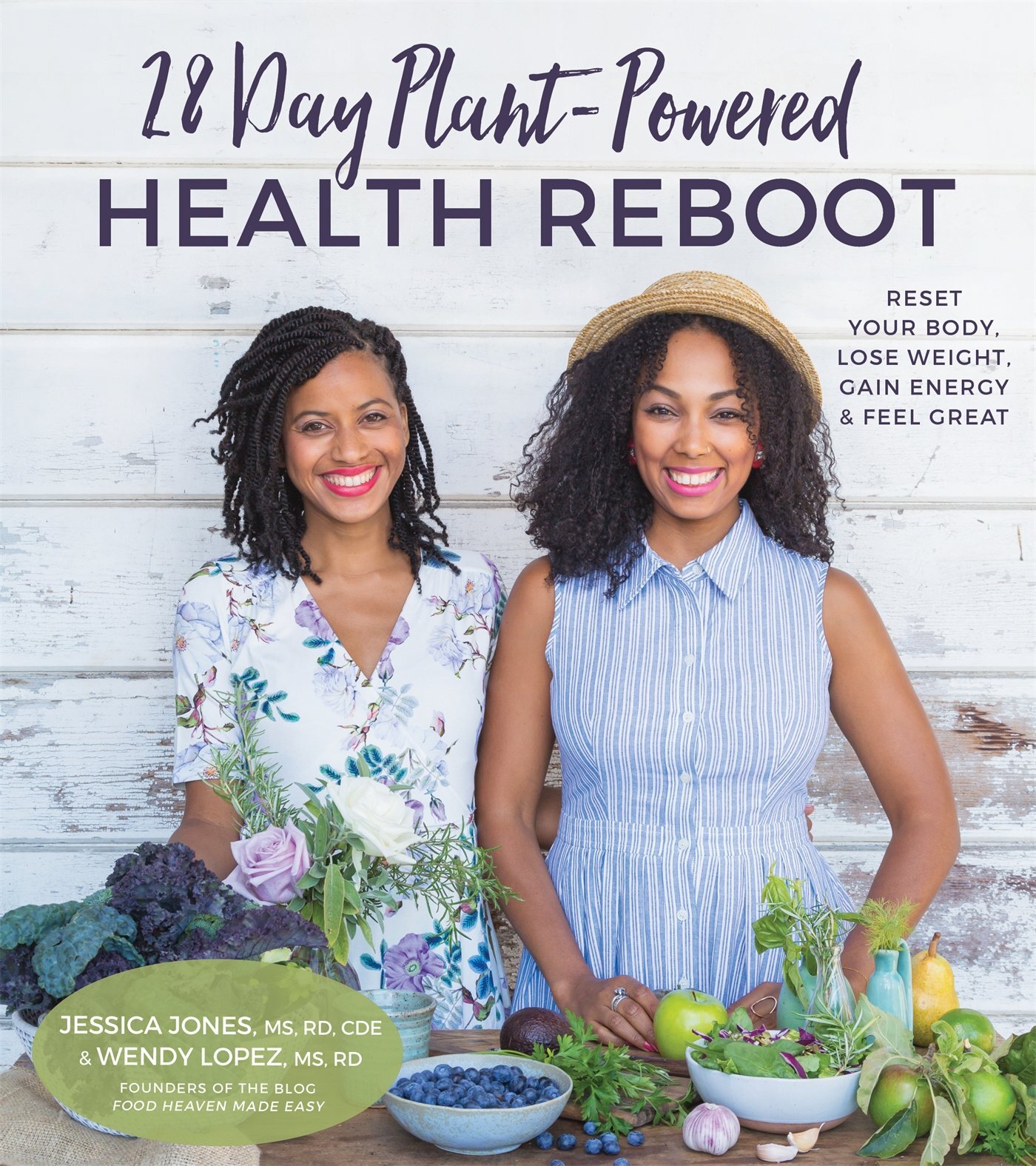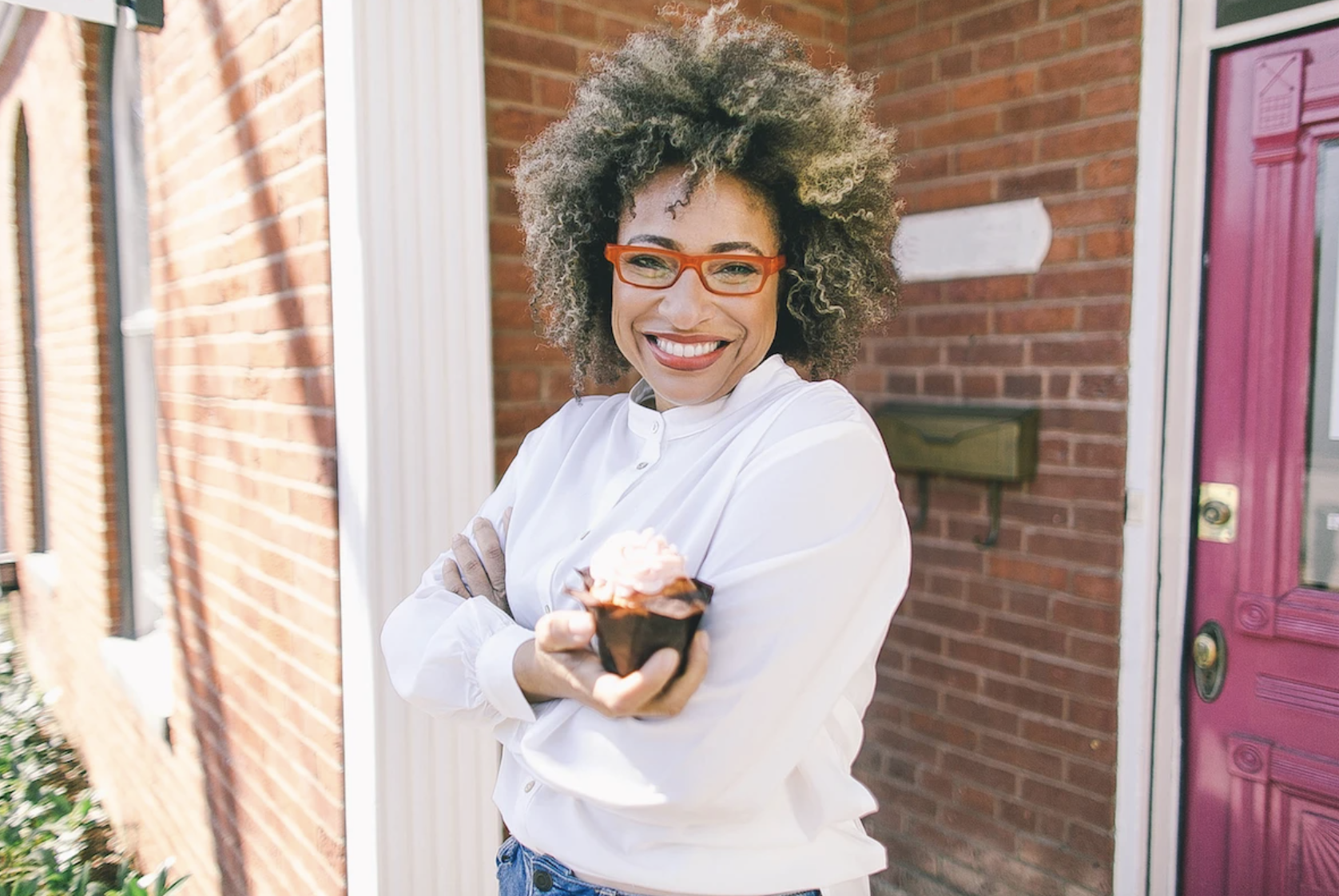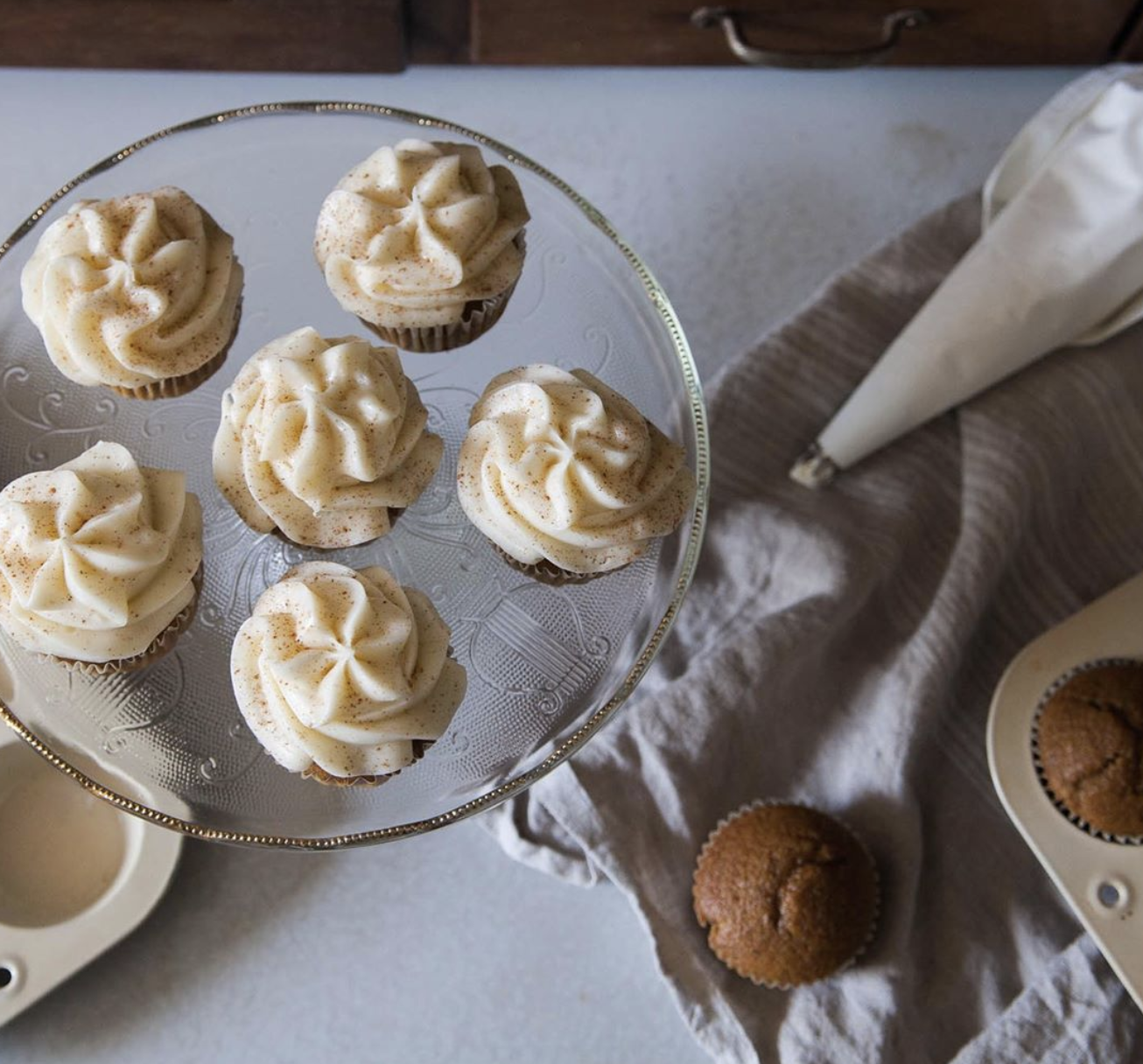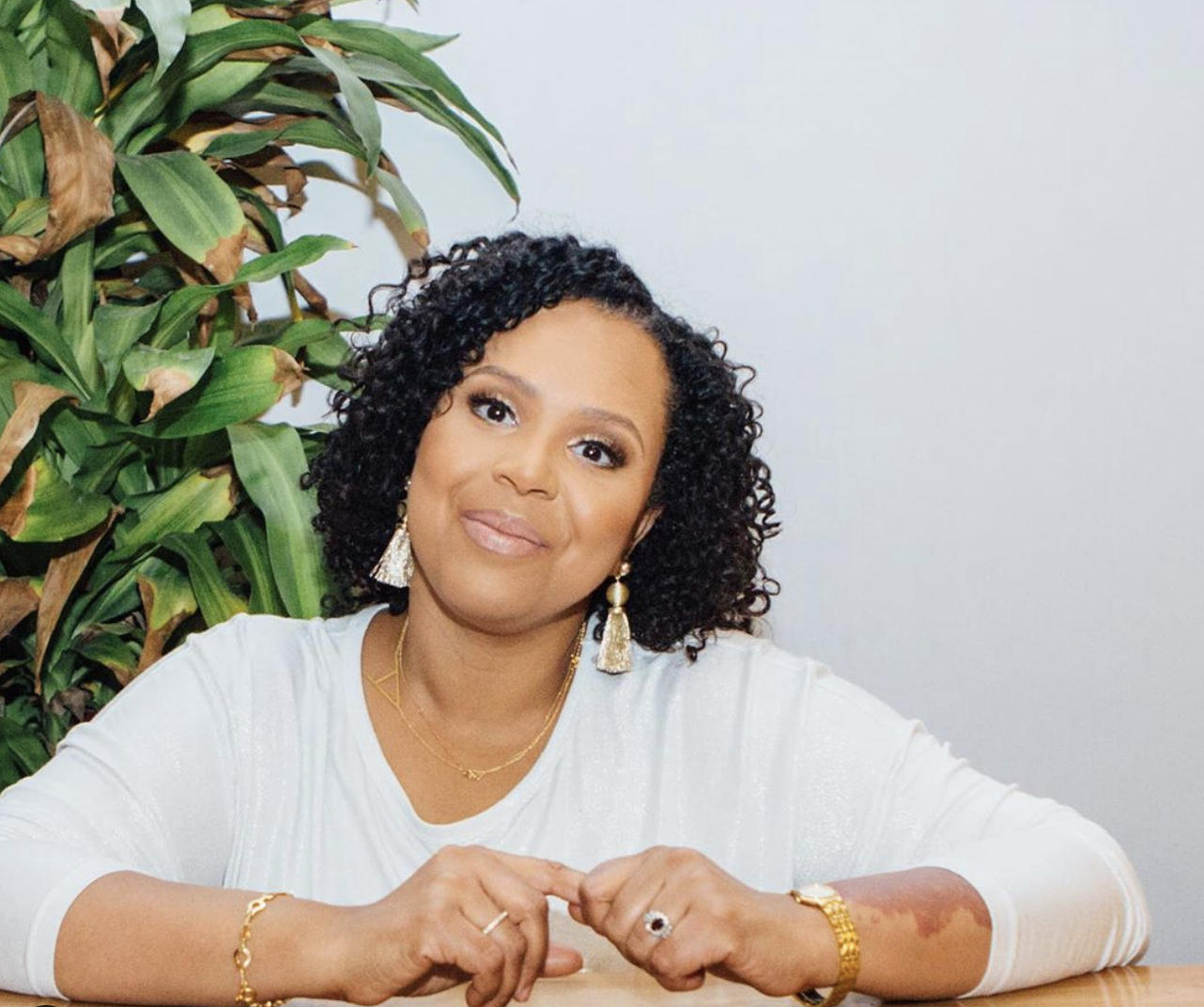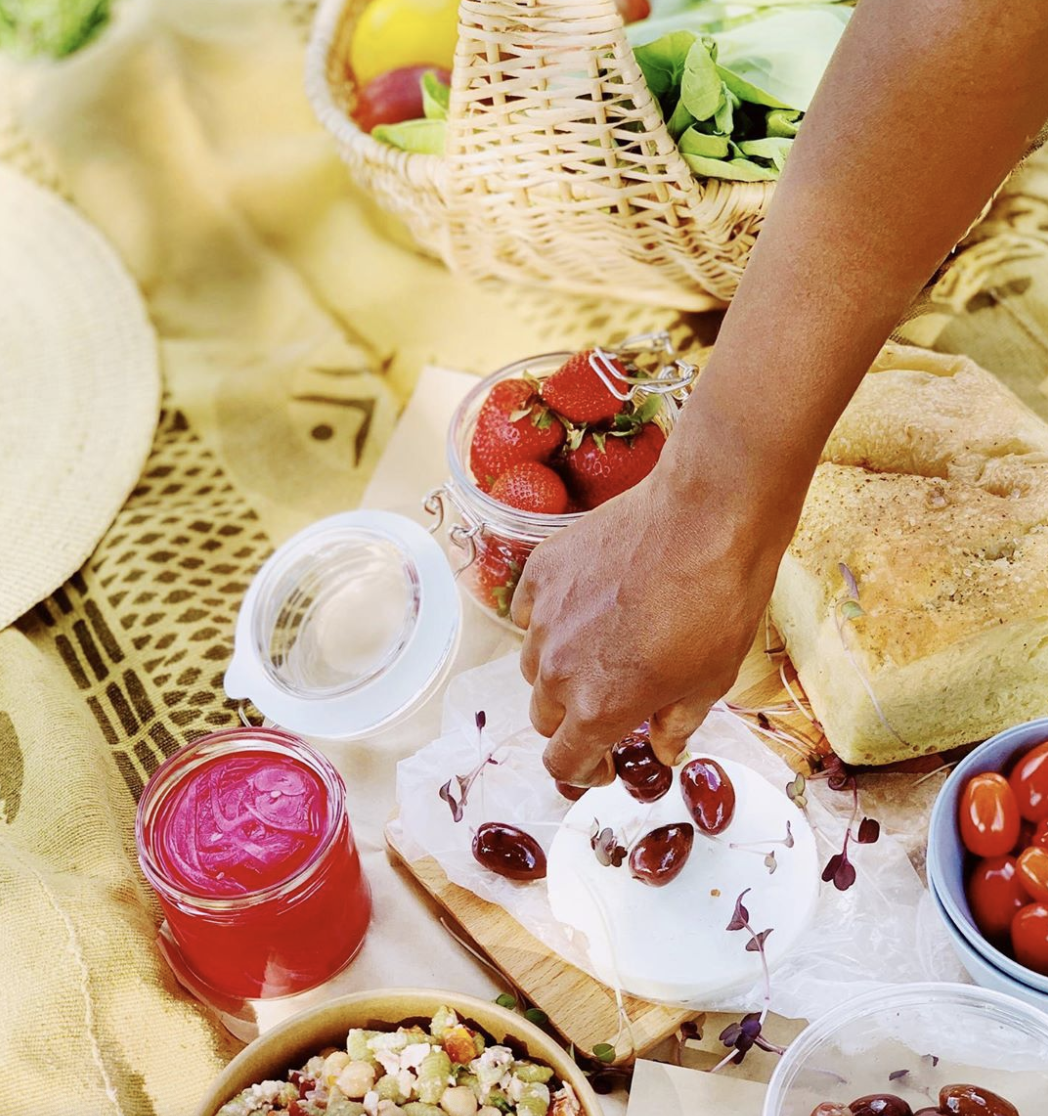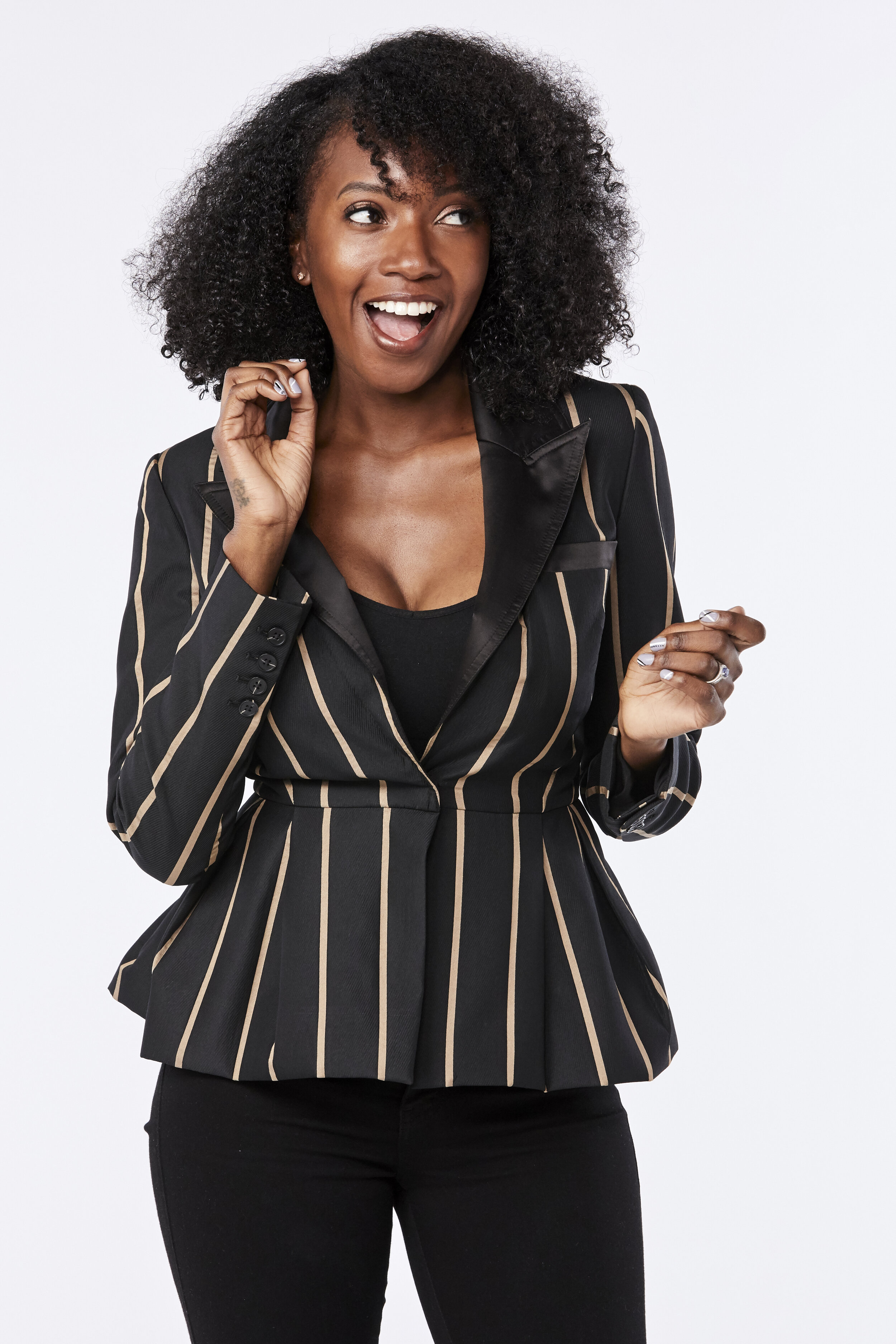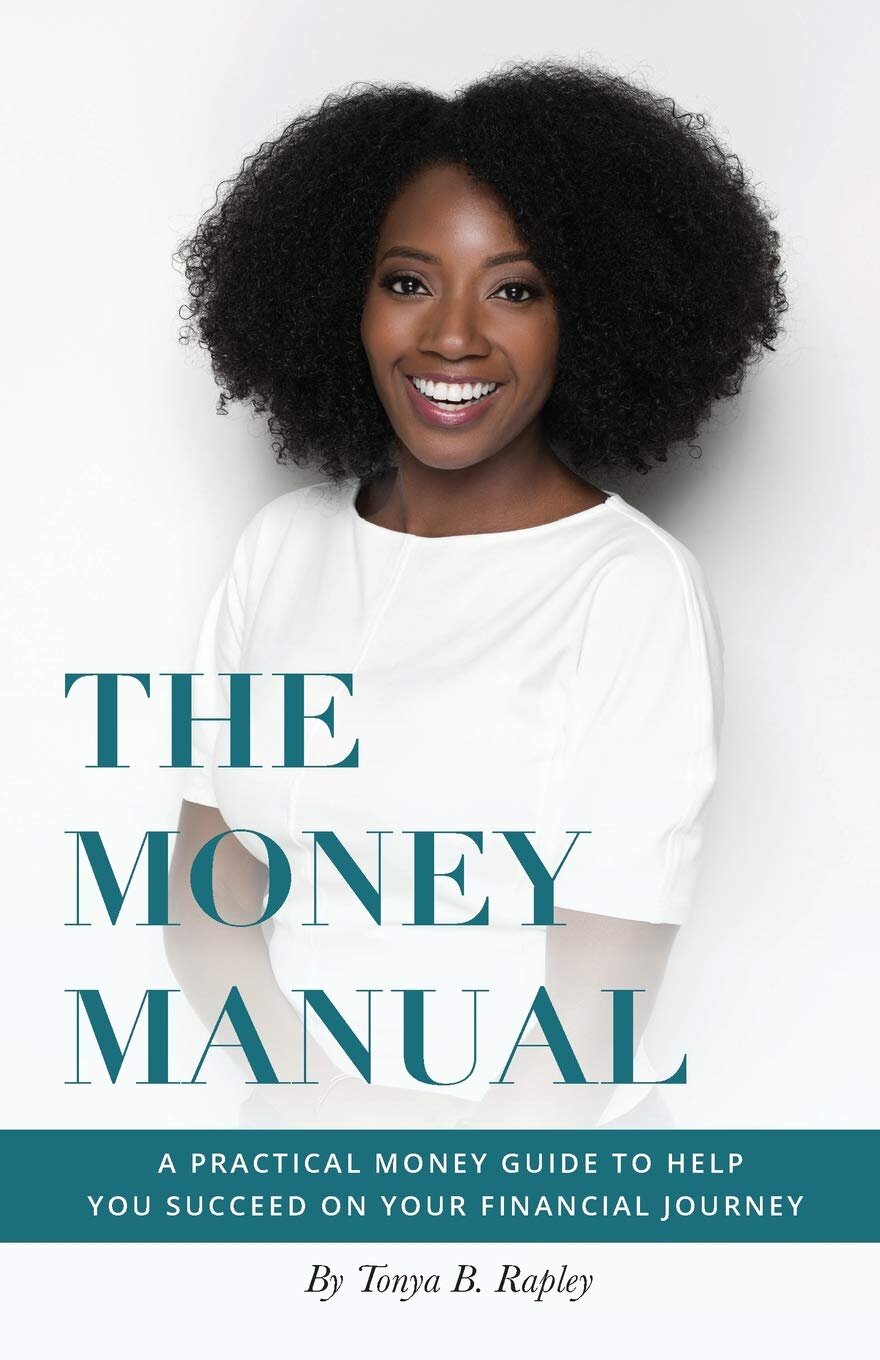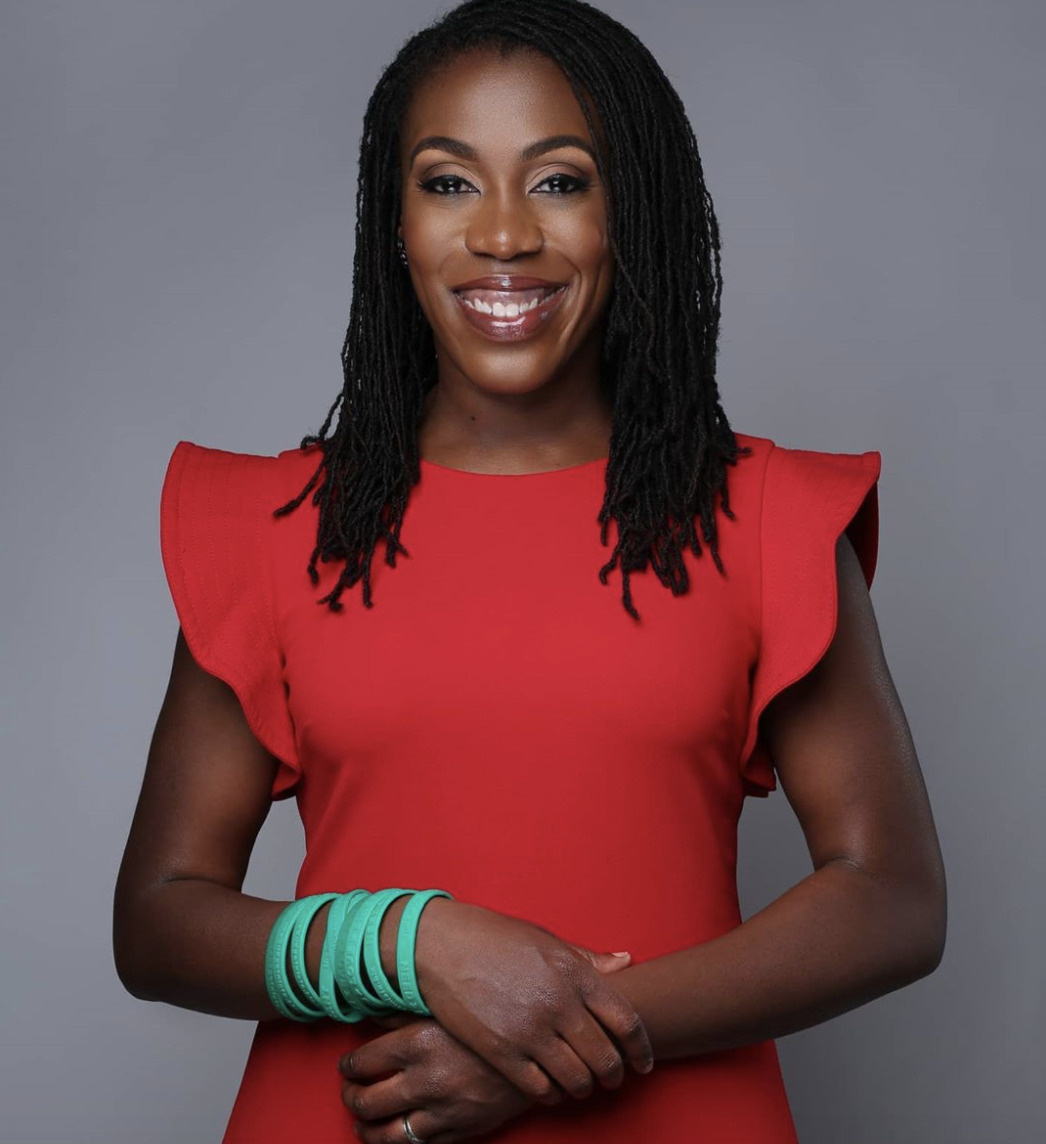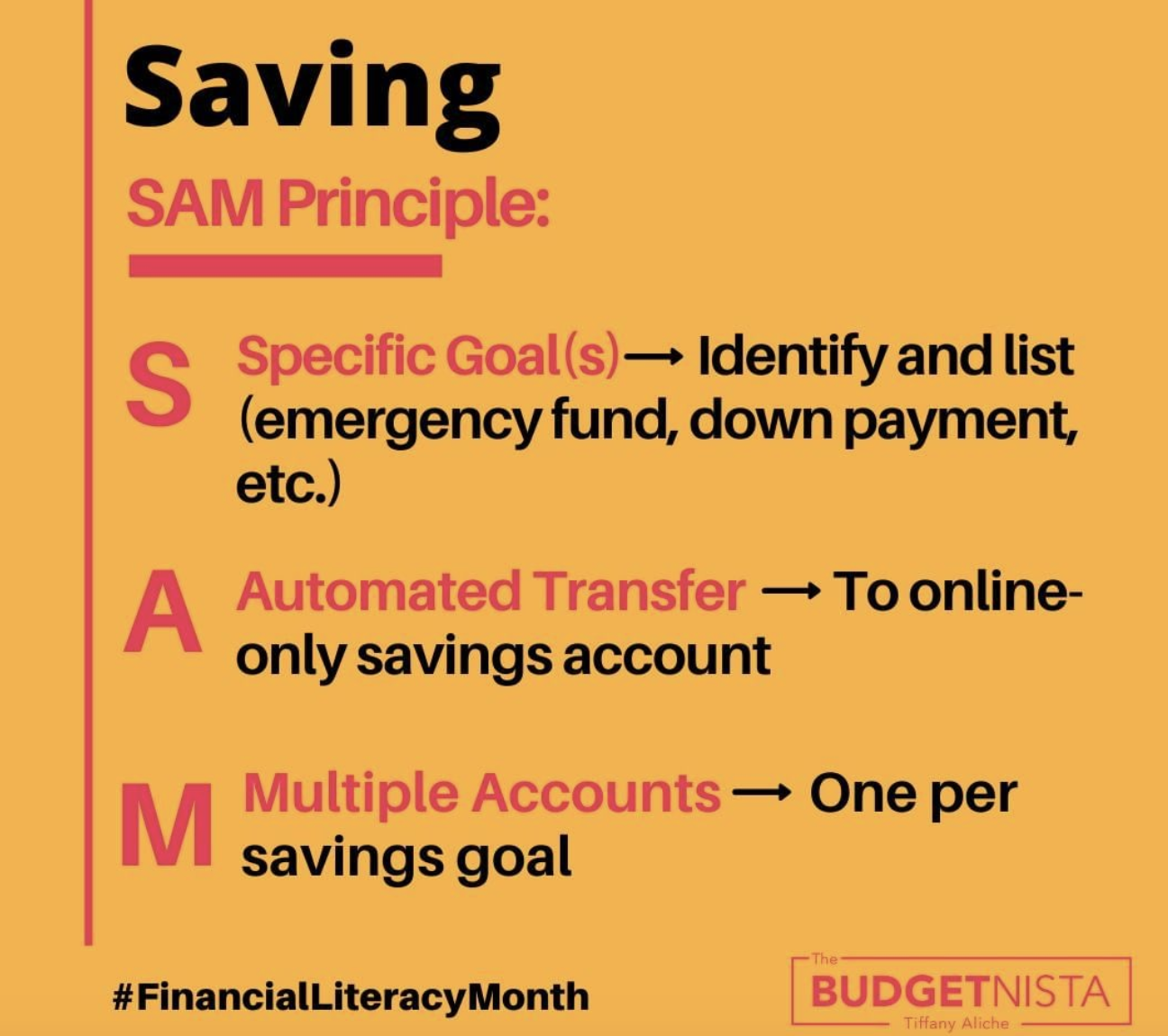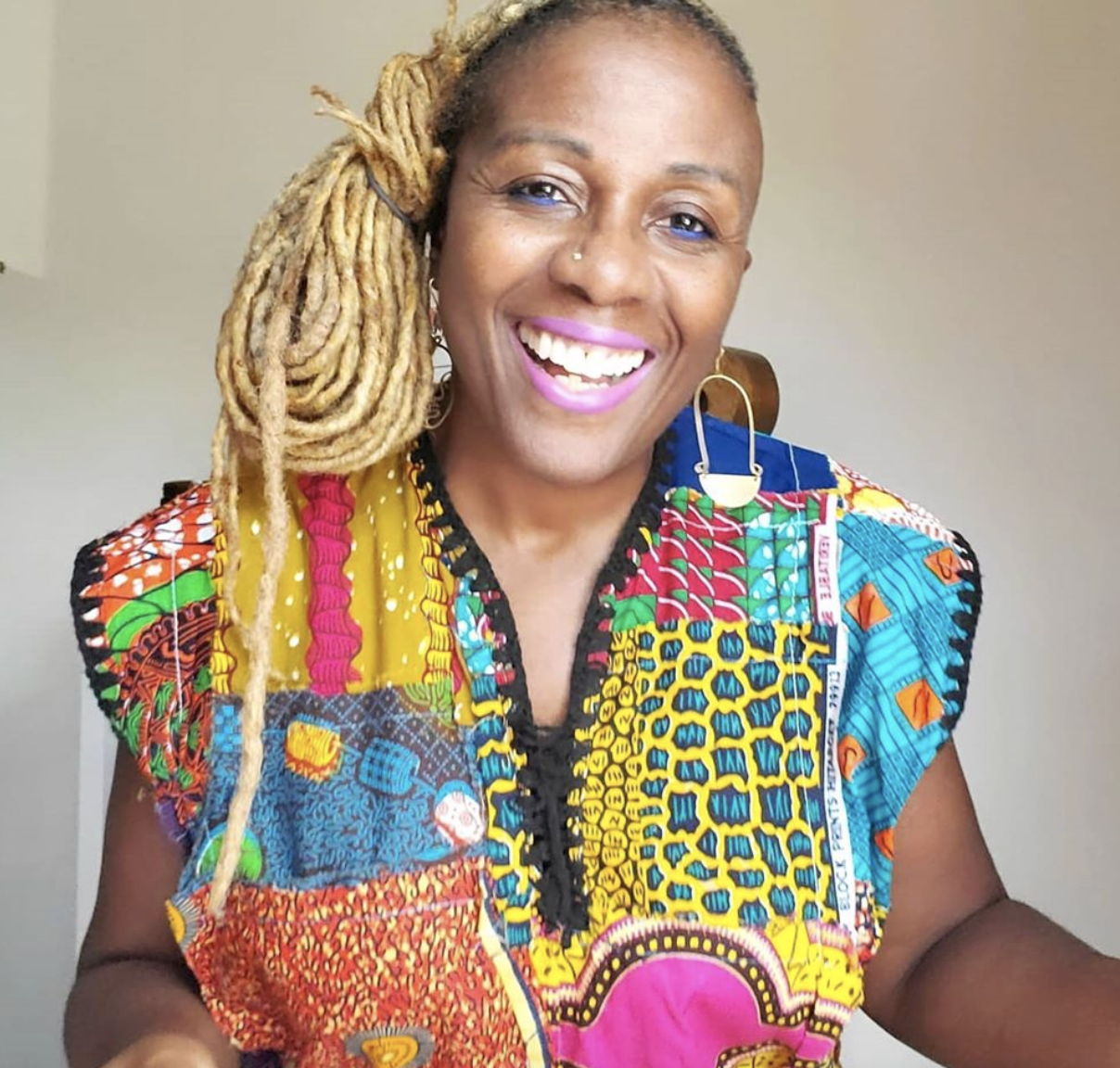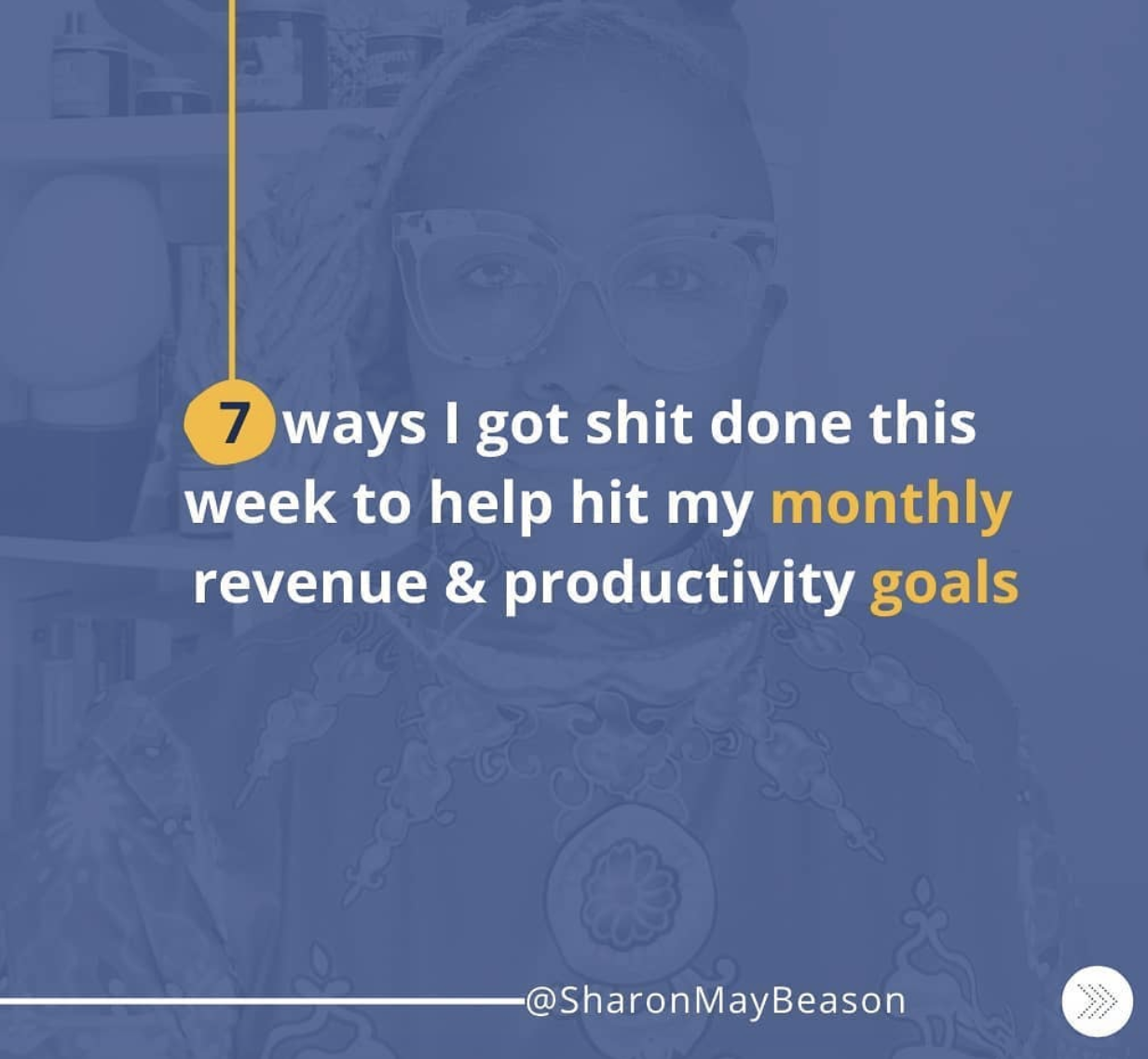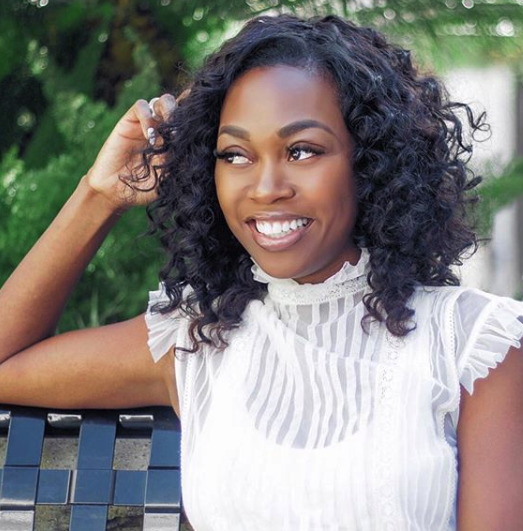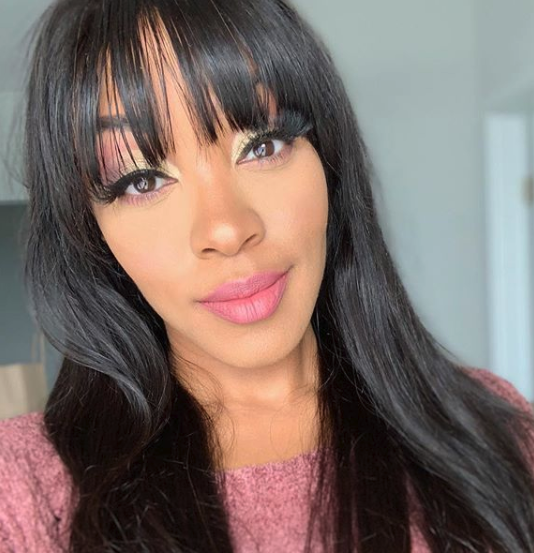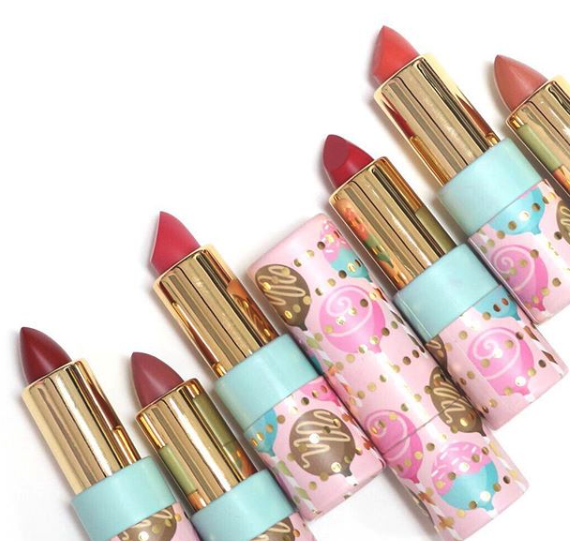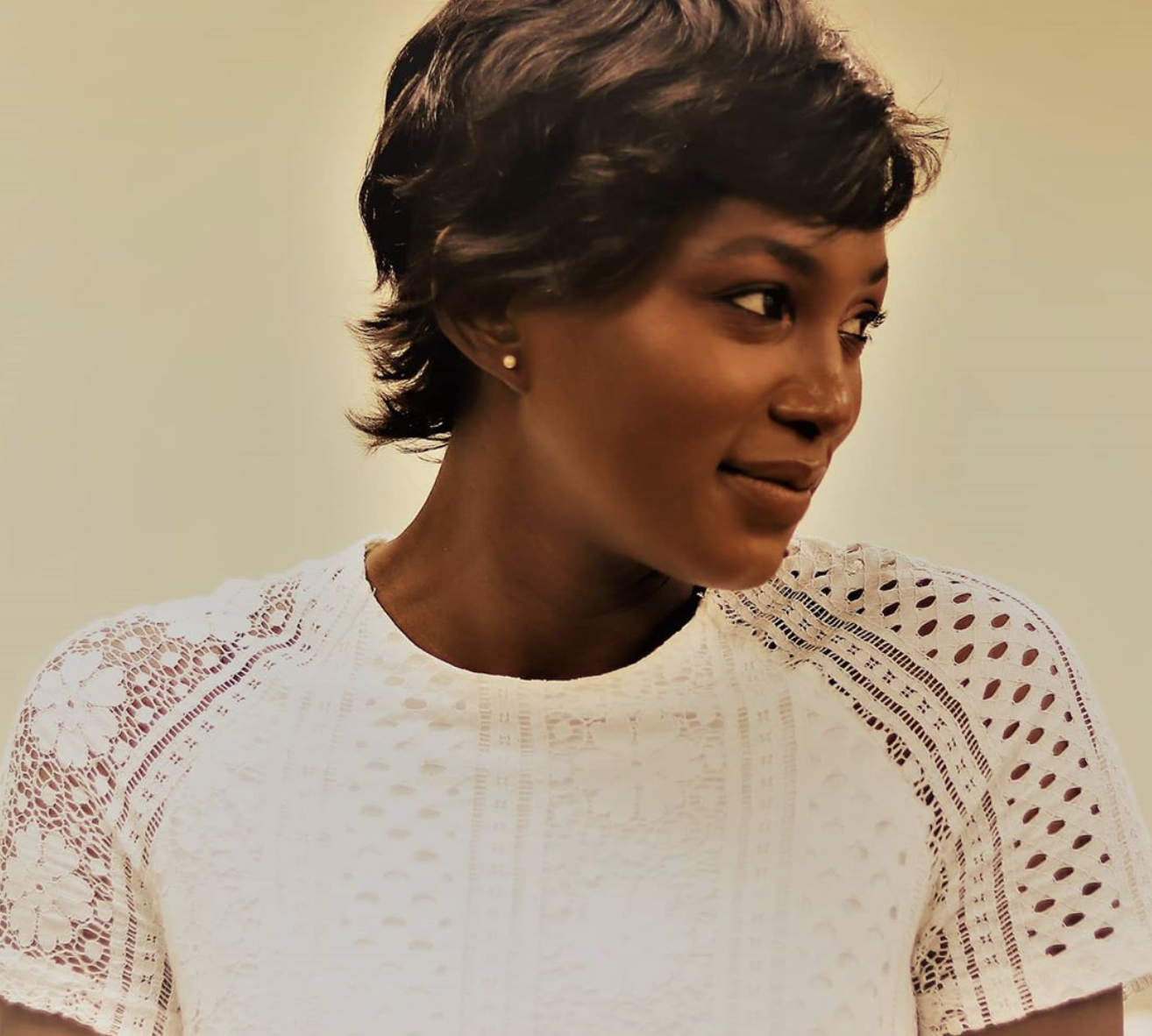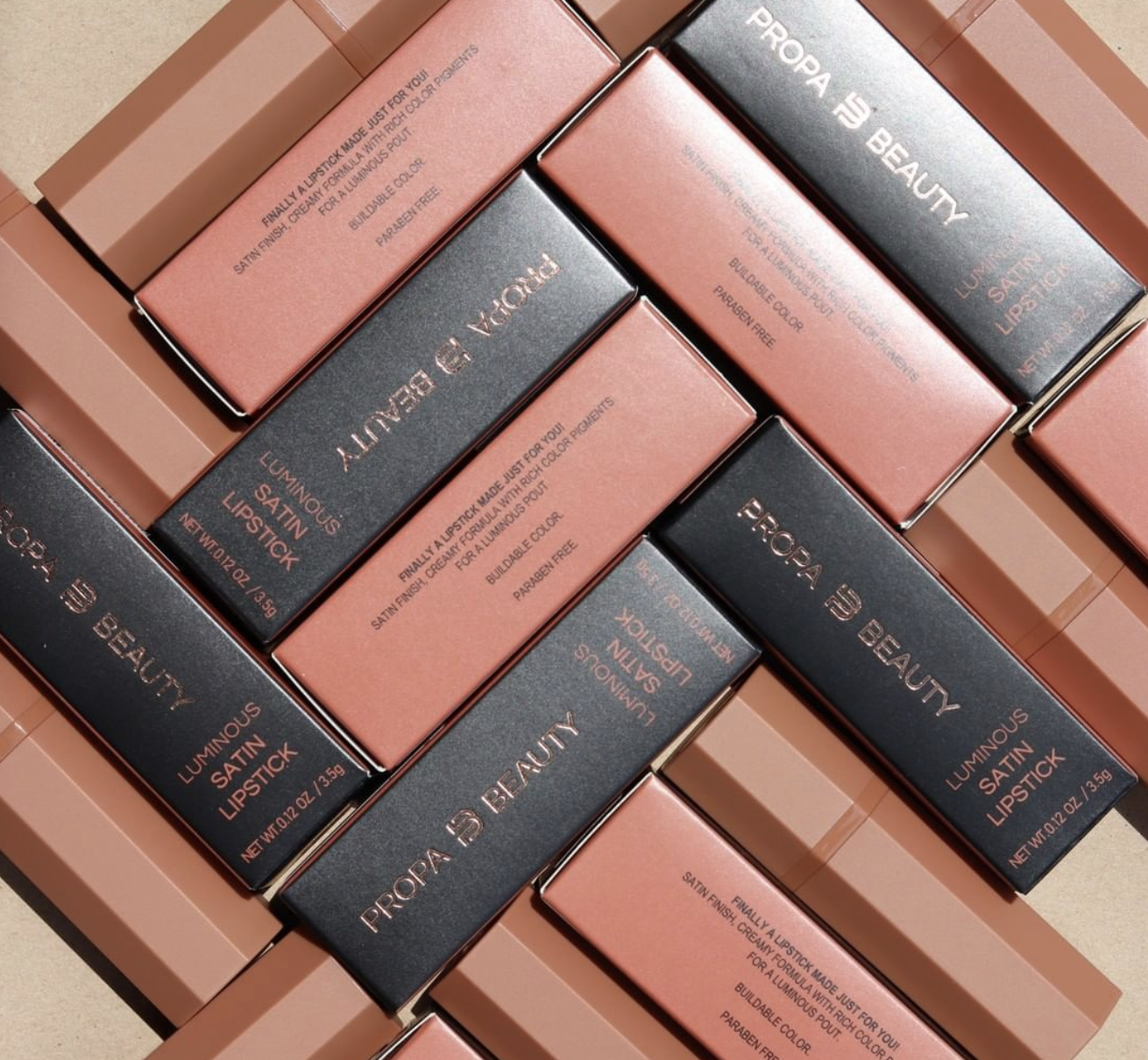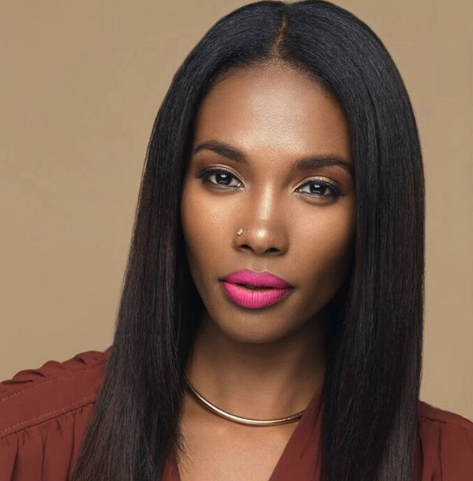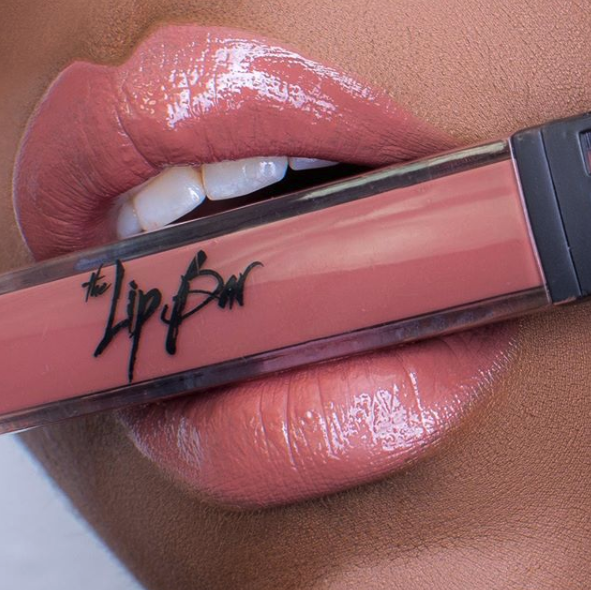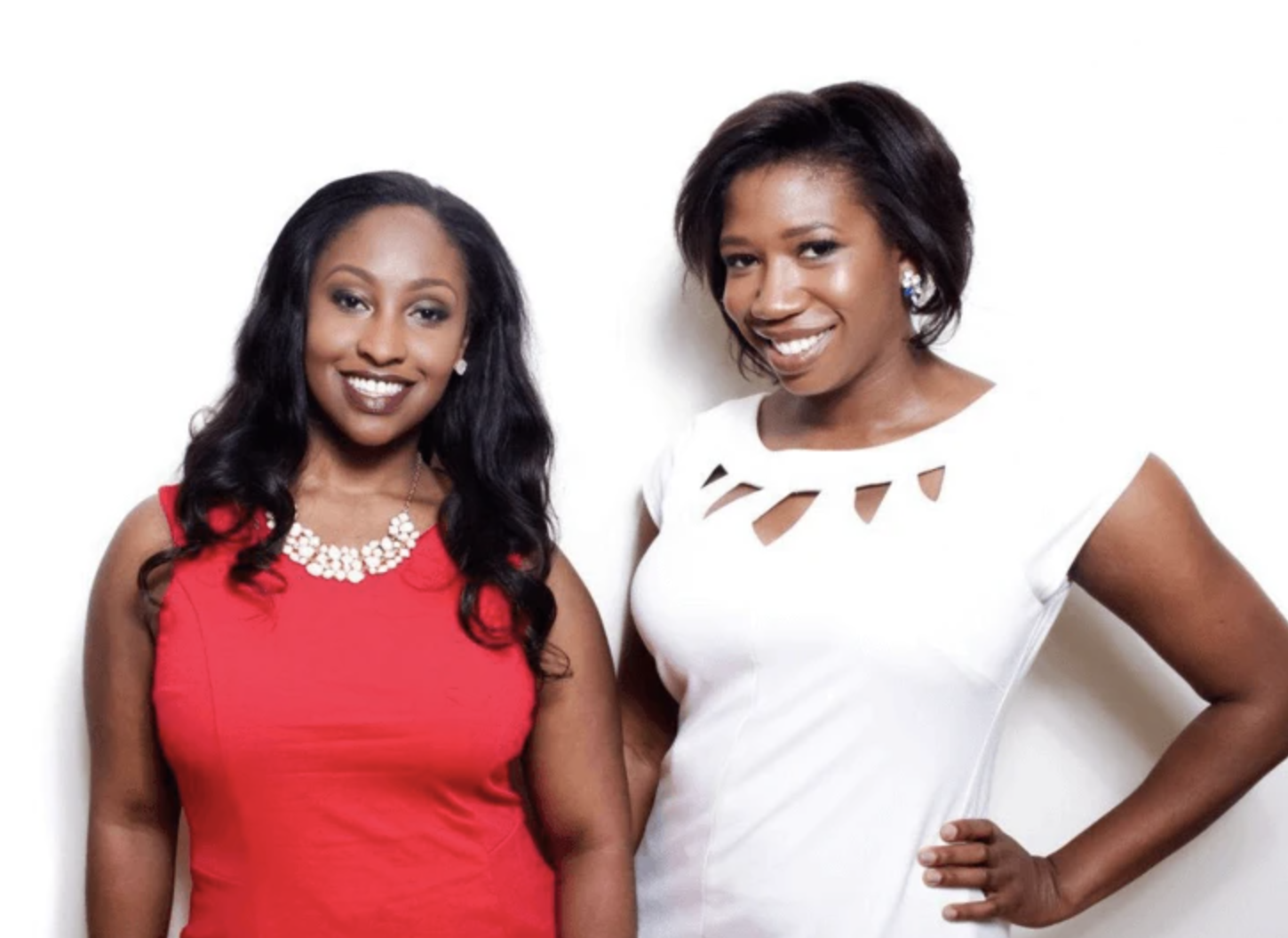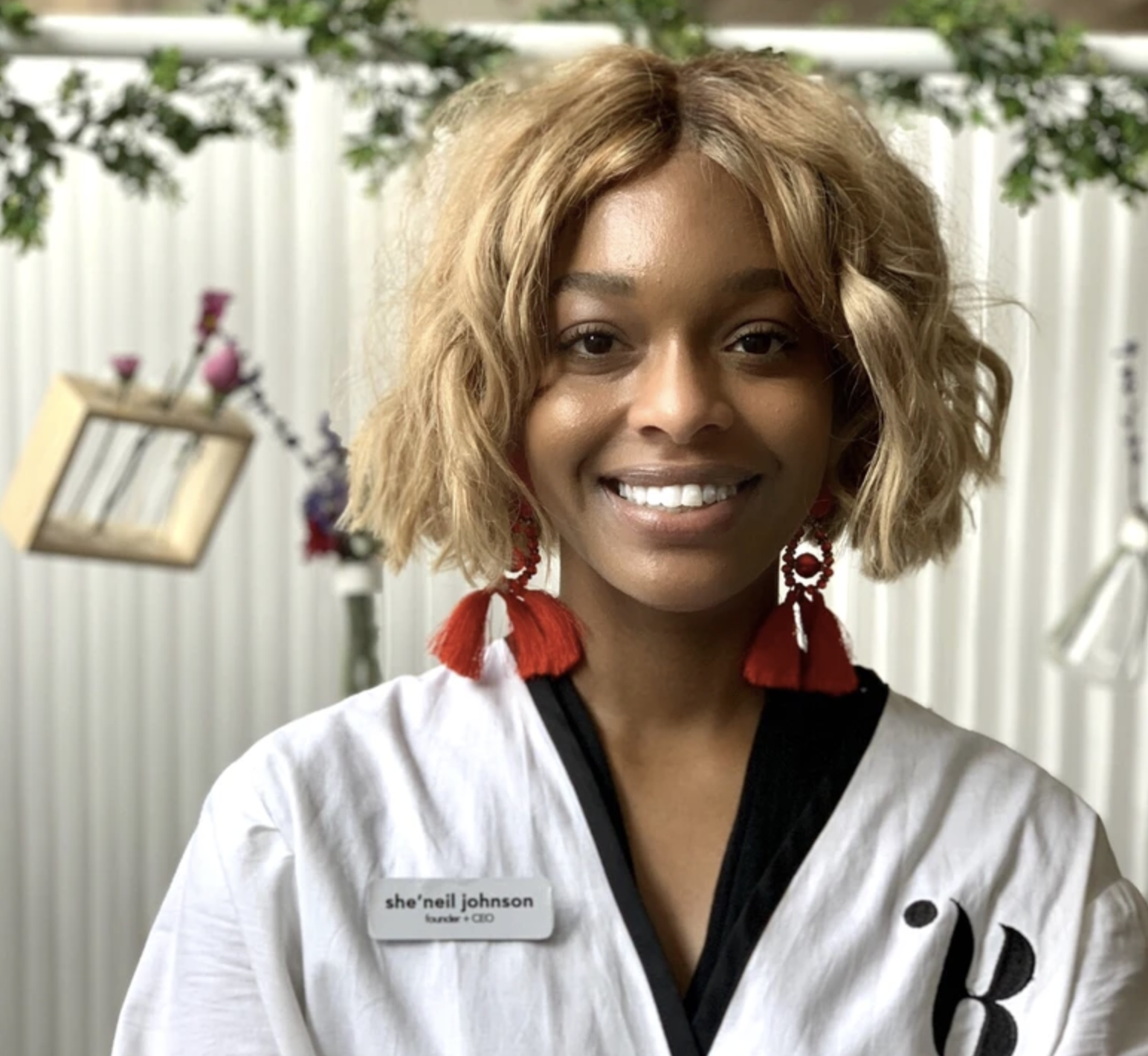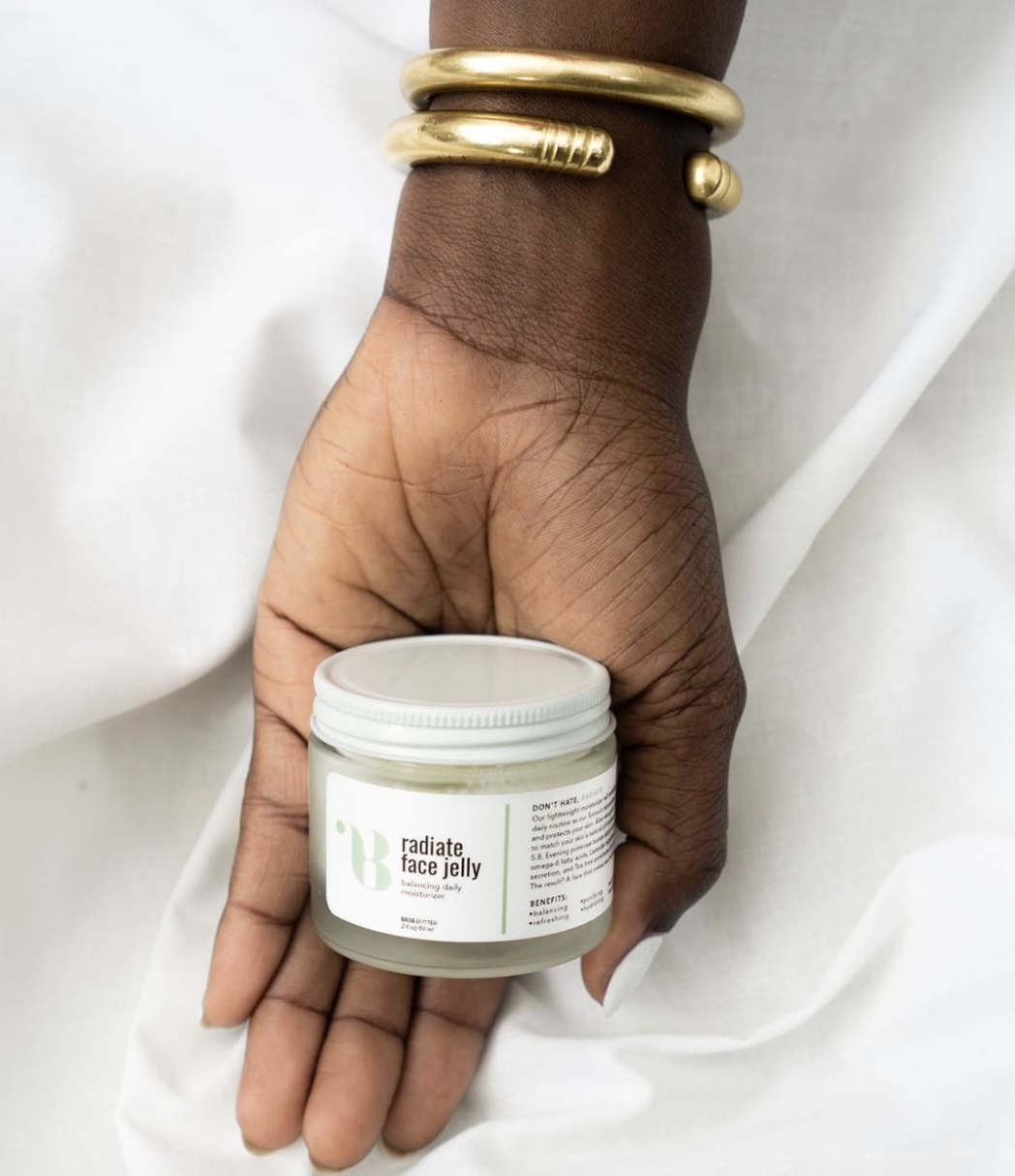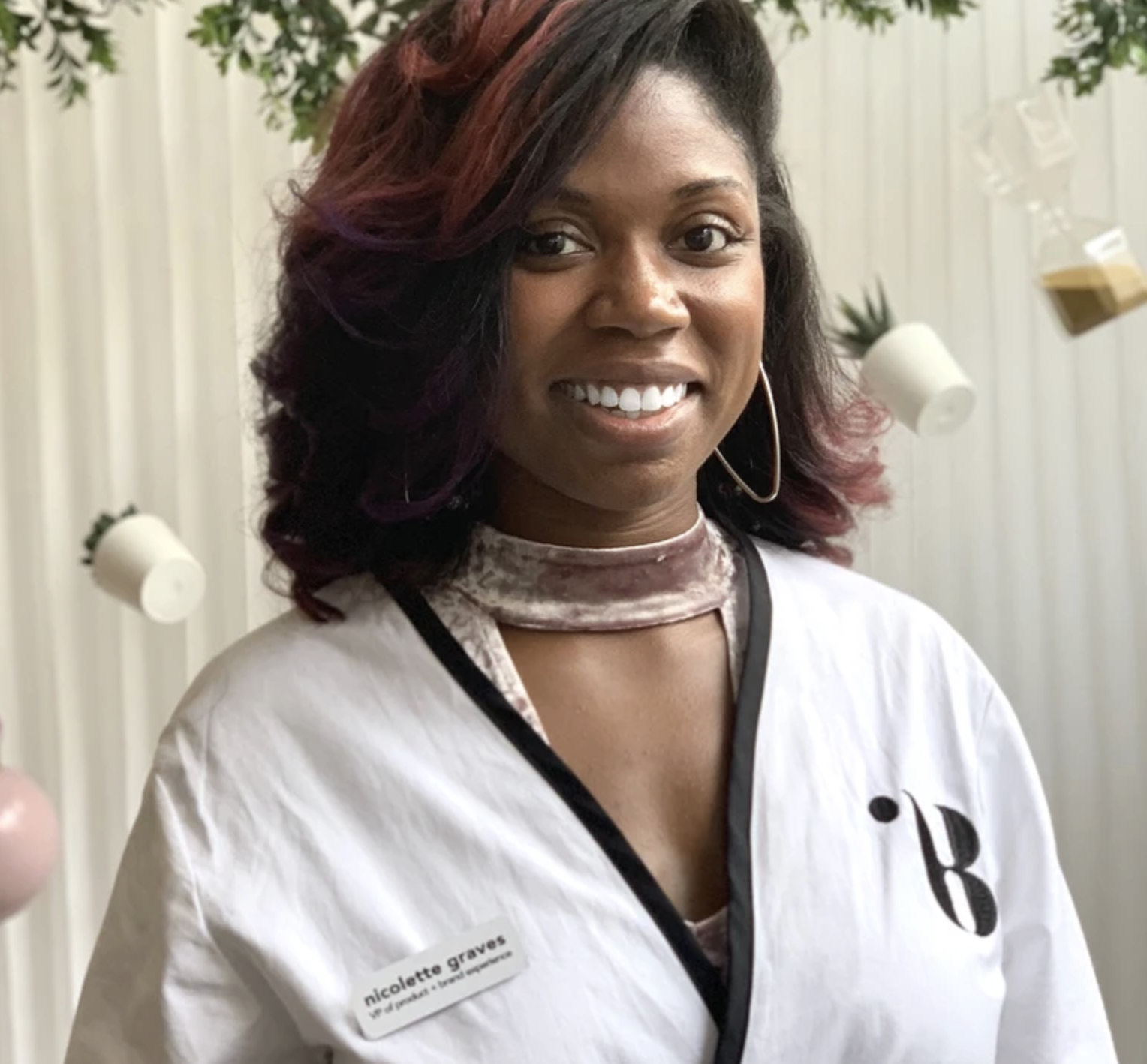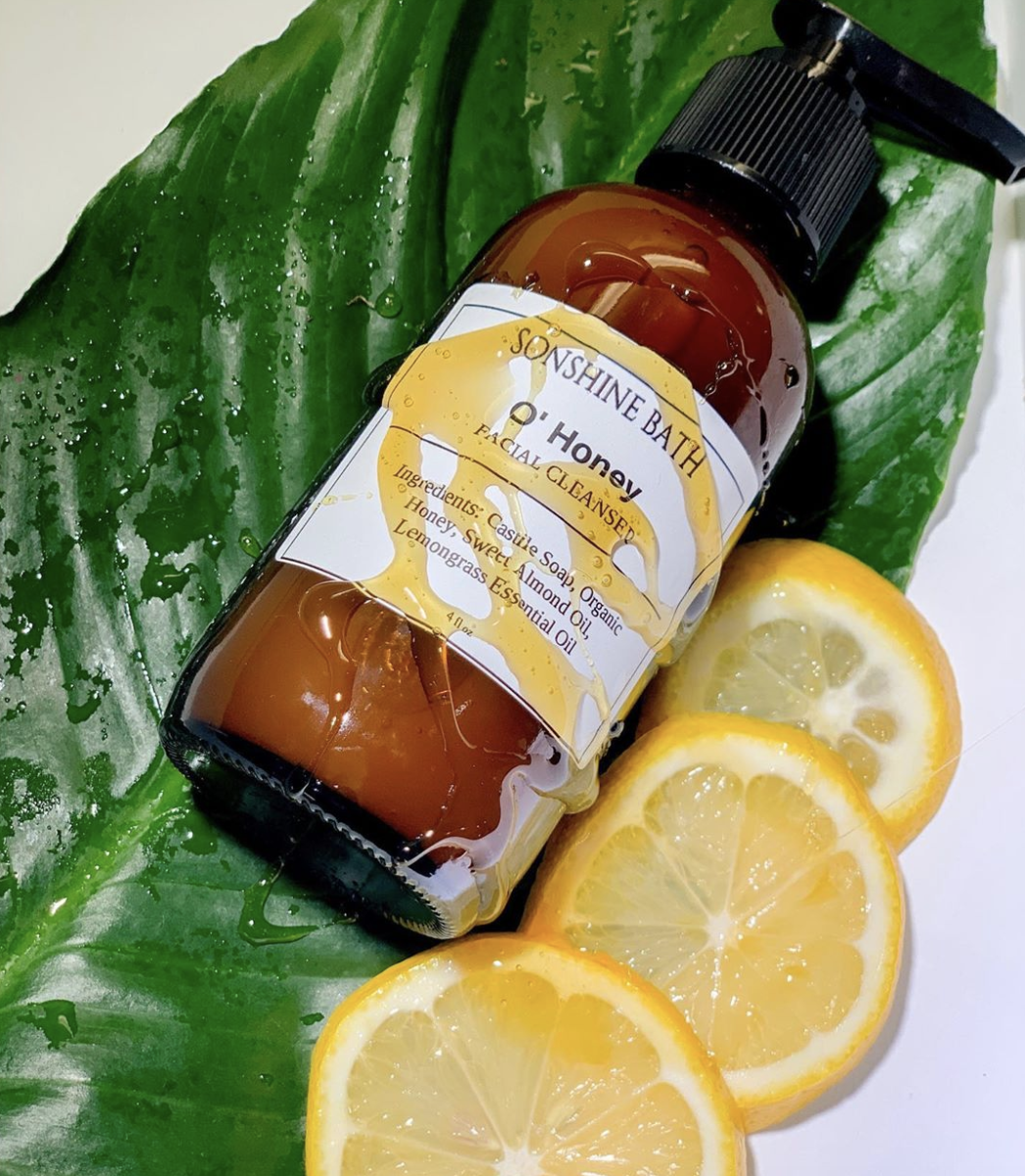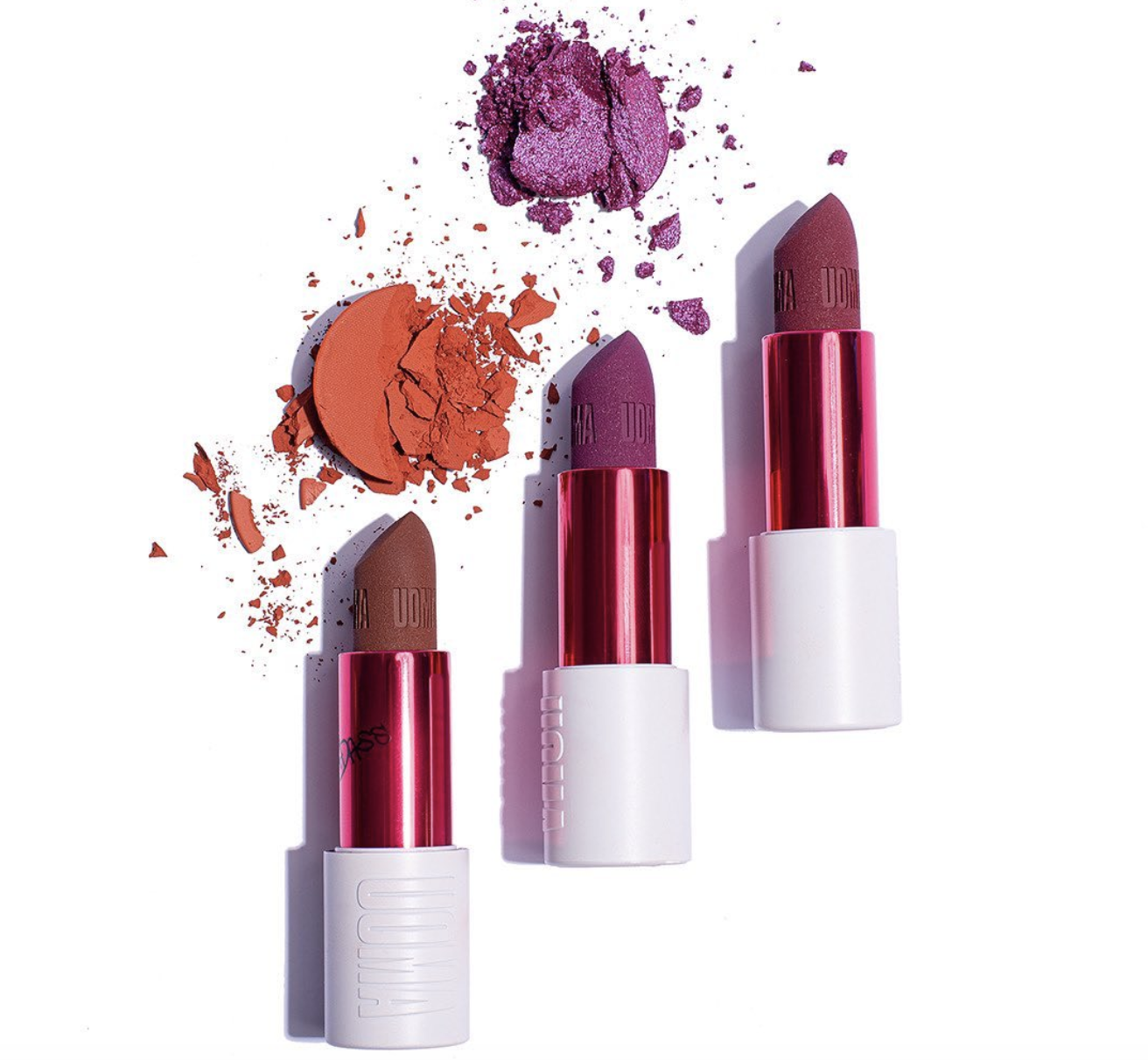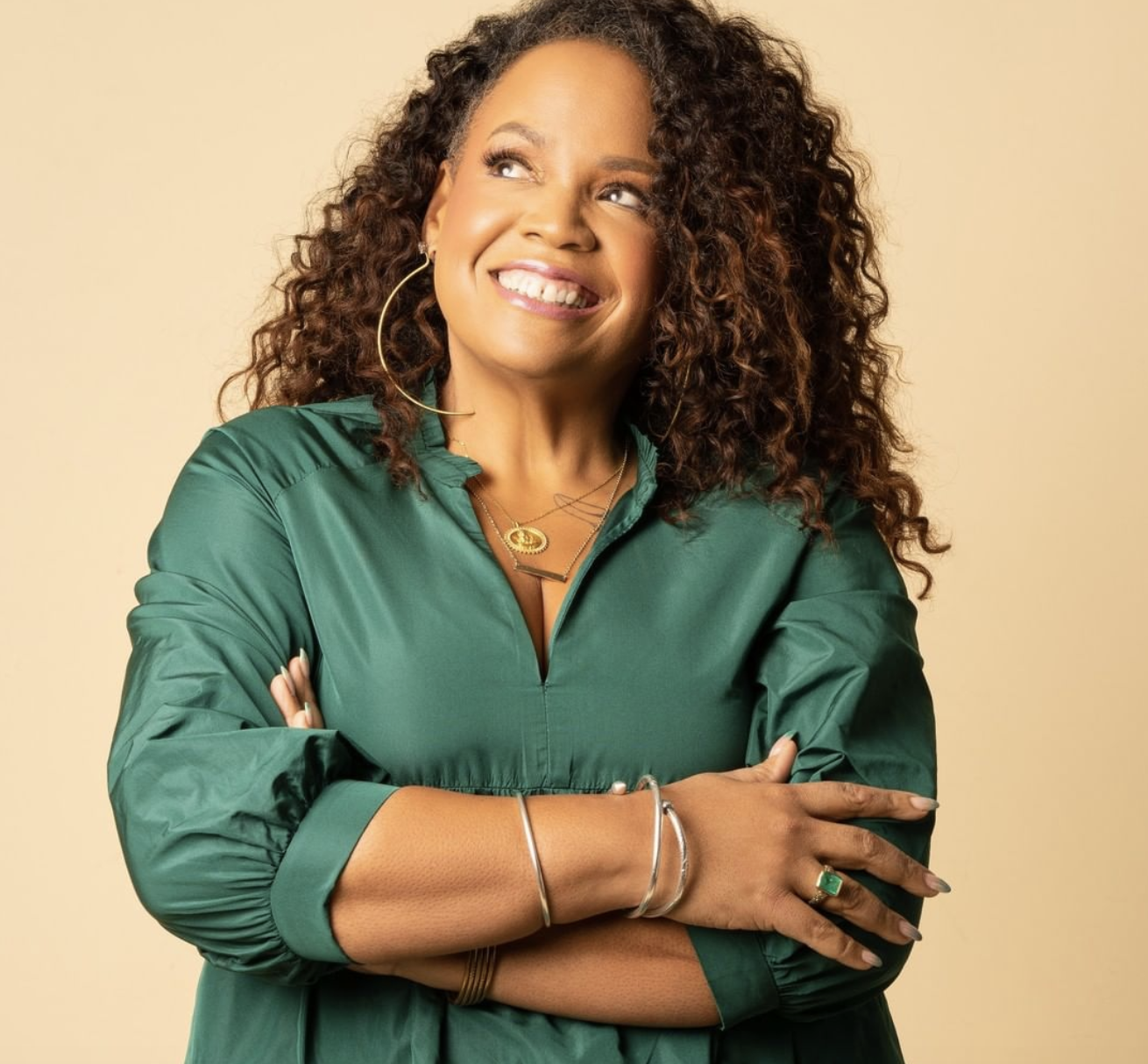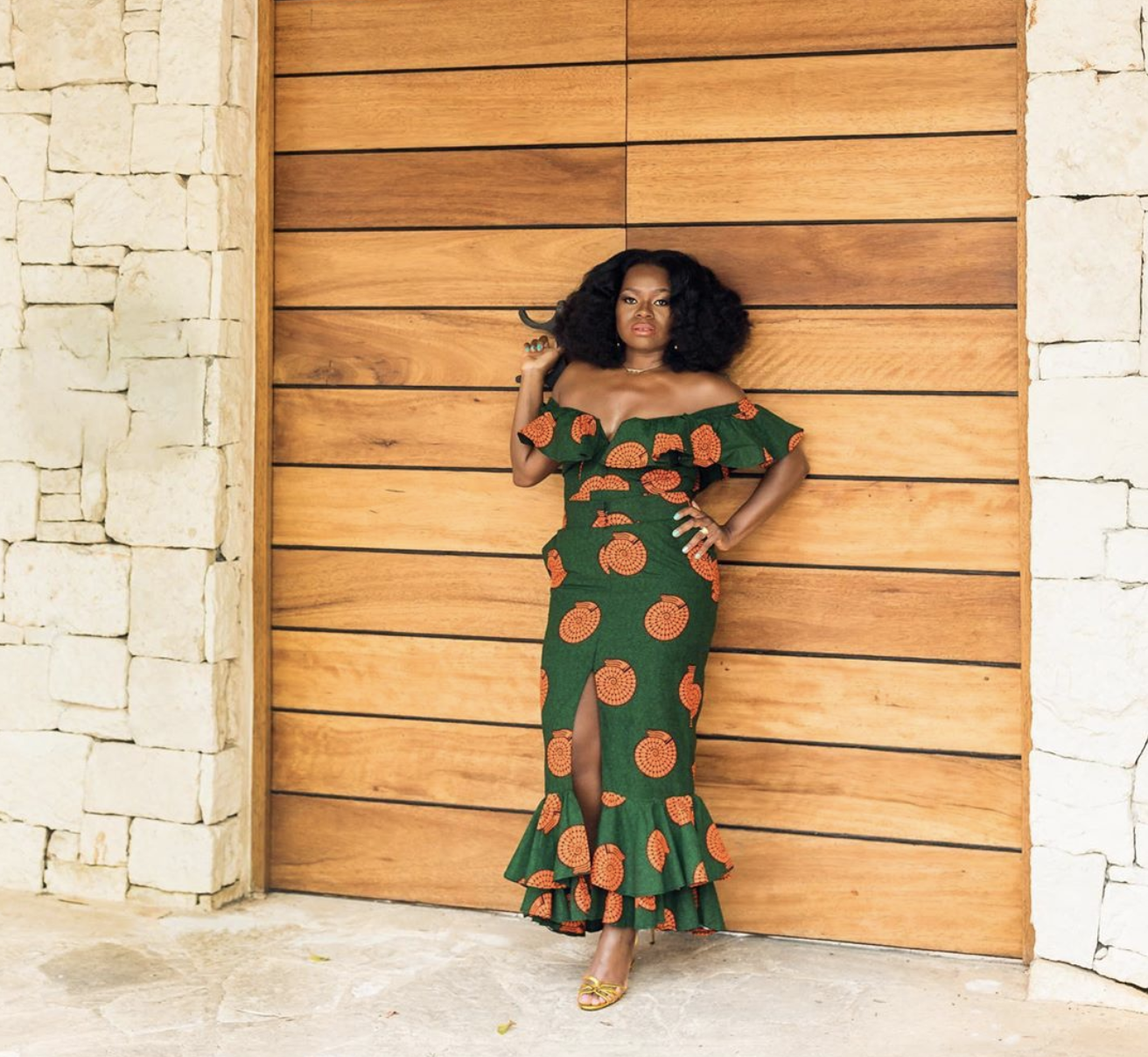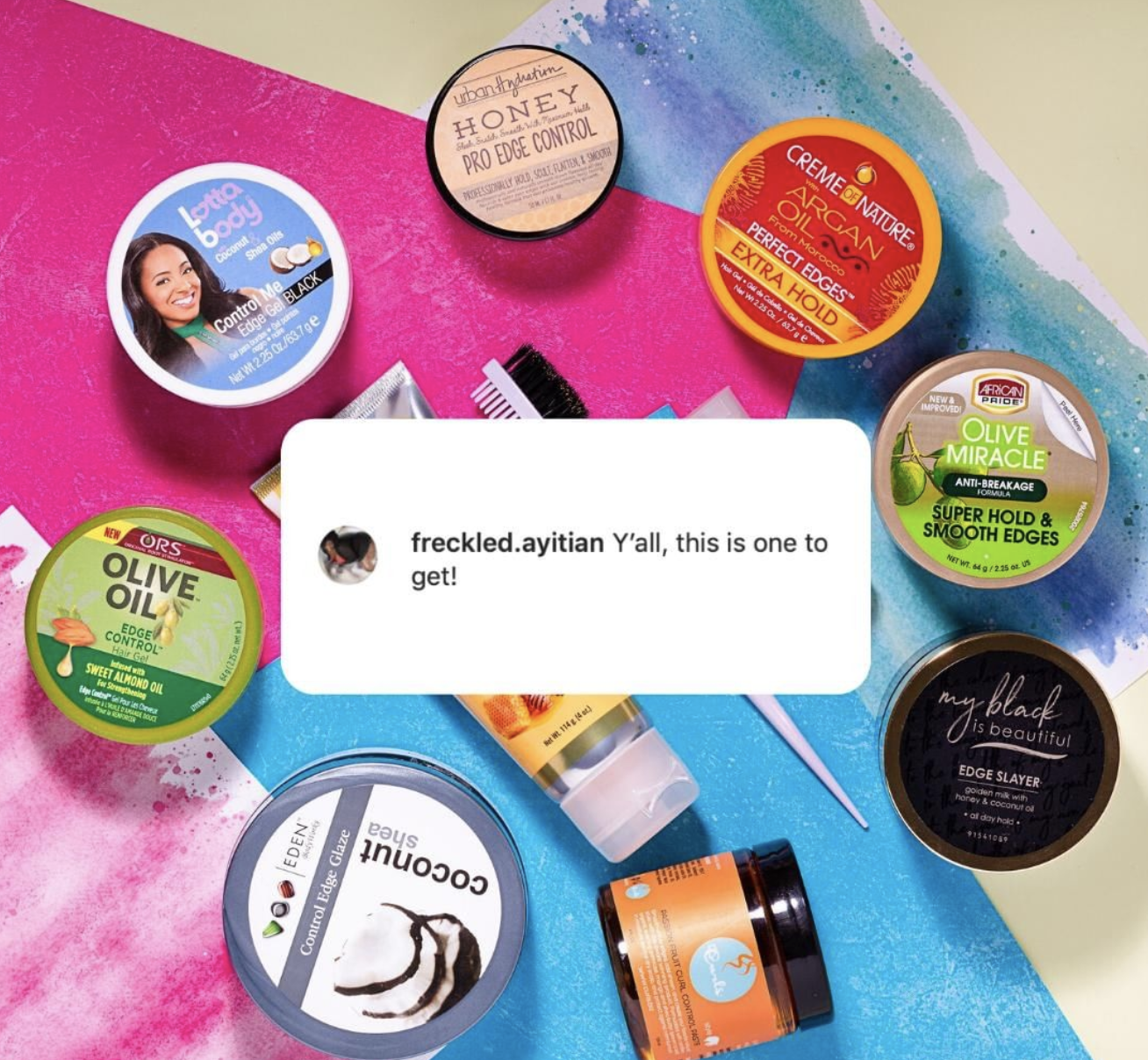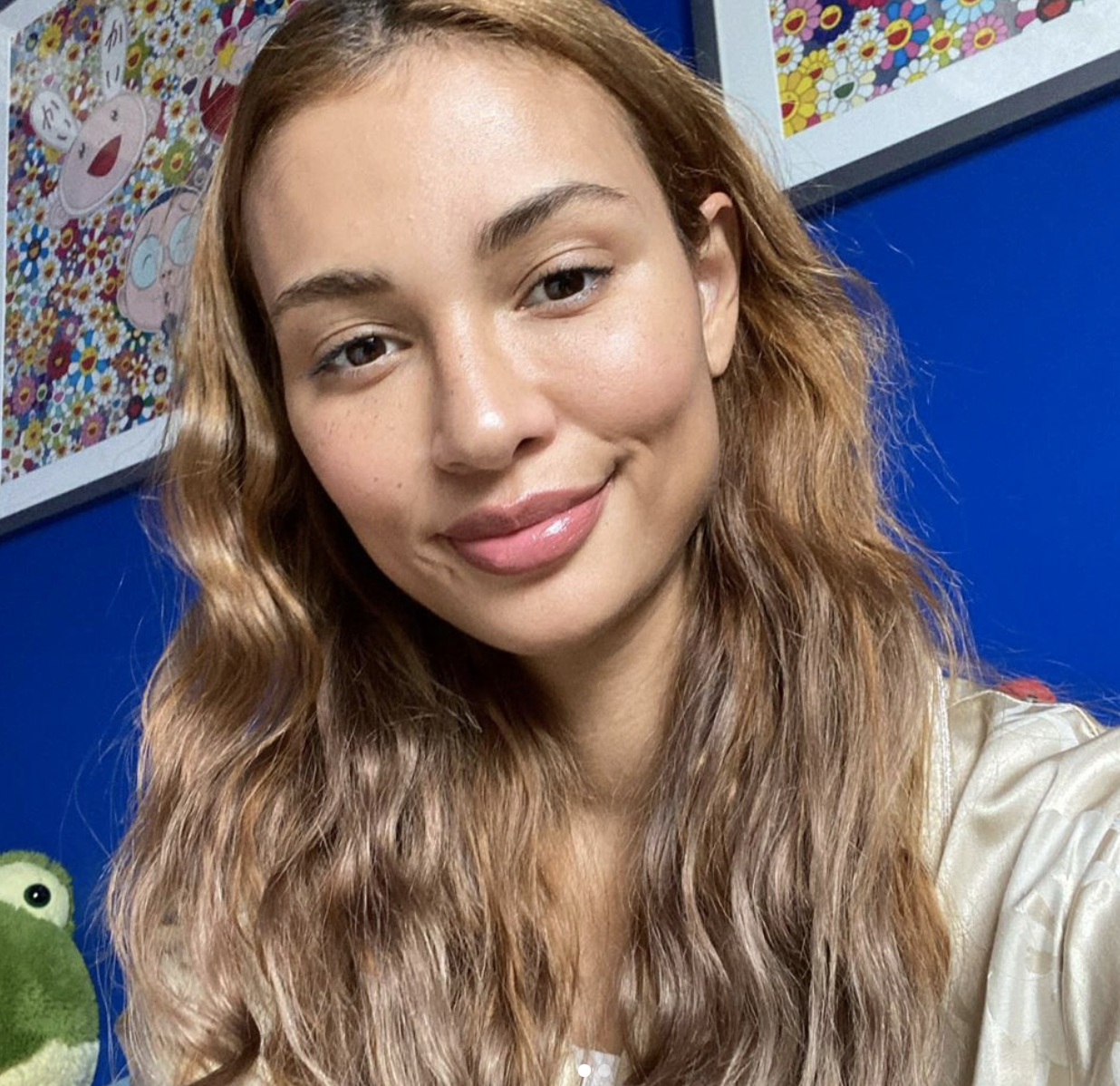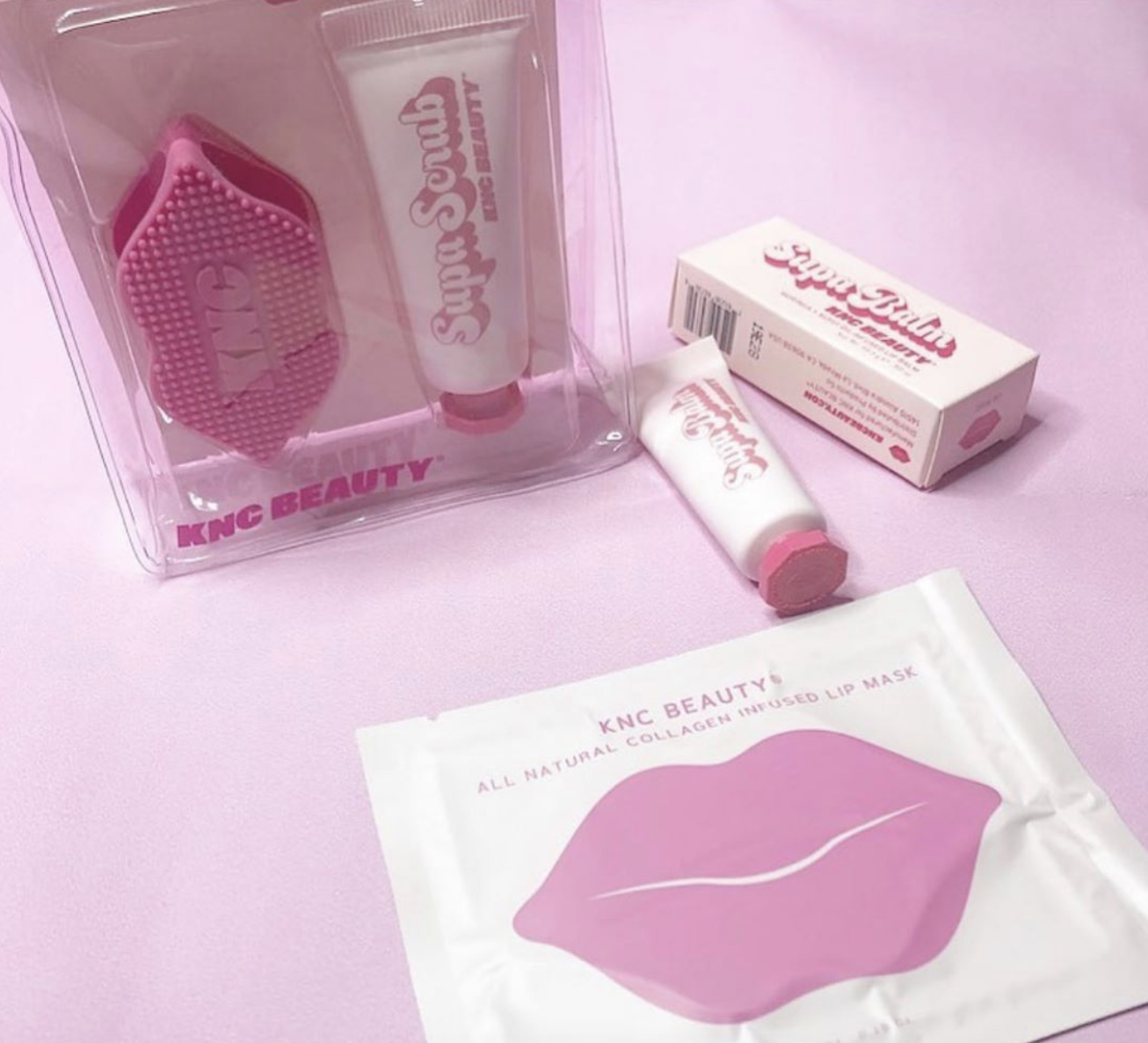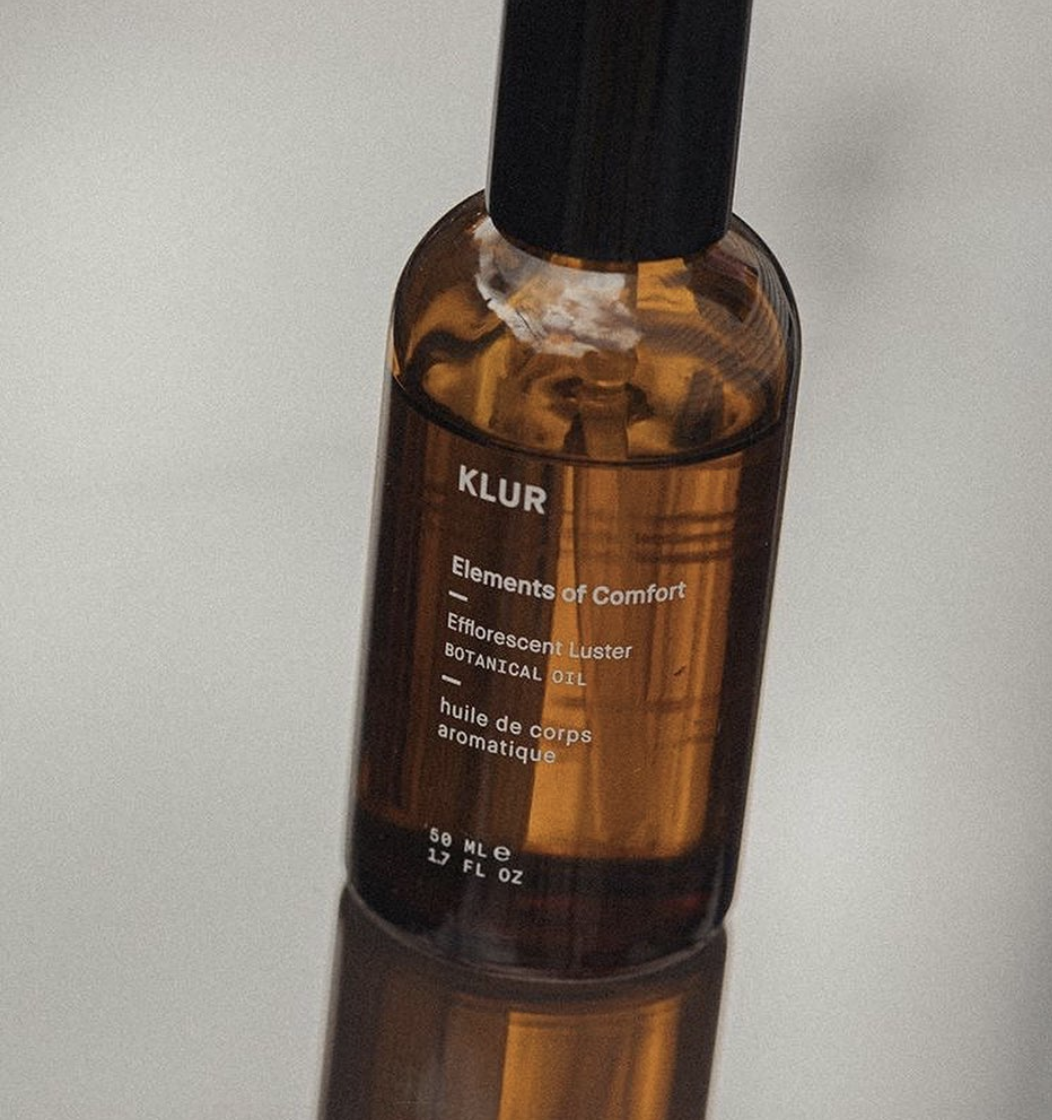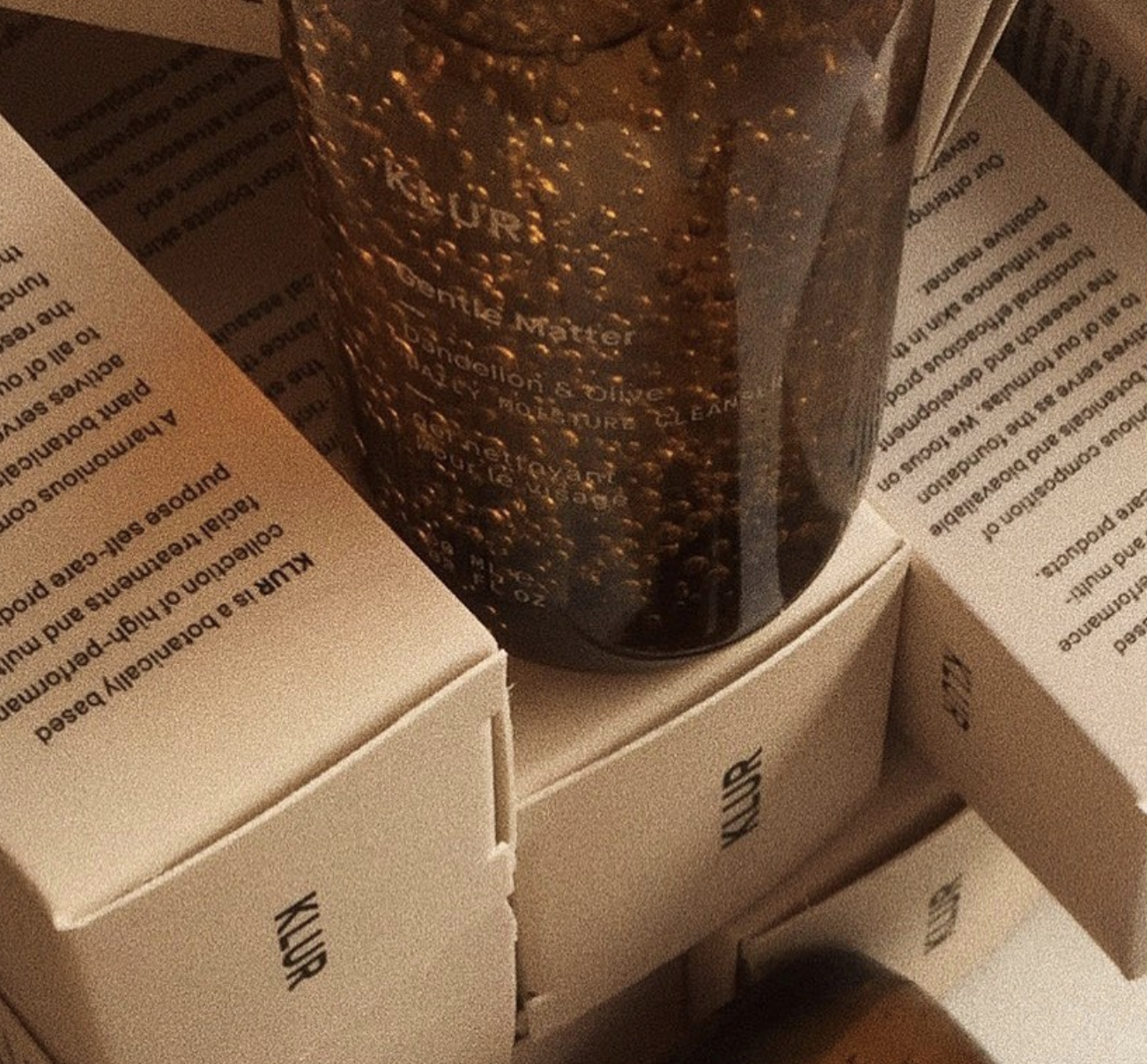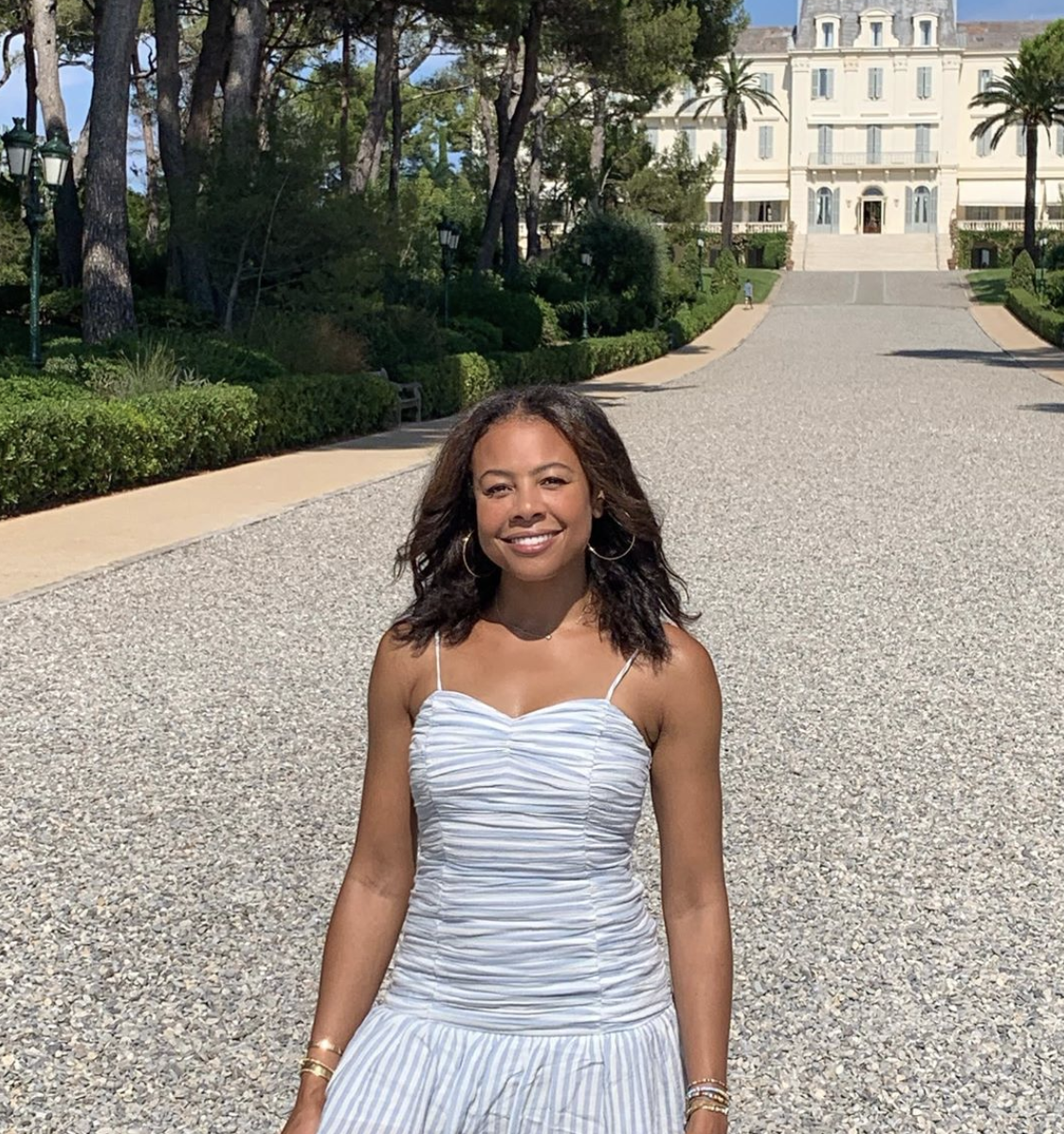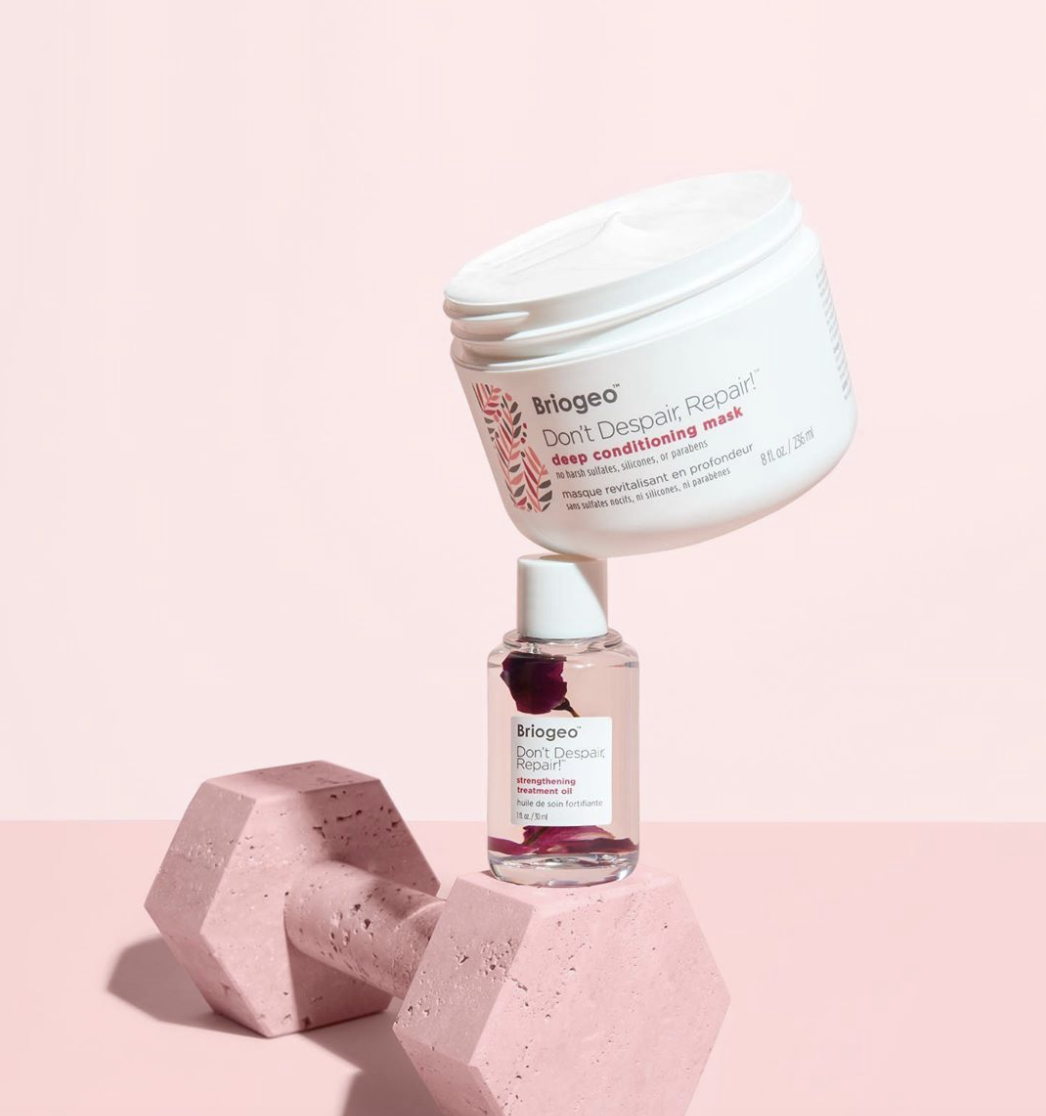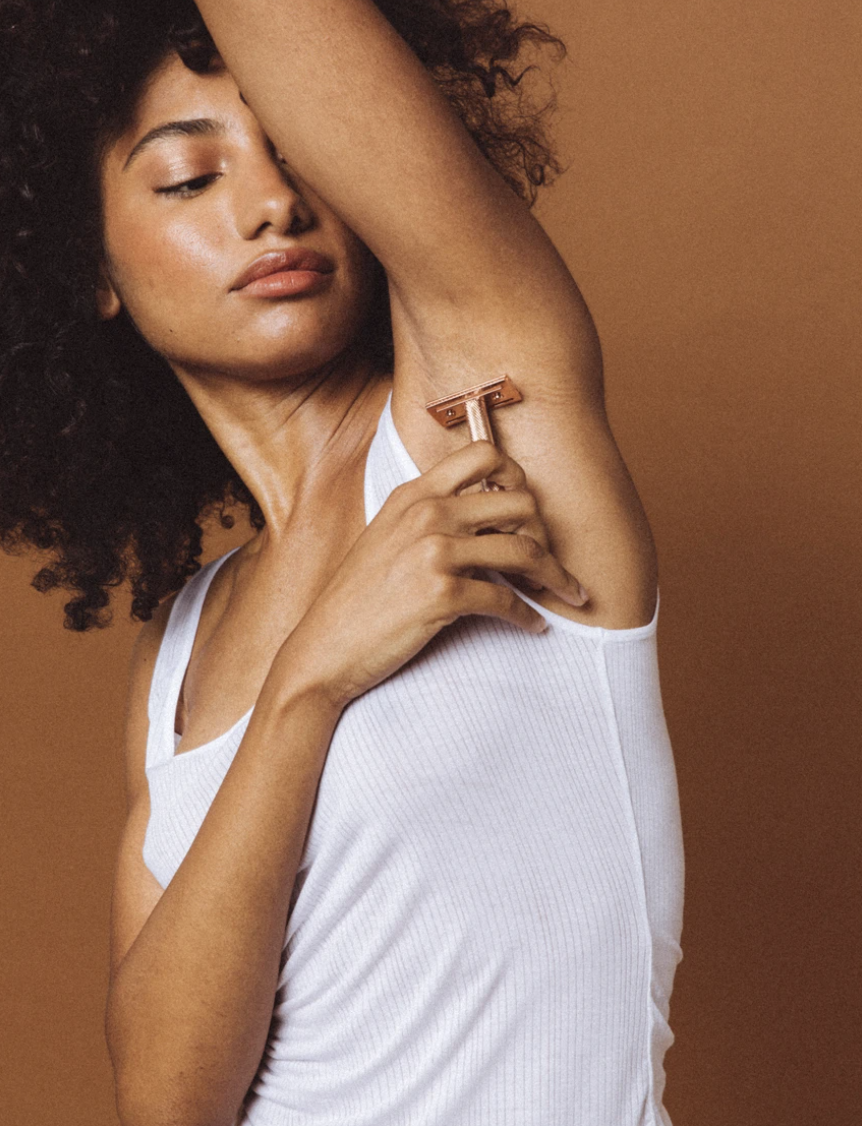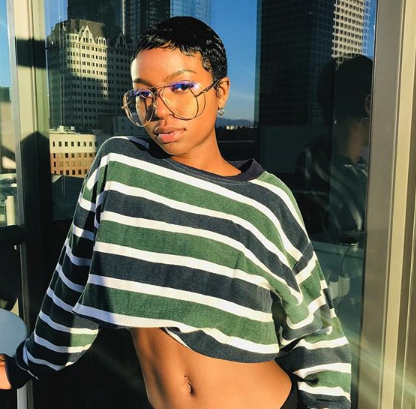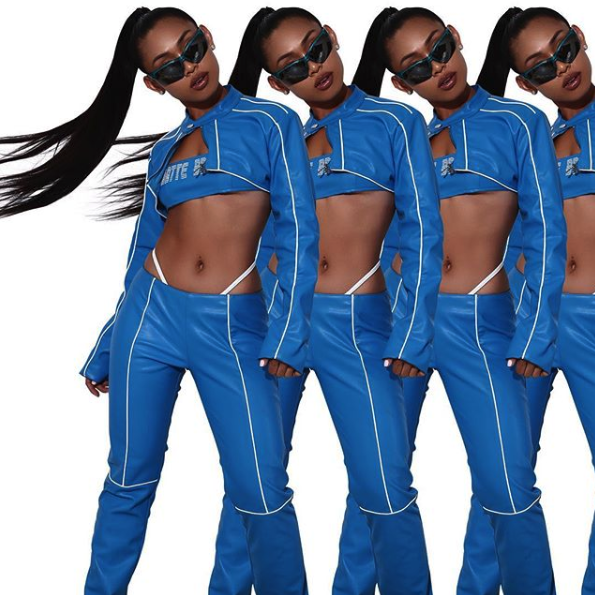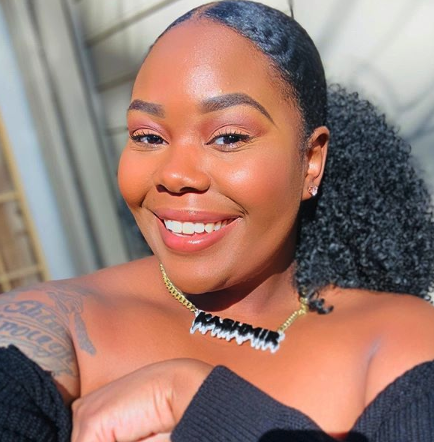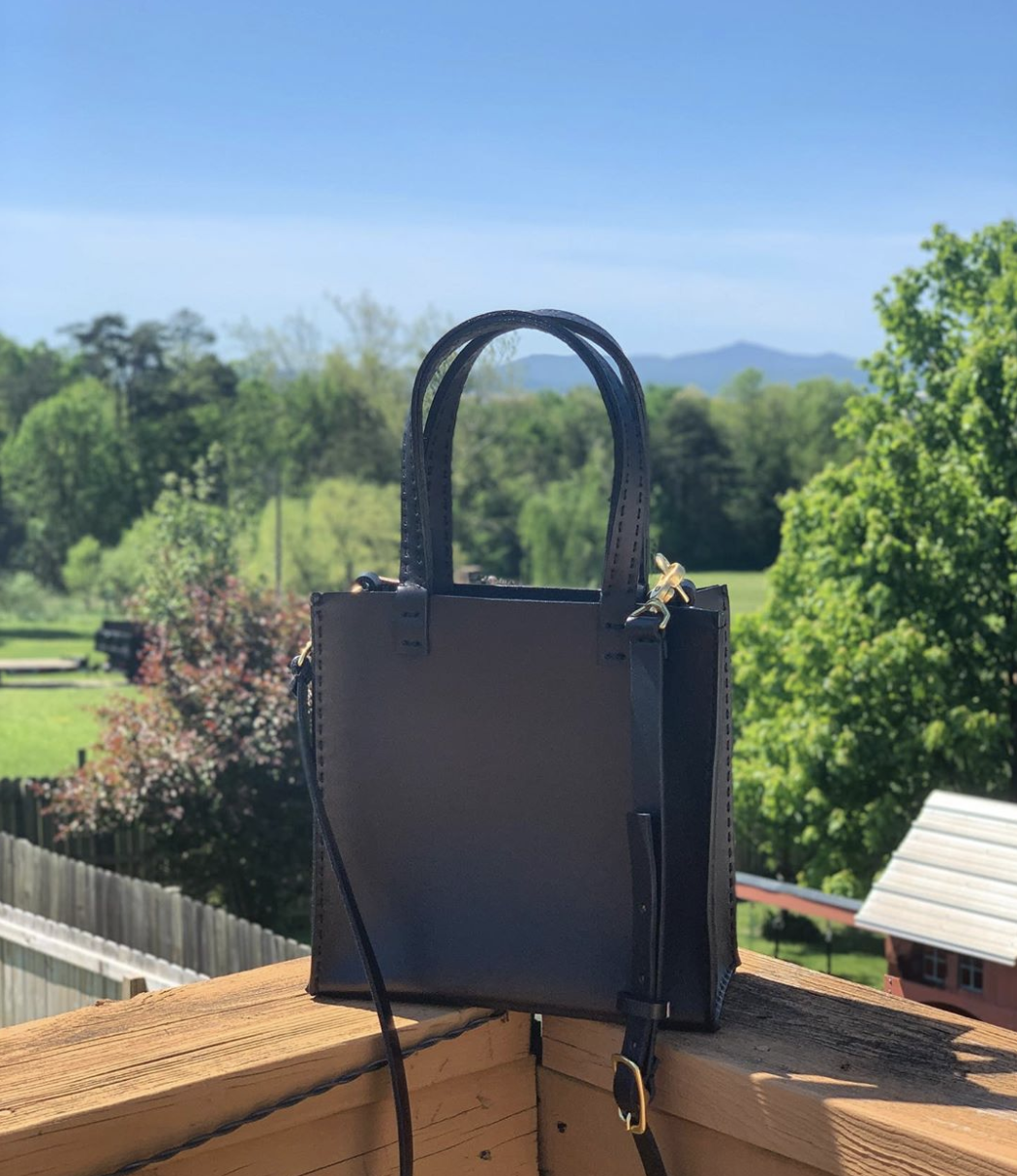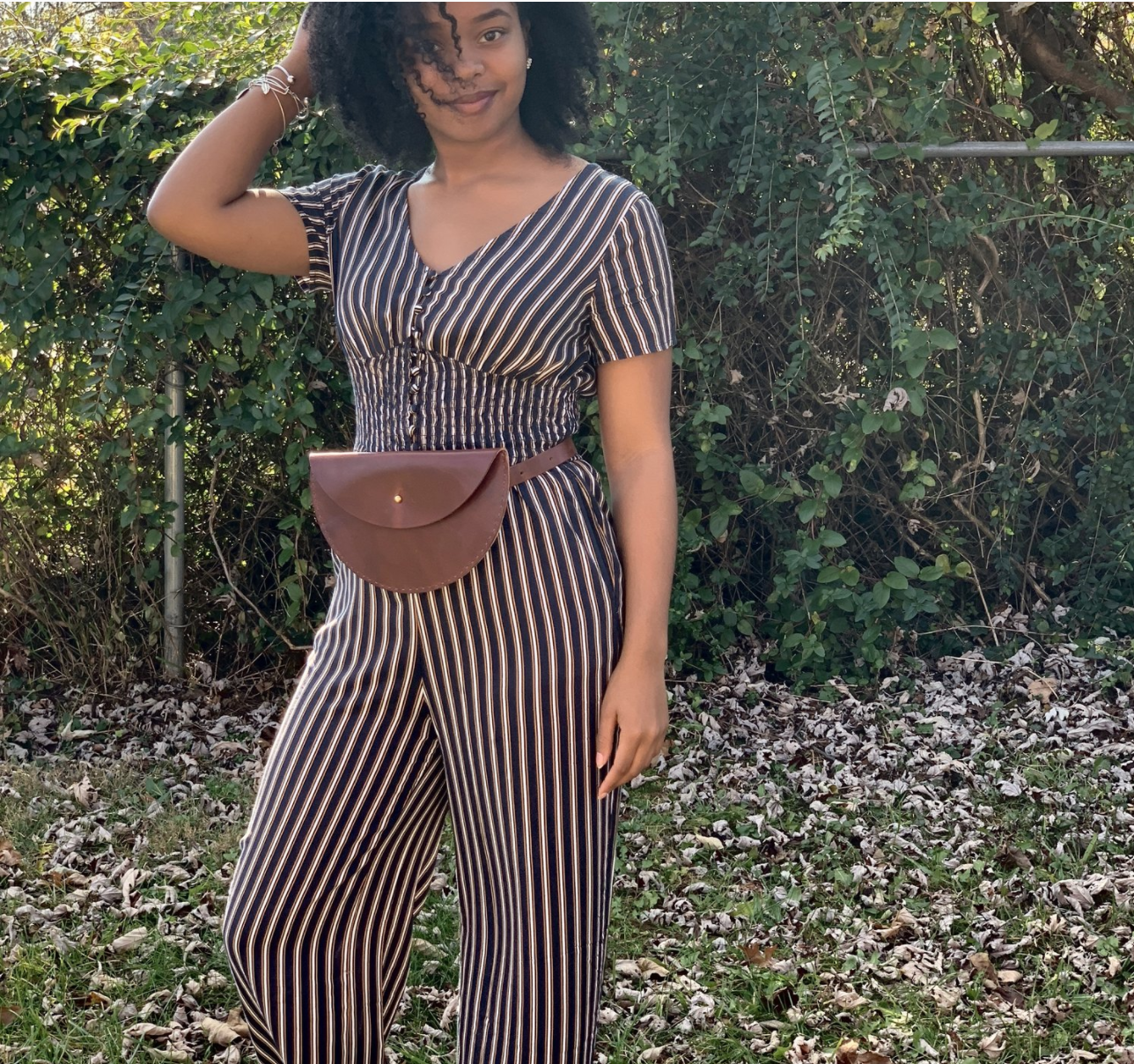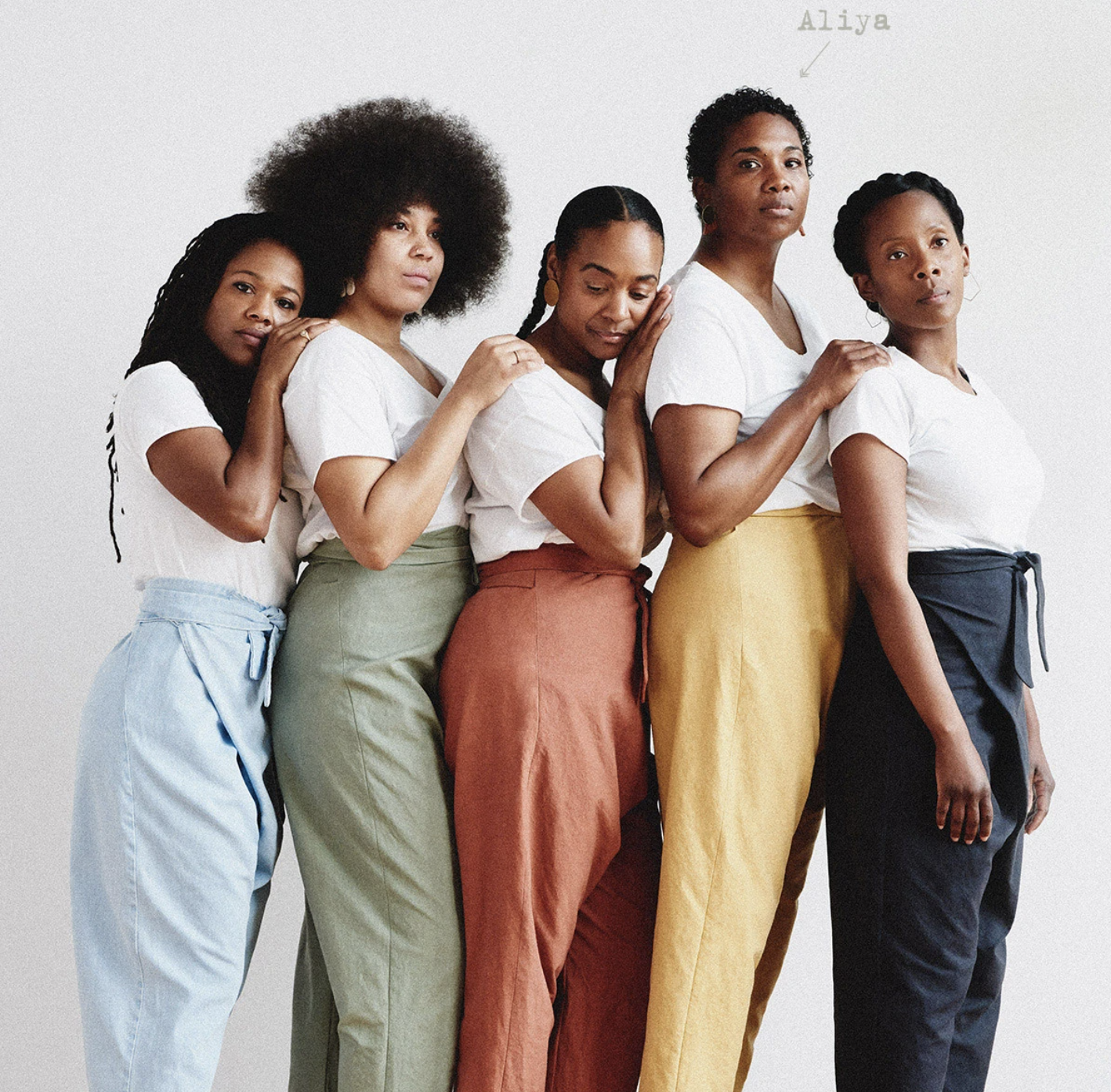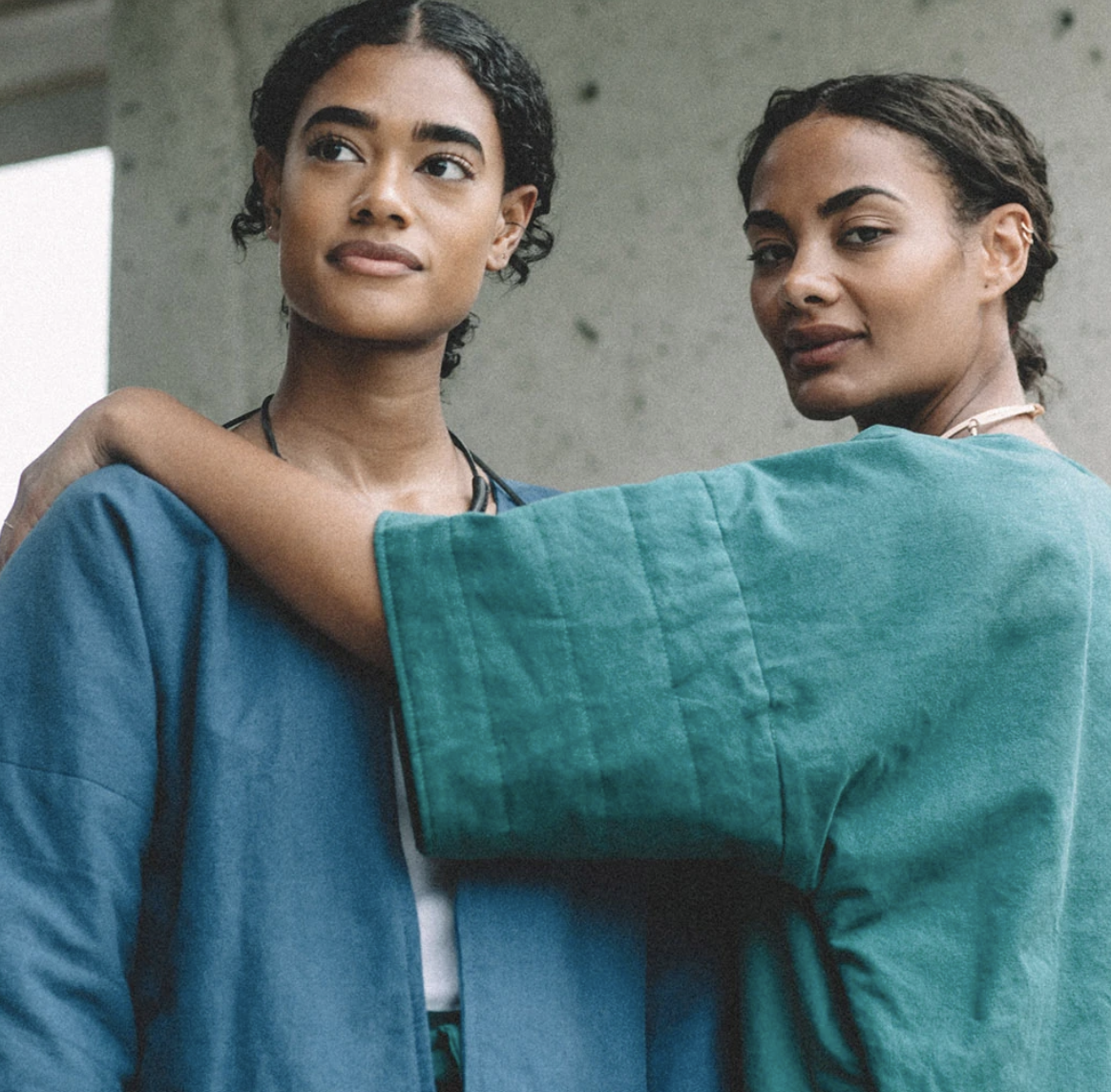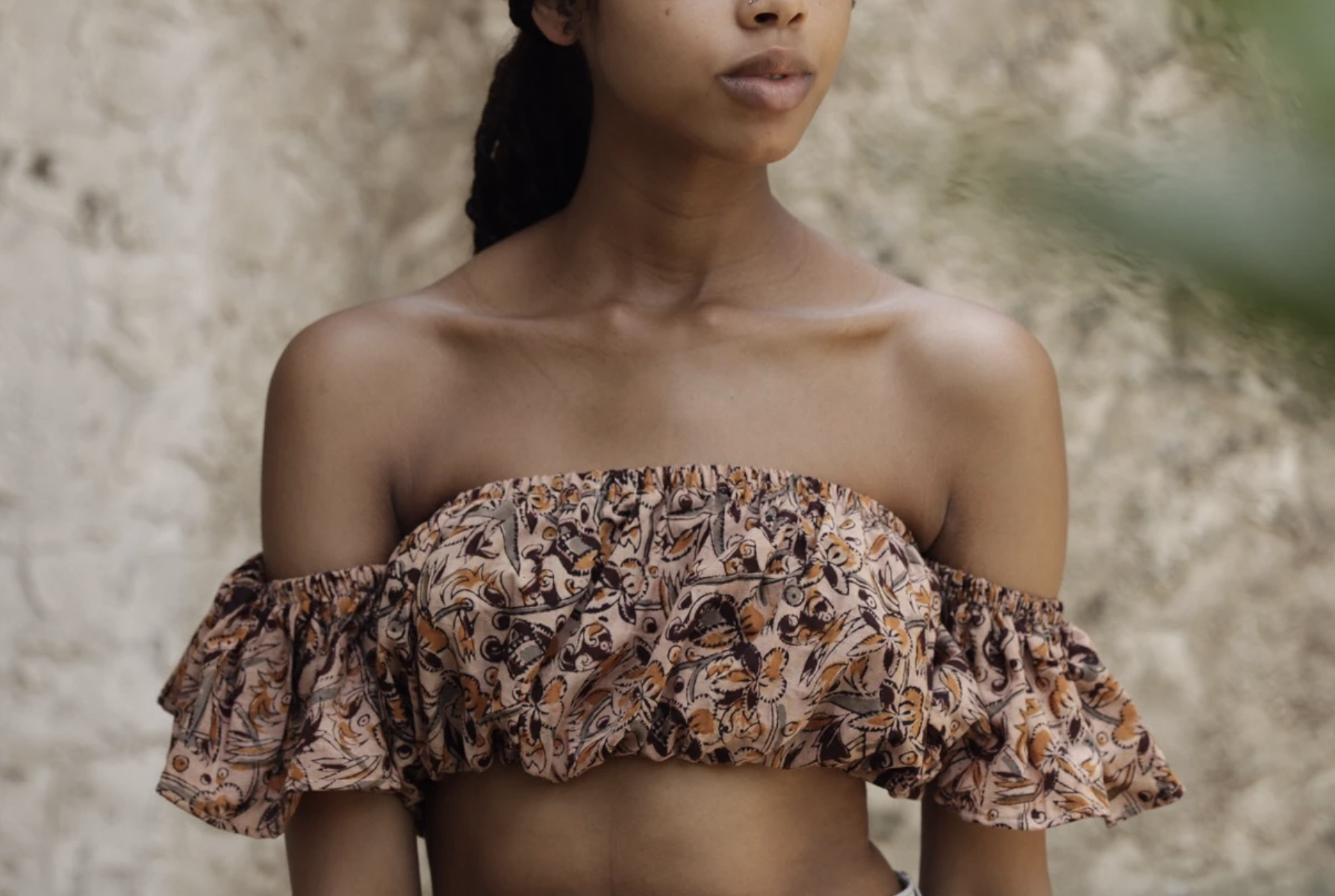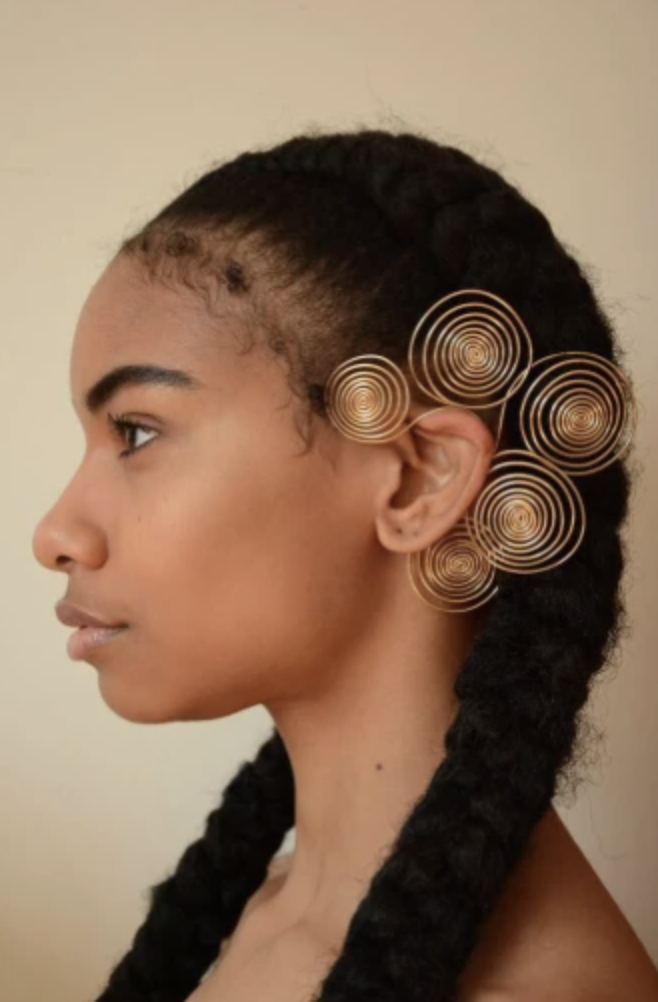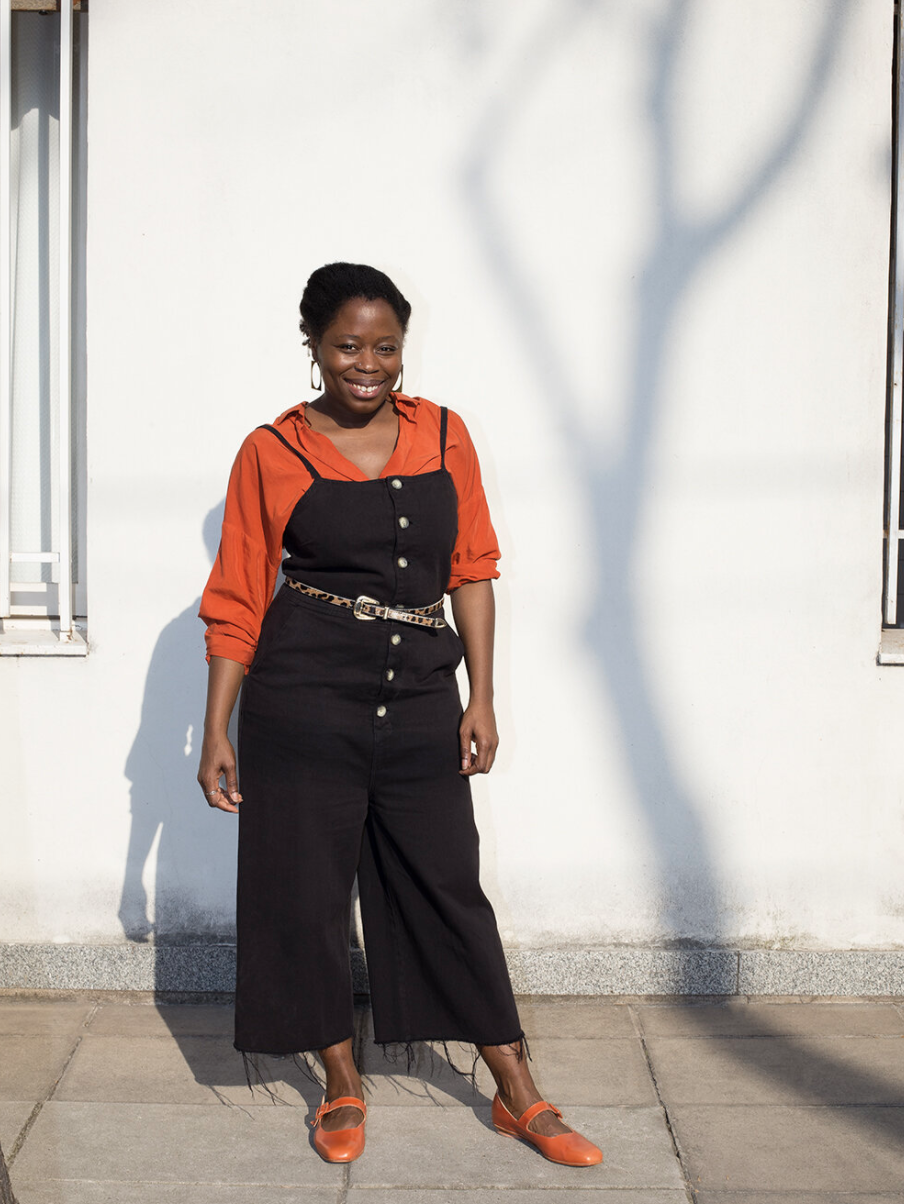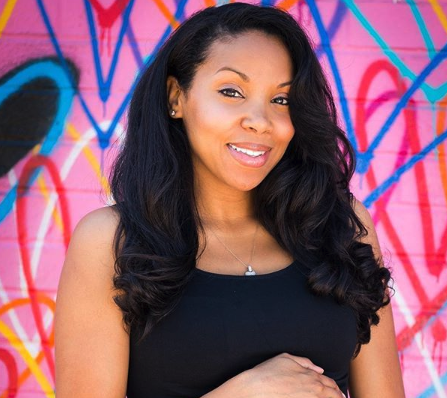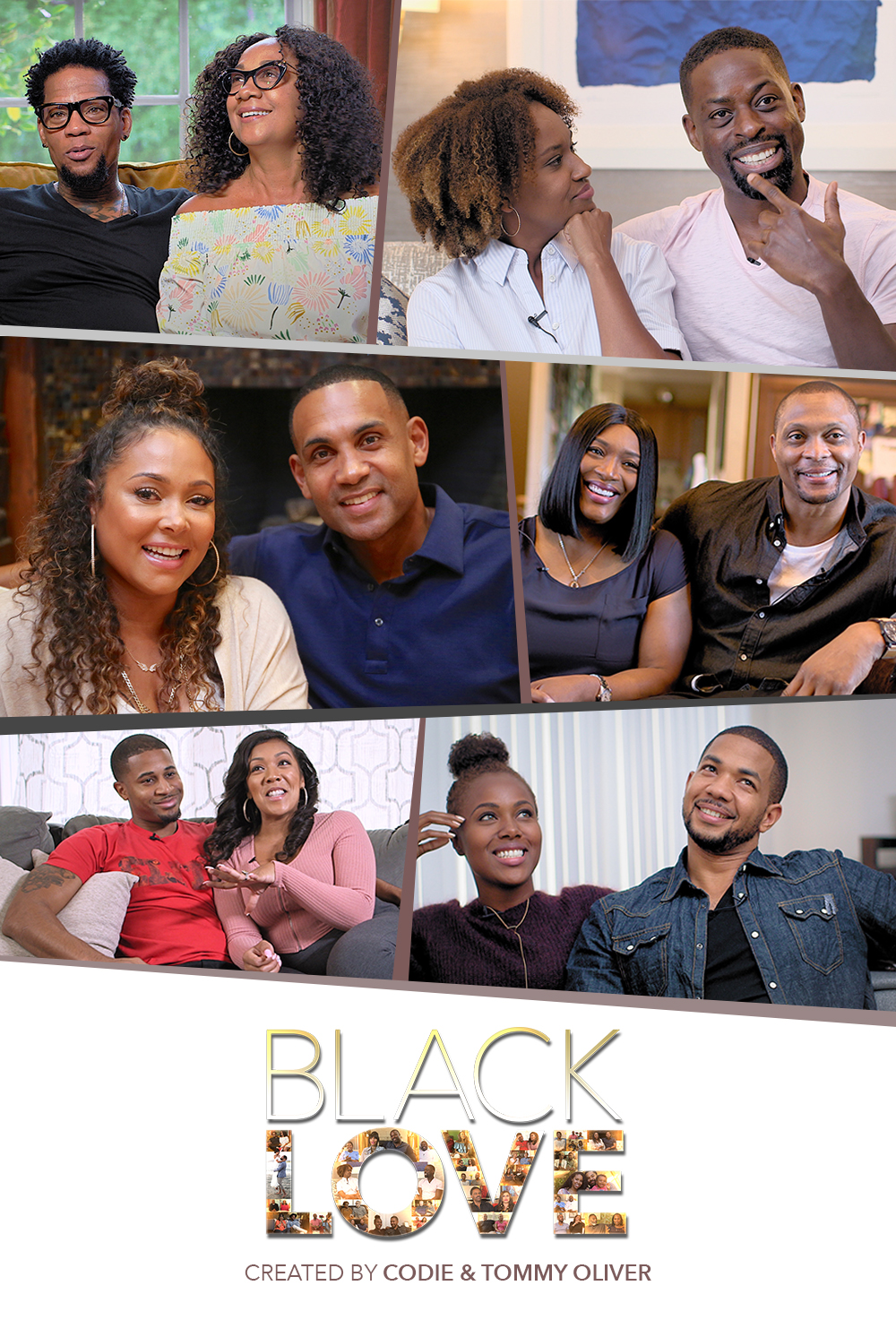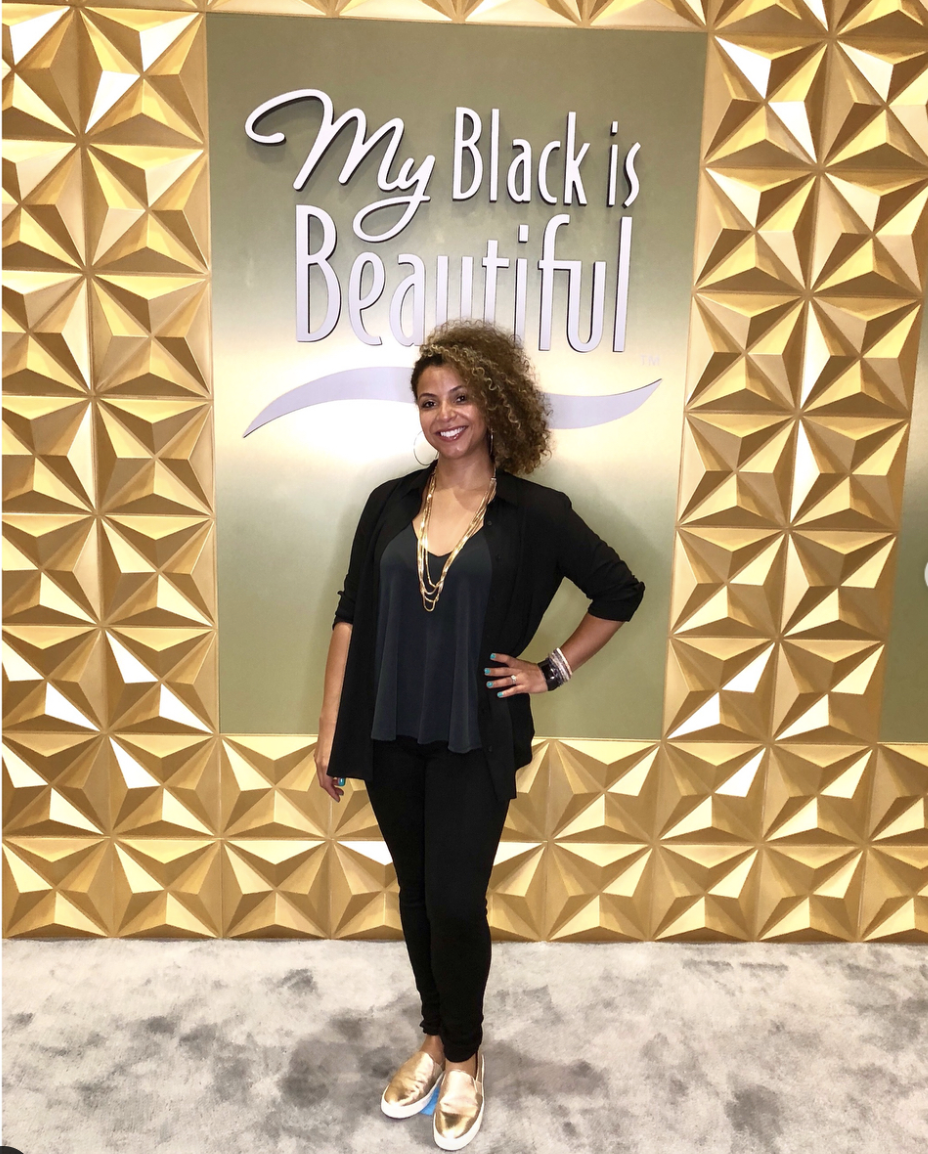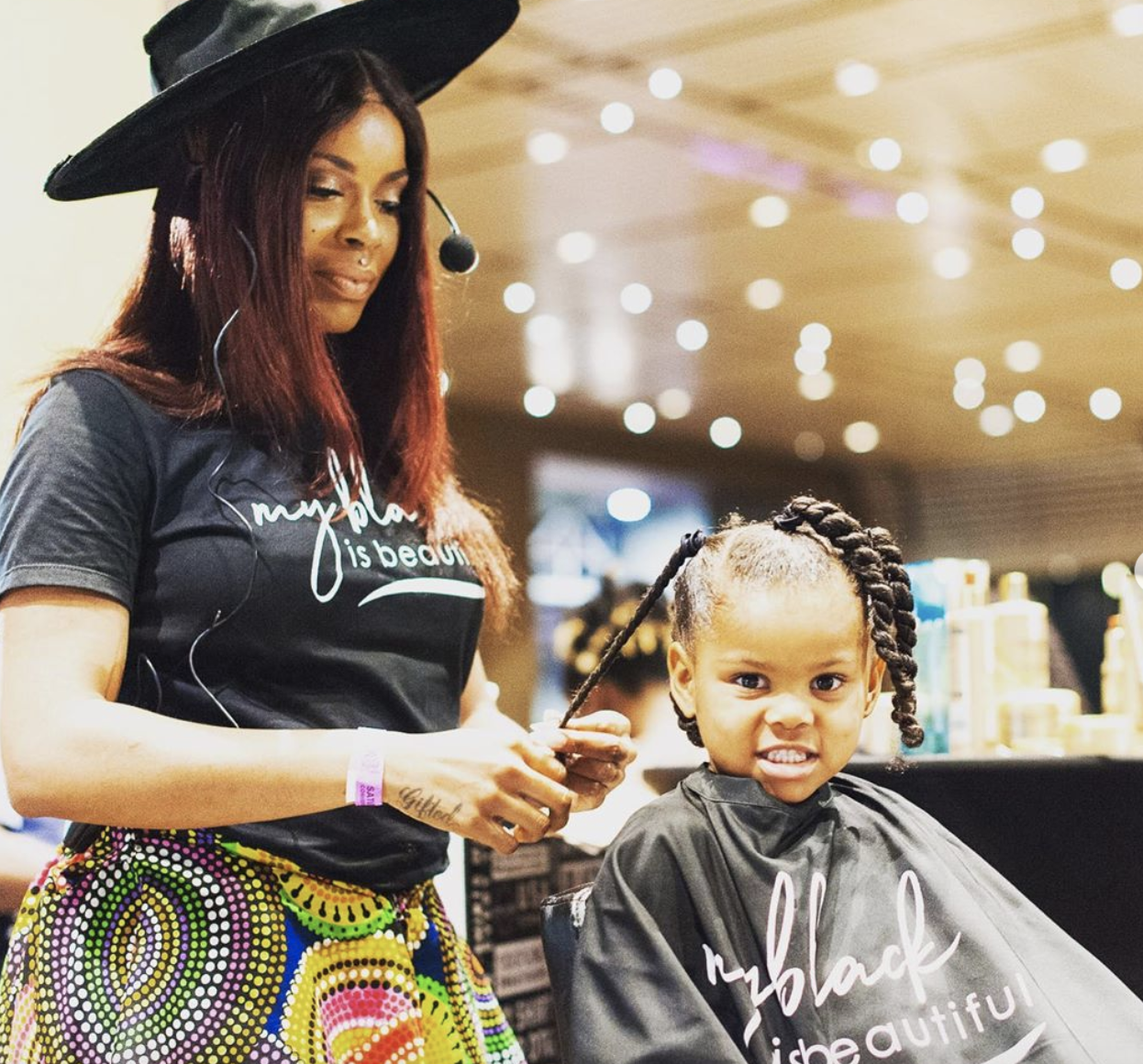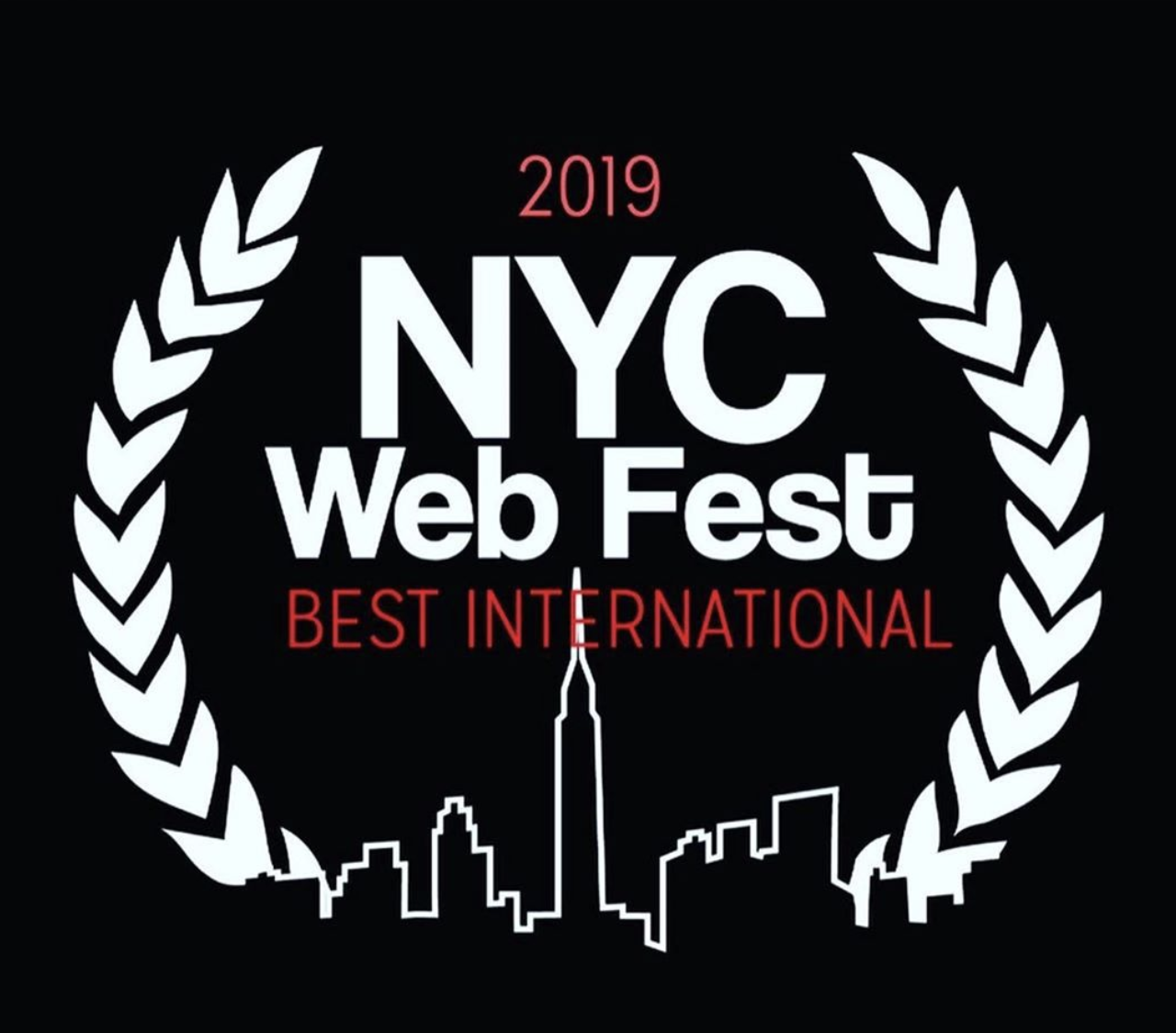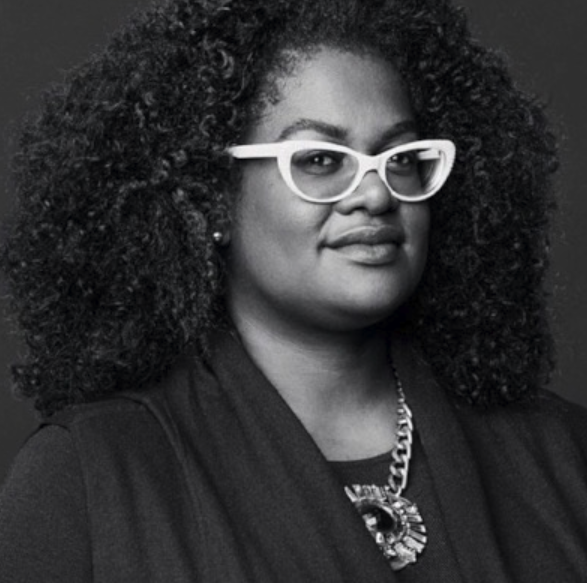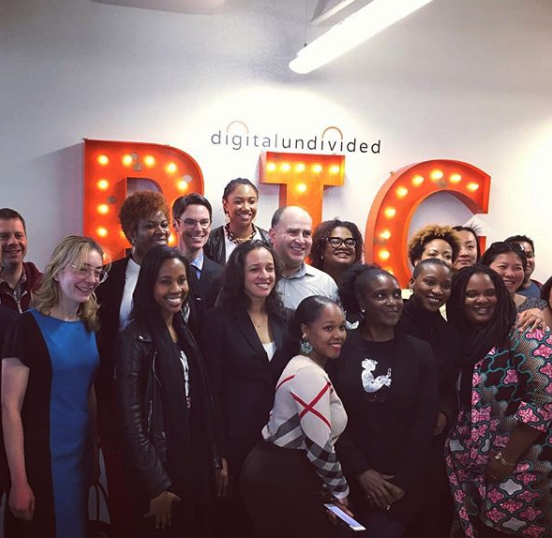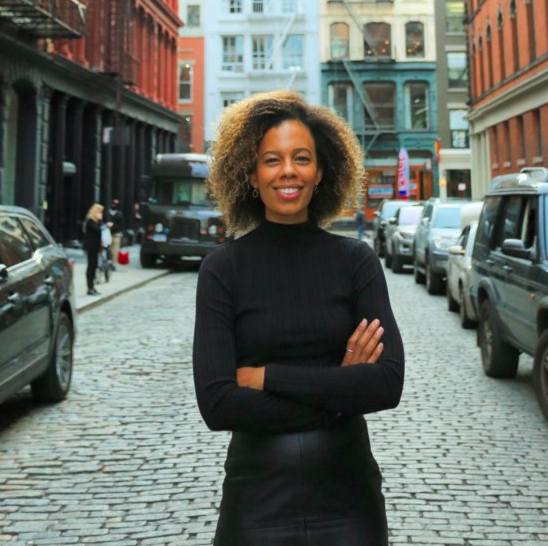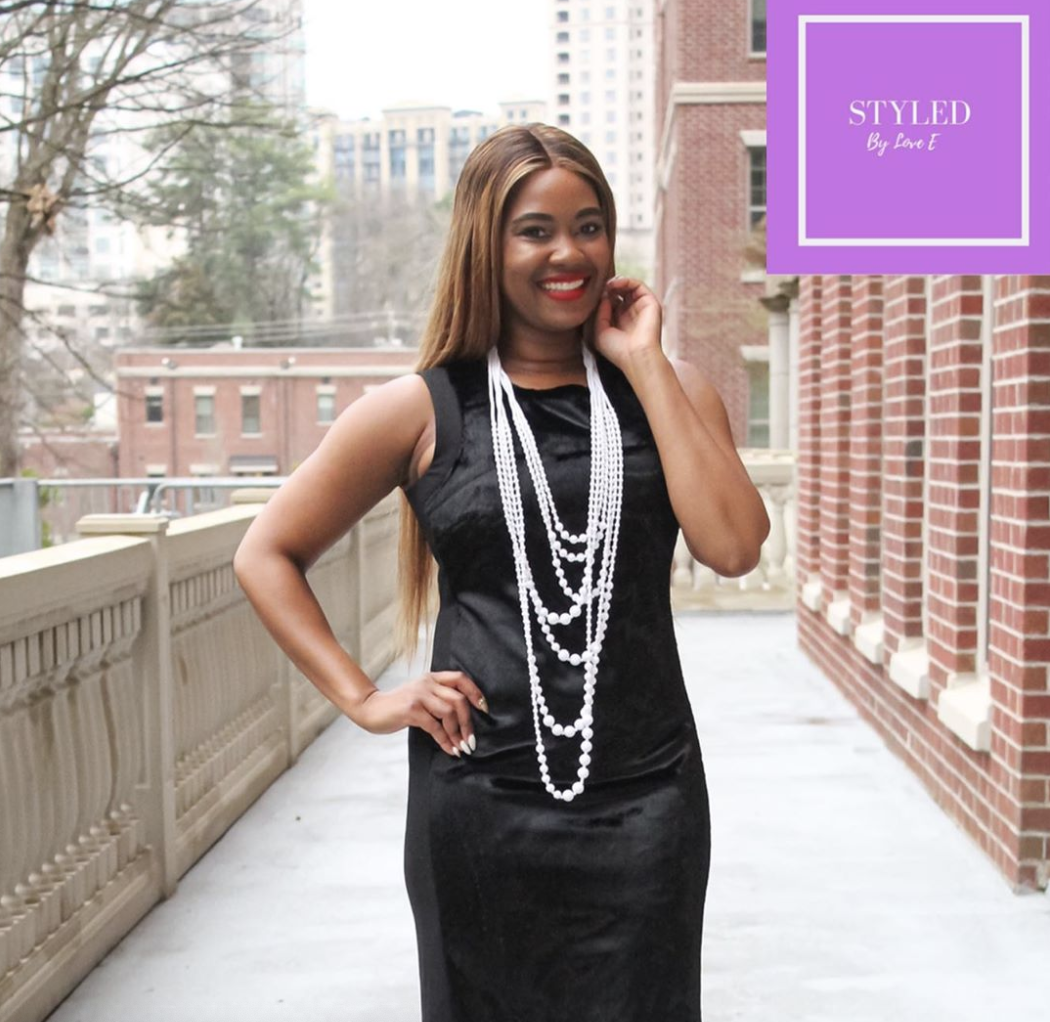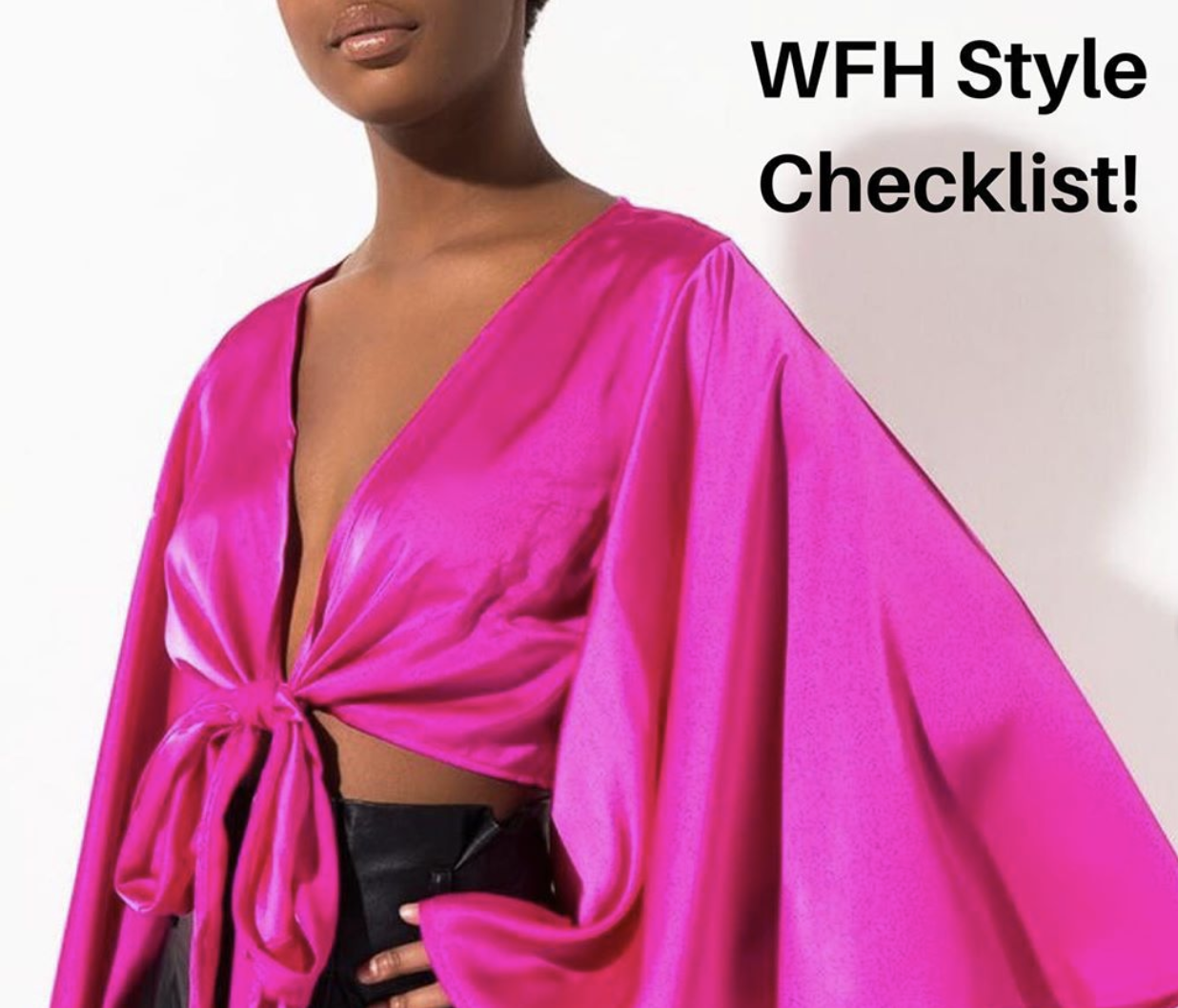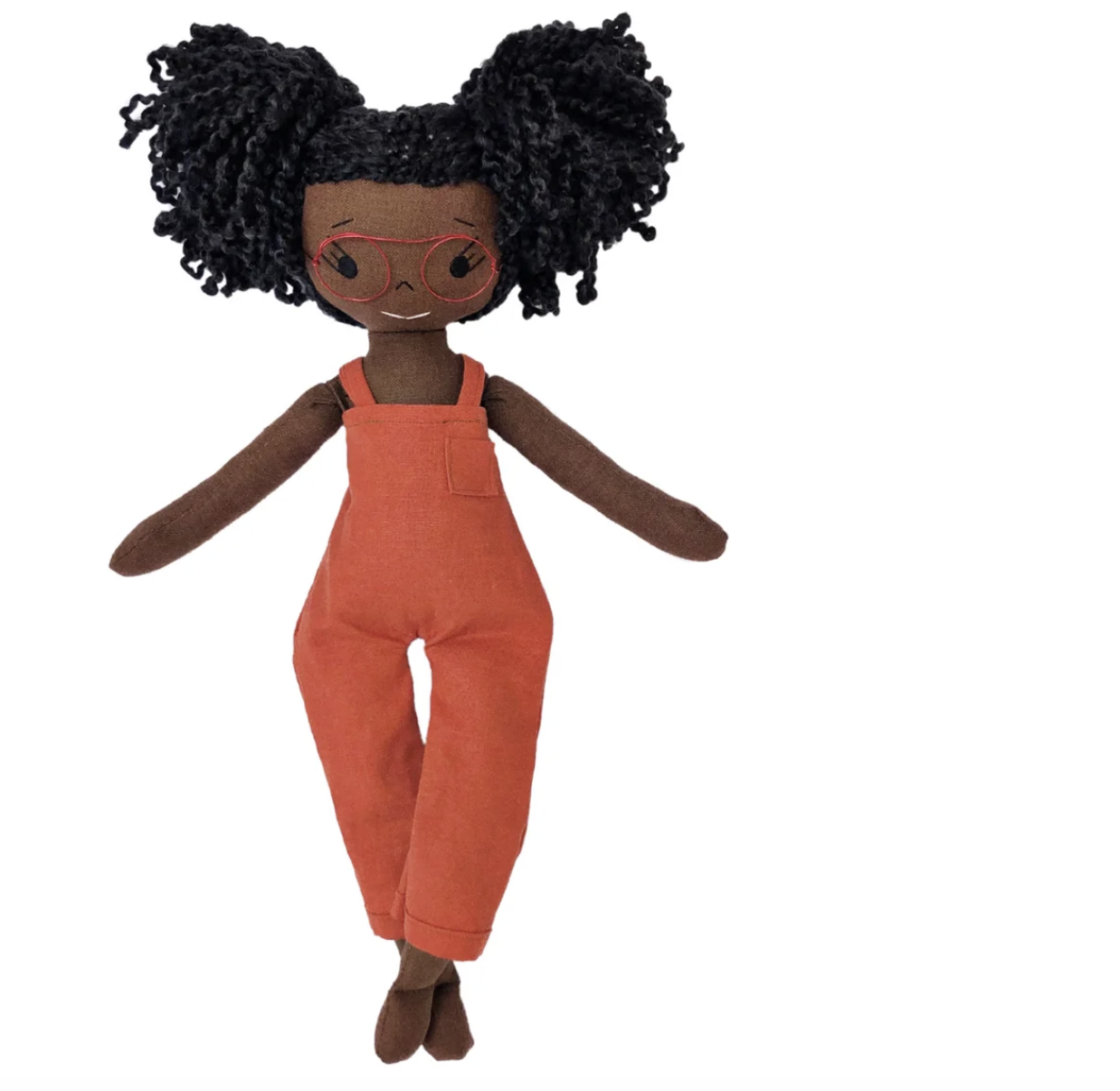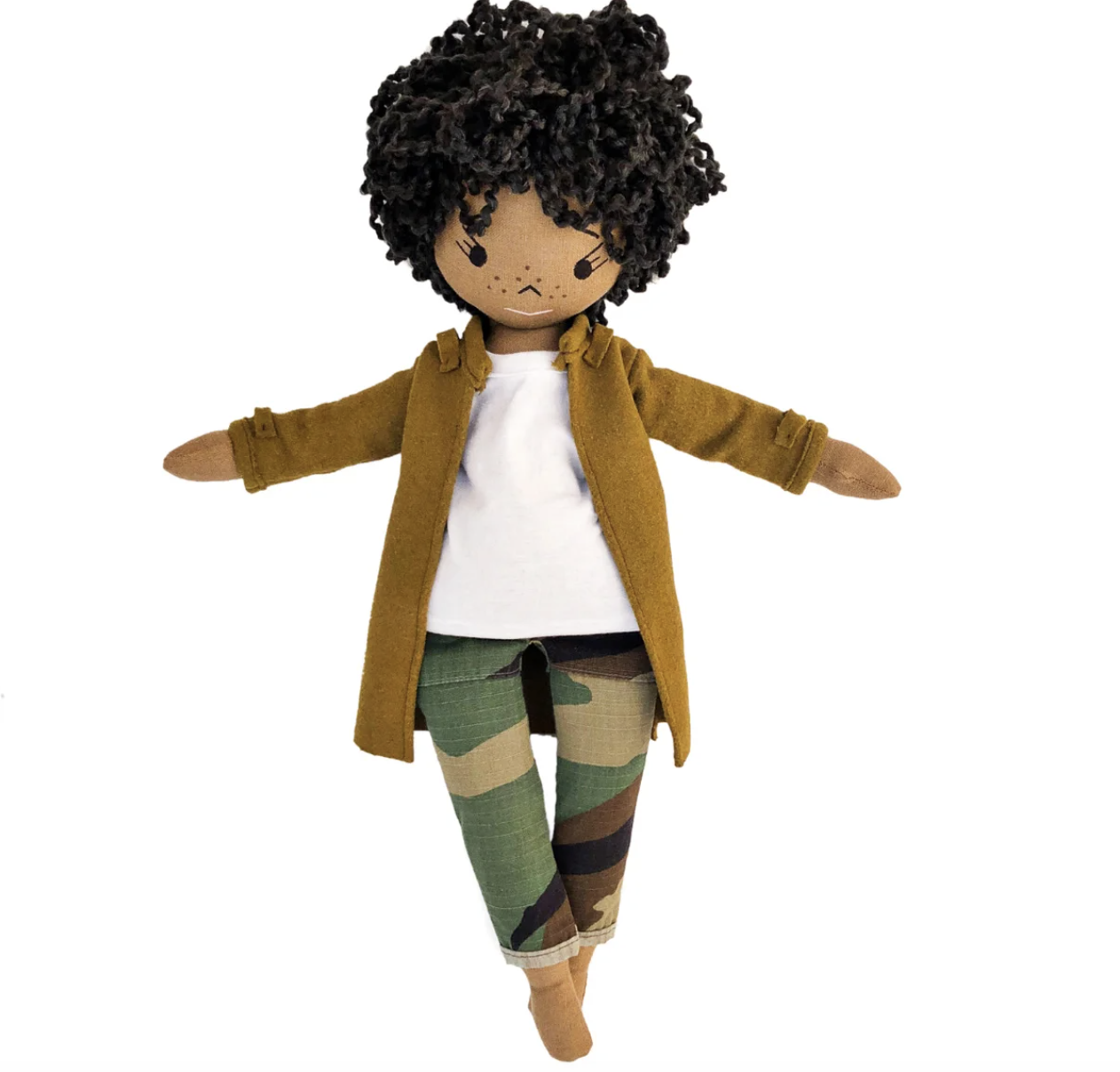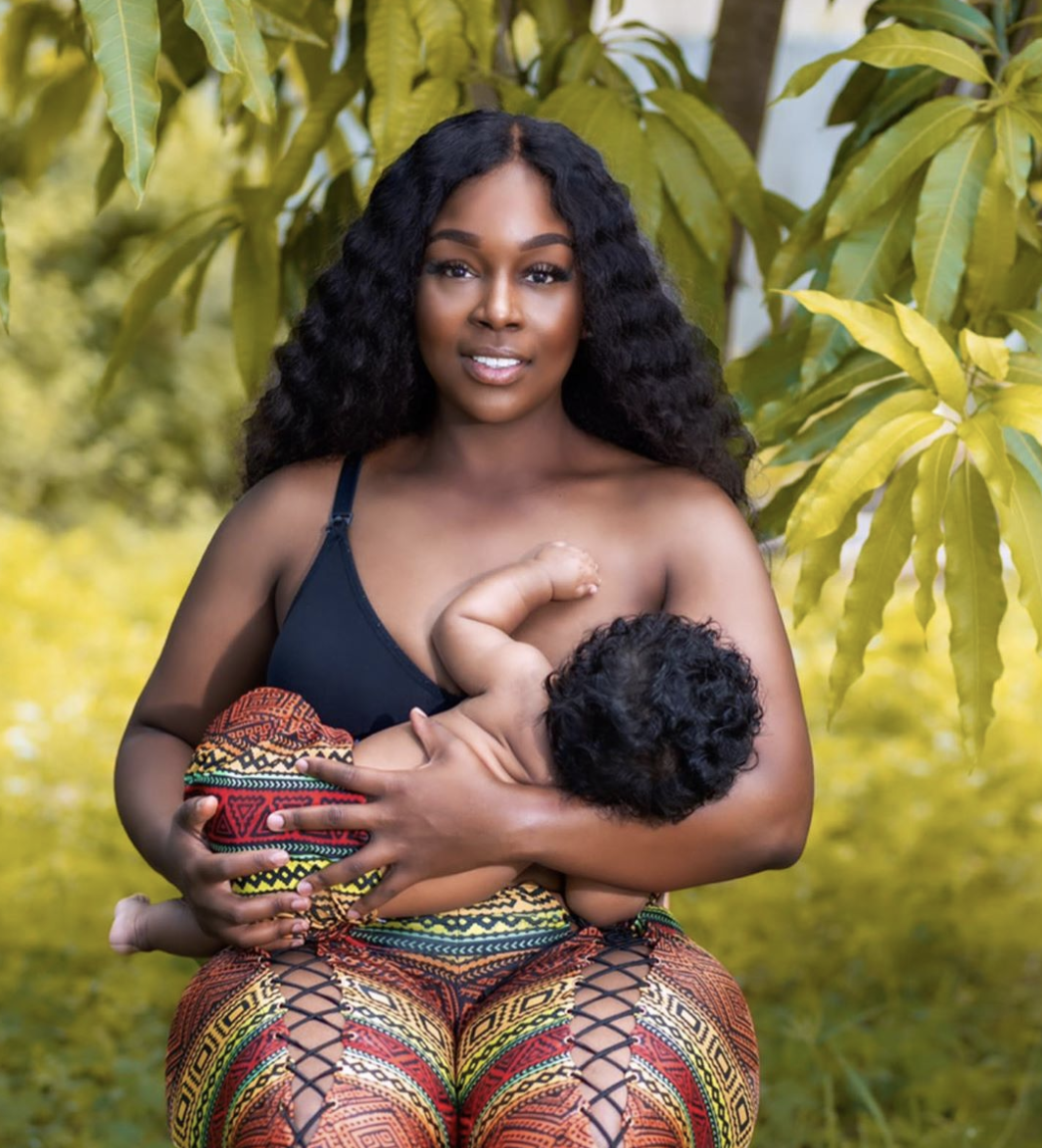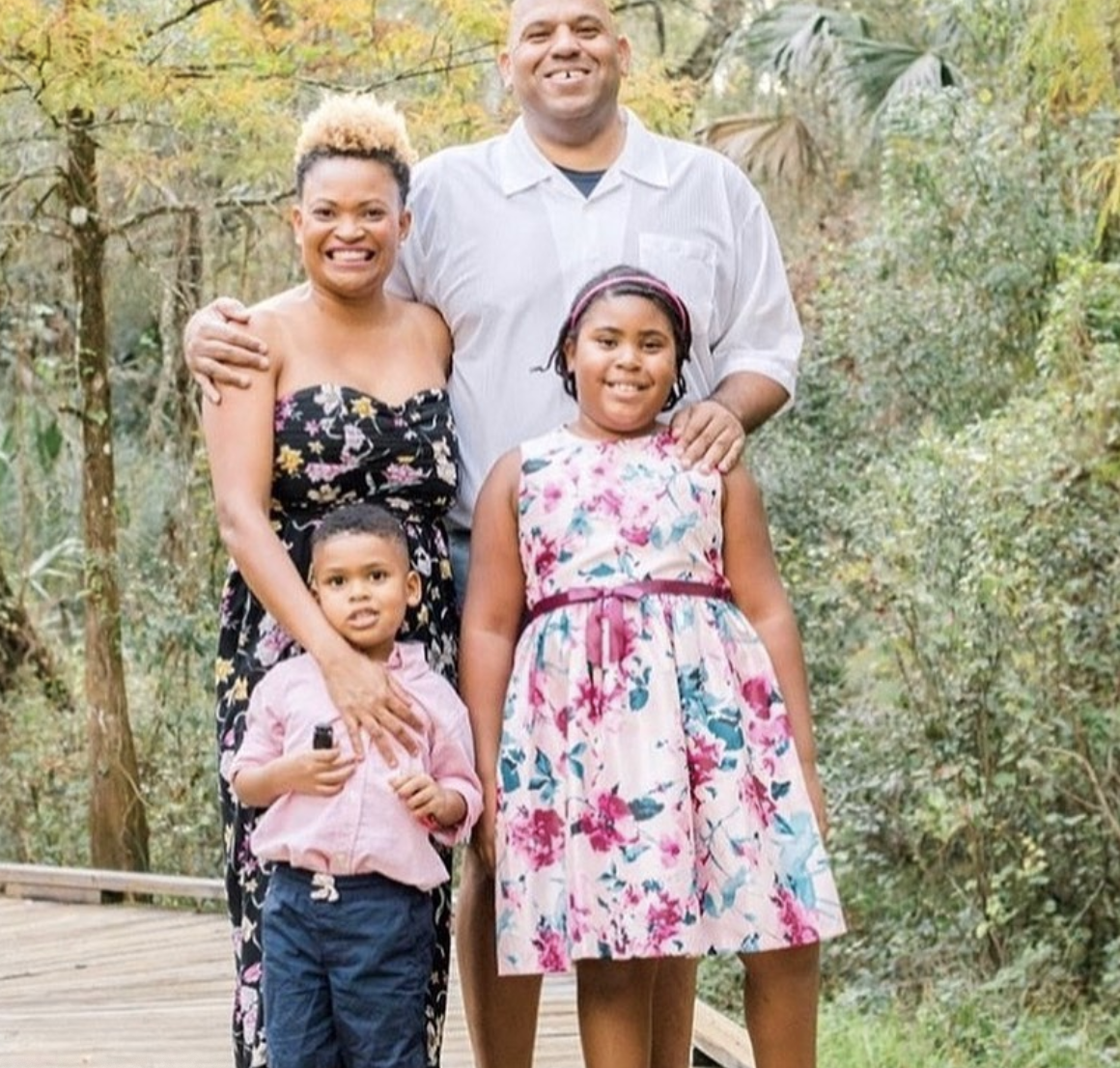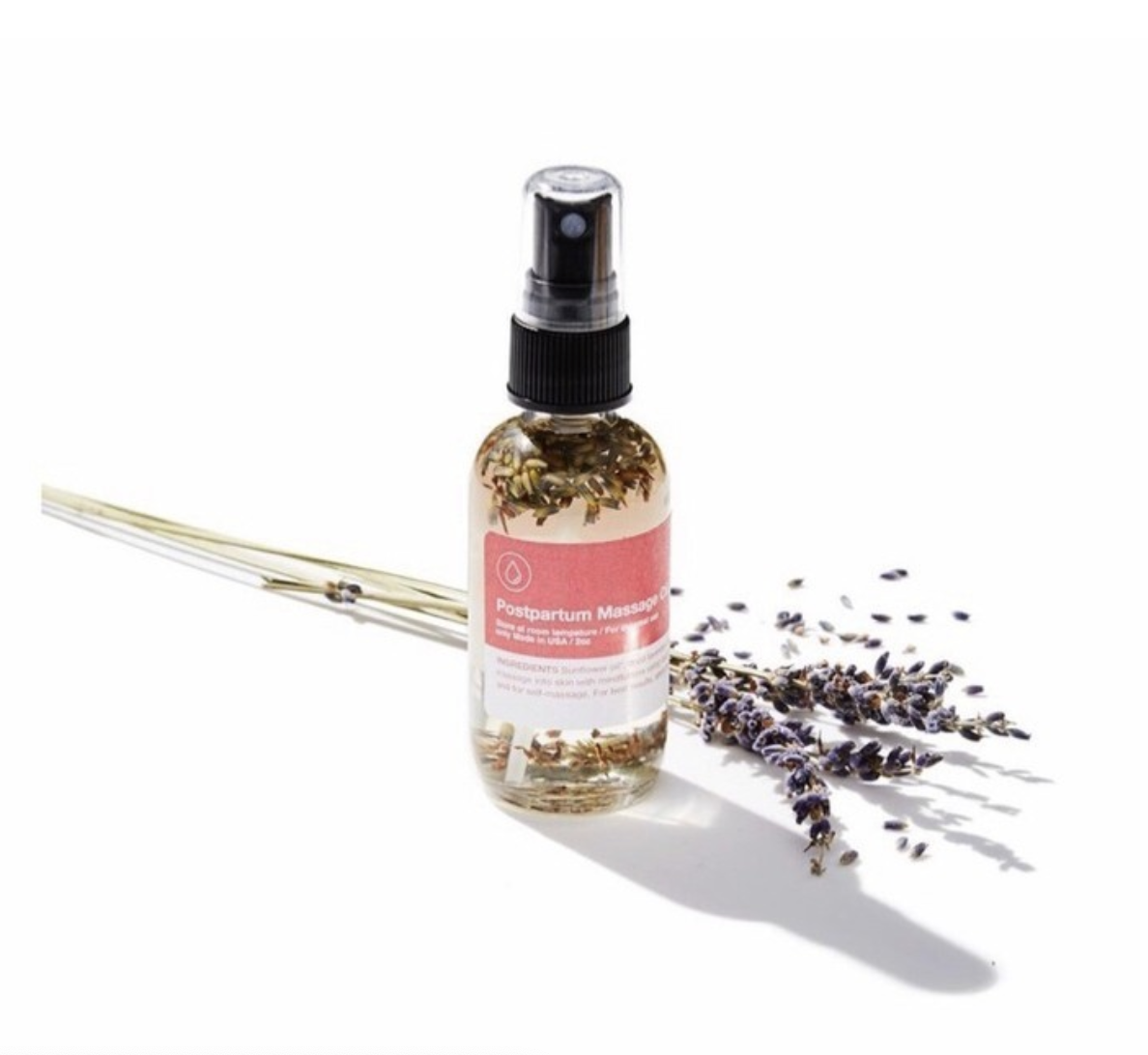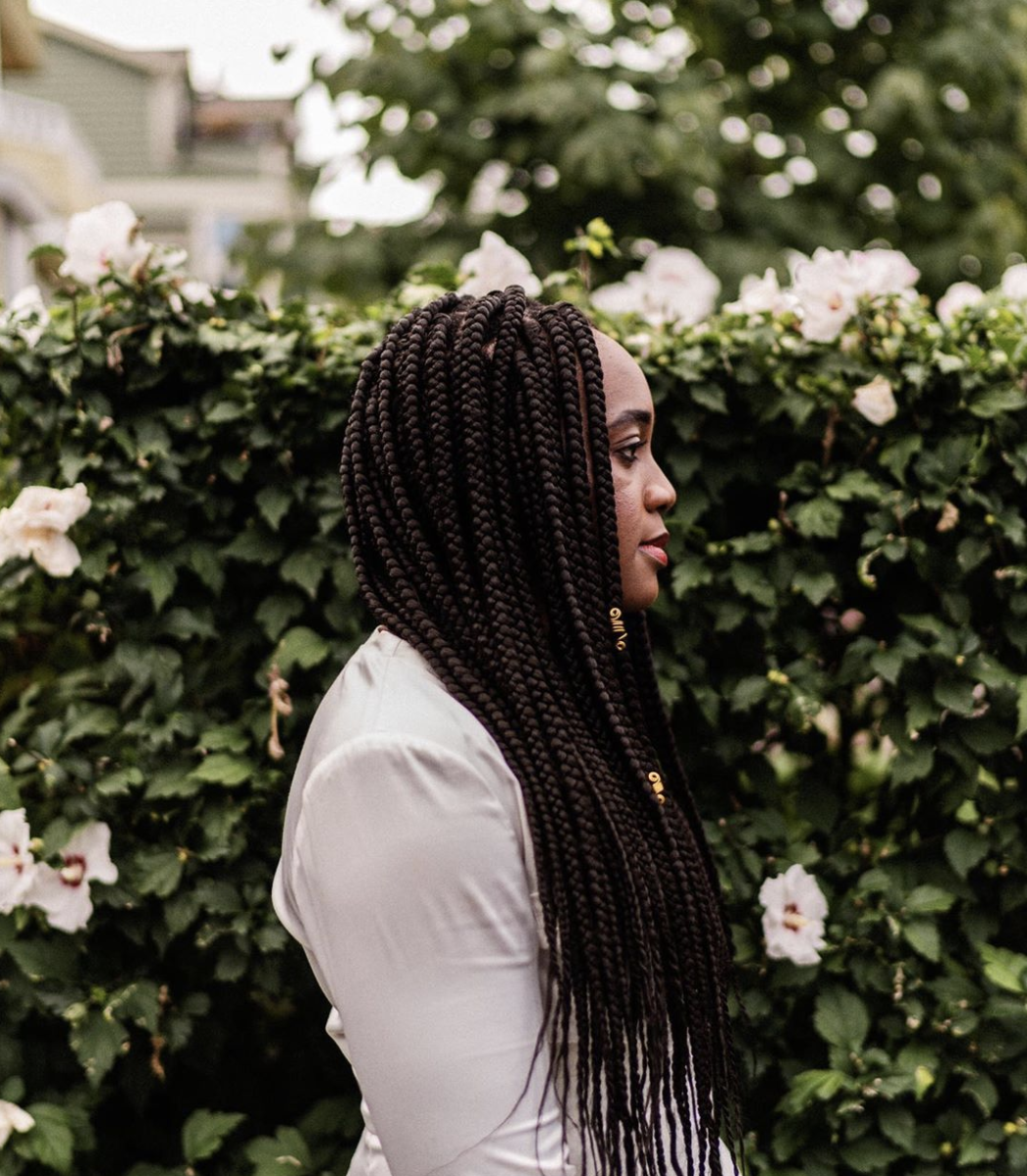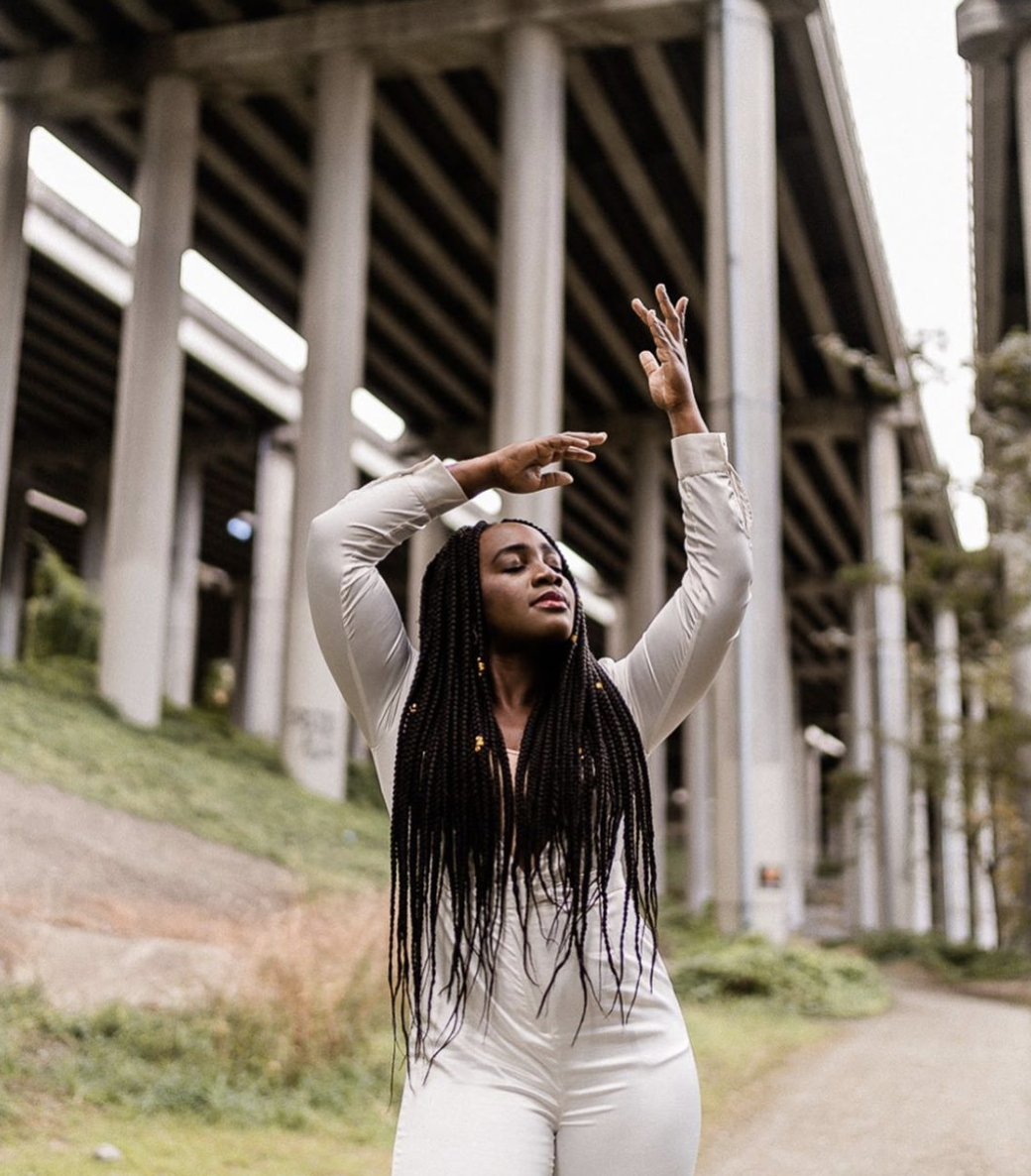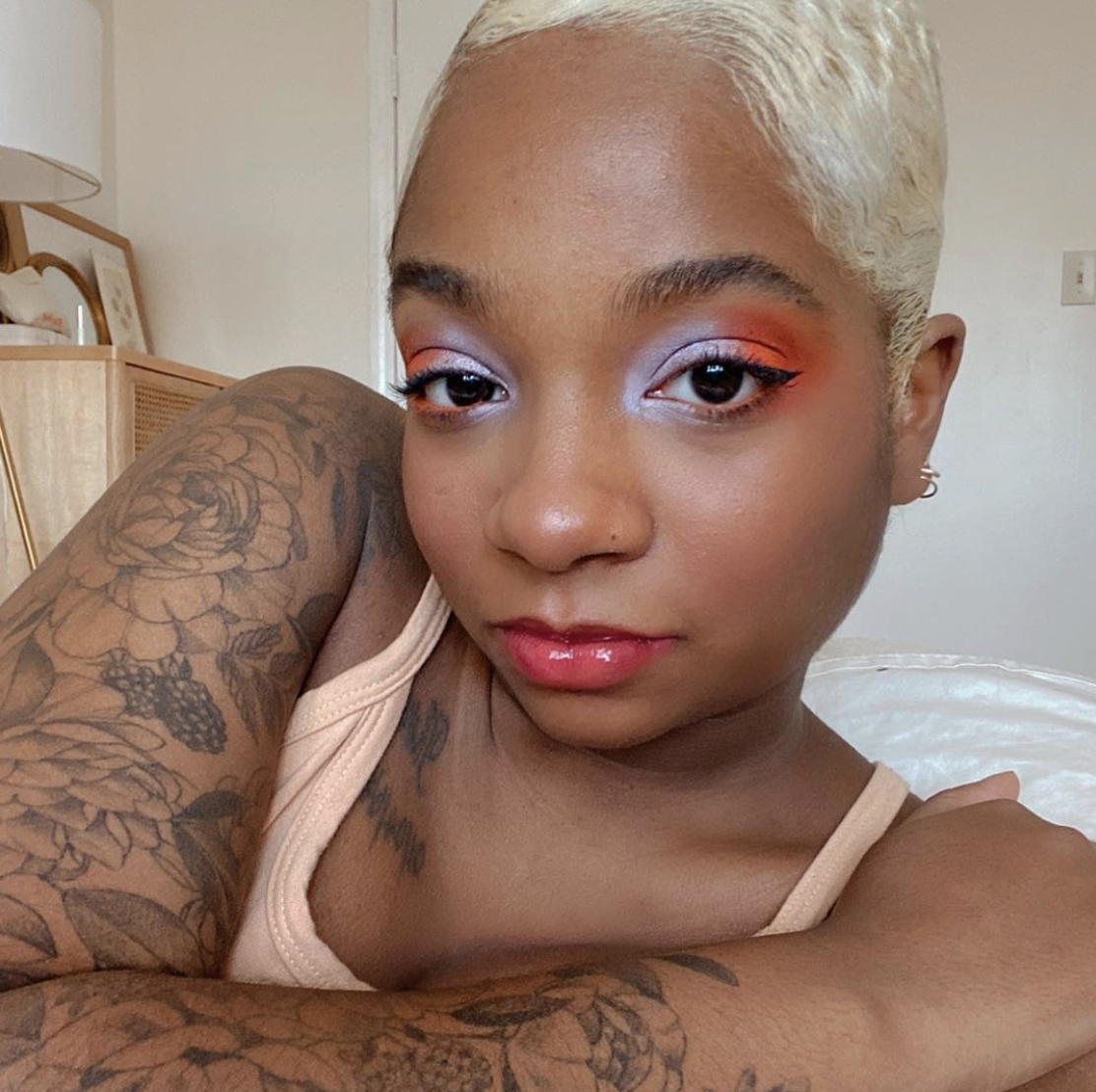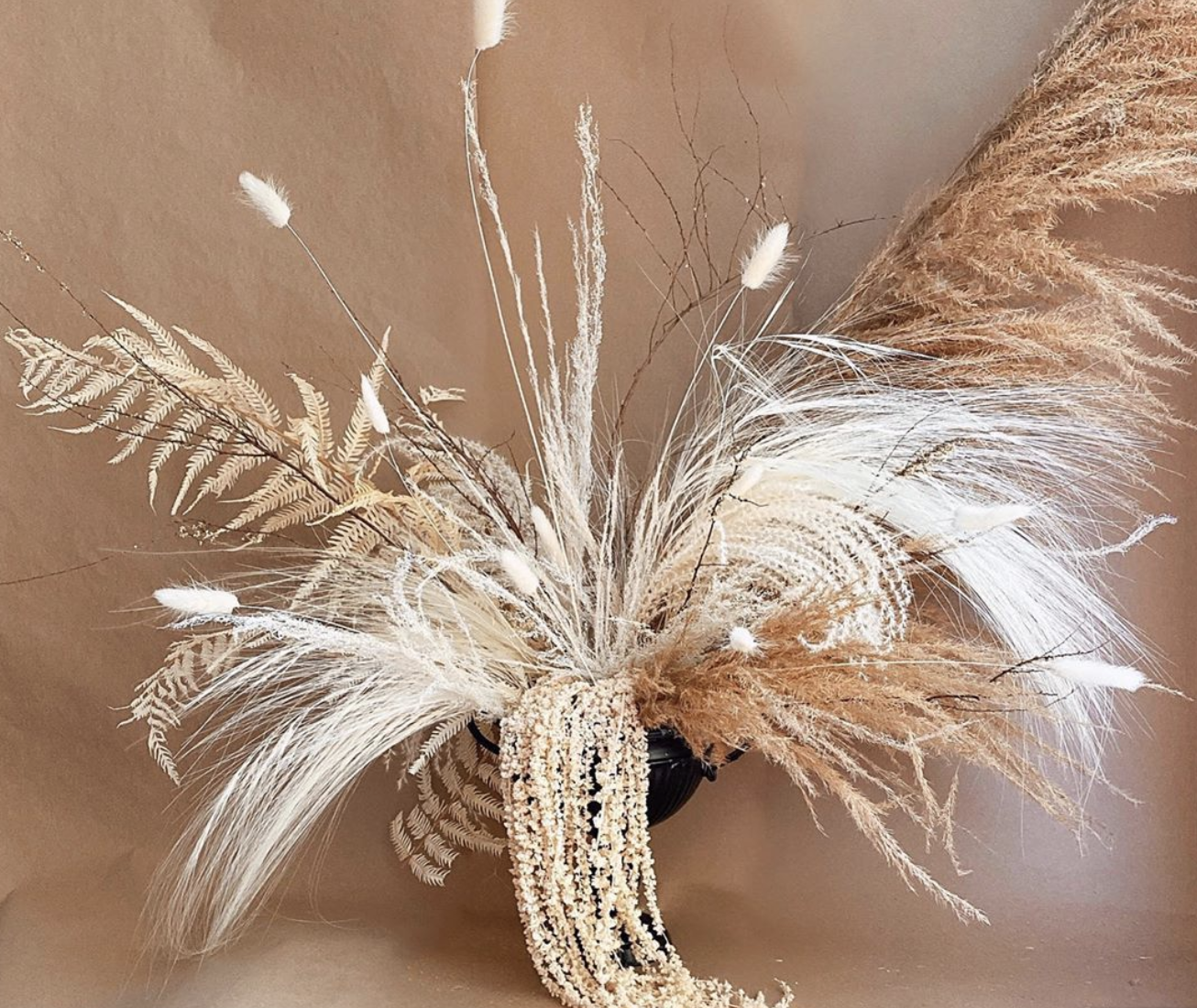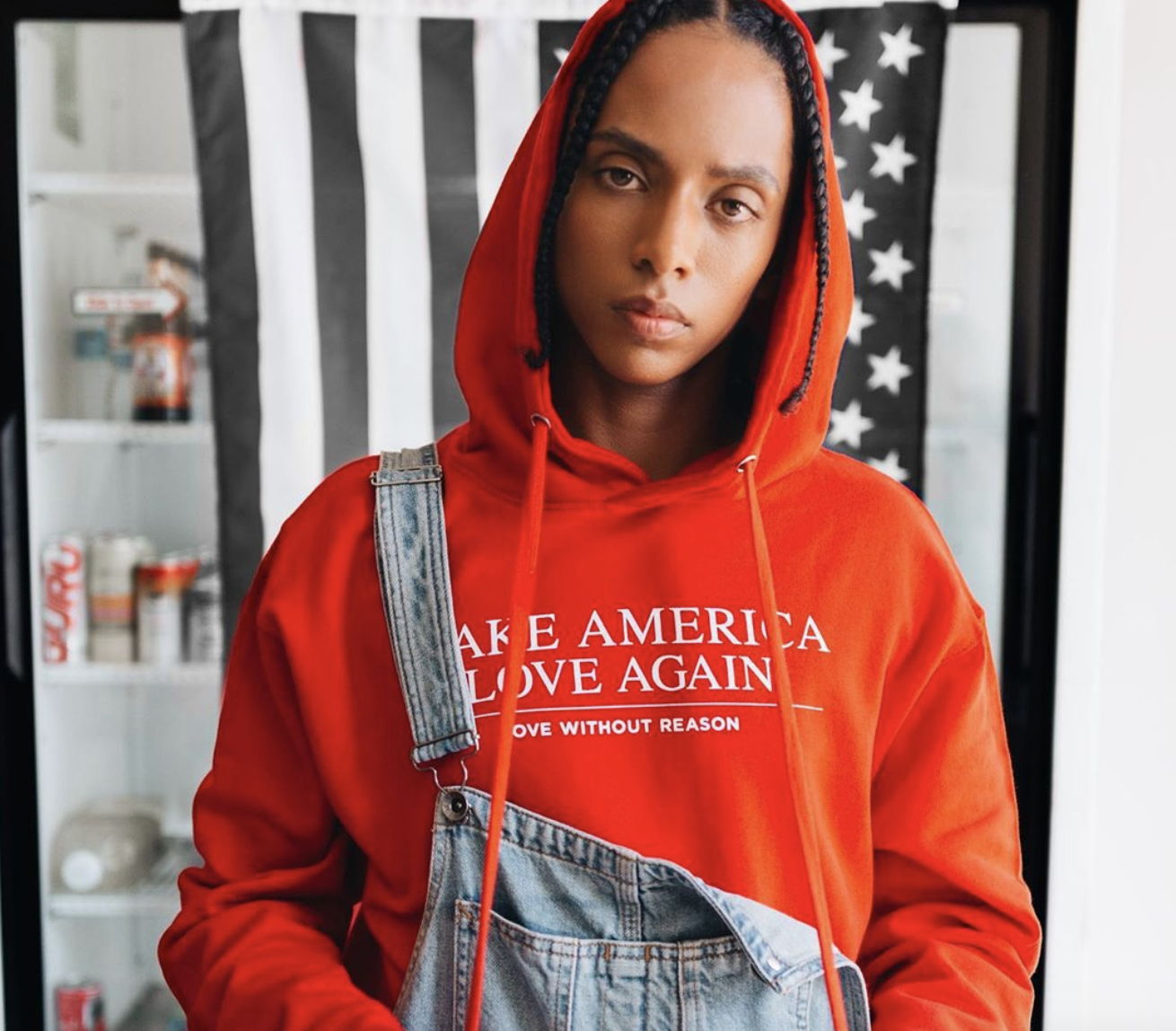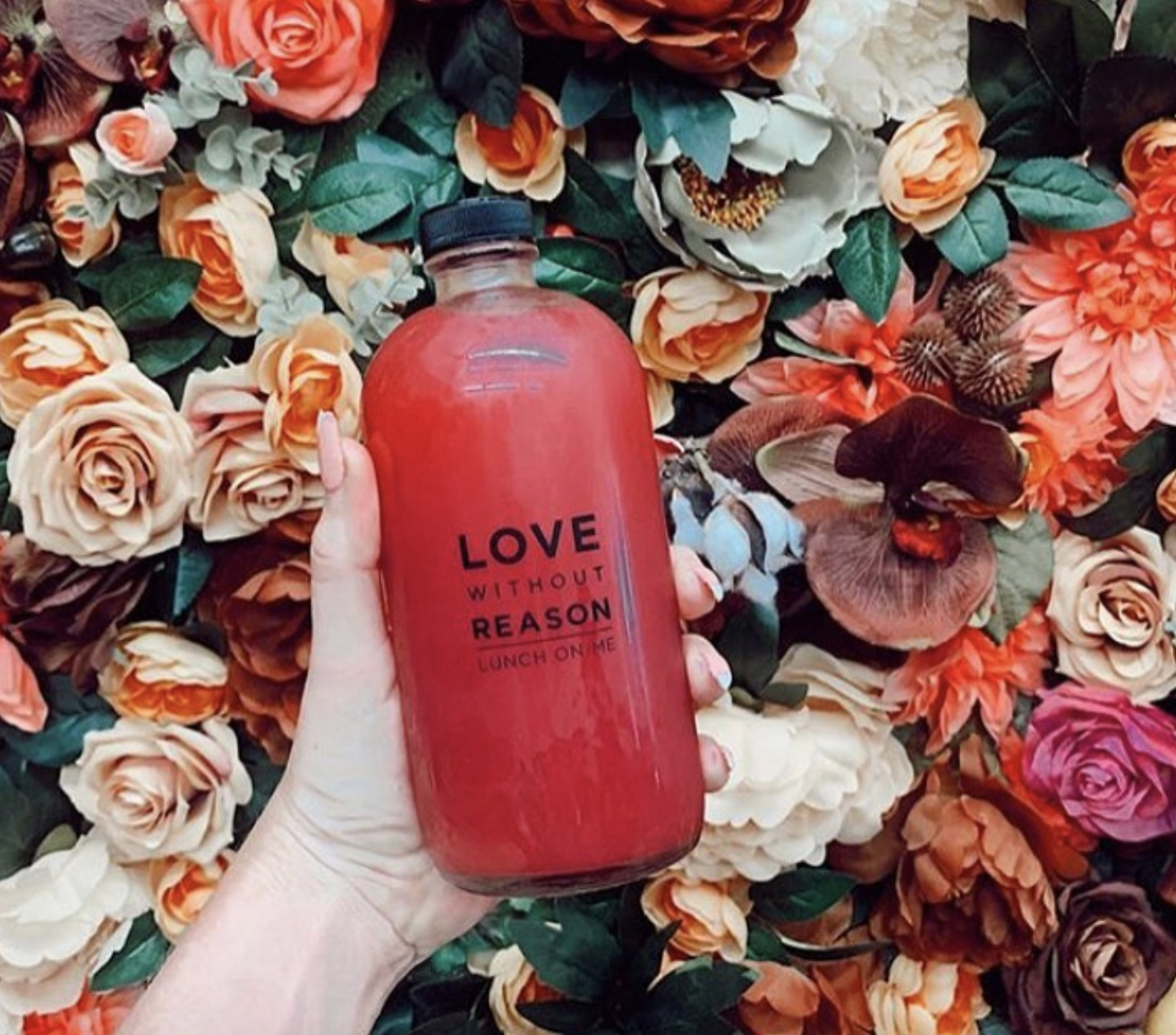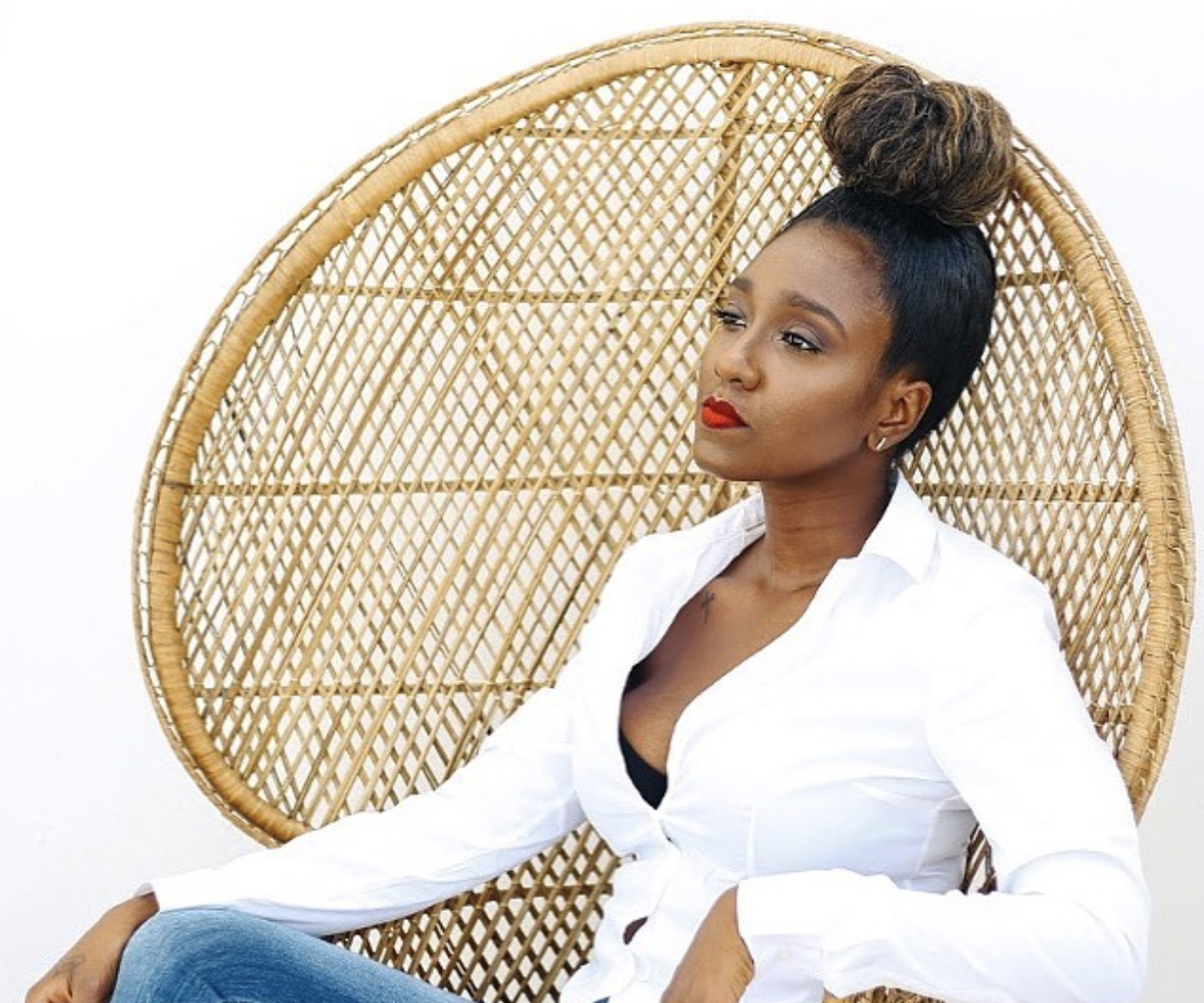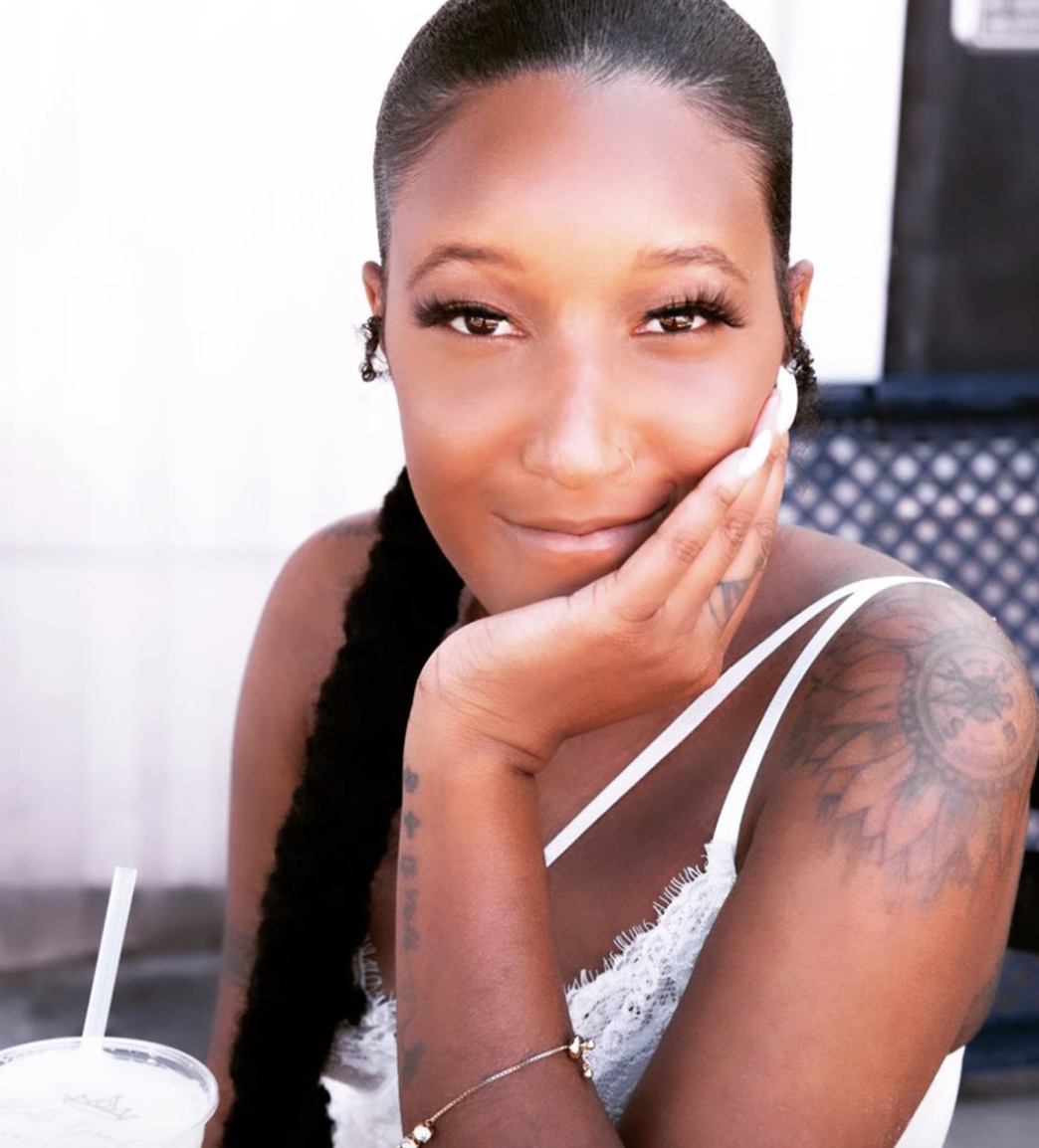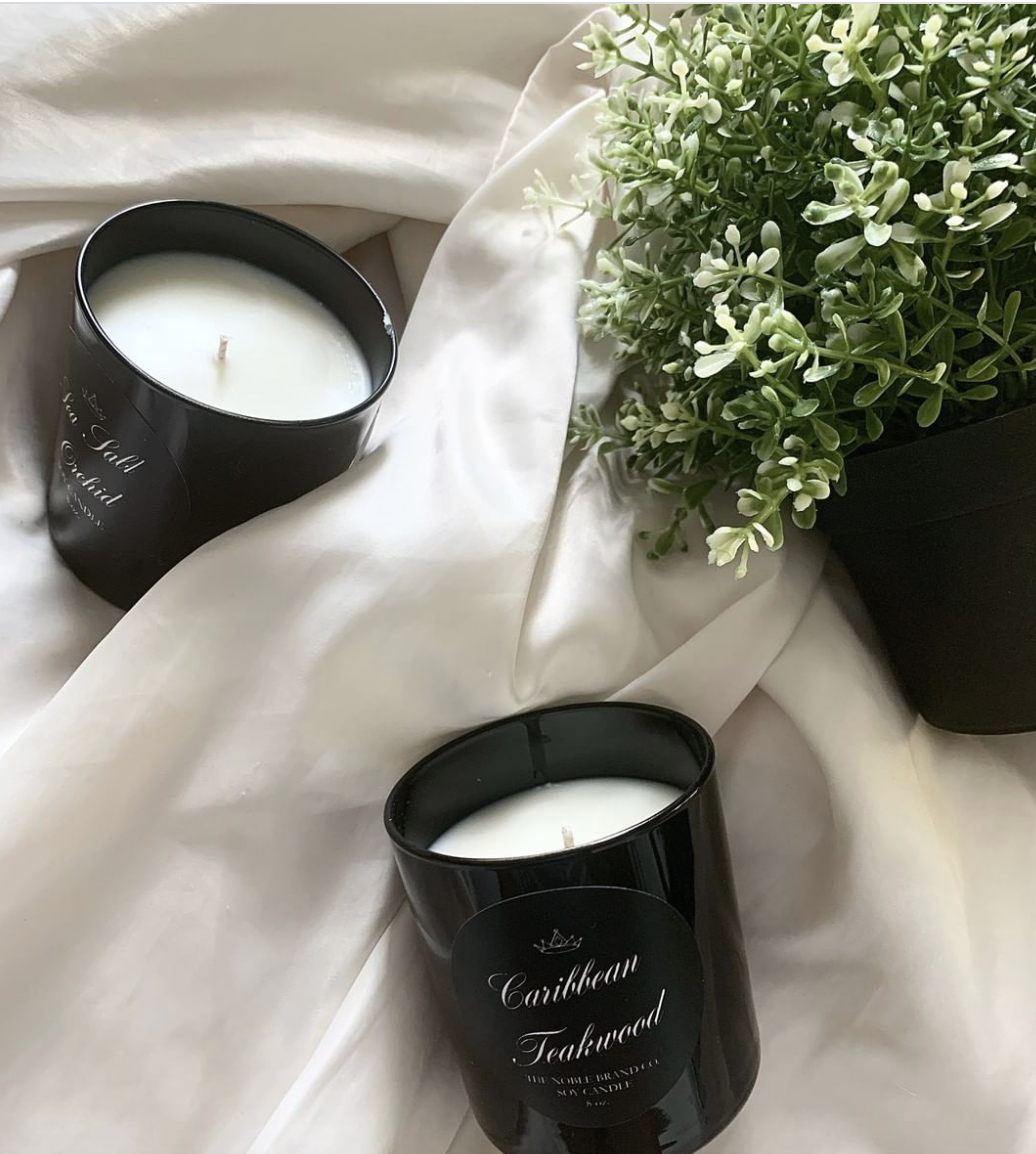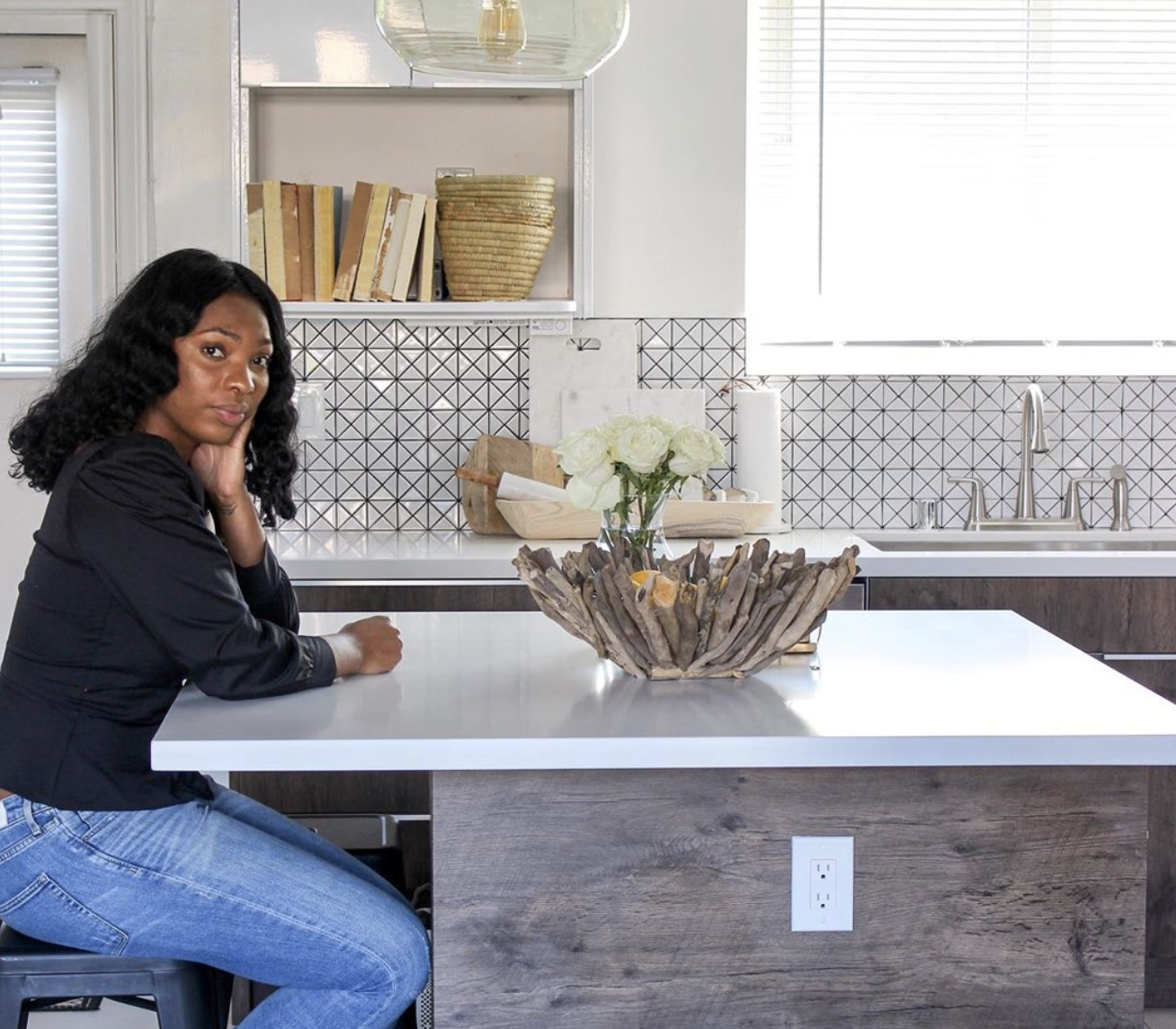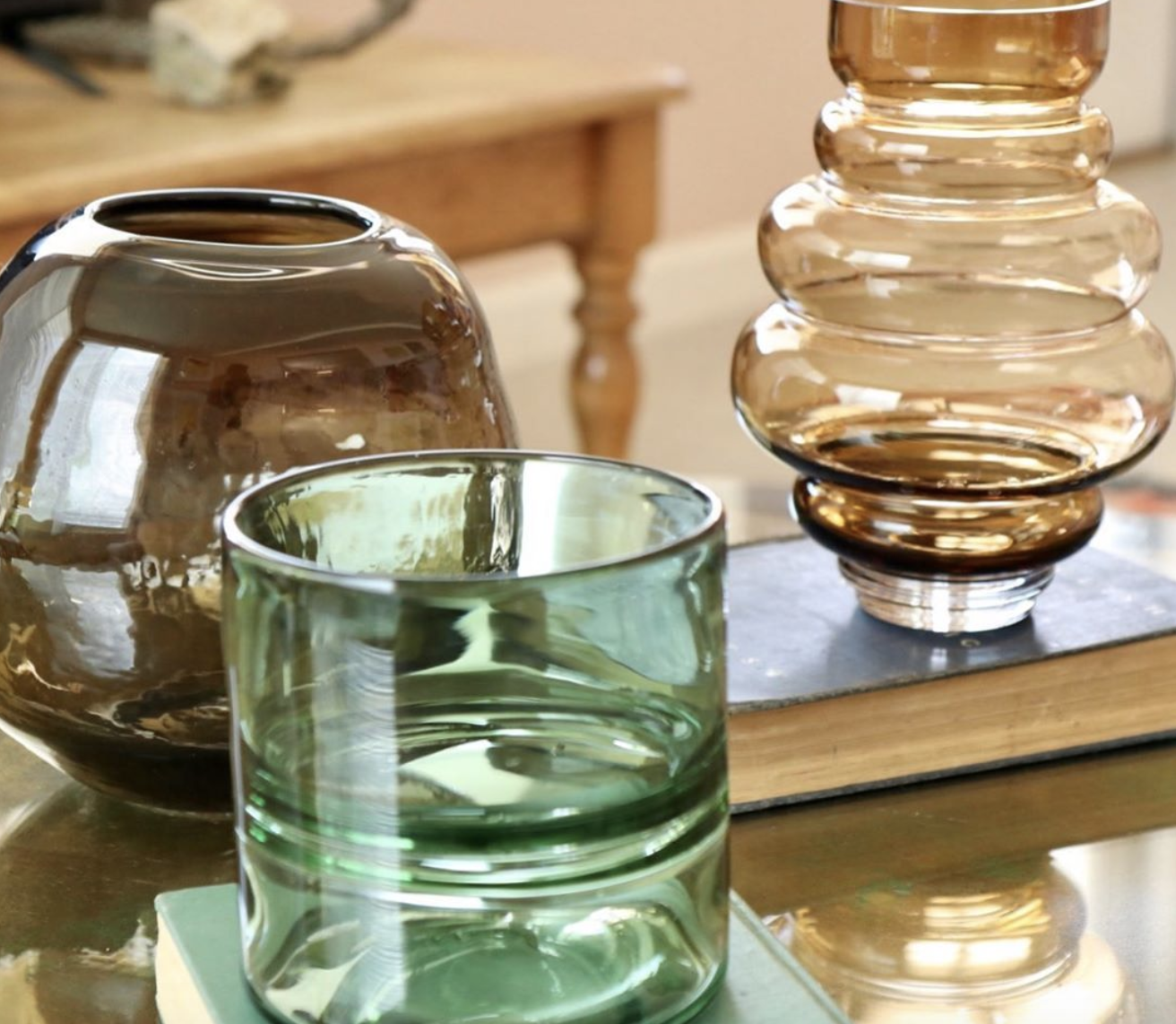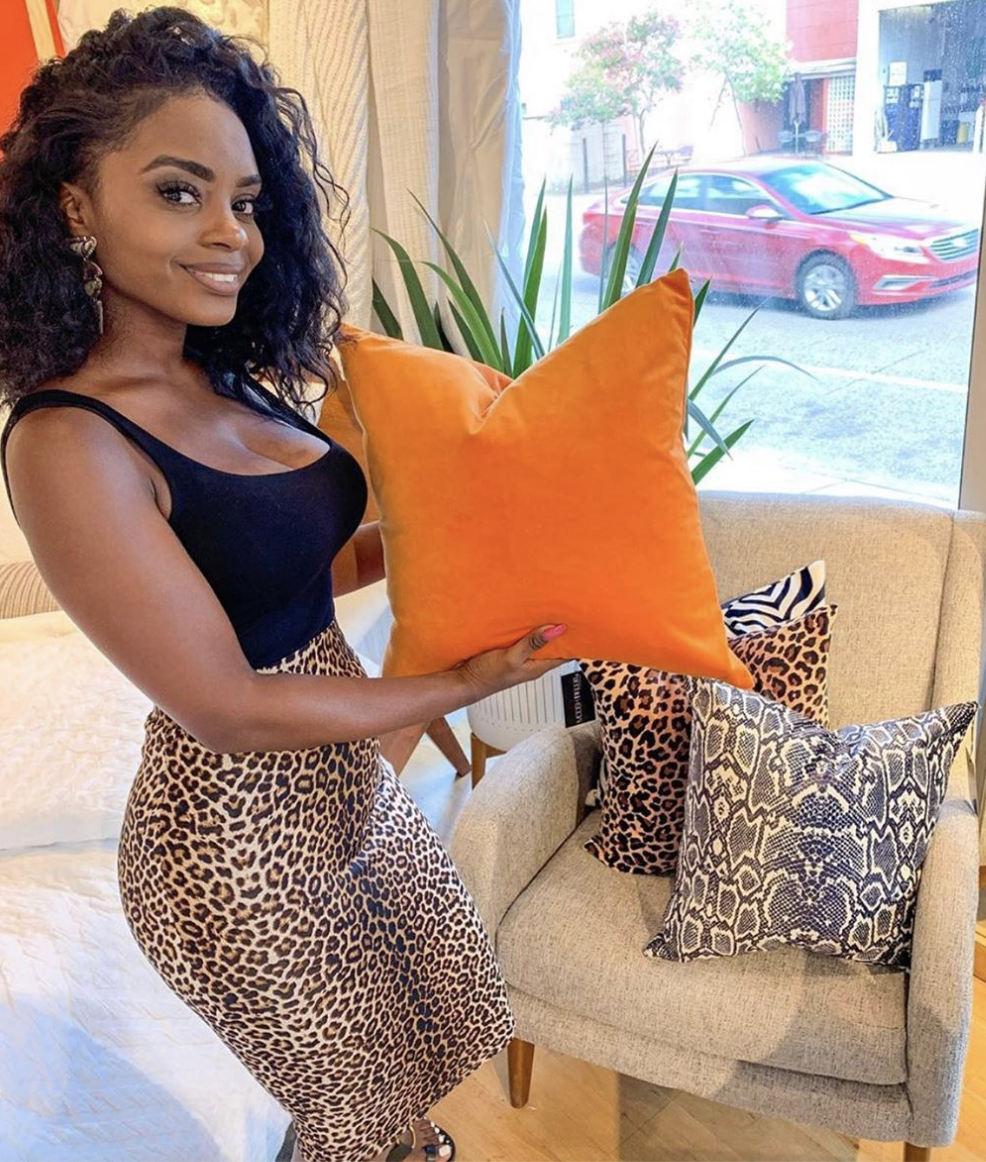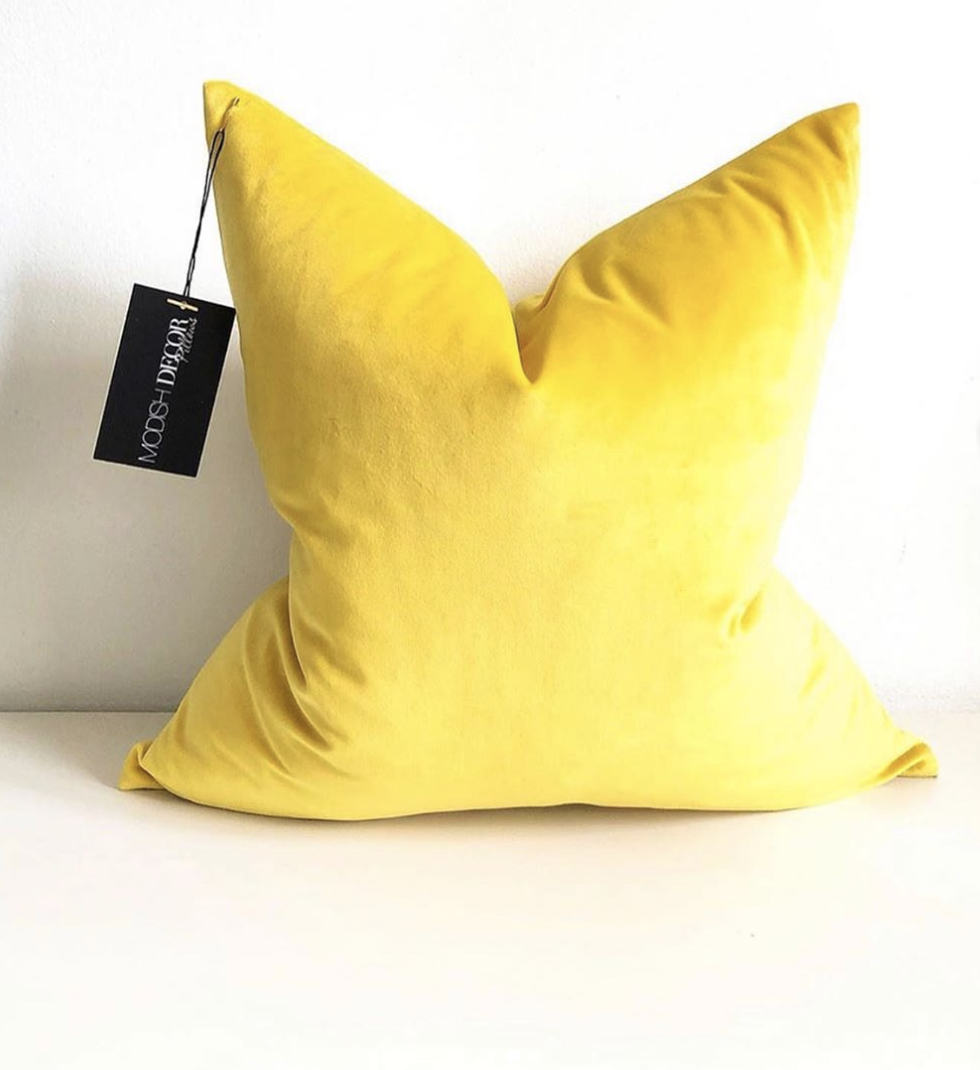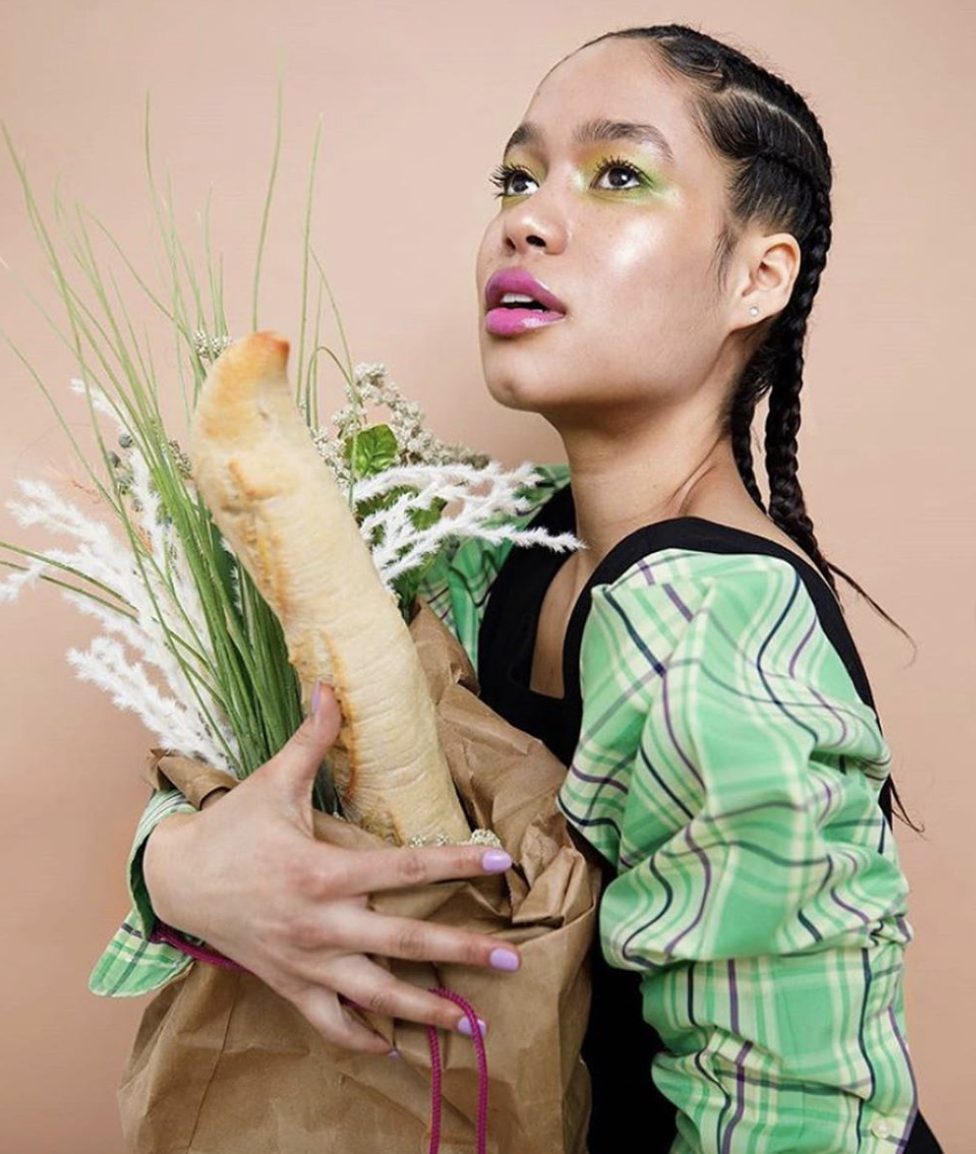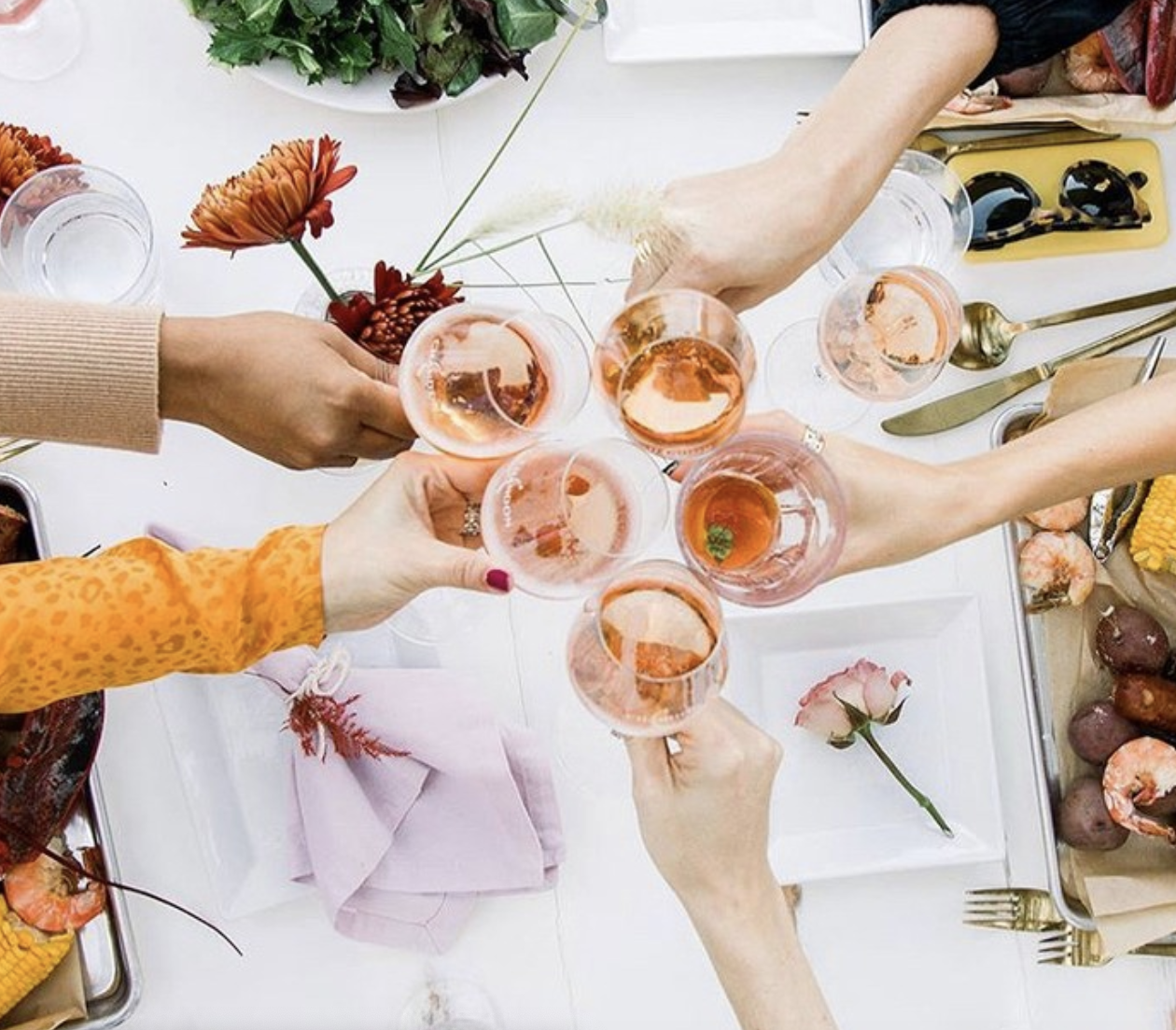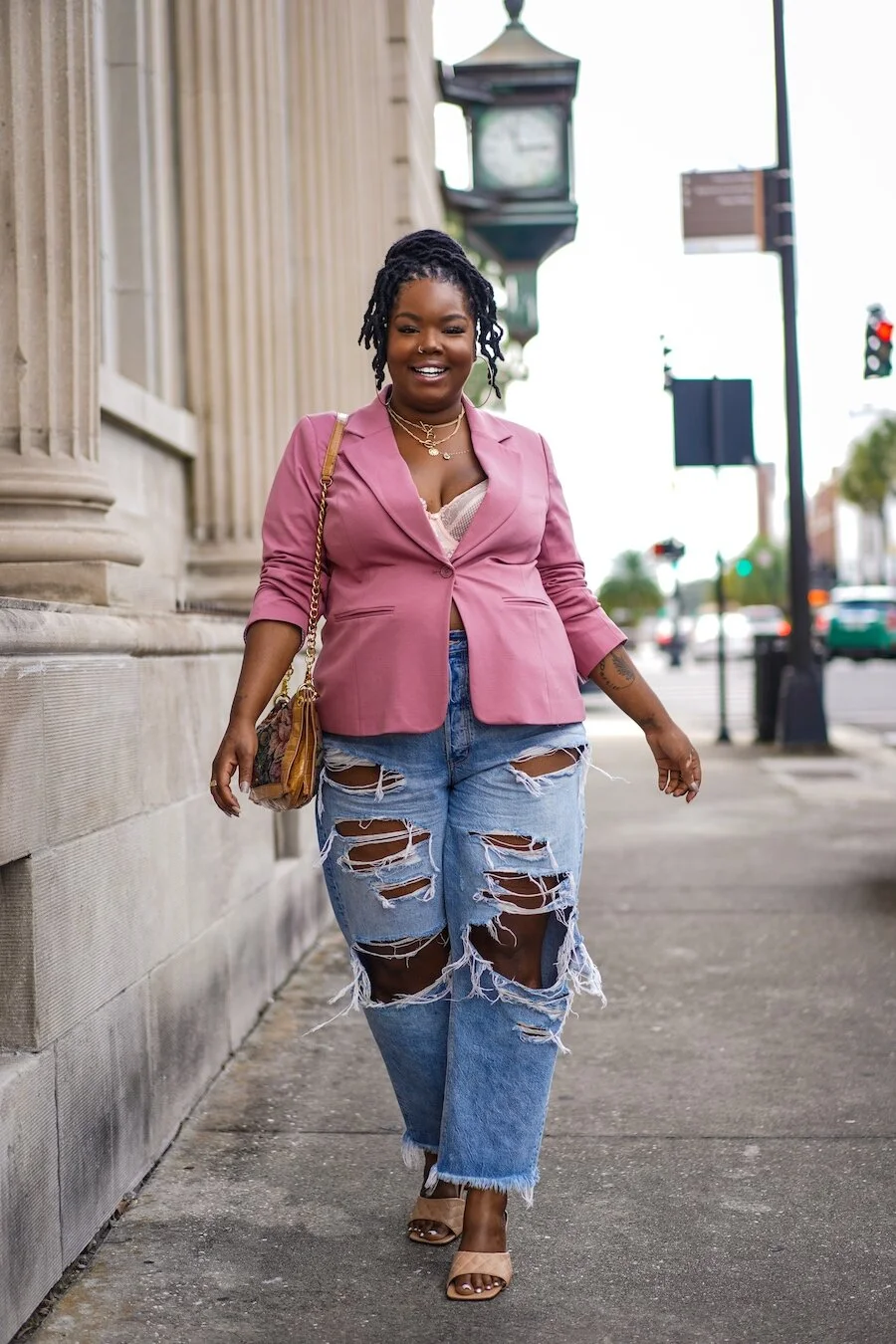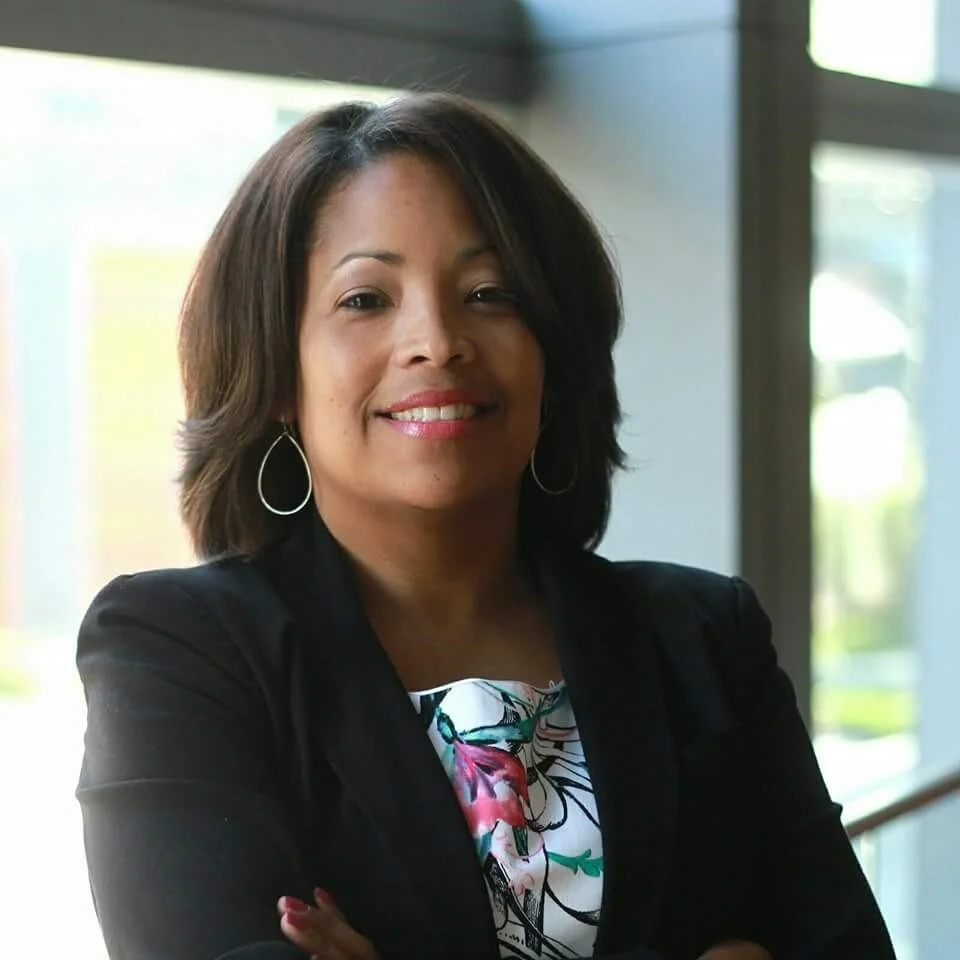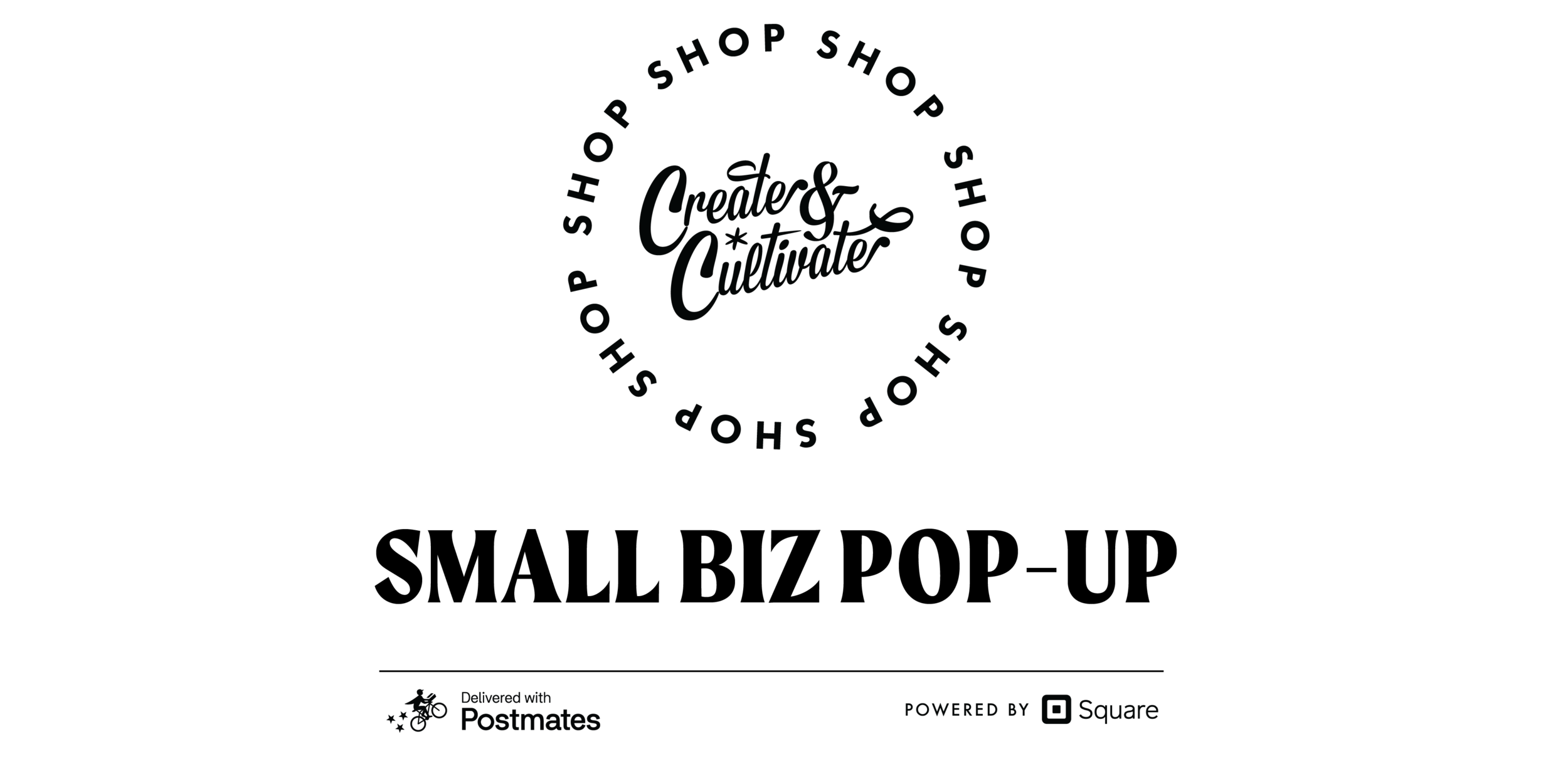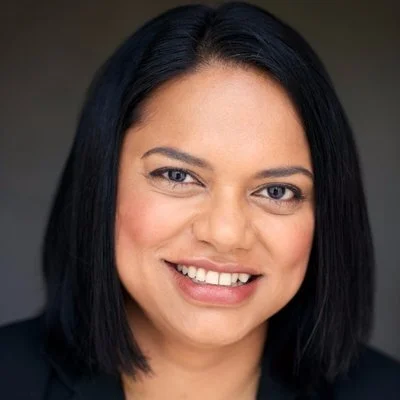How Lesbians Who Tech & Allies Founder Leanne Pittsford Is Increasing LGBTQ Representation in Tech
“Knowing we are responsible for making the invisible, visible is everything.”
Photo: Courtesy of Leanne Pittsford
Welcome to our monthly editorial series A Day in the Life where we ask successful women we admire to share the daily minutiae of their professional lives, from the rituals that set them up for success to their evening wind-down routines. This month, we caught up with Leanne Pittsford, founder of Lesbians Who Tech & Allies and Include.io, to talk about making the tech industry more inclusive, bringing LGBTQ women and non-binary tech folks together, and being included in Fast Company’s Queer 50.
Tell us a bit about Lesbians Who Tech & Allies and what inspired you to launch your business. What whitespace did you see in the market? What need did you want to fill?
Ha, such a big question. Basically, when I started my tech company back in the day, I struggled to find LGBTQ women as role models and peers. Every event I went to, I noticed LGBTQ women were missing from the conversation. I wanted to make sure our voices were represented and I knew if I struggled finding a community then maybe there were others who were looking for the same thing. Turns out, there were so many more than I originally anticipated. Since the start of Lesbians Who Tech & Allies, I’ve seen more communities coming together creating organizations to make tech more representative and it’s really impactful.
You’re also the founder of Include.io, a platform that connects diverse tech job seekers with great companies. What compelled you to launch this platform?
I’ve always been involved in LGBTQ organizations and have made an active effort to continue creating conversations around representation and inclusion in workplaces, tech specifically. I was the senior director of equality in California, which led the fight against Prop 8 (which aimed to make same-sex marriage illegal). I kind of fell in love with tech after being so in the trenches with this campaign. The data, the community, and the passion is really what led to my career moves. Through shared experiences and talking with others, I realized that a lot of other queer tech folks experienced the same issues within the tech space.
Now, let’s talk about your workday routine! First, are you a night owl or a morning person? When do you do your most important work and why?
In my old life, I was a night owl. Now, post two babies, I am a whenever-the-coffee-hits-my-bloodstream person.
What time does your alarm go off, and what’s the first thing you do upon waking?
What alarm? I am just breastfeeding all night right now. I typically just set a mental alarm. I take too much advantage of the snooze button when I use them.
What does your morning, pre-work routine look like?
Feeding all the children and pups, and making my Moka pot coffee with beans from one of my favorite coffee shops.
Mark Twain said, “Eat a live frog first thing in the morning and nothing worse will happen to you the rest of the day.” What’s the first thing you do when you get to your desk?
I usually send a few voice notes to a few teammates to check-in for the day’s to-do list!
What are you working on this week?
Pride Summit! We just launched the agenda today!
What’s been the most rewarding part of running your business?
My favorite part is being in the Castro Theatre with all of my people, and feeling the energy that only comes from thousands of LGBTQ women and non-binary folks getting together in one room. I never would’ve thought that something I started would end up being the largest LGBTQ professional event and the largest event for women in tech globally (last year, anyway). Not to mention this year’s Fast Company’s Queer 50. Knowing we are responsible for making the invisible, visible is everything.
Do you ever reach inbox zero? How do you handle the constant influx of inquiries and communication founders are so familiar with?
Twice a year, usually two to three weeks after Summit.
What is your go-to work lunch?
Cheez-Its.
MORE ON THE BLOG
How 11 Honoré Design Director Danielle Williams-Eke Is Making the Fashion Industry Size-Inclusive
"My hope is that inclusivity and diversity become the standard."
Photo: Courtesy of Danielle Williams-Eke
Early on, I never really thought of designing plus-size clothing. Truthfully, nine years into my career with a bachelor’s and master’s in fashion, I still felt that my future was to design straight-size clothing. I always wanted to design high-end contemporary womenswear. Traditional education teaches about the “fashion greats” including Coco Chanel, Christian Dior, Cristóbal Balenciaga, and more. I fell in love with them and fashion. I recently looked back through my 2009 graduation portfolio and it struck me that all the assignments included tall, slim figures, perfectly following the "nine head rule" with six-foot-tall, size-two women. Not a curve in sight. This wasn't by choice; this was how I was required to design to make the grade. The curriculum was void of any trace of plus-size fashion. One could only take this to mean that plus-size women weren't welcome in the fashion industry.
Since I am a plus-sized woman, essentially, I wasn't welcome in the fashion industry. Imagine loving and working in an industry that refused to acknowledge you. This forced many plus-size women, like me, to seek out the brands that recognized our existence. It was like a scavenger hunt. When I occasionally discovered a new brand that got it, there was a great feeling of being seen and served. I remember that feeling back in 2004 when I found Torrid for the first time while shopping for my sweet 16 outfit. While a few other plus-size lines popped up in the well-known chains, I didn't see this recognition in luxury fashion. Plus-size women weren't on runways. Designer and contemporary brands didn't produce their clothing above a size 12 or 14.
“Since I am a plus-sized woman, essentially, I wasn’t welcome in the fashion industry. ”
Then, in 2018, I discovered 11 Honoré and I knew this was something different. The brand offers plus-size high-end fashion, which was something I never thought was possible. It was around this time that I also attended The Curvy Con for the first time during New York Fashion Week. This was also the Fashion Week that Kellie Brown launched #FatAtFashionWeek. In her words, "We are here, we work in this industry, we get it, we are leaders and consumers." I felt that! I felt the shift in the atmosphere at NYFW that year. The runway was getting more inclusive. It was building on the great year before when I had the opportunity to sit in on the Christian Siriano show watching Precious Lee, Marquitta Pring, and Candice Huffine slay the runway one after the other. Things were happening!
Fast forward to November 2019. After a year of stalking the 11 Honoré career site, a colleague reached out to me. The company was ready to start their in-house brand and they wanted me to design it! The collection I never imagined would exist was the collection I would have the opportunity to create. I was playing a part in a brand that was moving the industry forward. I was in the company of legacy brands like Carolina Herrera, DVF, and Dior, who were finally moving toward inclusivity but also a part of this new wave of designers, like Henning and Baacal, whose brands were founded on inclusivity. The scavenger hunt was getting easier for this African American designer from humble beginnings.
“The fashion industry has to acknowledge the blatant prejudice that exists towards those who don’t fit the ideal beauty standards related to size and body shapes of all women.”
While there is more work to be done to normalize varying body types and shapes as well as amplifying the voices of Black people and people of color, we are moving in the right direction. I'm honored to be a part of the ride. My hope is that inclusivity and diversity become the standard.
For me, this starts with fashion education. In the same way that America has to take a good look at how we teach and talk about the history of racism in America, the fashion industry has to acknowledge the blatant prejudice that exists towards those who don't fit the ideal beauty standards related to size and body shapes of all women, particularly those of different races and ethnicities. Only after we acknowledge those faults can the industry move forward and truly reflect its consumers.
About the Author: Danielle Williams-Eke is the design director of luxury size-inclusive e-tailer 11 Honoré’s private label line, The 11 Honoré Collection. As design director, Williams-Eke spearheads the design team and production of the private label, a collection that blends modern minimalism with power dressing. The designer is quickly making a name for herself in the fashion industry as a balanced voice and leader in size inclusivity. Prior to her role at 11 Honoré, the Los Angeles-based designer oversaw the design team at Torrid. For the last decade, Williams-Eke has specialized in designing extended sizes and pioneering patterns, fits, and silhouettes for the plus-size consumer. Understanding the power of clothing is instrumental to the designer, who is influenced by classic Americana style that eludes a hint of sex appeal. “I design for a lifestyle. Women are multifaceted and when I create a collection, I keep that in mind. I’m designing clothes for moments in the 11 Honoré woman’s life.”
MORE ON THE BLOG
3 Steps to Finding Your Voice in the Fight for Equity at Work
You have influence.
Photo: ColorJoy Stock
People outside of a community experiencing injustice can have a hard time becoming allies (and can never imagine being accomplices) because they often feel they don’t know where they fit when it comes to the fight for workplace equity. And the discomfort of not knowing or finding their place causes them to opt-out and say nothing.
When you’re in a workplace where your race, gender identity, ability, or a combination thereof aren’t represented in power, having the option to opt-out is a privilege you don’t get.
For those who do get the option, you create a bigger problem when you take it because now you’re putting the onus on the people who already don’t have access or power in a space to reshape it.
So now we’re here. That super fun place where the people experiencing injustice are held responsible for fixing systems of the workplace that are built against us.
How I’m gonna change it from outside the club? I can’t even get it in! Make it make sense.
As you’re finding your voice, the most crucial piece of your role here is employing your influence to break down constructs that are hurting other people.
Remember: Progress isn’t made in a silo.
If it were just people who made less than $15 an hour talking about the need for a minimum wage increase, then no one would be listening. The people with power; therefore can make the most noise in that fight, wouldn’t even get out of bed for $29k a year (the equivalent of $15/hr).
You have influence. You just need to be willing to see what it is and employ it, which brings me to step one.
Step 1: Identify your sphere of influence.
What projects are you spending your time on throughout the week? Month? Year? Who are the people impacted by the decisions you make each day? This is your sphere of influence.
This can be your colleagues, your clients, or even their customers. Once you know who is impacted, then you can start to open your mind to being curious about the experiences of those people.
You can look at things as they are and say, Is someone not seeing themselves represented? Would someone feel actively pushed out? Is there someone’s story not being heard? Am I approaching a challenge the same way I always have or is there another lens to look at it through?
On the first episode of my podcast, “As It Should Be with Thamarrah Jones,” my guest Susie Berg shared that when her son came out to her as trans, she began to notice the unnecessary barriers that he experienced.
She started to apply this same kind of thinking at the camp where she is on the board. “I thought about kids who come from single-parent families. I thought about kids for whom that means divorce and kids for whom that meant the death of a parent,” she explained.
It’s a Jewish camp so she also thought about interfaith families, and because “kids are kids, I know that a kid who can’t eat dairy probably feels completely left out when there’s only ice cream. And a kid at 11 years old doesn’t see the difference between being left out because of that and being left out because they’re non-binary… for a kid that’s just being left out.”
Opening your mind to this kind of curiosity widens your view to really see all types of inequity and how your actions and inaction can be harmful to those around you.
In a more traditional workplace applying this kind of wider, more curious lens might look like applying those questions to things like:
Diverse representation in market research surveys
Diversified supplier and vendor selection
Usability and accessibility of software
Step 2: Start with listening.
When you’re genuinely curious about other people’s experiences you feel inspired, motivated, or even honored when you’re given the opportunity to hear them talk about what they have seen, felt, and gone through. That’s the spirit I want you to walk with when you’re approaching any social issue too.
On Brene Brown’s podcast, “Dare to Lead,” a Black woman discussed being in a meeting where she presented the results of a project she's been leading for months. After the meeting, her boss asked how she felt, to which she responded feeling like the people in the room weren't even looking at her and asked all the questions to her white male colleagues in the room as opposed to her. Her boss told her that she was reading into things.
This is a common misstep (read: microaggression) I’ve seen from people when someone tells them their experience.
The people not “in the culture” will explain to the people who are, why they’re misconstruing an experience to be something that it’s not. Or that they are taking something too far by calling for a specific set of actions from people in power in response to an injustice.
This erases people's lived experiences.
If your instinct is to “keep the peace” by negating the experiences of the person telling you what's happening in front of their very eyes, why is that? What are you afraid of happening if you just believed them?
Your job is to listen, not direct what should and shouldn’t be someone’s response to an experience they’ve had. You have a voice, that doesn’t mean you have authority, but if you choose to, you have the power to make space for accountability.
Step 3: Recognize that if your intentions are genuine, then you would be willing to take risks.
Comfort tends to be prioritized over all else. Ultimately, the people whose comfort is of highest priority are the communities in your workplace who are represented in power. Typically, that means White, cis-gendered, and non-disabled.
The problem here is that when we prioritize comfort, nothing changes, because you are never asked to challenge your own power.
This whole exercise of finding your voice is an exercise in introspection. You have to be willing to recognize that you’ve had blindspots and in filling them you have to be willing to make mistakes and be corrected.
You have to make peace with that fact. But understand this: The people who are on the other side of inequity, being hurt by it every day, start with less privilege, power, and support than you’ve ever had and are living full lives anyway, putting up this fight.
I heard someone say ally is spelled L.O.U.D, and I couldn’t agree more.
“You have influence. You just need to be willing to see what it is and employ it.”
—Thamarrah Jones, Brand Strategist and Host of “As It Should Be with Thamarrah Jones"
About the Author: Thamarrah Jones (she/her) is a brand strategist and host of the podcast “As It Should Be with Thamarrah Jones,” a show about refusing to accept inequity. Thamarrah interviews culture shakers and professional troublemakers in every industry to learn how they are using their skills to create a more equitable world. Every day she chooses to create a career steeped in purpose by working with companies driven by a mission to improve the lives of those they serve and the world in which we live. If you’re ready to challenge white supremacy and help recreate the world as it should be, follow her on LinkedIn and subscribe to her podcast.
MORE ON THE BLOG
15% of the World’s Population Lives With Disabilities—Here’s How to Make Your Website More Accessible
Digital inclusivity matters.
Photo: ColorJoy Stock
There have been many points throughout our history where society has had to reflect on diversity, equity, and inclusion. Although there has been some progress, the Black Lives Matter movement, which was re-ignited following the murders of George Floyd, Ahmaud Arbery, Breonna Taylor, and countless others, made us realize how much work still needs to be done. As a result, many of us have engaged in discussions about racial injustice in our personal lives and businesses began to consider their roles and opportunities on how to advance diversity, equity, and inclusion (DE&I) initiatives as well.
As a technology advisor who has partnered with several small business creatives across many industries, I have observed many businesses move into action by revisiting their brand core values, publishing statements across digital touchpoints, and hiring DE&I specialists to assist them in their efforts. While I applaud their efforts, they seemed to miss one more important aspect that must be addressed in order to truly be inclusive, and that is accessibility. As Tim Berners Lee, the creator of the World Wide Web Consortium so wisely put it, “The power of the web is in its universality. Access by everyone regardless of disability is an essential aspect.”
Here’s how you can take steps toward making your digital presence inclusive and accessible—and why it matters.
What Is Web Accessibility and Digital Inclusivity?
Just ICYMI, accessibility has become the new buzzword across all things digital over the past several months, especially after we’ve all had to rely more on technology and digital media to connect, communicate and maintain some sense of community. As the world shut down during the pandemic, we had to rely on the web, escalating the need for websites to be more accessible to everyone. This is why you might have even noticed accessibility features on your smartphone and social media platforms like Instagram that allow you to add alternative text for images or auto-generated captions for videos. I believe that tech giants like Google, Facebook, and Apple realize the importance of making their tools more accessible and they see it as the future.
Quite simply, accessibility means the quality of being able to be reached or entered by everyone. But when you apply accessibility to the web, we refer to it as the practice of making your website usable by as many people as possible. Traditionally, we think of accessibility as being about blind users, deaf users, and those who need to navigate a website by voice, screen readers, or other assistive technologies.
The primary disabilities that business owners should take into account when thinking about accessibility are:
Blind people using screen-readers
People with other visual impairments like color blindness
Deaf or hard of hearing individuals
The motor-impaired who use the keyboard to navigate
People who suffer from epileptic seizures
Those with cognitive and learning disabilities
According to a recent fact sheet published by The United Nations, approximately 15% of the world’s population, (an estimated 1 billion people,) live with disabilities. According to the CDC, 26 %, that’s one in four adults in the United States, have some type of disability. As the world’s largest minority group, it often surprises me that accessibility is not addressed along with DE&I conversations, especially after we had to rely so much on the web due to the world pandemic shut down.
I often use the term digital inclusivity to describe the practice of bringing it all together by creating a digital footprint for your business that is diverse, equitable, inclusive, and accessible. It’s very easy to understand how diversity, equity, inclusion, accessibility can get lumped together, but it’s important to recognize that they don’t all mean the same thing:
Diversity: The practice of including or involving people from a range of different social and ethnic backgrounds and of different genders, sexual orientations, etc.
Equity: The quality of being fair or impartial.
Inclusion: The action or state of including or of being included within a group or structure.
Accessibility: The practice of being able to be reached or entered by everyone.
As you can see, each aspect overlaps and intertwines to create a broader perspective and portray a positive image to your target audience. That's why the benefits of creating a diverse, equitable, inclusive, and accessible business are substantial. But don't you don't have to take my word for it. Studies show that businesses with more diverse, inclusive teams and accessible content see 15 times more revenue and sales, as well as an increased ROI.
Making your web presence accessible also comes with additional perks like boosting up your SEO, speeding up your site for visitors using mobile devices or slower network connections, and making it easier for visitors to have options in the way they absorb your content. So, not only does it increase your profitability and your visibility, but it's the right thing to do.
How Is Digital Inclusivity Connected to ADA Compliance?
Aside from expanding your reach and making it easier to connect to a broader audience, there is one more aspect regarding digital inclusivity and accessibility that is important for business owners to know about—ADA compliance.
ADA compliance is another term that has gained popularity in recent months which stems from the federal law passed in 1990 called the Americans with Disabilities Act (ADA). Although the laws passed under this regulation were originally geared toward certain businesses with physical locations, the law was expanded upon in 2010 to include standards for accessible design which mandated certain types of businesses to make all electronic and information technology like websites, be accessible to those with disabilities.
ADA compliance laws vary from state to state and there aren’t any clear rules, which makes it very tricky. As a result, many businesses of all sizes have received ADA lawsuits and demand letters for having websites that weren’t accessible. And these lawsuits are on an intense rise. For now, the only recourse is to follow the Web Content Accessibility Guidelines (WCAG) which isn’t a legal requirement but acts as a great reference point for recommendation on how to improve accessibility. These guidelines were created by the World Wide Web Consortium (WC3), an international organization focused on maintaining web standards.
Simple Ways to Make Your Website More Accessible
So, let's talk about how to make your web presence digitally inclusive and more accessible. It doesn’t have to take a lot of time or money, especially if you incorporate a few simple practices whenever you upload content to your website:
1. Create a consistent, organized layout.
Provide your website visitors a clear path towards what you would like them to do. Menus, links, and buttons should be organized in a way that they are distinct from one another, and are easily navigated throughout the entire site. This also makes it easier if a user needs to zoom in and make the elements larger.
2. Try to avoid the use of sticky headers or menus.
Headers that stay on the screen and continue as you scroll down can make your web pages appear crowded and overwhelming.
3. Add alternative text to every image.
Alternative text is the hidden copy that gets attached to media files like images that appears if the media fails to load. Not only does it help screen-reading tools describe images to a visually impaired website visitor, but it acts as an SEO booster by helping search engines to crawl and rank your website better. A win-win!
4. Create captions for videos embedded in your site that have audio.
By including captions, you are allowing users to read what is being said in your videos. (Bonus: this is also an SEO booster!)
5. Incorporate text transcripts for video and audio content.
It acts as another SEO booster by adding text transcripts to your website pages and helps hearing-impaired users understand the content that would otherwise be inaccessible to them.
6. Be mindful of the colors you are using.
It’s important to have enough contrast between foreground elements, background colors, text, link text, and body text.
7. Avoid overly script fonts.
Although script fonts can be beautiful, they might be difficult to read.
8. Make sure that videos or image rotating wells that play automatically have the ability to be paused or stopped.
Giving users the option to stop movements may make it easier for people who may suffer from epilepsy.
Why Digital Inclusivity Matters and Should Be A Priority
The benefits of making your web presence accessible and digitally inclusive are huge. It opens up the potential for you to expand your outreach and ensures that you aren’t shutting people out. There’s no reason to exclude anybody, especially since it’s relatively easy to avoid doing so. Aside from protecting you from possible lawsuits, it also has wonderful SEO boosting tendencies that will create increased traffic and conversions which ultimately will positively impact your bottom line.
“There’s no reason to exclude anybody, especially since it’s relatively easy to avoid doing so.”
—Myrna Daramy, Digital Media Optimization Expert
About the Author: Myrna Daramy is a digital media optimization expert (DMO Expert for short.) She helps small businesses optimize their marketing strategies across all digital platforms as well as overcome the overwhelm of tech by bridging the gap between marketing and technology.
Love this story? Pin the below graphic to your Pinterest board.
MORE ON THE BLOG
22 Powerful LGBTQIA+ Leaders, Educators, and Advocates to Follow and Support Now and Always
Listen, learn, and advocate.
Until last year, federal law in the U.S. did not protect employees from discrimination based on sexual orientation or gender identity—that means just over half (52%) of LGBTQIA+ people in the U.S. lived in states where they could be fired, refused a promotion or training, and harassed at their jobs based on their gender identity and sexual orientation.
It’s little wonder that LGBTQIA+ workers experience high rates of discrimination when looking for work and on the job. In fact, 25% of LGBTQIA+ people reported discrimination based on sexual orientation or gender identity—half of whom said it negatively impacted their work environment, according to the 2018 MAP report—and 27% of transgender workers reported being fired, not hired, or denied a promotion in 2016 to 2017.
Last June, the U.S. Supreme Court took a long-overdue step in ending these discriminatory practices by ruling that the Civil Rights Act of 1964, which prohibits employment discrimination based on race, religion, national origin, and sex, also applies to discrimination based on sexual orientation or gender identity. And though we are seeing some progress on state-level legislation, there is plenty that needs to change.
LGBTQIA+ voices are still underrepresented in the workplace and in the media. Last year, Fast Company partnered with Lesbians Who Tech & Allies to compile the Queer 50—the first-ever list of LGBTQ women and non-binary innovators—recognizing the need now more than ever to highlight queer trailblazers and advocates across the tech, finance, venture capital, media, and entertainment industries. For their inaugural Pride issue, The Hollywood Reporter honored 50 of the most powerful LGBTQ people in the industry who are making global culture more inclusive.
It’s as Billy Porter so poignantly put, “We as a nation are at our tipping point, the tipping point. One that has been heating towards boiling over for hundreds of years.”
So, we’re using our platform to celebrate and amplify powerful LGBTQIA+ leaders, innovators, and change-makers to support and follow today and every day. This list is ongoing and we plan to continue updating it with more voices who inspire us with their story and their mission.
Ashlee Marie Preston
Cultural Commentator, Social Impact Strategist, Political Analyst, and Civil Rights Activist
As the first trans woman to become editor in chief of a national publication and the first openly trans person to run for state office in California, Ashlee Marie Preston has become a powerful voice for the LGBTQIA+ community on intersectionality, representation, and humanization. “As a black trans woman, I never experience discrimination on a single axis,” she said at our STARZ Summer Speaker Series. “I experience everything at the intersection of race, gender, socio-economic disparity so I felt like all the cards were stacked against me… I got really sick and tired of people presenting us as these hyper-sexualized characters that existed to satisfy a man’s libido. We’re so much more than that.” Preston encourages all of us to be just who we are. “Don’t be afraid to take up space,” she went on. “You should never have to shrink your fatness, your blackness, your brownness, your transness, your queerness.” We couldn’t agree more.
Indya Moore
Actor, Model, and Writer
Indya Moore skyrocketed onto our screens as the aspiring model, Angel Evangelista on the hit FX series, Pose (which features more transgender actors than any scripted television series in history) but the model and actor is also highly regarded as a thought leader and activist and was honored on the Time 100 list as one of the most influential people of 2019. They use their social influence to create awareness and opportunity for marginalized communities, particularly Black trans women. Their work and message have both garnered the attention of fashion brands including Nicolas Ghesquière of Louis Vuitton who featured Moore in the luxury brand’s pre-fall 2019 look book, alongside Michelle Williams and Jennifer Connelly and made them the host of Vuitton’s Paris fashion show. Prabal Gurung sat Moore front row at his fashion show while Joseph Altuzarra took them to the Tony Awards as his date.
Brit Barron
Speaker, Teacher, and Author
In her book, Worth It, Barron shares her story of growing up in an Evangelical megachurch in the '90s where she eventually became a pastor at 26. She eventually met Sami, left the church, came out, and got married. Since then, she has pursued her passion while encouraging others to turn their fears into courage and live a fuller, more vibrant life. As she writes on her website, “choosing freedom is always worth it no matter the cost.” With 10+ years of experience in diversity and inclusion work, Barron recently created a 65-page digital guide Understanding Racism 101 to start educating yourself and for those around you who are asking where to start.
Buy her book and buy her digital guide.
Erica Chidi
CEO and Co-Founder of Loom
It was during her first year as a practicing doula that Erica Chidi had an epiphany and the seeds were planted for what would later become an inclusive wellness space, LOOM. “I looked at the pregnancy, parenting and reproductive health education industry and looked around and realized there was inertia,” she told us in her CC100 2018 interview. “There had been very little innovation and didn't reflect what myself or other people like me would want. It still felt hyper-feminine, dogmatic, essentialist, and polarizing. There wasn't a fresh, moderate, evidenced-based, and inclusive brand that brought together a lot more untraditional modalities and yet worked side-by-side with the medical community to give people better overall outcomes in their pregnancy, their parenting, their reproductive health experience.” Now her vision is a reality. With a focus on sexual and reproductive health, LOOM provides health education to empower everyone. “When people have body literacy and can advocate for themselves, they have better health outcomes. That’s what women and people of color need,” she told Kinfolk.
Liz Kleinrock
Anti-Bias, Antiracist (ABAR) Educator, and TED Talker
We’re often told that religion and politics (and money or consent) are strictly off the table and not open for discussion, but anti-bias anti-racist educator-in-progress Liz Kleinrock strongly believes that we should be discussing these topics often and from an early age. As she explained on the TED stage, “deliberate avoidance of these conversations speaks volumes to our students because kids notice when their teachers—when their textbooks—leave out the voices and experiences of people like women or people of color. Silence speaks volumes.” The key is to break it down into a format that is accessible for young learners.
And if you think kids are too young to learn about issues of equity then hear it from them, in their own words: "We're big enough to know about these things because these problems are happening where we live. And we have the right to talk about them because it will be our life in the future." Hear, hear.
Raquel Willis
Writer, Activist, Media Strategist, and Founder of Black Trans Circles
Through her initiative, Black Trans Circles (BTC). Willis is developing the leadership of Black trans women in the South and Midwest through the creation of healing justice spaces to help heal oppression-based trauma and incubate community organizing efforts to address anti-trans murder and violence. In an excerpt for the NY Times she wrote: “As a writer and a media creator, I want to liberate others and help elevate voices that are often the target of ridicule and erasure. So many of my Black trans sisters have been denied the chance to share their stories and it is my duty to them to help expand that master narrative while also expanding the narrative of queer and trans folks in general.” Here’s to more progress and narrative shifting.
Ashley C. Ford
Writer, Host
If you aren’t familiar with Ashley C. Ford’s work, then we suggest you read this powerful profile she wrote on Serena Williams, or this one with Anne Hathaway, and start following her on Twitter, ASAP. Her work, which has been featured in almost every publication both physical and digital from The Guardian to ELLE and The New York Times, doesn’t shy away from traditionally taboo topics in her work from race to sexuality, and body image. She is also the host of the Brooklyn-based news and culture TV show (and podcast!) 112BK and is in the process of writing her memoir, Somebody's Daughter.
Roxanne Gay
Writer and Author
“As a black woman, as a black queer woman, specificity is incredibly important, because diverse experiences are rarely seen in literature,” she tells The Guardian. It’s racial honesty like this that has positioned Roxane Gay firmly on our must-read list ever since she landed on the literary scene with her The New York Times best-seller, Bad Feminist—a collection of essays spanning politics, criticism, and feminism. She has written several best-sellers since then including Difficult Women, Hunger, and Not That Bad, among more. And while some of her books about her experiences are hard to read, Gay encourages us to read the stories of other lives, of difficult lives, of different lives to engender empathy and understanding. “I read everything. The No 1 thing I tell my students is read diversely,” she explains. “And I’m not talking about demographics, though that’s part of it. Aesthetic diversity, genre diversity. It matters because it just makes us better informed, and it protects us from our worst instincts.”
Janet Mock
Writer, Director, Author, and Advocate
As a writer, director, author, and advocate Mock has brought the stories of other trans and gender-nonconforming people to life, including her own. In her memoirs, New York Times best-seller, Redefining Realness and Surpassing Certainty, Mock shares her struggles with identity, recognition, and purpose and in a world without a roadmap to guide her forward. Now she is bringing the power of representation from the pages of her books to our screens with the hit FX series, Pose. “The fact that I get to go on set and supervise production, write scripts, direct ... it's astounding," Mock tells NPR. "I watch the monitors sometimes ... with tears in my eyes, realizing that these were the sort of stories that I was craving as a young person. There's no over-explaining of our experiences. ... It's just: 'Welcome to our world.'“
Billy Porter
Actor, Singer, Writer, and Director
He is renowned for his showstopping red-carpet outfits (who could ever forget this Met Gala moment) but Billy Porter’s influence reaches much further than his fashion style. The singer, writer, director, and actor (he stars on the FX series, Pose) is a passionate advocate for the LGBTQIA+ community. In a recent video on his Instagram page, Porter shared his message for America, calling for action and advocacy for Black non-gender conforming and trans people. "As Black people, we risk our lives every time we leave our homes. As queer people of color that risk is doubled," Porter said. "We move about our days sucking it up, hiding our pain and terror from the world, trying to make ourselves small, so white people and straight people feel comfortable. Our parents try to prepare us for the realities of this world: the fact that the playing field is not leveled, the laws that protect white people do not do the same for us, and that we have to be at least 10 times better at anything we choose to do in life to simply get in the rooms where things happen."
Shantell Martin
Artist and Producer
Exploring themes such as intersectionality, identity and play, Shantelle Martin is a cultural facilitator. Her work has garnered the attention of major brands that resulted in collaborations with Nike, Vitra, Max Mara, Tiffany & Co., and in 2018, Puma launched a global capsule collection featuring her drawings. Her live art performances are visually arresting and take you into her signature stream-of-consciousness and meditative process—watch this monologue and you’ll see why. Her work is a powerful exploration of intention, purpose, and exploration of humanity.
She explained this process in her CC100 2019 interview: “Intention is a very powerful aspect of existence. Essentially, and I think many people whether “artists” or not, can relate to being fueled by a purpose or the search for purpose. This purpose is like the internal line which for me becomes something external with the lines of my art. I have a purpose which is very much tied to exploring the essence of humanity and the world… it comes from a place of pure curiosity and empathy and I feel that intention to connect with the deepest part of myself and YOU is a universal feeling.”
Blair Imani
Educator, Historian, Author, and Influencer
After she realized that the history many of us have been taught was seriously flawed, historian Blair Imani dedicated her career to educating folks and opening people’s eyes to the systematic oppression that endangers marginalized individuals today. She has authored the books “Modern HERstory: Stories of Women and Nonbinary People Rewriting History” and “Making Our Way Home: The Great Migration and The Black American Dream” all while educating the public on institutionalized bigotry via Patreon.
Ingrid Nilsen
Content Creator, YouTuber, and Host of One Step Podcast
Ingrid Nilsen came onto the scene with her first video in 2009, now the California native has over three million subscribers on YouTube and is basically a household name when it comes to beauty and wellness advice. But in June 2015, Nilsen released a coming-out video that went viral (it now has over 17 million views) and she has been a vocal advocate online for the LGBTQIA+ community ever since with videos that cover the best LGBTQIA+ places in New York to the 3 LGBTQ people who inspire me. She has also helped call attention to efforts to repeal the tampon tax and voting, and she’s the host of @onesteppodcast.
Nicolette Mason
Brand Strategist, Creative Consultant, and Contributing Fashion Writer
Nicolette Mason has always amplified marginalized voices and been a true ally and advocate for the diversity and inclusivity movement as it relates to size diversity, LGBTQIA+ inclusion, racial diversity, and more. In addition to her work as writer, she is also a creative consultant and brand strategist working with brands like Target, Dove, and Barbie on diversity and inclusion initiatives. After nearly a decade of working in the fashion industry, she launched Premme, a body-positive plus-size fashion destination, with her friend and business partner Gabi Gregg in July 2017 which has since shut down but as they’re Instagram states, “the premmories will last a lifetime.”
Follow Nicolette on Instagram.
Angelica Ross
Actor, Writer, Producer, and Founder of TransTech Social Miss Ross Inc
Angelica Ross made her debut as Candy Ferocity on Pose, but she’s been a leading figure in the movement for trans and racial equality. When you consider the statistics—72% of trans homicide victims between 2010 and 2016 were black trans women and femmes—it’s easy to see why Ross wants to ensure that these women aren’t reduced to a statistic. “In a situation where black trans women are being killed, who am I to think that I'm so special, that I would make it out alive?” she told ELLE. “It's usually the dark-skinned, black, trans women that are being murdered, and out of that group, that would be me. That would be Candy.”
As the founder of TransTech Social Enterprises, Ross is working to empower trans and gender-nonconforming people through on-the-job training in leadership and workplace skills. As a powerful speaker, she tours nationally to share her mission with business leaders, educators, and the President of the United States.
Megan Rapinoe
Co-Captain of the U.S. Women’s National Soccer Team
Ever since she co-captained the U.S. Women’s National Soccer team to win their fourth World Cup title, the outspoken Megan Rapinoe has emerged as a new kind of activist athlete who’s unapologetic approach has inspired millions of fans around the world. In addition to gender equality, Rapinoe has spoken out on social injustice (she took a knee to protest racial inequality and spoke openly against mass incarceration), and along with her team, took the U.S. Soccer Federation to court over pay equity. Now, that’s someone who uses their social influence for good.
Mikaela Straus, King Princess
Singer, Songwriter, Instrumentalist, and Producer
Twenty-one-year-old singer, songwriter, and producer, Mikaela Straus aka King Princess is bringing a young queer perspective to pop. Her song 1950 has clearly struck a chord with fans with 124 million plays on Spotify. As Rolling Stone describes King Princess as “a young woman supremely confident of both her sexual identity and singing ability” and the self-assuredness isn’t an act. “I want to get to a place where the story is less about me and my face and more about what the fuck’s going on in this world. How I can be an active voice for gay people but also the music industry,” she tells Rolling Stone. “This is the art we need right now. This is what we need right now. We’re in a renaissance, and we need people to rebel, come forth, and bring messages into art.”
Follow King Princess on Instagram.
Jonathan Van Ness
Hairdresser, Host, Getting Curious, and Star of Netflix’s Queer Eye
We all know Jonathan Van Ness (JVN) as the grooming expert on the hit Netflix series, Queer Eye but it’s his positive outlook and ability to help people see the beauty in themselves that made us all fall in love with him. And that bright outlook and larger than life personality still shine when the camera’s turned off. In real life, JVN is even more wonderful but beyond that, it’s his acceptance of people for who they are and a yearning to know more about the world and his place in it that has amassed millions of fans from around the world. Now he shares those stories on his Getting Curious podcast including his own in the best-selling memoir, Over the Top which details his HIV-positive status and history of addiction.
"In the last three years, there has been a steady rise in hate crimes every single year and we have an administration that is targeting asylum seekers, immigrants, LGBTQ people, HIV-positive people, women, and families,” he told Allure. “I think your approach to beauty can be political protest all the time… I think that knowledge is power and knowing the importance of the decisions you make with the money that you spend is literally a political protest. Everything, really, can be when you think about it."
Laverne Cox
Actress, Documentary Film Producer, and Prominent Equal Rights Advocate
We all know and love Laverne Cox as Sophia Burset in the critically acclaimed Netflix original series, Orange is The New Black, but what you might not know is how groundbreaking her casting was, not just for the show but for trans women in Hollywood as the first trans woman of color to have a leading role on a mainstream scripted television show. Since then, Laverne has continued her work and advocacy with her empowering message of “moving beyond gender expectations to live more authentically.” And she continues her string of “firsts” from being featured on the cover of TIME Magazine to an Emmy nomination for Outstanding Guest Actress in a Comedy Series to a SAG Award for Outstanding Performance by an Ensemble in a Comedy Series.
Arlan Hamilton
Founder and Managing Partner of Backstage Captial, Author of It’s About Damn Time, and Host of Your First Million
Here are some startling stats: Only 12% of venture capital funds are invested in companies with at least one female founder, according to All Raise. Additionally, of the $425 billion raised in VC funding since 2009, a mere 0.32% went to Latinx female founders and .0006% to startups led by Black women. Arlan Hamilton, the founder and managing partner of the venture capital firm Backstage Capital, is on a mission to tip these statistics in the right direction. Since launching in 2015, Backstage Capital has invested over $7M in 130 companies led by underrepresented founders, according to the company’s website. It’s no wonder we included her on our 2018 Create & Cultivate 100 list.
Leanne Pittford
Founder of Lesbians Who Tech & Allies, Include.io, and Tech Jobs Tour
In 2012, Leanne Pittsford organized a series of happy hour networking events for lesbians in technology. Fast-forward to 2020 and what started as a small gathering of just 30 people has grown into Lesbians Who Tech & Allies, a veritable tech community of 40,000 members with chapters in 40 cities. Since then, the 2019 Create & Cultivate 100 honoree has founded two more companies to help underrepresented people in tech land their dream jobs: Include.io, a mentoring and recruiting platform, and Tech Jobs Tour, a series of networking events across the country to bridge the gap between tech companies and prospective job candidates.
Lena Waithe
Producer, Writer, and Actor
In an industry where diversity and inclusion are seriously lacking, Lena Waithe is paving a way for Black and queer women on and off-screen. She started her career as a production assistant for Ava DuVernay's I Will Follow, went on to be a writer for Fox's Bones, and was a producer on Justin Simien's 2014 film Dear White People. She’s gone on to found her own production company, Hillman Grad Productions, and produce films such as The Forty-Year Old Version and Queen & Slim as well as television shows The Chi and Boomerang. And notably, in 2017, she became the first Black woman to win an Emmy for best writing for a comedy series for her work on the Netflix series Master of None, which returns May 23 and will follow Lena Waithe’s character Denise and her partner Alicia, who is played by Naomi Ackie.
We will be continually updating this list of powerful LGBTQIA+ leaders to continue supporting and amplifying the voices of the LGBTQIA+ community. Please share your suggestions with us in the comments below!
This story was originally published on June 10, 2020, and has since been updated.
MORE ON THE BLOG
How the Founder of Hike Clerb Is Reclaiming Space for WOC in the Outdoors, One Trail at a Time
"Everything we strive to do is for our community."
We know how daunting it can be to start a new business, especially if you’re disrupting an industry or creating an entirely new one. When there is no path to follow, the biggest question is, where do I start? There is so much to do, but before you get ahead of yourself, let’s start at the beginning. To kick-start the process, and ease some of those first-time founder nerves, we’re asking successful entrepreneurs to share their stories in our new series, From Scratch. But this isn’t your typical day in the life profile. We’re getting into the nitty-gritty details—from writing a business plan (or not) to sourcing manufacturers and how much they pay themselves—we’re not holding back.
Photo: Courtesy of Evelynn Escobar
Whether she was hitting her local trails or road tripping through a national park, Evelynn Escobar couldn’t help but notice how homogeneous the outdoors were—and she decided to do something about it. In 2017, she started Hike Clerb, an intersectional women’s hiking group, to reclaim space for women of color in the outdoors. By sharing photos of the group’s excursions on Instagram, it didn’t take long for Escobar to cultivate a diverse and inclusive community of women who also wanted to see themselves represented on the trails—and in other outdoor spaces like beaches, parks, and pools.
Once Hike Clerb reached over 20,000 followers on Instagram, it was clear Escobar had a movement on her hands. And, although the club has always been dedicated to serving the community, last year, she officially registered Hike Clerb as a 501c(3) nonprofit organization. “Everything we strive to do is for our community,” she tells Create & Cultivate about the decision. “Not to turn big profits. Not to make an organization that must run the capitalistic rat race. Something for us, by us.” And her mission has attracted the attention of publications by the likes of Teen Vogue and Condé Nast Traveler, as well as major brands such as Nike and Free People Movement.
Ahead, Escobar shares how she’s paying it forward to her community, partnering with brands to do good, and leveraging social media to start a movement.
Can you tell us a bit about your career background and what you were doing professionally before launching Hike Clerb?
Before I launched Hike Clerb, I worked in the fashion and beauty industries as a social media marketer.
What was your “lightbulb moment” for Hike Clerb and what inspired you to pursue this path?
My experience as an outdoorsy Black Latina inspired me to create Hike Clerb. Whether it was hiking alone or realizing just how homogenous the outdoors were on road trips, I wanted to create a solution to the issues I noticed out there.
How did you come up with the name Hike Clerb? What are some of the things you considered during the naming process?
To be honest, it was something that came very intuitively without much mental exertion. Clerb is just a funny word that I and many friends use when talking about clubs of all types, so it was just a natural fit to go with something that felt familiar and lighthearted.
Last year, Hike Clerb registered as a 501c(3) nonprofit organization. Can you tell us about that process and why you decided to take this route?
It was actually a decision that I sat with a bit. For us, it was between creating a social enterprise or a nonprofit. Ultimately, the nonprofit won because everything we strive to do is for our community. Not to turn big profits. Not to make an organization that must run the capitalistic rat race. Something for us, by us.
Photo: Courtesy of Hike Clerb
What were the immediate things you had to take care of to set up the organization?
When I started the organization, a little over three years ago now, the only place we existed was Instagram. I’d post all of our events, recaps, etc. there. Later I created our site and secured our handle on other channels. We are currently in the legal process of securing our trademarks etc.
What research did you do for the organization beforehand? Why would you recommend that due diligence to other nonprofit founders?
Before embarking on our 501c(3) journey, I took a look at the way other nonprofits in the industry were set up from a financial perspective just to give us a sense of direction. Things like, what type of donation platforms are commonly used? What types of programs and grants exist that we could apply for? Etc.
Did you write a business plan? If so, was it helpful? If not, what did you use to guide your organization instead and why did you take that approach?
Yes and no. Yes because I do have a business plan in a very nontraditional sense, and no because the bulk of this has been learning as I go. I have a sense of direction and bigger goals, dreams, collaborations, etc. that we are actively pursuing, but at the end of the day, where our strength lies is that we are very much intuitively led and it has allowed us to transcend and innovate in the space like no other.
How did you fund Hike Clerb? What were the challenges and what would you change? Would you recommend that route to other founders?
It has been a mix of self-funding and donations from our community. Now we are receiving bigger corporate donations from time to time for collaborations etc. I think it can be hard at first for people to want to invest and buy-in when you’re just getting the funds to get off the ground. Nonprofits don’t magically churn out content, events, etc. out of thin air. There is always a team behind the scenes that needs to be compensated for their labor and creativity that brings the vision to life and a lot of people forget that. The operational costs have to be covered before you can move on to plan b and c, but most people want to invest in the shiny event or program, etc., not the non-sexy organization costs of what’s needed to even be able to run.
Do you pay yourself, and if so, how did you know what to pay yourself?
I do not pay myself from any of the funds we have raised for the organization and it is a very intentional effort to not do so. I value my team and the initiatives and programs that we are trying to get off the ground. As long as I’m able to sustain them, I’m happy to finance myself through my own platform, etc. It was really a no-brainer for me to proceed this way.
How big is your team now, and what has the hiring process been like?
We are a team of three! Me, as the founder and executive director, Jennifer Martinez as our director of operations who also assists with collaborations and partnerships, and Stephanie Sleiman who is our art director and designer at large. At first, accepting help was difficult for me because I didn’t really know where to start. I had been running things by myself for the first two and a half years before they came on. Both Jen and Stephanie were Hike Clerb members who volunteered their skills and time in any way that I needed and that’s how it all started. There was no formal call to hire. Now that we have a small but mighty team, we are looking to bring on a few more members to really help make our bigger plans come to life.
Did you hire an accountant? Who helped you with the financial decisions and setup?
We do have an accountant who was already someone I had a relationship with because of my personal finances. They didn’t come along until after the 501c(3) status was solidified.
What has been the biggest learning curve during the process of establishing Hike Clerb and running a 501c(3) nonprofit organization?
The biggest learning curve has been finding the resources needed to really legitimize everything. When it comes to legal and financial recommendations, they can be hard to come by. These things aren’t widely spoken about, but they should be! Just getting everything needed to run smoothly has been a process!
You’ve been featured in Teen Vogue, Condé Nast Traveler, Women’s Health, and many other notable publications. How did you promote Hike Clerb in the beginning? How did you get people to know who you are and create buzz?
Our main source of news, promotion, etc. was our Instagram! We created content from all of our hikes to promote what we were doing, who our members were, etc., and it organically grew from there.
Photo: Courtesy of Hike Clerb
Hike Clerb has also partnered with major brands by the likes of Nike and Free People Movement. How do you choose which companies to work with and how have they helped you grow and spread Hike Clerb’s mission?
We are very intentional about the brands that we choose to partner with. They not only must align with our mission and vision but play a role in helping our community in a tangible way. Whether that’s making a donation, donating items to help BIWOC get outdoors, or all of the above! They’ve helped us introduce our work to new sets of eyes which has only strengthened our platform.
Do you have a business coach or mentor? If so, how has this person helped, and would you recommend one to a fellow founder?
I do have many mentors, but not a dedicated business coach per se. I am thankful to all the women of color who have invested their time and efforts in helping me along my business journey. I would absolutely recommend that everyone have at least a mentor or someone in their corner they can turn to about these things.
What is your number one piece of advice for any new founder in the nonprofit (and/or for-profit) space and why?
Be married to your mission. If your mission is not a natural extension of you—something that comes so naturally to you that you can talk about it in your sleep—then sit on your idea until it becomes that. You should be so clear on why you’re doing what you’re doing that there is no question in anyone’s mind of why what you’ve created exists. When you create out of an authentic place, you’re setting yourself up for ultimate success.
What’s next for you and for Hike Clerb? What are your plans for 2021 and beyond?
World domination! But really, bigger in-person events, more programs, a new way to consume our editorial content, ways to participate across the country, and, for me, a new little addition to my growing team and family.
Photo: Courtesy of Hike Clerb
MORE ON THE BLOG
How I Designed My Small Business to Make a Big Social Impact
“When you open a door, bring others through.”
“Even the smallest—but mightiest—business can move the needle.”
—Sailaja Joshi, Founder of Mango & Marigold Press
Six years ago, I was pregnant with my first child, and, being a huge book lover, I was planning a library-themed baby shower. I envisioned filling my daughter’s bookshelf with beautiful books that celebrated our shared Indian culture and heritage. So imagine the deflation I felt when I realized that books that had people who looked like my daughter (and myself) on the cover didn’t exist—and what I did find was inappropriate for a child or, even worse, culturally insensitive.
Motherhood opened up my eyes. It opened up something inside of me that made me realize that I refused to live in a world where my daughter could not be her true, authentic self. While I’d grown up a voracious reader myself, the idea of raising my daughter in a world where she couldn’t envision herself as the hero in the books she read wasn’t acceptable to me.
So I took matters into my own hands and started a publishing company.
I’m not an author (yet). I don’t have a publishing background. But I saw something wrong with the world and I wanted to change it. A lot of people might dismiss the importance that children’s books have on the state of the world, but I’d strongly disagree. Kids are born open-minded. By creating a more diverse landscape of literature, we open up the world for them, encourage wonder and awe, and show children that diversity is the nature of humanity, not an initiative.
Having an impact on the characters and stories portrayed in children’s literature is the opportunity to change a generation. I count myself and the authors and partners that we work with at Mango & Marigold Press among the many artists and activists who have worked to make diversity an asset. But it’s not an easy road.
Mango & Marigold Press is a small, independent publisher in a land of behemoths–and beyond that, many might look at it as a minuscule drop in the bucket in the work that needs to be done around race and gender equity. This is a common feeling for entrepreneurs building mission-based business: the feeling that the impact we make, though it feels important, isn’t good enough. It can be discouraging and may result in us shelving our dreams for a better world with the belief that the difference we are making will never be enough.
But if you can move past those feelings, even the smallest (but mightiest) business can move the needle. Mango & Marigold just celebrated its sixth anniversary and announced its twentieth book—incidentally, the first picture book series featuring South Asian characters. Our #1001DiverseBooks initiative, which donates copies of our books to literacy nonprofits to help diversify their bookshelves, has donated more than 3,000 books. A few guiding principles have helped me make my way through the nay-saying and the self-doubt, to a place where I know that the work we do is making a true difference.
Don’t let perfection get in the way of progress.
When I started Mango and Marigold Press (then Bharat Babies) I had $1,000, a rough business plan, a script for a book, and a vision. I’m SO glad I went and made our first book in six months and didn’t wait to do things “right” because, honestly, if I had, I’d still be trying to perfect that first book.
Don’t be afraid to ask, then ask again.
I have learned the art of asking lots and lots of questions and then asking the same questions twice. I realized that many folks (not all) are willing to share their lessons learned and there is such a gift in learning from other’s mistakes.
When you open a door, bring others through.
I am a massive believer in this. When I get a grant, I make sure to share the application with another small publisher and share out what types of information I gave that helped me to “get” the award. I share connections, names, contacts. I bring people with me on my journey of success because this is the only way we will break down systematic barriers.
Yes, you can. Everyone will tell you that you can’t, but I’m telling you: Yes, you can.
A mentor once told me that even if my company fails, its books would still be out in the world, and would touch so many people. Hearing that, early on in my journey, gave me the audacity to start and the strength to continue, book by book. If you’re starting a business, particularly one with a social impact mission, find your cheerleader. Find the person who will tell you that you can, that it’s possible, that there’s good to be had in the work you are doing. They will carry you through the difficult times of starting a business and the moments where you doubt whether your work is worthwhile.
Literacy is power, and breaking down the structural barriers that limit access to books and literature for communities of color is essential. We stand at a unique moment in history for an Indian American woman like me: the first female, Indian American vice president. That is a big moment for an entrepreneur with a mission to demonstrate that diversity is natural–not an initiative.
But beyond a big moment like this is the day-to-day triumph. I’ve seen many kids delight in the fact that the character on the cover of their book looks just like them. I’ve worked with several authors who have expressed relief when I encourage them to inject their culture back into their stories after receiving rounds of notes from traditional publishers saying otherwise. Those smaller moments are the ones that keep me going.
About the author: Sailaja Joshi is the founder of Mango & Marigold Press, an award-winning independent publishing house that shares the sweet and savory stories of the South Asian experience. Mango & Marigold just announced its twentieth diverse book and has donated more than 3,000 books to literacy nonprofits as part of its #1001DiverseBooks campaign.
MORE ON THE BLOG
16 Perspective-Shifting Books a Diversity and Inclusion Strategist Wants You to Read in 2021
Consider these bookshelf staples.
I’ve always loved to read and live for a good reading list from someone who likes the type of titles I’m drawn to. As we make our way through Black History Month in 2021, the year following a racial reckoning that much of the globe is still reeling from, I felt compelled to put together a collection of books that I’ve read or want to read using some thoughtful criteria.
First, I wanted to honor Black History Month by uplifting Black authors from all walks of life. While everyone on this list is a Black person, they are vastly different humans and have rich differences that come to life in each of their works, uniquely. Second, I wanted to choose books that haven’t necessarily had the visibility they deserve. Sometimes when searching for books, I see the same recommendations in several places; similarly to how many people celebrate Black History Month by reviewing the same handful of Black History figures year after year. I wanted to diversify my list of Black authors to maybe introduce you to someone you didn’t know.
Lastly, as an inclusion strategist, I work daily with organizations that are working to create more inclusive workplace cultures. So, I like books that give me stories to reference when I am teaching. Each of these books has a few threads that connect to inclusion and how it comes to life in real life. Some inclusion throughlines are easy to identify just in the titles, others are brought to life as you read.
This collection of books will shift your perspective, enhance your knowledge, make you laugh and cry, as well as shock you. This Black History Month, and perhaps even in the months following, pick one of these titles to dig into to support your journey to being more inclusive in your own life.
This Is Not a Test: A New Narrative on Race, Class, and Education
By José Luis Vilson
I love this book because it offers a window into education policy, which is often informed by race, through the author’s personal story. Part memoir, part nudge for policy reform, my friend José shows, through a collection of essays, how classrooms are informed by the communities from which their kids and their teachers come. José, a Black-Latino educator who taught middle school in Washington Heights, Manhattan brings the reader to contemplation about class, both from a learning perspective and as it relates to economic status.
Building for Everyone: Expand Your Market with Design Practices from Google’s Product Inclusion Team
By Annie Jean Baptiste
As an inclusion strategist, I’m fascinated by how other professionals in my industry are tackling the work. This book gives a behind-the-scenes look into how tech Giant Google creates award-winning and inclusive products.
Not Light But Fire: How to Lead Meaningful Race Conversations in the Classroom
By Mathew R. Kay
One of the most powerful periods in any person’s life is their high school years which, for many, serve as a season of awakening to new ideas and perspectives. With conversations on race becoming normalized in America, this book gives a framework for how to make difficult classroom conversations productive. The title is a nod to one of my favorite quotes by Frederick Douglas as he called abolitionists to action, “it is not light that is needed, but fire.” An educator’s must-have.
Caste: The Origin of our Discontents
By Isabel Wilkerson
Isabel Wilkerson peels back the layers of the power systems that silently define how we organize ourselves to move about the world. If you have ever struggled with understanding the idea of systemic oppression or wanted some historical context for how injustice not just happens but is engineered, take a dive into this text.
The Memo: What Women of Color Need to Know to Secure a Seat at the Table
By Minda Harts
The corporate journey is more difficult for women than it is for men, but add in being a woman of color and the challenges multiply. Infused with her engaging personal story, Minda breaks down how women of color can advocate for themselves in the workplace and how white allies can support.
I’m Still Here: Black Dignity in a World Made for Whiteness
By Austin Channing Brown
For anyone who still doesn’t understand the inherent advantages of white privilege, this book details the relentless nature of racism in this country.
More Than Enough: Claiming Space for Who You Are (No Matter What They Say)
By Elaine Welteroth
I live for an intimate memoir, and this book is rare in that the author is still fairly young yet has achieved more professionally than most people twice her age. That level of achievement didn’t come without cost, though, and in the book, the author shares vulnerably about her career journey and what was going on behind the scenes of her many headline-making career moves.
I Don’t Want to Die Poor
By Michael Arceneaux
In his second collection of essays, the author captures the Xennial experience, especially how being saddled with student loan debt impacts that experience, masterfully. Witty and honest, he shares his perspective with a vulnerability we don’t often see.
Lead From Outside: How to Build Your Future and Make Real Change
By Stacey Abrams
Stacey Abrams captured so many of our hearts and minds in the last few years as we’ve watched her bid for the Georgia governor’s seat and witnessed her galvanize Georgians during the 2020 presidential election. What we get from her book is more on her personal background along with her strategic long-term thinking mindset. For people who feel disempowered, this book will show you how to win with what you have.
Begin Again: James Baldwin’s America and Its Urgent Lessons for Our Own
By Eddie Glaude Jr.
If you fancy yourself a James Baldwin fan (and even if you don’t, you should familiarize yourself with his work), this book gives the Civil Rights era writer’s work new life. Sadly, many of the same political themes Baldwin covered in books like The Fire Next Time are just as timely today as they were fifty years ago. This book connects the two eras and offers some learnings on how not to repeat history.
The Color of Money: Black Banks and the Racial Wealth Gap
By Mehrsa Baradaran
Despite the title, this isn’t a book just about banking. Instead, it gives a detailed background on racialized economic policies in this country, much of which you won’t believe until you read it. Chock full of historical context as support, the author offers insight into Black folks' relationship with money and challenges the idea that Black people could build wealth in a segregated economy. If you have ever contemplated the wealth disparity in the U.S., this book explains it and offers ideas about how to solve for it without segregation.
Black Detroit: A People’s History of Self-Determination
By Herb Boyd
There’s something special about the city of Detroit, and I’m not just saying that because it’s my hometown. But I found this a fitting read for the month because it’s a history of one of our country’s great cities. Detroit has many tales to share about being Black and helping to shape America. If you think you already know Detroit, or even if you love the place as much as I do, this is the history of Detroit you may have missed but must revisit.
A Taste of Power: A Black Woman’s Story
By Elaine Brown
While many are familiar with the men who defined The Black Panthers in the sixties, Elaine Brown is not a household name. Yet she took the helm of the organization at a time when it was well-known for its misogynoir. A fascinating memoir and perspective you’re not likely to come across often.
Glory: Magical Visions of Black Vision
By Kahran Bethencourt
This is my one coffee table book recommendation because it is truly a work of art. It’s by a photography team who photographed Black children highlighting their natural beauty, natural hair, and personal stories. It’s both a book of photos and a collection of essays that reimagine young people.
Resilient: How to Overcome Anything and Build a Million Dollar Business With or Without Capital
By Sevetri Wilson
This book isn’t out yet, but I’m excited about its release. In this book, my friend Sevetri shares candidly how she bootstrapped a multimillion-dollar company and went on to raise millions in venture capital. For anyone with an entrepreneurial spirit, big ambitions, and who wants to make their start-up dream a reality, I am betting this is the book for you. I’ve already pre-ordered this book and can’t wait to read it.
Allies and Advocates: Creating an Inclusive and Equitable Culture
By Amber Cabral
Last but not least, my book, Allies and Advocates, was released in November. I share a framework for creating more inclusive work and home environments for those who are ready and willing to do the work. I cover making space for allyship, share a historical overview of “how we got here” from a race relations perspective, and offer concrete ways to use one’s privilege (we all have it) to be more inclusive of others. If you’re looking for a place to start or want to know what you can actively do to be an ally or an advocate, this is a great place to start.
“This collection of books will shift your perspective, enhance your knowledge, make you laugh and cry, as well as shock you.”
—Amber Cabral, Author and Diversity & Inclusion Strategist
About the Author: Amber Cabral is the author of Allies and Advocates: Creating an Inclusive and Equitable Culture. She works as a diversity, equity, and inclusion strategist for major retailers and the Fortune 500 through her company CabralCo.
Love this story? Pin the below graphic to your Pinterest board.
MORE ON THE BLOG
99 Black Women-Owned Brands and Entrepreneurs to Support Now and Always
These women are changing the game.
Over the past year, women started an average of 1,817 new businesses per day in the U.S., and Women of Color account for 89% (1,625) of those new businesses. In fact, according to the State of Women-Owned Businesses Report, Black women-owned businesses represented the highest rate of growth of any group in the number of firms between 2014 and 2019 as well as between 2018 and 2019.
When looking at specific minority groups over the last five years, growth in side-entrepreneurship is up 99% among Black women. They started an impressive 42% of net new women-owned businesses, which is three times their share of the female population (14%).
This study calls the women behind these rapidly-launching businesses “necessity entrepreneurs” because, due to higher unemployment rates, long-term unemployment, and vast gender and racial pay gaps, women of color start businesses out of the need to survive. And these Black female entrepreneurs are changing the game but they’re not the first.
In fact, they’re walking in the footsteps of many brave, risk-taking necessity entrepreneurs in history. In the 1850s, Clara Brown established a laundry business during the gold rush and used her money to invest in real estate developing properties that allowed black communities to live safely. Annie Turnbo Malone paved the way for Black female cosmetologists and created jobs for over 75,000 women worldwide with her beauty enterprises. Maggie Lena Walker was the first Black woman to charter a bank and help our people protect our coins. The list goes on and on.
Below we’re shining a spotlight on women whose businesses you can support and celebrate today and every day.
Health & Wellness
Lalah Delia, Founder of Vibrate Higher Daily
Lalah is an author, spiritual writer, and wellness educator who has been a force in the self-care space, encouraging and empowering us all to mindfully care for ourselves with her Vibrate Higher Daily platform.
Follow her on Instagram.
Buy Her Book: Vibrate Higher Daily: Live Your Power
Trinity Mouzon Wofford, Founder of Golde
Trinity was only 23 when she launched her wellness line, Golde and now it's stocked at Goop and Urban Outfitters and continues to fly off shelves. Her phenomenal success is why we celebrated her achievements as an honoree in the small business section of our CC100 list this year.
Follow her on Instagram.
Bea Dixon, CEO and Founder, The Honey Pot Company
After suffering from bacterial vaginosis for months, an ancestor gave Bea Dixon the ingredients to heal herself in a dream. She created the formula for an effective, clean feminine wash and it worked! She’s now sharing her revelation with the world via The Honey Pot Company—the first complete feminine care system, powered by herbs™.
Candace Reels, Founder, Female Collective
At just 26 years old, Candace Reels has created a movement. Born out of her passion for activism and intersectional feminism, the Female Collective is now a thriving digital community empowering women to come together, tell their stories, and bring awareness to the issues that matter to them most. Reels also launched a clothing line that features powerful phrases and messaging from the platform. We look up to Candace because she turned a personal project into an important space for the women who needed it most. It’s also why we honored her on our 2019 CC100 list so be sure to read the interview and support.
Naj Austin, Founder and CEO, Ethel’s Club
Named after her grandmother, Ethel Lucas—a matriarch figure in a tightknit community—Ethel’s Club continues her mission with a purpose-driven space for People of Color to heal and thrive through conversation, wellness, and creativity.
Shop their marketplace or become a member.
Jessica L., Founder, Hell Notes for Beauty
If you’re in need of guided meditation, are curious about crystals, or are seeking herbal and holistic wellness rituals, then Hell Notes for Beauty is your new go-to. Jessica’s platform is the premier metaphysical destination for the strong-willed, inspired, and determined soul. “I am dedicated to the solitary practitioner seeking to establish spiritual independence, self-care, and recognition of ancestral knowledge.”
Jaimee Ratliff, Founder, Yoga With Jaimee
The Atlanta-based certified yoga teacher is a passionate advocate of the ancient discipline and credits the practice for getting her through life’s challenges. While she believes wholeheartedly that yoga should be accessible to everyone, the community at large has lacked diversity and her hope is to provide an inclusive platform both on a local and global scale.
Jordan James and Shaniece Vincent, Co-Founders, Goddess Culture Podcast and Wellness Retreats
Jordan and Shaniece aim to empower and encourage their listeners to embrace their inner Goddess through a dialogue that inspires self-love, self-care, and self-actualization.
Follow them on Instagram.
Dr. Jerrica Dodd, CEO, and Founder, Your Pharmacy Advocate
Dr. Jerrica Dodd launched Your Pharmacy Advocate with a mission to add a human touch to pharmaceutical care and improve lives through patient engagement, provider partnerships, and education.
Learn more about their pharmacy consulting.
Nadine Joseph, Founder, Peak and Valley
From pollution to phone notifications, the fast-paced world is around us isn’t exactly relaxing and can cause potential health risks. So Nadine Joseph took healing herself (and others) into her own hands with Peak and Valley—plant-based elixirs to enhance your beauty, mood, and mind.
Rashia Bell and Iva Bravic Millereau, Co-Founders, RE.VITYL
After meeting at a wedding reception in Bali, 2010, Rashia and Iva discovered their mutual love for natural, quality products with a sustainable foundation. So they partnered up to launch a wellness startup, RE.VITYL—products infused with elemental energy by Biocrystal® to promote relaxation and tranquility. “We truly believe in the re.laxing and re.storative powers of native plants and stones and their ability to bring about true wellness, harness positive energy, and enhance your quality of life.”
Veladya Chapman, Founder, Earth Mama Medicine
While working as a professional actress, Veladya attended the Institute for Transformational Nutrition to become a Certified Holistic Nutritionist and she now helps heal people from all over the world through her books, educational YouTube videos, personalized wellness plans, and public speaking.
Buy her products and services.
Cheryl Sutherland, Founder, PleaseNotes and, res-o-nate strategies
Taking a risk, Cheryl Sutherland left her job and focused completely on building her self-confidence and nurturing her inner gifts through journaling, reading, and working with affirmations. This personal growth led to her company, PleaseNotes focused on providing personal growth tools and leadership programs.
Follow her on Instagram.
Charlesha "Charli" Harris, Founder, ChasingTransformation
After struggling with insecurities that stemmed from poor health, and lifestyle choices, Charlesha Harris turned “potential poison into passion to educate, lead, and motivate others to be the best versions of themselves” with her ChansingTransformation health and fitness platform.
MORE HEALTH & WELLNESS FOUNDERS:
Business Name: Jamie Clarke, Founder, Soul Paradigm
What They Do: Reiki, lifestyle and healing coaching, tarot, self-care packages, and more.
Website: SoulParadigm.com
Instagram: @thesoulparadigm
Business Name: VGN AF—Wellness Redefined.
What They Do: Wellness is a journey, not a destination. VGN AF was launched to help you get to your best version of wellness and health with the best quality sustainably-sourced products to provide visible results over time. Their platform addresses healthy foods, vegan recipes, immunity, weight loss, healthy skin and hair rituals, gut health, mental clarity, healing, stress release, and increased energy.
Website: shopvgnaf.com
Instagram: @vgn_af
Business Name: Dr. Caroline Robinson, Founder, Tone Dermatology
What They Do: Board-certified dermatologist and Chicago native, Dr. Caroline Robinson specialize in general, medical, and surgical dermatology.
Website: tonedermatology.com
Instagram: @tonedermatology
Business Name: Magnolia Yoga Studio
What They Do: A community-based space to practice and strengthen the mind-body connection through hot yoga and meditation.
Website: magnoliayogastudio.com
Instagram: @magnoliayogastudio
Business Name: Mia Cola, Founder, Fancy U Fitness
What They Do: Workouts you can do to keep in shape at home, outside, or wherever you are in the world.
Website: Fancyu.net
Instagram: @fancyufitness
Business Name: Sunny Brooks, CEO, and Co-Founder, TJ Brooks, Spiritual Shop
What They Do: Sunny Brooks is a certified Reiki Master Teacher, Crystal Healer, Herbalist, and Aromatherapist. TJ is a healer, teacher, and artist. She creates natural, spiritual, and metaphysical art. Since 2017, they have been spreading joy, peace, love, and positivity with their products and education to create a movement that inspires a lifestyle filled with soulful vibes.
Website: soulfulvibesco.com
Instagram: @soulfulvibesco
Business Name: Alicia Richmond, Founder, A-Rich Nutrition
What They Do: After she was diagnosed with scoliosis, Richmond started her own research into supplements that helped ease her symptoms and weren’t filled with chemicals, fillers, or harmful ingredients. And so, A-Rich Nutrition was born offering a wide range of quality-assured food supplements from trusted suppliers from around the world.
Website: arichnutrition.com
Instagram: @arichnutrition
Business Name: Felicia La Tour, Founder, MindfulFee
What They Do: Renowned makeup artist, Felicia La Tour took the plunge a year ago to launch her own business, MindfulFee. Now it’s a thriving community of women who come together around the same mission, to live well, intentional lives while sharing the experience collectively. Be sure to check out her vibe box and order yourself one before they sell out, again!
Website: collectivelymindful.com
Instagram: @mindfulfee
Business Name: Sweet Mason
What They Do: From soft gels to bath salts and even candles, Sweet Mason is a mecca for high-quality CBD-infused products for every concern on your path to health and wellness.
Website: sweetmason.co
Instagram: @shopsweetmason
Business Name: Curls Vitamins
What They Do: A vitamin-infused haircare line to boost the strength and vitality of your hair.
Website: curlsvitamins.com
Instagram: @curlsvitamins
Business Name: Victoria McAbee and Jasmine Lee, Co-Founders, Whimsy Official
What They Do: A modern wellness and beauty atelier focused on plant alchemy and conscious luxury.
Website: whimsyofficial.com
Instagram: @officialwhimsy
Food & Beverage
Wendy Lopez and Jessica Jones, Co-Founders of Food Heaven
Dietitians Wendy and Jessica are on a mission to make health and wellness more inclusive, diverse, and accessible. To help fill the void for healthy recipes made with ingredients that are both accessible and affordable, Lopez and Jones founded Food Heaven in 2011.
Follow them on Instagram.
Buy their book: 28-Day Plant-Powered Health Reboot: Reset Your Body, Lose Weight, Gain Energy & Feel Great
Mignon Francois, CEO and Founder, The Cupcake Collection
Since planting its roots in 2008, Mignon Francois’ business savvy has earned her the titles of “Woman of Legend and Merit” by Tennessee State University, “Emerging Business Leader of the Year” and Black Enterprise Magazine “Family Business of the Year Award”. And it’s easy to see why. Her handmade cupcakes draw lines around the block for their iconic flavor unlike you’ve ever tasted before. She has bakeries in both Nashville and New Orleans but The Cupcake Collection also ships nationwide. Ordering is just a click away! Just shop online and choose shipping as your fulfillment option at checkout.
Idil Farah, Founder, IdilsWorld
A practicing nutritionist for over 10 years, Idil Farah draws on the “medicine as food” philosophy and traditional holistic practices to promote overall wellness. She aims to make healthy eating fun and enjoyable and doesn’t believe it has to be expensive, time-consuming, or a struggle.
Shop her health programs and packages.
MORE FOOD & BEVERAGE FOUNDERS:
Business Name: Nayana Ferguson, Owner, Anteel Tequila
What They Do: A premium tequila brand based in Detroit that produces the world's only coconut lime blanco tequila as well as a blanco and reposado expression.
Website: AnteelTequila.com
Instagram: @anteeltequilas
Business Name: Hawa Hassan, Founder, Basbaas
What They Do: Somali hot sauces, handmade in small batches, bottled, and sourced in the Hudson Valley.
Website: BasbaasSauce.com
Instagram: @basbaassauce
Business Name: Denise Woodard, Founder and CEO, Partake Foods
What They Do: Gluten-free, vegan, and non-GMO cookies free from the top eight allergens and made using clean ingredients. Flavors range from chocolate chip and cookie butter to birthday cake.
Website: partakefoods.com
Instagram: @partakefoods
Business Name: Robin and Andréa McBride, Co-Founders, McBride Sisters Collection
What They Do: Founded by sisters Robin and Andréa, McBride Sisters Collection is the largest Black-owned wine company in America.
Website: mcbridesisters.com
Instagram: @mcbridesisters
Business Name: Jenné Claiborne, Founder, Sweet Potato Soul
What They Do: Vegan chef, blogger, YouTuber, and author of "Sweet Potato Soul: 100 Easy Vegan Recipes for the Southern Flavors of Smoke, Sugar, Spice, and Soul."
Website: SweetPotatoSoul.com
Instagram: @sweetpotatosoul
Business Name: Milan Durham, Owner, Cultured Kombucha
What They Do: A kombucha company brewed out of Washington D.C. that believes all communities should have access to and knowledge of internal health and wellness.
Website: TheCulturedKombucha.com
Instagram: @theculturedkombucha
Tonya “The Millennial Money Expert” Rapley’s lightbulb moment for launching My Fab Finance was sparked by a personal need. As a millennial living in New York City and working for a non-profit, Rapley wanted to break the cycle of living from paycheck to paycheck but couldn’t find a financial resource tailored to millennials—so she created one.
Buy her book: The Money Manual
Tiffany Aliche, Founder, The Budgetnista
As an award-winning teacher of financial education, Tiffany Aliche has quickly become one of America’s most regarded personal finance experts. Her mission? To empower women and provide them with access to the tools and resources needed to create a better life for themselves and their families.
Her financial movement has helped over 800, 000 women worldwide collectively save more than $100 million, and pay off over $75 million in debt, purchase homes and transform the way they think about their finances.
Book her for financial advice, workshops, or speaking opps.
Sharon Beason, Founder, Womeneur
Sharon Beason helps emerging and early-stage female entrepreneurs get the clarity, resources, and actionable steps you need to plan, create, launch, sustain, and grow their business successfully and profitably. So if you’re ready to stop wasting time and start seeing results, join the Womaneur Collective today.
Beauty
Shontay Lundy, Founder of Black Girl Sunscreen
Shontay is here to remind us that black people need sunscreen too—and we’re here for it. From later diagnoses, black people have lower survival rates for skin cancer. Shontay has designed the solution.
Follow her on Instagram.
Cashmere Nicole, Founder of Beauty Bakerie Makeup
Cashmere Nicole was a single parent, struggling to make ends meet before she founded the hugely successful, Beauty Bakerie. In 2001, she was a teen mom putting herself through college, and after graduating, she became a nurse to support her daughter, Jasmyn. While raising her daughter and working as a nurse, Nicole would dedicate the second half of her day to developing her makeup business. Now she is inspiring women everywhere with her incredible story and game-changing products.
Follow her on Instagram.
Victoria Fazio, CEO and Founder of Propa Beauty
Victoria took the leap from her corporate career to create Propa Beauty in a bid to energize and encourage women to be confident leaders in their own fields. “Makeup is powerful and it’s about time it’s marketed as an arsenal which goes beyond just getting cute. I want women to look their best on the outside, but also to feel their best on the inside.”
Melissa Butler, Founder of The Lip Bar
Her career began in the corporate world, but after she became frustrated with the lack of diversity and excessive chemicals, Melissa Butler decided to launch her own and disrupt modern-day beauty standards in the process. Even after being faced with doubters during her appearance on ABC’s Shark Tank (and ultimately rejected) Butler went onto create The Lip Bar because everyone deserves to have their own perfect nude lipstick—period! Now she is a huge success and her massive community agree.
KJ Miller and Amanda Johnson, Co-Founders, Mented Cosmetics
The idea for Mented Cosmetics happened like most great business ideas: over a glass of pinot! Friends, KJ Miller and Amanda Johnson were sipping and discussing why it was so hard to find the perfect nude lipstick. And the idea for starting their own was born. “We believe every woman should be able to find herself in the world of beauty, no matter her skin tone. We know you'll love being put first because when it comes to beauty, no one deserves to be an afterthought.”
CEO, Sheneil Monique and Co-Founder, Nicolette Camille, Base Butter
Sheneil and Nicolette’s mission was simple: to create easy skincare for oily and combination skin types while helping women feel comfortable in their skin. And they achieved it. They’re easy-to-use products yield results through simple formulas that safely improve the overall health of the skin for immediate protection and long-term results.
Tuanieha Twanna, Founder, Sonshine Bath
After Tuanieha’s son, Tristan James (who she refers to as her “Sonshine”) was born, she started making his soaps and body butter at home so she could guarantee they were safe for his skin. A year later, she launched the brand to not only help secure Tristan's future but also provide other small businesses like hers by donating a portion of the business profits to other small businesses in the form of microloans through kiva.org.
Sharon Chuter, Founder, UOMA Beauty
UOMA Beauty was founded by Nigerian born, LA, and London-based former beauty executive, Sharon Chuter to redefine the rules of inclusivity and diversity. Listed by WWD one of the 50 most forward-thinking executives shaping the future of the beauty industry, she believes that “beauty starts the moment you decide to be yourself. We exist to re-write the rules of inclusivity and diversity to create a world of beauty that truly is for all of us.”
Lisa Price, Founder, Carol’s Daughter
Lisa Price’s iconic brand started as a hobby in 1993 when she would put her own spin on recipes she found in a DIY book. From essential oil-based perfumes and body products, Price would whip up magical beauty concoctions in her kitchen. Now she has built an empire with Carol’s Daughter, is stocked in a host of major stores like Target and Ulta, and counts celebrities like Jada Pinkett Smith (one of the companies' earliest investors) Halle Berry, Mary J. Blige, and Dascha Polanco as fans.
Myleik Teele, Founder, CURLBOX
After she “went natural” more than 15 years ago, Myleik clearly remembers driving 20 miles to buy an expensive product that she read had “worked on everyone.” But after several times of using it, she found it didn’t work for her and it sat under her sink for years. So, she started curlBOX as a means to save you the drive and the money. “curlBOX gives women the opportunity to try several products for the price of one!” Now, that’s a mission we can get behind.
Kristen Noel Crawley, Founder, KNC Beauty
Inspired by lip masks she discovered on a trip to Tokyo, Kristen Noel Crawley set out to make her own, but this time she swapped artificial ingredients for collagen, vitamin E, and hyaluronic acid. Since it’s launch, KNC Beauty has a sparked cult-following of beauty devotees who love the pink stretchy lip-shaped masks with major fans including Kim Kardashian, Luka Sabbat, and Emma Stone. The line has since expanded into star-shaped eye masks and lip balms. Read her interview as an honoree for CC100 in 2018.
Lesley Thornton, Founder, Klur Cosmetics
If you’re after clean, ethical, and inclusive beauty, KLUR is your answer. After giving personalized treatments as an esthetician for nearly a decade, Lesley Thornton took her approach to skin health and turned it into a skincare line that prioritized minimalistic regimens to deliver multiple benefits and long-term results.
Nancy Twine, CEO and Founder, Briogeo
It was while she working as a Goldman Sachs finance executive that Nancy Twine realized she wasn’t living her passion. Inspired by her grandmother's beauty recipes and a natural chemist team, Twine eventually took the leap to launch her own natural hair care line, Briogeo.
Karen Young, Founder, Oui the People
It seems all good business ideas are Inspired by a need or in Karen’s case a frustration. When she couldn’t find the right shaver, Young created her own by raising the bar and changing the shaving experience for good. In 2014, she designed a product line of three razor styles and accessories, including a lavender-scented shave oil and an ingrown relief serum. Now, she’s inspired a movement.
MORE BEAUTY FOUNDERS:
Business Name: Jasmine Lewis, Founder and CEO, Vie Beauty
What They Do: A clean beauty and skincare line dedicated to providing exceptional products that give you a renewed sense of self-confidence.
Website: theviebeauty.com
Instagram: @viebeautyx
Business Name: Yewande Masi, Founder, Ornami Skincare
What They Do: Zero-toxin, zero-drama skincare that keeps it 100.
Website: ornamiskincare.com
Instagram: @ornamiskincare
Business Name: Brittney Ogike, Founder and CEO, BeautyBeez
What They Do: A modern beauty supply shop offering a curated collection of natural hair care, beauty, skincare, wigs, braiding hair, and extensions.
Website: beautybeez.com
Instagram: @beautybeezstore
Business Name: Rochelle Graham-Campbell, Co-Founder and CEO, Alikay Naturals
What They Do: Premium all-natural and organic hair care and bath and body products designed to moisturize dry hair and skin while promoting faster and longer hair growth.
Website: alikaynaturals.com
Instagram: @alikaynaturals
Business Name: Kenyata Gant, Founder and CEO, Pink Lipps Cosmetics
What They Do: Vegan and cruelty-free lip products (think: glosses, liquid lipsticks, lip balm, glow gloss, and more).
Website: pinklippscosmetics.com
Instagram: @pinklippscosmetics
Started on the ‘gram; now she’s selling out of clothes—to the likes of Kim Kardashian and Karrueche. Now, Briana has grown a huge community online who have rallied around her innovative designs.
Follow her on Instagram.
Kashmir Thompson, Founder of KashmirVIII
You might recognize some of Kashmir’s art from the iconic HBO series Insecure. Her products bring life and color to iconic black images.
Follow her on Instagram.
Tricia Hash, Founder, Tree Fairfax
Tree Fairfax is a handmade minimal leather goods line made by Tricia “Tree” Hash. The self-taught creative based in Roanoke, Virginia wanted to create leather goods that are long-lasting with timeless designs that will “hopefully change how you move about the world.”
Aliya Wanek, Founder, Aliya Wanek
Exploring the connection between one’s identity and style, Aliya Wanek creates comfortable, stylish clothing ethically and sustainably as an extension of the wearer’s individuality. If not sewing the garments herself, Aliya works with a production sewer and other local contractors in the Bay Area to produce and dye her garments, always taking into consideration ways to reduce the brand’s environmental impact.
Areeayl Goodwin, Founder, Beads Byaree
Designer, Areeayl Goodwin makes her whimsical dreams a reality with her handcrafted jewelry line. Born and raised in Philadelphia PA, she now resides in Brooklyn, NY and has a line of clothing to accompany her jewelry designs.
Katherine Theobalds, Founder, Zou Xou
Zou Xou was created and founded in New York City by Katherine Theobalds. While she went to fashion school with the intention of becoming a clothing designer, her love for unique shoe designs had her walking a different path. After a trip to Buenos Aires, she was inspired by the artistry of local Argentinian shoe design and went on to launch Zou Xou in 2015.
MORE FASHION FOUNDERS:
Business Name: OMA the Label
What They Do: OMA the label, founded in 2018 by New York-based fashion stylist Neumi Anekhe, creates pieces for the woman that is intentional about the choices she makes and wants to wear pieces that make her feel empowered and confident. In an effort to represent Women of Color, the brand is focused on challenging homogenous industry standards, while creating quality and affordable pieces for the everyday woman.
Website: omathelabel.com
Instagram: @omathelabel
Business Name: Fanm Djanm
What They Do: Fanm Djanm, which means "strong woman" in Haitian Kreyol, was founded in 2014 as a collection of eight head wraps, which Paola Mathè sold directly from her apartment on the weekends. Today, Fanm Djanm has transformed into a headwrap collection and lifestyle brand that creates sustainably, focuses on community and serves to both empower and inspire women to live boldly. The combination of carefully selected fabrics, hand sewn pieces, and cultural musings inspire women everywhere to wear a bold print, take command of a room, laugh a little too loud, and pursue their greatest aspirations.
Website: fanmdjanm.com
Instagram: @fanmdjanm
Business Name: Chari Cuthbert, Founder, BYCHARI
What They Do: Established in 2012, BYCHARI is a reflection of designer Chari Cuthbert's approach to life and style. Effortless, unique, and modern, each handmade piece is designed for women who appreciate simplicity but demand luxury. Handmade sustainably in Los Angeles, Cuthbert and her team remain committed to supporting local small businesses so that each BYCHARI piece can be worn with confidence.
Website: bychari.com
Instagram: @bychari
Business Name: Stephanie Thomas, Founder and CEO, Cur8able
What They Do: Stephanie Thomas uses fashion as a tool to challenge negative perceptions about people with disabilities (PWD) by providing disability fashion styling, content creation, and coaching/consulting services.
Website: cur8able.com
Instagram: @cur8able
Business Name: Nichole Lynel, Founder, Shop Nichole Lynel
What They Do: In 2019, Nichole Lynel launched her eponymous fashion brand, Shop Nichole Lynel. Her glamorous yet affordable Shop Nichole Lynel pieces, ranging in price from about $50 to $250, are coveted by “glamorous girls on the go.”
Website: shopnicholelynel.com
Instagram: @shopnicholelynel
Marriage is a journey. When Codie Elaine Oliver approached the docu-series, Black Love with fellow filmmaker and partner, Tommy she wanted to pull the curtain back on how a relationship blossoms and the daily realities of marriage. This is a warts and all film that shares the ups with the downs and highlights true love stories from some of our favorite black couples.
Bonnie Smith, Founder & CEO, Studio B Entertainment
Studio B is a diversity-driven, woman-owned brand experience agency that specializes in producing consumer, influencer, and retail customer experiences for women, by women. CEO and founder, Bonnie Smith is an industry pro with a 17+ year career in the marketing and media industry as a brand and agency marketer. She has partnered with brands such as Pampers, COVERGIRL, and more as well as top media brands including ESSENCE, PEOPLE en Español, and Entertainment Weekly magazine.
Lauren Atkins, Founder, NYC Webfest
As New York’s first web-series festival, NYC Web Fest has brought together a diverse group of people from around the world to showcase the best of the web. And they hope to turn the festival into the premier home for digital producers to showcase their talent, network with other artists, and learn from industry insiders.
Founded in 2012 by tech pioneer, Kathryn Finney, Digital Undivided aims to help high-potential black and Latinx female founders through the startup pipeline, from idea to innovation. They develop innovative programs and initiatives that catalyze economic growth in Black and Latinx communities to create a world where women own their work.
Learn more about Digital Undivided.
Camille Hearst, Co-Founder, Kit
Camille created Kit to develop a community to discover, discuss, and, deliver interesting products for activities like traveling, DJing, cooking, cycling, and more. In 2018, KIT was acquired by Patreon and Camille now serves as Patreon’s Head of Product and as a General Manager.
Evonya Easley, Founder, Styled by Love E App
Evonya helps busy professionals curate their wardrobes and personal style to be the best version of themselves from the boardroom to the bar all through her mobile app. She conducts virtual style consults, personally shops the outfits, and delivers the clothes to you, too.
Follow her on Instagram.
MORE STEM & TECH FOUNDERS
Business Name: Blex
What They Do: The first and only mobile app providing sex and relationship coaching for Black adults.
Website: blexapp.com
Instagram: @blex_app
Parenting
Cynthia Watkins, and Kathryn Burnett, Co-Founders, HarperIman Dolls
HarperIman Dolls was created in 2017 by mother-daughter duo, Cynthia Watkins, and Kathryn Burnett with one mission in mind: "to help reinforce how beautiful and strong our children are by providing them with positive affirmations of themselves that they can identify with," they told POPSUGAR. "We found that dolls of color are underrepresented. There aren't many choices, and the ones available do not accurately represent our different skin tones and hair textures. Our children are left playing with and trying to identify with dolls that look nothing like them. We wanted to change that."
Felicia Osbourne, Founder, PerfBaby
PerfBaby is an all-natural, organic, vegan skincare line for babies and children. Like many moms, Felicia Osbourne created the brand after having her son and realizing a lot of brands out there had toxins or chemicals. After doing some research, she got into the kitchen and made the first iteration of what is known today as PerfBaby, safe and natural products to help soften and moisturize delicate skin.
Ruth Martin-Gordon, FOunder and CEO, Coddle
When Ruth Martin-Gordon was preparing for her first child, she was given a lot of information on pregnancy but what she couldn’t find was what to expect after giving birth and how to care for herself during recovery. She wants to help other moms who felt “clueless” like she did how to take care of themselves post-birth by creating a community around shared struggles and empowering each other with information, awareness, and empathy.
Shop her post-partum collection.
Download her e-Book on C-section recovery.
MORE PARENTING FOUNDERS:
Business Name: Brooklyn Lighthouse
What They Do: When Zaneesha couldn't find apparel for her two little boys that were full of brights colors, besides gray, dull gray, bright gray, and black, she decided to do something about it. By combining her passion for shopping and fashion visual merchandising, she began reselling clothing for children on social media. By 2013, at the peak of Instagram, Zaneesha began to build what would become Brooklyn Lighthouse. By staying true to her core audience of Boy Moms, Zaneesha has built Brooklyn Lighthouse into a on trend children's apparel shop. The main goal of Brooklyn Lighthouse is to provide parents with a wide range of cool clothes for their children at affordable prices. As the brand continues to grow, the products practice inclusivity with unisex options.
Website: breukelynthreads.com
Instagram: @brooklynlighthouse
Business Name: Lucy Lue Organics
What They Do: Lucy Lue Organics has one goal, and that is to grow a successful and purposeful business built on love, happiness and family: It's at the heart of every thing the company does. By offering a sustainably and ethically-produced collection of modern organic baby clothes with fabrics that are environmentally friendly from seed to seam and beautifully, minimally designed, Lucy Lue Organics proudly presents the perfect blend of style and comfort that is not harmful to Mother Nature or your baby's sensitive skin.
Website: lucylueorganics.com
Instagram: @lucylueorganics
Services
Karen Okonkwo, Founder, TONL
Representation is at the core of Karen Okonkwo’s work. She launched TONL to provide stock photography that featured images of diverse people and their stories around the world. This powerful combination of photography and storytelling can help humanize and hopefully diminish the stereotypes and prejudice against black and brown people, especially. They are committed to showcasing the ethnic backgrounds of everyday people. And the Nigerian-American social entrepreneur believes anyone can do this. “If you don’t see what you want—anyone who has a skill set, be that change,” she told us in her CC100 interview. “Start your own Facebook group or start your own meetup, or agree to mentor one person, that’s how we create that cascade of people. There’s nothing wrong with asking for help, either. That knowledge is there for you to take."
Ryan Norville, Founder, Oat Cinnamon
A native New Yorker, Ryan Norville found herself in the floral industry by way of graphic design and photography. Now she’s taken her inspired designs from the screen into real-life crafting beautiful floral designs. She works with a small team of talented designers and freelancers to offer services in New York, Los Angeles, and beyond.
Shop her floral designs.
MORE SERVICE FOUNDERS:
Business Name: Her Market
What They Do: Indie brands are taking the world by storm providing not only a different buying experience but more clean, ethical products for consumers that are conscious about what they’re putting in and on their bodies. These brands have the freedom to do business on their own terms however, it can also be a little more challenging whether it’s with finances, branding or manufacturing. Where there was once a void, Her Market offers a platform and resources for indie brands to be discovered and thrive. From curated, in-person experiences connecting them to the marketplace to educational programming, Her Market vows to shine a light on her and her brand.
Website: thisishermarket.com
Instagram: @thisishermarket
Business Name: The Black-Owned Market
What They Do: What started as pop-up market to gather Black-Owned brands in New York has grown into a shopping destination for people to interact and shop with Black business owners. Generating over six figures for Black business owners within just a year of existing, it was evident that the BOM needed to exist. From detailed curation, unmatched design, and connections that last a lifetime allow us to introduce you to your new favorite can’t live without products!
Website: ourbom.com
Instagram: @ourbomdotcom
Business Name: Favornirs
What They Do: Favornirs is an online full-service gifting business that specializes in perfecting the art of giving through deep reflection. The goal is to provide functional and fun gifts while providing a facile and flawless gifting experience for all. Gifts help memorialize special moments and times in our lives, so by using the art of gifting to trigger deep reflection through the creation of offerings, the brand is dedicated to the achieving that moment of joy & true reflection. Favornirs handle sourcing valuable, yet beautifully packaged products, logistics, crinkle paper and the perfect bows, while you sit back, relax and focus on your craft. By operating virtually, Favornirs serves a wide range of clients.
Website: favornirs.com
Instagram: @favornirs_
Non-Profit
LaRayia Gaston, Founder, Lunch on Me
This Los Angeles-based nonprofit is dedicated to ending starvation while providing opportunities to enrich the mind, body, and spirit of LA's homeless community. LOM Brings nutritious and organic meals to skid row six days a week, every week and now reaches 10,000 people a month. They redistribute organic food that would otherwise be wasted in order to create delicious and quality meals. And their initiative goes beyond food to include yoga classes, community parties, and healing gatherings for women.
Find out ways to help or donate.
Jewel Gould, Founder, Balanced Women
The non-profit, Balanced Women curates spaces and initiatives for women who wear various “hats” while encouraging them to lead wholesome and purpose-fueled lives. Their recent initiative, Sister-Sister assists the community with essentials, along with the tools and resources for further education.
MORE NON-PROFIT FOUNDERS:
Business Name: Olympia Auset, Founder, SÜPRMARKT
What They Do: A non-profit organization aimed at making fresh food easy and affordable for the people living in low-income communities in South Los Angeles, a community that has 1.3 million residents but only 60 grocery stores.
Website: SÜPRMARKT.la
Instagram: @supr.mrkt
Business Name: Evelynn Escobar-Thomas, Founder, Hike Clerb
What They Do: An L.A.-based intersectional womxn’s hike club and 501c(3) that’s dedicated to equipping womxn of color with the tools, resources, and experiences they need to collectively heal in nature from Los Angeles and beyond.
Website: hikeclerb.com
Instagram: @hikeclerb
On a journey of self-discovery, Sydney Noble created The Noble Brand Candle Co. in 2016. “Not only did I understand that I am royal, but also that all of those around me are royal too!”
Shop her candles and home accessories.
Brittiny Terry, Founder & Chief Interior Stylist, Effortless Composition
Brittiny had an obsession with interiors, fashion, and décor since she was very young so after a move from the fast-paced San Francisco life to Los Angeles, she decided to explore her passion. Effortless Composition is all about providing elevated home décor that is rich in aesthetic and doesn’t skip out on artisan quality. She also offers personalized styling sessions so you can learn how to decorate with her stunning pieces.
Chantal Bradley, Founder, Modish Décor Pillows
Chantal Bradley started Modish Décor Pillows in 2015 and has since had them featured in West Elm stores across the country and on television. Her pillows help you achieve that modern effortless look in any living or workspace.
MORE HOME DECOR FOUNDERS:
Business Name: House of 40
What They Do: At House of 40, the mission is to provide the healthiest best scented performing candles that are handmade in New York with only the highest quality ingredients, finished in a beautiful box gift wrapped black and white ribbon for your pleasure. These energizing candles are meant to light up the corner of your space, while you show compassion, love, and light to others every day
Website: houseof40.com
Instagram: @houseof40ny
Business Name: The Coy Collection
What They Do: The Coy Collection offers a variety of ceramic wares that make you feel good, connecting functional artwork to self-love and care. A lil reminder that your body and home are worthy of smiles, love, and warmth.
Website: thecoycollection.com
Instagram: @thecoycollection
Business Name: Harlem Candle Co.
What They Do: Founded in 2014 by travel and lifestyle expert Teri Johnson, the Harlem Candle Company is the manifestation of her love affair with fragrance, jazz, and Harlem. Each candle is specially handcrafted using a soy vegetable wax blend, infused with one of a kind fragrance oils, and tells a story while taking you on an olfactory journey. The subtle scents and soft glow from Harlem candles instantly enhance your space while creating a sense of comfort and luxury.
Website: harlemcandlecompany.com
Instagram: @harlemcandlecompany
Business Name: Awkward Auntie
What They Do: What initially started as a place for Awkward Auntie to share her thoughts and experiences as an auntie (through blood AND love) turned into a different kind of creative outlet. In the second half of 2018, Awkward Auntie began using cement as my medium to create fun planters and candles. Turns out if she’s now not creating something with her hands, she’s not happy. Since then, she’s been making candles, planters, soap dishes, trays, and more!
Website: awkwardauntie.com
Instagram: @awkwardauntie
Business Name: UNWRP
What They Do: UNWRP was founded in 2017 by Ashley L. Fouyolle, a multidisciplinary designer, who started the company in a small bedroom of her Brooklyn apartment. Her love for art, fashion, vibrant colors, unique patterns, and the gifting experience naturally led her into the world of luxury gift wrap where all her favorite things came together. Today, the brand is one of the most popular, Instagram-worthy, luxury gift wrapping companies having been featured in Forbes, Essence, Refinery29, TeenVogue, People, Apartment Therapy and more!
Website: unwrp.com
Instagram: @unwrp
Business Name: Effie's Paper
What They Do: Effie’s Paper believes that from the door to her desk, a woman should be surrounded by pretty things that make her heart leap! The brand’s products are a unique mix of casual elegance, motivation and social conversation that make using them fun and engaging. Although named after Kalyn’s grandmother, Effie’s Paper is not your grandmother’s lifestyle brand!
Website: effiespaper.com
Instagram: @effiespaper
Business Name: Stephanie Summerson Hall, Founder, Estelle Colored Glass
What They Do: A luxury brand of hand-blown colored glass cake stands and stemware in a mix of jewel tones and soft pastels made by glass artisans in Poland at a glass-making company with a rich 100-plus-year-old history.
Website: estellecoloredglass.com
Instagram: @estellecoloredglass
Experiential
Taylar Colyar, Founder, Sip Shop Eat
Dissatisfied with her experience as a vendor in New York City, Taylar Colyar decided to launch her own event specifically catering to the entrepreneurs behind the brands. Sip Shop Eat launched in April 2017 as a curated marketplace and it’s quickly grown to three major cities. It is now a community-based platform for brands big and small to connect, share, promote, and network with like-minded entrepreneurs.
Check out their virtual pop-up.
This list is just the beginning and we will continue to update it with more Black female-owned brands and entrepreneurs over time. Please let us know of brands you think should be included here in the comments below.
This post was originally published on February 10, 2019, and has since been updated.
MORE FROM THE BLOG
Here's the #1 Way You Can Be a More Inclusive Leader
Simple yet impactful.
Photo: Ivan Samkov from Pexels
“Take a seat at the back, please,” my brand manager told me. “We want to ensure all the leaders have a seat at the table,” he said, pointing to the very back of the room, a corner where there were a few folding tables and chairs.
I had arrived early that morning to set up the room for our annual brand plan presentation. I ensured the technology worked; that we had enough printed copies; that there were enough samples for our new launch to test and try. In fact, I had also worked tirelessly on the presentation when he had decided to take the week off leading up to the brand plan presentation with the leadership team. And while I was invited to the meeting to do all of the set-up, I wasn’t actually given a seat at the table.
I sat in the back at the folding table and in a folding chair, silently fuming. I felt like a child who had been instructed at Thanksgiving dinner to sit at the kids’ folding table in the corner. In the end, there was plenty of room at the “adults”-only table as I watched from the very back.
That afternoon the president of the division walked by me in the hallway. He had attended the brand plan presentation earlier that morning. He stopped as he saw me approaching him.
“Nice work,” he had said, smiling. “Next time, you should sit at the table,” he had suggested.
“Yes, thank you,” I had smiled back, clenching my teeth at his friendly suggestion.
Maybe he should have told my boss that.
From Korn Ferry and Catalyst to Harvard Business Review and Deloitte, there have been countless studies on the key traits of inclusive leaders. But what really makes an inclusive leader? It’s the elusive question we all seem to be trying to answer as organizations continue to scramble to figure out how to create inclusive workplaces.
Inclusive leadership is the foundation upon which great company cultures are built. When people feel they are included and belong, they are able to be the best version of themselves at work and are able to contribute all of their ideas freely and openly. They are able to make a significant impact for the company and for themselves.
Deloitte’s model highlights six signature traits of inclusive leaders, which include commitment, courage, cognizance of bias, curiosity, cultural intelligence, and collaboration. The model summarizes the detail of these traits and their importance in being an inclusive leader. And rather than only focusing on key traits, we need to focus on clear actions that individuals can take to be more inclusive leaders in the workplace. We need to move from the academic and theoretical discussions of inclusive leadership to the practical applications, where our teams see our inclusive behaviors in action.
What’s the number one way you can be an inclusive leader?
Start by giving individuals a seat at the table.
In the case of my former boss, giving me a seat at the table was a clear action he could have taken. The bigger question is: why don’t leaders want to give people a seat at the table? When leaders are insecure and lack confidence. When leaders see people working for them, and not with them. When leaders don’t want their team to receive praise, and only want the credit and spotlight for themselves. This behavior reflects someone who has a style the opposite of servant leadership.
These leaders derive authority simply from the fact that they are the boss and they are in control and they can command, as opposed to empowering and uplifting their teams and the people they work with.
In today’s world of remote working, there’s no reason to not extend an invite and include someone at the virtual table. No longer are we having to cram into a small conference room, drag in chairs, or offer someone a seat on the radiator. Start by checking your calendar tomorrow and ask yourself who is invited to certain meetings and who is not. Have they helped prepare materials for what’s being discussed? Are they a key stakeholder for the topic being discussed? Do they have a stake in the outcome of the meeting? So why aren’t they being included?
Once you give people a seat at the table, ensure you focus on the following:
1. Allow the space for all voices to be heard.
Invite everyone to speak and contribute, even if they have an opposing viewpoint. And a perspective you might not, as the leader, agree with. The journey to becoming an inclusive leader requires having an open mind and being able to actively listen to viewpoints you might not agree with. Allow yourself to listen, to really hear the things you didn’t expect to be discussed. Allow yourself the opportunity to change your mind. Please don’t give someone a seat at the table and then not allow them to contribute. In my case, I was relegated to the back of the room, which was a clear indication that I was not to be seen, and that my voice was also not to be heard. I might as well not have been invited to the meeting.
2. Give individuals credit for work.
Give credit where credit is due. If individuals have done the work, they deserve to present and share their ideas in the meeting. If they did all of the hard work, why shouldn’t they get to present and get credit for their work? Why are other leaders presenting their work instead?
Don’t allow individuals to talk over or interrupt each other. Intervene when you see ideas being stolen, or if ideas are being dismissed. Remember that you don’t have to be the most senior person to do this. We all need to stand up for each other to create an inclusive environment.
3. Pitch in with office work for the meeting.
We may no longer be ordering lunch, setting up the room for a senior leadership meeting with printouts, or passing around samples as many of us continue to work remotely, and yet office work and operational tasks still exists. It shows up in all different forms, including sending invites, tracking attendees, and dealing with technical difficulties. Scheduling virtual happy hours and ensuring team members get their cocktail kits in advance of the gathering. Be an inclusive leader and share the burden; don’t expect the same people on your team to do this work. Schedule a meeting or order that cocktail kit yourself.
Remember that becoming an inclusive leader is a continuous journey. There’s no destination we are rushing to arrive at; there’s no competition to win to see who can be more inclusive; there’s no scientific way, no precise indicator to measure how inclusive you actually are. The first step on this journey is inviting others to have a seat right next to you, to show that you value and recognize their contributions.
“When people feel they are included and belong, they are able to be the best version of themselves at work and are able to contribute all of their ideas freely and openly.”
—Mita Mallick, Head of Inclusion, Equity, and Impact at Carta
About the Author: Mita Mallick is a corporate change-maker with a track record of transforming businesses and cultures. She is the head of inclusion, equity, and impact at Carta. Mallick is a columnist for SWAAY, and her writing has been published in Harvard Business Review, The New York Post, and Business Insider.
MORE ON THE BLOG
Living Limitless–Chante Burkett
Empowerment can be the greatest source of transformation.
What do you love most about yourself––what are you most proud of?
I love my strength and perseverance! Powering through tough times and being able to be the rock for my daughter. I’m really proud of my strength and my vision in life.
Is confidence something that came naturally to you or was it something you had to learn?
I’ve always had confidence, it was one of those things “If I don’t love myself, who else is going to love me”
What does confidence feel like to you? When do you feel the most confident?
For me confidence is all about being comfortable with where you are currently in life. Comfortable being you, comfortable in your skin and comfortable in whatever clothing you choose to wear. I feel the most confident when my life is in balance.
How has your confidence changed with time?
When it comes to confidence I feel like we all have or days when we don’t feel the best and might not be so confident. That's why it’s very important to check in on your mental and don’t be so hard on yourself.
Role models are important for women of all ages–is there anyone in particular whose confidence or advice helped you find your own inner beauty?
My grandmother is my biggest role model who helped see my inner beauty at an early age (7). I would sit and watch her (a plus-size woman) get ready for our family functions. I loved how she carried herself and how all eyes would turn on her she could walk into a room. It was definitely her confidence.
Words are powerful, and they can have a powerful effect on our own personal narratives–what advice can you share on learning how to combat negative self-talk and tap into the power of positivity?
Whenever I feel myself going down the hole of negative self-talk I try to focus on the things I love about myself. We will forever have those days when we just aren’t feeling ourselves but that's what positive self talk is for. I also try to journal my negativity away.
Who do you turn to for support in life? Describe how they bring out the best in you and empower you to live your life without limits?
Believe it or not, my father is the person in the life who I run to for support. He reminds me of who I am and what I can do.
What advice can you share for women on cultivating confidence and self-love?
I think the key to self love is learning to be selfish. Knowing that it is ok to set boundaries and it’s important to take time to yourself.
How do you make time to prioritize self-love and self-care?
Self-love/Self-care is a top priority in my life. I map out time for just me daily and once a month I treat myself. It’s important to not only love on yourself but to also take care of yourself.
Living Limitless–Kristina Zias
Empowerment can be the greatest source of transformation.
What do you love most about yourself––what are you most proud of?
I love that I truly accept myself, the good, the bad and everything in between. I am most proud of my persistence. I’ve always believed in myself and am very determined.
What has motherhood taught you––and how has it changed you?
Motherhood has taught me patience, unconditional love and that “balance” is unrealistic. As a working mom, something always has to give and realizing that I can’t be 100% in career mode and mom mode at the same time has allowed me to be more forgiving and patient.
Is confidence something that came naturally to you in motherhood or was it something you had to learn?
Confidence came very naturally to me. I somehow knew what I was doing and when I didn’t, I wasn’t afraid to ask for help or admit that I didn’t know what I was doing.
What does confidence feel like to you? When do you feel the most confident?
Confidence feels like a weight lifted off my shoulders. Being confident is incredibly freeing. I feel the most confident when I overcome any challenges.
How has your confidence changed with time?
Confidence is a journey and mine has definitely ebbed and flowed. As a teenager, and even in my early 20s, I was very insecure in my body and am proud that now I look at my body with such respect and appreciation.
Do you ever have moments where you feel insecure? What helps you to overcome this?
Of course! I think a lot of times people view insecurities as the antithesis of confidence but I couldn’t disagree more. Acknowledging my insecurities and working past them is a form of confidence for me and the first step to overcoming them! Honestly, I’ve been a bit insecure about my breasts since having my son. They have just changed so much and I wasn’t really doing anything about it, but, getting virtually fitted by Elomi, and now being in a proper fitting bra is such a game changer! I noticed a change instantaneously!
Who do you turn to for support in life? Describe how they bring out the best in you and empower you to live your life without limits?
I turn to my husband, my family and friends! My husband is a big picture guy. I am a co-founder of The Confident Collective, a women’s empowerment community, and after a successful launch party (we hosted 80 people), he said we should aim to make our future events like Coachella. When he said that I laughed but he quickly made me feel like it was totally possible, and you know what, he’s right.
How do we raise confident children? What are some ways we can aim to be a positive role model as a parent?
By practicing what you preach, leading by example and letting them know that with hard work anything is possible. I actually recently heard this parenting tip on tiktok (I know, so deep) but it really stuck with me. Whenever my son does something new or something I am proud of I say, “you should be so proud of yourself” instead of “I am so proud of you.” I think this little shift in verbiage makes such a big difference!
Living Limitless–Maxey Greene
Empowerment can be the greatest source of transformation.
What do you love most about yourself––what are you most proud of?
My drive. I’ve always been so passionate about my work and my career. I’ve been working hard for a long time and actually feared being a mom might slow me down, but I’m finding my balance and I’m actually really proud of that! But career wise- I launched a clothing collaboration this year with Hutch & Nuuly. It was a dream of mine for a very long time and it felt amazing seeing it come alive.
What has motherhood taught you––and how has it changed you?
You got to go with the flow. I feel like I used to be pretty rigid before my son. With a kid- you can try all you want to have things go a certain way or a certain schedule, but at the end of the day you kind of just have to roll with it.
Is confidence something that came naturally to you in motherhood or was it something you had to learn?
My instincts kicked in incredibly fast. I actually kind of shocked myself. There are definitely moments where I think “what the hell am I doing?” but anytime I look at him and he smiles his big gummy smile- I know I’m doing something right.
What does confidence feel like to you? When do you feel the most confident?
Confidence feels like freedom. Feeling insecure makes you feel anxious and that you just want to hide away. When you don’t feel that way- you can just feel so free. Free to just be you.
How has your confidence changed with time?
I definitely find myself getting even more confident as I get older. I think it has less to do with appearance and more to do with just being secure with who you are. Looks will keep changing, but when your secure with your core self- you kind of flow with the changes.
Do you ever have moments where you feel insecure? What helps you to overcome this?
Of course. Every one has insecurities- it’s what makes us human. I try not to focus too hard on it. I put my attention on things I don’t feel insecure about.
Who do you turn to for support in life? Describe how they bring out the best in you and empower you to live your life without limits?
My partner, Daniel, is my support. I couldn’t imagine not having him cheering me on everyday. He makes me feel capable of anything. His words motivate me, but just knowing that he’s by my side makes me feel like I can accomplish anything.
Living Limitless–Rochelle Johnson
Empowerment can be the greatest source of transformation.
What do you love most about yourself––what are you most proud of?
I love my heart the most. I’m very empathetic and I automatically think about how my actions and words will affect others. I’m also very independent. It’s one of the attributes I learned from my mother and very grateful for.
What has motherhood taught you––and how has it changed you?
Motherhood has taught me soooo many things. First and foremost it has taught me to never judge the actions of other mothers. It can be so damaging when that judgement is vocalized. I also have learned how to advocate for my children and trust my instincts. Which can be hard as a more soft spoken person but I know that If I don’t advocate for them, no one will!
Is confidence something that came naturally to you in motherhood or was it something you had to learn?
Confidence in motherhood definitely has to be learned. I was so scared and unsure with my first baby it took a while to enjoy the moments. It was so hard. This time around I’m so much more confident and know that I have everything I need to handle any situation that comes.
What does confidence feel like to you? When do you feel the most confident?
Confidence is not constantly feeling bad about yourself, more specifically your body and how you take up space. Confidence is walking into a room of people that you don’t know, or that don’t look like you and not shrinking down. It’s knowing you belong and you deserve to take up space. I feel most confident when I have an outfit on that I really love, and that helps give you a boost when you walk into that room.
How has your confidence changed with time?
When I was a teenager I looked different from my friends and no one really wants to be different at that age. I honestly had great friends that never made me feel bad about my size but at the same time was insecure because they were all thin, and I wasn’t. Now I’m a lot more confident because even though I could be the largest person in the room, and I don’t care. I just don’t think about that.
Do you ever have moments where you feel insecure? What helps you to overcome this?
I’m most insecure around people that I’m not familiar with. I normally have to give myself a pep talk before I arrive or once I’m there. I tell myself, you’re supposed to be here. You are worthy. I also try to remind self to be open to new places and new people.
Who do you turn to for support in life? Describe how they bring out the best in you and empower you to live your life without limits?
I turn to my husband who is also my best friend for support. He’s one of the people in the world that really knows me. When I talk to him about anything I know he’s going to give me good advice and if I don’t like his advice I will turn to google, lol.
Living Limitless–Caralyn Mirand Koch
Empowerment can be the greatest source of transformation.
What do you love most about yourself––what are you most proud of?
I love that I can help transform someone's confidence, that is one of my most favorite skills.
Career wise, I am most proud of the online community I've built filled with supportive, helpful and kind people and the #ProperlyFittingBraClub! It's a movement I started to educate and empower women to get a properly fitting bra.
What does confidence feel like to you? When do you feel the most confident?
I genuinely used to think that I would wake up one day and just magically be confident. I now know confidence isn’t something that is automatic. You can’t just turn on confidence as confidence is rooted in your belief of yourself at any given time. It is something to be conscious of and work at everyday. Think of being, feeling confident like a muscle memory - the more you use it, the more familiar and stronger it will become.
How has your confidence changed with time?
If there’s one thing I think we all have in common is that everyone has struggled with feeling confident at one time or another in life. Confidence varies from experience to experience, among genders, and can be fleeting, situational, or rooted. Heck, there are still moments when I struggle with confidence about my body, my career, and life in general... I certainly do not have it all figured out and realizing that allows me to recognize the journey, and hopefully can be helpful to you by sharing.
Words are powerful, and they can have a powerful effect on our own personal narratives–what advice can you share on learning how to combat negative self-talk and tap into the power of positivity?
Confidence is rooted in self-love. It is really my job to love me first, before anyone else, and before I can well receive love. True self-love involves showing up for yourself even when you feel unlovable, or shameful. Take steps to listen to yourself, identify what caused you to not be able to clearly identify your needs or boundaries. This helps me to feel good about me.
Something I've learned is to speak to myself kindly and lovingly, like I would to a young child (my sweet niece comes to mind). Would I tell my niece that she is a fat, ugly, worthless person? Typing that gave me shivers. I would never, and I do not think any of you would either. So why should I say that to myself or you say that to yourself? On the days when we are down & feeling low, and we all have them, I am particularly aware of that self-talk and strive to always keep it positive.
Who do you turn to for support in life? Describe how they bring out the best in you and empower you to live your life without limits?
My husband, Brian! He is truly my best friend and teammate through everything. He inspires me to be the best version of myself, challenges me and provides some comedic relief through it all.
What advice can you share for women on cultivating confidence and self-love?
Life is a journey, with confidence being a major influencing factor! We all are traveling on our own path, at our own rate. It is not a sprint but a marathon, and I’m here to cheer you on. Know you are worthy! Feel good about you and be proud of who and where you are. Embrace you, as I do! I know how hard it can be at times so by me sharing my journey you'll know you are never alone!
How do you make time to prioritize self-love and self-care?
I'm a strong believer in setting healthy boundaries for myself, and in my relationships and professional life. Having healthy boundaries allows me to make myself a priority, in self-care, career aspirations, or within relationships. Setting boundaries is about giving yourself agency and empowerment. Honoring our limits helps us to take better care of ourselves which leads to feeling confident.
How Diversity and Inclusion Drives Innovation, Retains Employees, and Attracts Top-Tier Talent
The importance of building a top-to-bottom business strategy, not just an HR program.
"It is good to be uncomfortable for the right reason. You can't make change if you're comfortable."
—Natalie Brown, Director of Corporate Citizenship at Ally
A lack of diversity has real costs. A recent study has shown that businesses with gender, ethnic, and racial diversity at the executive level are more likely to have above-average profitability and outperform the competition.
But diversity on its own is not enough. Inclusion is just as—if not more—important.
Research shows that employees who work with managers who foster an inclusive environment are 17% more likely to report that they are high-performing and 29% more likely to report behaving collaboratively.
Put simply, diverse and inclusive businesses drive more innovation, retain employees, attract top-tier talent, and hit many other metrics that lead to long-term, sustainable growth. But to be successful, diversity and inclusion has to be a top-to-bottom business strategy, not just an HR program.
At our recent Social Good Summit, Charli Penn, the lifestyle director at ESSENCE, hosted a thoughtful conversation on the topic with Natalie Brown, the Director of Corporate Citizenship at Ally, who has nearly a decade of experience in developing diverse recruiting strategies, implementing diversity-related executive programs, and putting D&I learning solutions into action.
On cultivating a truly inclusive company…
“Being an inclusive company means that you're celebrating the differences of all your employees and helping them to feel like they belong and have a stake in the company's mission and vision.”
“When you're really trying to be a truly inclusive company, you really have to walk the walk—and it's a marathon, not a sprint—on helping employees feel like they belong and feel like they have a stake in the game with you.”
On creating a sense of belonging…
“When employees feel like they belong, when there's inclusivity, and when there's diversity in thought and differences in experiences, employees become more productive because they have a stake in what you're doing.”
On having diversity in every room…
“When you have those voices in the room—at the top, in the middle, and at the bottom—you have diversity in the room that's coming from various perspectives.”
On listening to your employees…
“It's important for all companies to take a stake and listen to their employees to hear what they have to say. Let them be your consumer so that you are driving results according to the mission that you outlined for your company.”
On driving a culture of inclusion…
"When you think about the strength that comes into a company from the experiences—personal and professional—that your employees bring, that's really how you can drive a culture of inclusion and really start embarking on how you can make your company better.”
On including employees in the conversation…
"The first step is bringing in your employees, having conversations with them, figuring out how you can build this inclusive environment and what they're looking for as employees from you as an employer. What's important to them?"
On checking unconscious bias…
“We have to make sure our managers are trained on how to build an inclusive team and trained on implicit bias to make sure that they’re checking their biases.”
“We all have a bias. If you have a brain you have a bias. The thing I say all the time is, 'If you don't think you have a bias, then let me know if you like Popeyes or Chick-Fil-A.'"
On tapping into your diverse employees’ networks…
"You have to leverage the power of your diverse employees to help bring more diverse employees into your organization."
On being transparent with your employees about your progress…
"You really have to communicate your goals and measure your progress and let employees know where you are on that journey.”
“The more transparent you are about diversity and inclusion and where you are on that journey, then the more you can gain the trust of your employees."
On fostering a company culture that values inclusion…
"When people are socializing at events through the company, they get to know each other on a more personal level. Then inclusiveness starts to happen organically because people don't see you for the position that you hold. They see for the person that you are in that position."
On being okay with being uncomfortable…
"It is good to be uncomfortable for the right reason. You can't make change if you're comfortable."
To learn more about Ally, visit ally.com
Psst… If you’re having serious FOMO, join Create & Cultivate Insiders to get unlimited access to all of our Social Good Summit content, including video recordings of every panel and workshop download in C&C history.
MORE ON THE BLOG
I Left a Steady Paycheck in Corporate America to Start My Own Future Fortune 500 Company
“Sometimes you need to jump off the cliff and build your wings on the way down.”
We know how daunting it can be to start a new business, especially if you’re disrupting an industry or creating an entirely new one. When there is no path to follow, the biggest question is, where do I start? There is so much to do, but before you get ahead of yourself, let’s start at the beginning. To kick-start the process, and ease some of those first-time founder nerves, we’re asking successful entrepreneurs to share their stories in our series, From Scratch. But this isn’t your typical day-in-the-life feature. We’re getting into the nitty-gritty details of launching a business, from writing a business plan (or not) to sourcing manufacturers and how much founders pay themselves—we’re not holding back.
Photo: Courtesy of Dorian Morris
As you may have gathered from the headline, Dorian Morris is ambitious. The Harvard Business School alumnae was busy climbing the corporate America ladder with her sights set on becoming one of the first Black female CEOs of a Fortune 500 company when she decided to take the leap and launch her own inclusive beauty startup instead. With an impressive résumé—which includes stints at CoverGirl, Sundial Brands, and Kendo—she was more than prepared to take on the competitive multi-billion dollar beauty industry.
Determined to disrupt the space, she founded Undefined Beauty, a clean, conscious, inclusive brand focused on democratizing beauty and destigmatizing what Morris calls "plant magic.” From manufacturing to marketing, she uplifts oft-overlooked communities by partnering exclusively with female-founded, minority-owned, or LGBTQ businesses. Needless to say, this is just one of the many reasons we’re proud to partner with Morris and Undefined Beauty for our inaugural Small Biz Pop-Up in Los Angeles where locals can safely shop the brand’s limited edition Glow Detox bath soak via Postmates or via contactless shopping, thanks to Square, when visiting the IRL pop-up at Platform.
Ahead, Morris talks us through her impressive career journey, from climbing the corporate America ladder to bootstrapping her own future Fortune 500 company. Trust us, you’re going to want to keep an eye on this space and add Undefined Beauty’s Glow Detox to cart, if you haven’t already.
On establishing a solid résumé…
“My background is a beautiful mosaic of retail, consumer packaged goods, and beauty, ranging from merchandising at Macy's, classical brand building at General Mills to learning the ins and outs of the beauty business while at Kendo, and continuing to evolve and master other beauty categories while at Sundial Brands and leading CoverGirl U.S.”
On building a future Fortune 500 company…
“While at Harvard Business School, I honestly thought my purpose was to lead a large Fortune 500 as one of the first Black female CEOs, but now, as I embark upon this startup journey, it's quite a different yet exciting adventure to be building my own future Fortune 500 company, from scratch. Each experience on my professional journey has built key tools that I can now leverage as an entrepreneur, including how I want to operate as well as how I do not want to operate, because actions are what determine your company values and culture.”
On leaving corporate America…
“After leaving corporate America, having built successful brands for other people, I felt it was my time to create something special and powerful for myself. As a beauty junkie, I'm always dissecting ingredient lists and realized there are a lot of less-than-ideal ingredients in our everyday products that aren't necessary. As the industry shifts towards greater transparency, I felt there was an opportunity to focus on clean, non-toxic beauty but do so in an accessible, approachable way.”
On discovering the benefits of cannabis…
“I discovered the beautiful benefits of cannabis, specifically CBD, via a former colleague. As I started my product development research in 2018, I found there wasn’t an efficacious yet fun and accessible CBD brand, focusing on the destigmatiation of cannabis while elevating conscious capitalism in the process. I created Undefined Beauty to fill this void: clean beauty meets adaptogens (CBD) meets social impact.”
On democratizing beauty…
“Undefined Beauty is a lifestyle brand focused on changing the narrative around clean, nontoxic living, democratizing beauty and infusing social impact in the process. I believe in plant power and the role adaptogens play in helping us individually become our best self, both inner and outer beauty, with CBD being for the first adaptogen I chose to highlight in my first collection, Indigo Rose. I want to empower women and men everywhere to explore, embrace, and celebrate their own unique beauty while also giving back to the community: purposeful beauty, unleashed.”
On tapping into conscious capitalism…
“I expanded the concept of conscious capitalism by launching Undefined Collective, a disruptive retail platform that is focused on elevating female-founded, minority-owned, LGTBQ, local and CBD brands because one plus one can equal five when indie brands come together. I have over 50 brand partners that have come together around this aligned vision and have executed a successful physical brick-and-mortar pop-up in Oakland, California, and more importantly, we have been able to educate the community on the amazing benefits of cannabis and demystify its internal and external benefits. Undefined Collective is continuing to evolve and I'm working on something special in the Arts District of Downtown Los Angeles that will launch very soon.”
On destigmatizing and elevating CBD…
“The cannabis industry was built off the backs of the Black and Brown community, which are being denied access to the commercialization opportunity now that the regulatory landscape has shifted. Undefined is focused on destigmatizing and elevating CBD and taking it one step further. My goal is to infuse social good and purposeful impact into my business model to drive sustainable impact.”
“First, across my supply chain, I exclusively partner with female-founded, minority-owned, or LGBTQ businesses, from my labs to my warehouse to my designer—it’s all about business empowering business. Secondly, once I scale, I would like to focus my social impact lens on female incarceration, given the unfortunate situation that many in jail are there because of cannabis. As the daughter of law enforcement (my mom is one of the first Black female California Highway Patrol sergeants and is now a cannabis evangelist as the store manager of Undefined Collective Oakland), I’ve seen the broken law enforcement system and have family members that have been incarcerated for drug offenses (and some that are still in jail), so I’ve seen first-hand how difficult it is to reacclimate post-release.”
“I want to bring positivity from something that once was negative. I operate by the model ‘do good, be good,’ and Undefined can be the bridge by providing employment opportunities and forging strategic partnerships to be part of the solution. As one of the few bootstrapping, Black female-founded CBD brands, I feel representation matters both in showcasing we are here in the space as leaders and also in helping write the future of this dynamic, evolving industry.”
On taking the leap without a business plan…
“I didn’t create a formal business plan because I felt that in the ever-changing, evolving beauty space, sometimes you need to jump off the cliff and build your wings on the way down. Where many founders stumble is getting caught up in analysis paralysis and you hesitate and miss key moments to drive the trend. Timing is everything. In addition, you have to be adaptable, fluid, and flexible because, ultimately, it’s the consumer who decides what brands win and what brands flop. I think you will never have all the answers and the best approach—especially when building a bootstrapped brand like Undefined—its to embrace an ‘iterate the great’ mindset, be strategic about staging risk, and continue to listen and evolve based on learnings and consumer shifts.”
On landing on the name Undefined Beauty…
“Finding the right name was a fun process. I traveled to Atlanta to have an ideation sesh with my best friend who is a former indie beauty founder as well (she has a successful beauty line in Ulta) and has been an invaluable confidant on my startup journey. We went old school, with large poster boards and markers, brainstorming words and ideas that captured the vision I had for Undefined. The concept is really about challenging the status quo, changing the narrative, breaking the rules, and approaching beauty and wellness through a clean, conscious, inclusive lens. It’s about redefining, reframing, and rejecting what beauty and wellness have historically stood for; there’s more than one way to be, live, love, consume, appreciate, vibrate. It’s about celebrating the beauty of choice.”
“In ideating names, Undefined was the clear winner. I personally hate rules and being told what to do and Undefined embodies this mindset that rules are meant to be broken, especially when the rules were set up by a patriarchal system that did not (and still does not) want diverse and underrepresented community to thrive. It’s about taking our power back. Not conforming. Embracing individuality, quirkiness, duality, fluidity, and uniqueness. Not putting limits on yourself and moreover, recognizing you are not alone and you are more than enough.Beauty starts in your head, not in the mirror, and Undefined is about reinforcing and celebrating this new and important approach to beauty and wellness.”
“As a Black, queer, female founder, leading with purpose is part of my brand DNA, and it shows up in how I personally lead—focused on radical transparency—and it also shows up in how I communicate, inspire and educate my community, a.k.a. my Undefined Crew. My advice would be to find a name that represents your vision but also ensure from a business perspective, you can secure a URL—mine is a bit nonconventional since the basic version wasn’t available so I use un-definedbeauty.com—as well as social handles that embody the name. Sometimes you have to get creative and that’s ok. For example, my socials are @UndefinedBeauty_Co and @Undefined_Collective given some iterations were already taken.”
On setting up the business…
“My first step was selecting a brand name then securing URLs, social handles, applying for trademark protection. Next, I started to build the Instagram community—since I was starting from scratch months ahead of brand launch, it was about setting a tone for the type of content and community I wanted to create. Next, I started to build out briefs on the product parameters and innovation I felt was missing in the marketplace, which helped inform which types of manufacturing partners made sense to engage. Next, I started to work on the brand DNA which included creating a logo, color palette, and communication tonality. Closer to launch, I created an e-commerce site—very scrappily—using WIX and eventually moved to Squarespace—but if I was to start over, I would build off Shopify from the beginning which has a lot of integral functionality built-in.”
On differentiating the brand in the market…
“Understanding your unique value proposition is important because this will help clarify your differentiation in the market as well as provide parameters and boundaries as you build and grow. You have to understand who you want to target because if you want to target everyone, you’ll end up actually connecting with no one. Understand and research your category, competitors, ingredient benefits and trends and understand where the whitespace is that you can authentically compete.”
On finding the right manufacturers and production partners…
“This has been an important learning. Given I was a corporate beauty vet, I understood who the large manufacturers players were across categories but most have a very large minimum order quantity (MOQ), so I opted to work solely with female-founded, minority-owned, LGBTQ-founded suppliers which actually ended up being a competitive advantage as they typically have lower MOQs, allowing me to move faster to test innovative concepts.”
“It’s a win-win as conscious capitalism model is close to my heart and I’m helping empower communities that have been historically left to the fringes. Honestly, finding the right partners is a bit of trial and error but tapping into events and forums like Indie Beauty Expo, CosmoProf, MakeUp in LosAngeles, and Expo West, which bring together the business-to-business (B2B) suppliers has been invaluable. It will be interesting to see how these in-person events evolve in the post-COVID world.”
On building a financially stable foundation…
“As a bootstrapped founder, I self-funded launch and leveraged pitch competitions to help provide some financial fuel to the business. It’s definitely a slower build, but for me, it felt right, and I can build a sustainable foundation instead of driving growth to appease investors. I was lucky to own real estate in San Fransisco that I purchased while at Sephora and Kendo which allowed for Airbnb income to help me cover my living expenses, but I’m still in a place where I don’t pay myself so every dollar of profit is invested back into the company.”
On being strategic and getting creative…
“I’ve been very strategic with every dollar I spend, and I actually don’t think of things as mistakes; they are all learnings to help you do things better going forward. My advice is to stage your risk by keeping your MOQs low and find creative solutions if you end up with packaging overstocks, which actually given the current supply chain disruptions, for me, has been actually a blessing in disguise.”
On working another job while building the business…
“I was consulting for a previous employer, General Mills, in the beginning of the Undefined exploration process, but as it started to take over my mindshare, I gracefully bowed out of the consulting engagement to fully commit to Undefined.”
On getting out of your own way…
“Self-doubt and imposter syndrome are real—don’t believe it, get out of your own way, and remember that the universe always has your back.”
On valuing collaboration over competition…
“I lean heavily on my network of fellow startup founders to find creative solutions to challenges, information share, and help uplift one other. It’s truly collaboration over competition.”
To discover, support, and shop all of the brands featured at the Create & Cultivate Small Biz Pop-Up, head to our C&C Small Biz Pop-Up hub.
MORE ON THE BLOG
10 Diversity & Inclusion Thought Leaders Who Are Transforming The Workplace and Beyond
Follow their lead.
Diversity is so much more than a buzzword but we’re going to let the stats do the talking. According to a recent study, diverse companies produce 19% more revenue than companies that don’t value diversity. In fact, the study found that "increasing the diversity of leadership teams leads to more and better innovation and improved financial performance." And yet, a disheartening study found that white men account for 72% of corporate leadership at 16 of the Fortune 500 Companies.
If we know that diversity increases the bottom line, then why aren’t we seeing more of it from the top down? Unfortunately, women of color still face more obstacles and a steeper path to leadership, from receiving less support from managers to getting promoted more slowly. Because of these workplace challenges, Black women are also more inclined to go out on their own. In fact, Black female-owned businesses make up 21% of all women-owned businesses, making it the largest segment of women-owned businesses after non-minority women.
So, why is progress on diversity so slow? Well, it’s as Juliette Austin, Senior Diversity Equity & Inclusion Strategist at Bill & Melinda Gates Foundation says, it’s going to take more than investing in human capital, progressive hiring practices, or HR policies to achieve true diversity and inclusion. “Inclusion is what makes diversity stick,” says Austin. “Inclusion makes diversity meaningful.” Because diversity isn’t just a “nice to have” it’s integral to our personal and professional development, innovation, and financial performance.
So, today, in honor of Juneteenth— the oldest nationally celebrated commemoration of the ending of slavery in the United States—we are sharing 10 diversity and inclusion thought leaders who are transforming the workplace and beyond. Please follow their lead, do the work, and take anti-racist actions so we can achieve equity and true inclusion for all.
Dr. Akilah Cadet, MPH, Coach, Consultant, Founder, Change Cadet, and Host, Change Cadet Podcast
After experiencing judgment, “isms,” and barriers in the workplace, Dr. Akilah Cadet decided to break down those walls and dismantle the bias that contributed to the inequality that exists for Black women and women of color. So, she launched Change Cadet where she prepares individuals and companies to be “soldiers of change in the workforce” so there can be more women and people of color at the top. This includes services that support diversity, inclusion, equity, and belonging (DEIB) including executive coaching, strategic planning, workshops, and problem-solving.
Cadet is changing the face of the stereotypical leader so that no one will feel how she felt most of her career. Her latest podcast episode title “For White Women” with Adrienne Kimball of The Melanated Soul and Chief Talent Officer at Rubicon Programs will help you gain a “better understanding of the work it will take to undo deep-rooted systems of discrimination and white supremacy and how you can participate.”
Candice Morgan, Equity, Diversity & Inclusion Partner, GV (Google Ventures)
With over a decade of experience in diversity strategy and practice, Candice Morgan has been at the forefront of inclusive initiatives that are shaking up Silicon Valley and fixing tech’s major diversity issue. Before her role at GV, Candice Morgan was the Head of Inclusion and Diversity at Pinterest where she led strategy and programs to enhance a diverse and inclusive company including how to bring diversity to tech products. She curated impactful D&I programs such as Pinterest Apprenticeship, Knit Con—candidates from non-traditional tech backgrounds can experience engineering at Pinterest with the opportunity to become a full-time employee—and worked with their product teams to develop features like skin tone ranges to make Pinterest’s search more inclusive. She also headed up the research, advisory, and practices for Catalyst—the leading nonprofit for women in business.
Randi Bryant, Sista-intendent of Inclusivity
After years as a diversity and inclusion strategist, Randi B. was tired of helping corporations simply “check the diversity and inclusion box” or be seen as "doing the right thing without addressing the often-uncomfortable topics of unequal pay, monocultural executive team, survey results, employee conflicts, microaggressions, and more. This is why she went out on her own.
Now, Bryant is focused on spearheading real change. As an author, speaker, and Sista•intendent of Inclusivity she’s cultivating conversations to tackle tough racial, gender, and cultural issues by equipping them with the right tools and resources to foster a real, open dialogue and to create spaces where everyone feels as if they belong.
Minda Harts, Founder, and CEO, The Memo and Best-Selling Author, The Memo: What Women of Color Need To Know To Secure A Seat At The Table
Minda Harts is a popular thought-leader and speaker on leadership, equity, and entrepreneurship that advance women of color. She is also an assistant professor of public service of NYU’s Robert F. Wagner Graduate School of Public Service and the founder of The Memo LLC—a career development company providing the tools, access, and community for women of color and the companies they work. She wrote a best-selling book by the same name, The Memo: What Women of Color Need To Know To Secure A Seat At The Table, and she speaks in-depth on these topics in her weekly career podcast Secure the Seat.
Juliette Austin, Senior Diversity Equity & Inclusion Strategist, Bill & Melinda Gates Foundation, and Founder, Orisa Tii
As an experienced diversity and inclusion (D&I) consultant, Juliette Austin has one mission: To be a “conscientious change agent and disruptor in increasing representation and belonging in the workplace.” And she’s doing just that by managing and leading D&I initiatives across major global organizations including Ernst & Young, Canon USA, Buzzfeed, and currently at the Bill & Melinda Gates Foundation. A huge part of her role is moving companies from diversity to inclusion.
”Oftentimes organizations treat diversity as a hiring blitz to bring in as many women and black and brown faces as possible,” she told Forbes. “And they may do a really great job at bringing people into the building, but if they are not addressing inclusion, it becomes this revolving door—bringing them in, then spinning them out just as quickly. That's a huge cost for any company, the hiring and rehiring cycle is not cheap. Nor do you create really good brand ambassadors in the end. Inclusion is what makes diversity stick. Inclusion makes diversity meaningful.”
Follow her brand on Instagram.
Ellen McGirt, Senior Editor, Fortune Magazine, Co-Chair, The CEO Initiative
Award-winning journalist, Ellen McGirt has been diversifying the media landscape with her in-depth reporting on race, culture, and leadership. Her Fortune column, raceAhead focuses on racism and allyship. McGirt was formerly a senior writer at Fast Company and Editor at Large for Time Inc. She's also a regular on TV shows such as Good Morning America, NBC Nightly News, CNN, and others.
Watch her TEDx talk on The Importance of Showing Up.
Sign up for her raceAhead newsletter.
Myisha T. Hill, Author, Speaker, Coach, Founder, Check Your Privilege, and Brown Sisters Speak
Myisha is passionate about the mental wellness and empowerment of women. As a mental health activist, speaker, coach, author, and entrepreneur, she works closely with organizations and community groups to take “white people on a self-reflective journey exploring their relationship with power, privilege, and racism.” Her Check Your Privilege platform seeks to move white people beyond passive ally-ship to action-driven co-conspirators. This guided journey (and best-selling book, Check Your Privilege: Live into the Work) aims to deepen awareness around your actions and how they affect the mental health of Black, Brown, Indigenous, People of Color ( BBIPoC).
Download the Check Your Privilege workbook.
Learn more about Brown Sisters Speak.
Avery Francis, CEO and Founder, Build With Bloom and Sunday Showers, Diversity, Inclusion, and Equity Champion
While she is not an anti-racism educator, she is an HR leader, entrepreneur, and diversity, inclusion, and equity champion. Avery has spent her career working with leading startups to navigate the challenging world of talent, hiring and building creative cultures worth being a part of. She is the founder of the Bridge Program, A free code school for women-identified and non-binary people on tech. Formerly the Head of Talent at League and Director of Talent at Rangle.io, Avery specializes in helping the world’s best startups and most talented people grow their teams and their careers. She also shares mini-guides on Instagram on topics such as “9 Ways White People Can Spend Their Privilege” and “Things Not to Say to a Bi-Racial Woman" which “is a reflection of my learning and lived experiences as a Black woman.”
Join Sunday Showers—A Biz Shower.
Dr. Sarah Saska, Co-Founder, and CEO, Feminuity
Dr. Sarah Saska is the co-founder and CEO of Feminuity, a global strategy firm that partners with leading technology startups through to Fortune 500 companies to build diverse teams, develop equitable systems, design inclusive products, and company cultures. She has a Ph.D in Equitable and Ethical Tech from Western University and led pioneering doctoral research at the intersection of diversity, inclusion, and innovation which highlighted the need for companies, namely those in the technology and innovation sector, to embed diversity, equity, and inclusion into the core of their business. In 2018, she spoke on the TEDx stage about why “We’re On the Verge of a Diversity Debt Crisis.”
Follow Dr. Sarah Saska on Instagram.
Download her Indigenous Ally toolkit.
Mini Timmaraju, Executive Director, Diversity & Inclusion, Comcast NBCUniversal
With over 20 years as a professional leader and executive in the government, policy, political campaign, and advocacy space, Mini Timmaraju has an extensive background amplifying diversity and inclusion, gender issues, and community outreach strategies. As the Executive Director on the Diversity and Inclusion team for Comcast NBCUniversal, Timmaraju oversees corporate strategy and key initiatives supporting company-wide goals on diversity and inclusion.
MORE FROM THE BLOG
12 LGBTQIA+ Founders, Executives, and Leaders Who Are Shaping Major Companies and Shifting Culture in the Process
From Coolhaus to Beautycon to Netflix—and beyond.
Until now, over half (52%) of the people who identify as LGBTQIA+ in the U.S. were living in states where they could be fired, passed over for a promotion, denied training, and harassed in the workplace based on their gender identity or sexual orientation.
On June 15, 2020, the U.S. Supreme Court took a long-overdue step in ending these discriminatory practices by ruling that the Civil Rights Act of 1964, which prohibits employment discrimination based on race, religion, national origin, and sex, also applies to discrimination based on sexual orientation or gender identity. “An employer who fires an individual merely for being gay or transgender defies the law,” Justice Neil M. Gorsuch wrote for the majority in the historic six-to-three ruling.
In honor of this landmark ruling, which also just so happens to coincide with Pride, we’re using our platform to shine a spotlight on LGBTQIA+ entrepreneurs and leaders who are running cool companies and shifting culture in the process. Scroll on to meet just a few of the founders, executives, and leaders who are shaping some of the most influential businesses in our cultural lexicon—like Netflix, Facebook, and Reddit to name drop a few—and paving the way to the boardroom for the young LGBTQIA+ individuals coming up behind them.
Freya Estreller & Natasha Case
Co-Founders, Coolhaus
“When you are a true CEO, you are driving your own dream but you think of the company as a place for all of your employees to accomplish their dreams as well.”
—Natasha Case, CEO & Co-Founder, Coolhaus
It’s safe to say Freya Estreller and Natasha Case have successfully disrupted the freezer aisle. The co-founders of the women-owned, women-run ice cream brand Coolhaus, which is known for its innovative flavors (think street cart churro dough) and “farchitecture” ice cream sandwiches, have built a formidable franchise complete with a fleet of ice cream trucks, two scoop shops, and premium placement in the freezer aisle in over 7,500 grocery stores from Safeway to Whole Foods. Earlier this year, we shined a spotlight on the innovative founders as Create & Cultivate 100 honorees.
Jimena Almendares
Product Executive, Facebook
Jimena Almendares’ résumé is impressive, to put it mildly. Before she landed her current role as product executive at Facebook, she helped shape other major companies like Intuit, OkCupid, and Meetup. While at OkCupid, she led the company through its IPO, and ad Intuit, she led the expansion of Quickbooks into Mexico and set the record for the fastest global launch the company’s history in the process. Not to mention, she’s on the board of Out for Undergrad (O4U), an organization dedicated to helping high-achieving LGBTQ+ undergraduates reach their full potential.
Rachel Tipograph
Founder & CEO, MikMak
“
Invest in your voice. Your ability to be a powerful orator will get you much further than any other skill.”
—Rachel Tipograph Founder & CEO, MikMak
Rachel Tipograph is making marketing cool again. With a client list that includes brands like L’Oreal, Hershey’s, Unilever, and Estée Lauder, the founder of MikMak is leveraging social media for major profits, something the 2017 Create & Cultivate 100 honoree talked about at our recent Digital Money Moves Summit. It’s no wonder the innovative entrepreneur has been honored in Forbes’ 30 Under 30 Who Are Changing the World, Marie Claire’s 50 Most Influential Women in America, Fast Company’s Most Creative People in Business, and Entrepreneur's 50 Most Daring Entrepreneurs lists. She’s also an angel investor who’s passionate about funding women, POC, and LGBTQIA+ founders.
Jen Wong
COO, Reddit
“We share responsibility for the health and safety of the platform with our communities.”
Jen Wong’s career reads like a dream run on paper. Before joining Reddit, Wong served as president and COO of Time, Inc, where she was the highest-ranking female executive. Before that, she served as PopSugar’s chief business officer and even spent a stint as AOL’s global head of business operations. Under Wong’s leadership, Reddit is reportedly on track to reach $262 million dollars in ad revenue by 2021, which is more than double last year’s revenue.
Photo credit: @onewong
Leanne Pittsford
Founder, Lesbians Who Tech & Allies
“Power doesn’t give up power. You must create urgency around change. It doesn’t happen naturally.”
—Leanne Pittsford, Founder, Lesbians Who Tech & Allies
In 2012, Leanne Pittsford organized a series of happy hour networking events for lesbians in technology. Fast-forward to 2020 and what started as a small gathering of just 30 people has grown into Lesbians Who Tech & Allies, a veritable tech community of 40,000 members with chapters in 40 cities. Since then, the 2019 Create & Cultivate 100 honoree has founded two more companies to help underrepresented people in tech land their dream jobs: Include.io, a mentoring and recruiting platform, and Tech Jobs Tour, a series of networking events across the country to bridge the gap between tech companies and prospective job candidates.
Lydia Polgreen
Head of Content, Gimlet Media
Earlier this year, Lydia Polgreen resigned as HuffPost’s editor in chief—a role she took on when Arianna Huffington, the founder, stepped down—to become head of content at Gimlet Media. In doing so, the seasoned storyteller, who spent nearly 15 years on staff at The New York Times before joining HuffPost, validated what many in media already suspected: podcasting is on the rise. In fact, Spotify paid nearly $340 million in a combined deal to acquire both Gimlet and Anchor, a company that makes easy-to-use tools for producing podcasts, in 2019.
Arlan Hamilton
Founder & Managing Partner, Backstage Capital
“
It started with my mom telling me I deserved to be in any room and shouldn't shrink myself to make someone else feel better about themselves.”
—Arlan Hamilton, Founder & Managing Partner, Backstage Capital
Here are some startling stats: Only 12% of venture capital funds are invested in companies with at least one female founder, according to All Raise. Additionally, of the $425 billion raised in VC funding since 2009, a mere 0.32% went to Latinx female founders and .0006% to startups led by Black women. Arlan Hamilton, the founder and managing partner of the venture capital firm Backstage Capital, is on a mission to tip these statistics in the right direction. Since launching in 2015, Backstage Capital has invested over $7M in 130 companies led by underrepresented founders, according to the company’s website. It’s no wonder we included her on our 2018 Create & Cultivate 100 list.
Emma Mcilroy
CEO, Wildfang
Emma Mcilroy started a feminist revolution in 2013 when she launched her clothing brand, Wildfang—remember this Wild Feminist T-shirt?—dismantling the patriarchy and gender norms in the process. And it seems a lot of people want to join Mcilroy for the ride. Now a multi-million-dollar company, Wildfang is also a global community and a place for women to feel that they can conquer anything.
Denyelle Bruno
CEO, Tender Greens
“It’s easy to get caught up in the game of trying to be like others, but the best copying will result in a less good version of another person.”
—Denyelle Bruno, CEO, Tender Greens
As the CEO of Tender Greens, Denyelle Bruno is at the helm of a casual restaurant chain that serves over seven million customers across 30 locations in California, New York, and Massachusetts and, not to mention, brings in an impressive $100 million in annual revenue. But it’s not just about the bottom line for Bruno. In an industry where the gender gap is getting wider, not narrower, Bruno is leading the charge in gender diversity. In fact, by the end of 2020, Tender Greens achieved gender parity across the company’s restaurant leadership, from executive chefs to sous chefs, which is one of the many reasons we included Bruno on our 2020 Create & Cultivate 100 list.
Angelica Ross
Actor, Writer, Producer, Founder and CEO, TransTech Social Enterprises
You probably know Angelica Ross as Candy Ferocity on Pose, but she’s also a leading figure in the movement for trans and racial equality. When you consider the statistics—72% of trans homicide victims between 2010 and 2016 were black trans women and femmes—it’s easy to see why Ross wants to ensure that these women aren’t reduced to a statistic. As the founder of TransTech Social Enterprises, she’s is working to empower trans and gender-nonconforming people through on-the-job training in leadership and workplace skills. As a powerful speaker, she tours nationally to share her mission with business leaders, educators, and the President of the United States.
Cindy Holland
VP of Original Content, Netflix
As vice president of original content at Netflix, Cindy Holland, who has been with the company since 2002, oversees the production of the streaming giant’s binge-worthy original series and the multi-billion-dollar budget needed to bring that high-quality, programming to the platform’s 182 million subscribers and counting. Under Holland’s watch, Netflix earned 117 Emmy nominations in 2019, 17 Golden Globe nominations in 2020, and has secured deals with the likes of Shonda Rhimes and Janet Mock, who is the first openly trans creator to sign a major deal with Netflix.
Up next: 19 Powerful LGBTQIA+ Leaders on Instagram to Follow and Support Now and Always
MORE ON THE BLOG
Stop Being Color Blind: The First Important Step in Having Courageous Conversations
Five things to remember when entering a conversation as an ally.
Written by Mita Mallick, Head of Diversity & Inclusion and Cross-Cultural Marketing at Unilever.
“I’m color blind,” a colleague had confidently proclaimed to me several years ago while we were meeting. “I’m color blind, and I don’t see you as any color at all,” she boldly claimed again, sitting right across from me and staring me straight in the eyes. All the while slowly sipping her cup of coffee. I stared blankly at her “First Coffee, Then Slay” boss lady-style mug.
“I just don’t see color.”
Colorblind is the infamous get out of jail card, a free pass, a VIP status, to buy, pass go, and collect your $200 Monopoly-style and to let everyone know there’s no possible way that you see color. Along with phrases like;
“My dentist who I love is Indian.”
“My best friend from fifth grade is Black.”
“My grandchildren are half Asian. I don’t see color. How can I see color?”
“Did I mention my college sweetheart was Colombian? So I can’t possibly be a racist. And I am one of the most evolved, open-minded people you will ever meet. I live in Manhattan, after all.”
When you use the words “I am color blind” you have completely shut down any possibility of having a conversation with me around race. Because I am Brown. As a Brown person, I don’t have the privilege of saying I am color blind. I know when I walk into my workspaces and workplaces my brownness has entered the room before I have even had the chance to sit down and say hello. I wear my brownness every single day of my life.
Like many of you, I am in shock and in pain over the death of George Floyd—a pain compounded by Ahmaud Arbery’s tragic death in Georgia and Amy Cooper’s weaponizing of race in Central Park. As a Diversity and Inclusion leader and as a woman of color, I am trying hard to stand as an ally for the Black community.
Being an ally starts with acknowledging that race matters. And for Black and Brown people, race has defined us since the day we were born. Because for Black and Brown people, being color blind is a privilege we cannot afford.
To understand what’s happening in our country right now—emotions swirling, the flame reignited, the wildfire spreading again across the country—and to learn and understand about institutional racism, you must first see our Black colleagues. You must see that they are Black. Our Black colleagues must be seen and then heard.
Having courageous conversations on race is the first place to start as an ally for the Black community. Here are the 5 things I am reminding myself when entering into a conversation as an ally.
Photo: Retha Ferguson from Pexels
Please just listen. Allow the space for stories to be shared.
In a world that won’t shut up, it’s hard for us to just be present and listen because we want to talk and talk and talk. We just need to listen. Deeply listen to what is being shared. Sometimes when someone is sharing with you, it’s because of a recent racist experience they have had and they trust you to listen. They might be emotional. They may get quiet. Sit in the silence and emotion with them and to say, “I am here, I am here to listen.”
Other times, you might want to check in on how a Black friend or colleague is doing, particularly after a devastating event like the death of George Floyd. In that case, some might want to share how they are feeling; others won’t want to share. Maybe not at the moment, and maybe not ever. The pain and trauma are deep. The important part is that as an ally, you checked in. They know you are standing with them.
“We just need to listen. Deeply listen to what is being shared.”
Please don’t minimize their experience.
“Are you sure that happened? Maybe you misunderstood what she said? She’s the nicest person I ever met.”
“No way that happened.”
“You are joking, right? That’s not even possible!”
Please do not ask questions. Please do not make statements and question the validity of what is being shared. Now is not the time to be an investigative journalist. Accept that they are telling you to be true. Because it is true. Seek to understand and learn from what they are sharing.
“Seek to understand and learn from what they are sharing. ”
Please don’t time insert your own experiences.
Please don’t start telling stories about sexist or racist or homophobic experiences you have had in response to what they shared. After 9/11, it was the first time in my life I started to fear authority. I feared for my brother and my father and all the South Asian men in my life who could, for no reason, be dragged away and deemed a terrorist threat by police. My Black friends reminded me that this was the fear they have lived with all their lives.
Now is not the time to compare and contrast experiences or trying to show you understand their pain. Because if you haven’t lived in their shoes, you don’t.
When there are long periods of silence, and someone is emotional during a conversation, our instinct is to fill up the air to make it less comfortable. I try to stay present, ensure the person sees my eye contact. If this was an in-person conversation and I knew the person well, I would offer a tissue or lightly extend my hand on their hand or shoulder to show I am there for them.
I avoid phrases like “It’s going to be okay” or “It will get better” or “Progress takes time.”
Instead, I focus on phrases like “I am here for you as an ally” and “I am here to listen, there’s no rush, please take your time.” And “I can’t imagine how painful this is for you and thank you for trusting me and sharing” and “Please know you can trust me to share anything you like” and “I haven’t walked in your shoes, and I can’t imagine what pain you are in, and I am working hard to understand and educate myself on experiences that aren’t my own.”
“Now is not the time to compare and contrast experiences or trying to show you understand their pain. Because if you haven’t lived in their shoes, you don’t.”
Please don’t try to problem-solve.
As leaders, we are trained to problem solve. The most difficult part about conversations on race I have found is the non-closure. You have left the conversation feeling like you couldn’t help; you didn’t brainstorm an action plan; you didn’t provide a solution. It was a failed conversation.
If it was so easy to end institutional racism, we would have collectively eliminated racism a long time ago. So it won’t be solved in one courageous conversation. You need to keep engaging. You need to keep learning.
“It won’t be solved in one courageous conversation. You need to keep engaging. You need to keep learning.”
Please do continue to educate yourself.
Courageous conversations on race are an important place to start. When ending any conversation, please thank the person for trusting you to have the conversation. And that you are here for future conversations and that will continue to educate yourself. Please ask them how you can continue to be an ally for them.
Please also know that you cannot continue to emotionally burden every Black person you know to share with you their daily experiences, living, and being impacted by institutions of racism. There is so much content out there to start educating yourself as an ally; please don’t continue to ask all the Black people you know.
When I first started working in Diversity & Inclusion, my husband gifted me the book Between the World and Me by Ta-Nehisi Coates. I went on to read White Fragility: Why It’s So Hard for White People to Talk About Racism by Robin Diangelo. I am taking free Yale Open Courses and learning about African American History: From Emancipation to the Present. I still have my work to do, and it’s a start.
Please stop being color blind. Please start to see color. Start to see every Black person in your life. Please see them and hear them. Because we need you to start seeing color now. Because I need you as an ally to stand with me for the Black community.
“There is so much content out there to start educating yourself as an ally; please don’t continue to ask all the Black people you know.”
About the Author
Photo: Courtesy of Mita Mallick
Mita Mallick is a corporate change-maker with a track record of transforming businesses and cultures. Mita is a passionate storyteller who believes in the power of diversity to spur creative strategic thinking which can ultimately transform brands.
As the Head of Diversity & Inclusion and Cross-Cultural Marketing at Unilever, Mita’s efforts to build an inclusive culture are being celebrated. Under her leadership, Unilever is gender-balanced at manager level and above. Unilever was named the #1 Company for Working Mothers by Working Mother Media in 2018. Mita also co-created the first of its kind Cultural Immersions series to increase the cultural competency of marketers training over 5,000 marketers to date.
Mita has had an extensive career in the beauty and consumer products goods space. She was one of the chief lieutenants in launching The Vaseline Healing Project in the U.S., signing award-winning actress & activist Viola Davis as the brand’s ambassador to help set the brand back to growth.
Mita was named a Working Mother of the Year by She Runs It and named a Valiente Award Finalist at SXSW for her inspiring work in 2019. Mita has been featured in Forbes and quoted in The New York Times. She received the Inaugural Diversity Innovator Award from the National Association for Female Executives in 2018, and was on the “50 People Under 40 Shaking Up Beauty” Youthquake List by Women’s Wear Daily2017. Mita is also a columnist for Swaay and a contributor for FairyGodBoss and her writing has been published on The Good Men Project, Scary Mommy, The New York Post, and The Riveter.
Mita has a B.A. from Columbia University and a M.B.A. from Duke University.
MORE FROM THE BLOG

